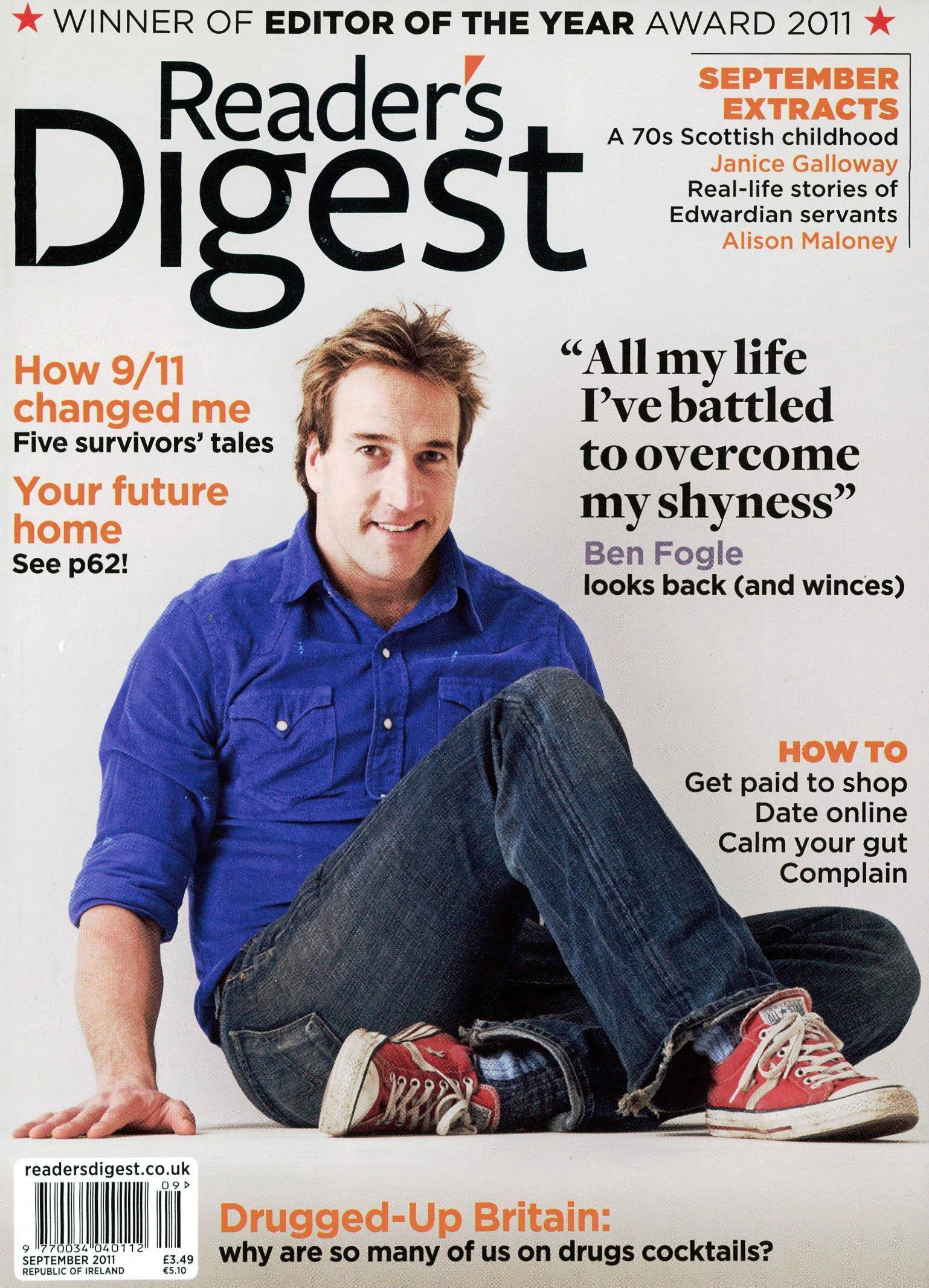

i Reagr t
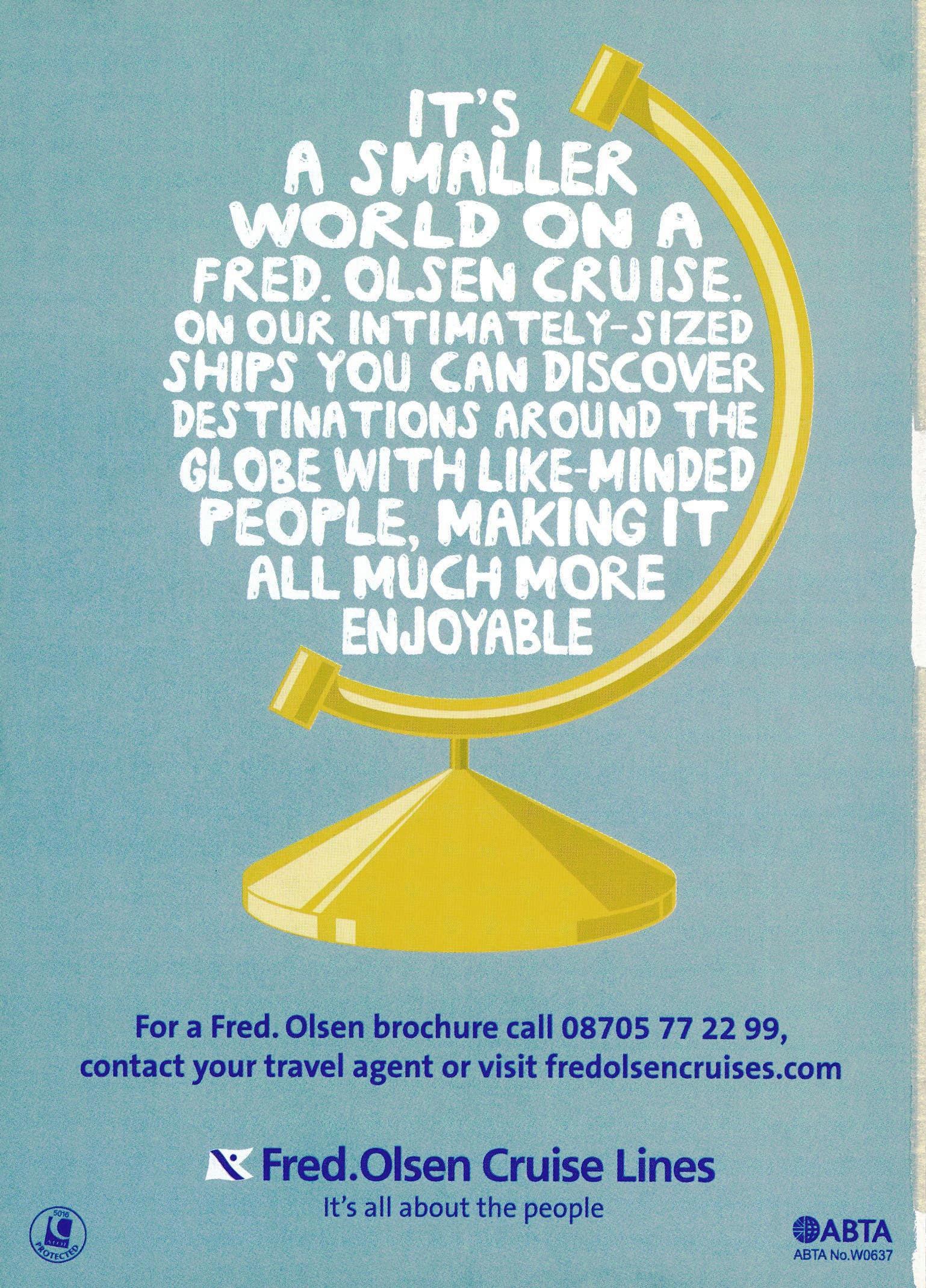
SEPTEMBER 2011 FEATURES
Digest
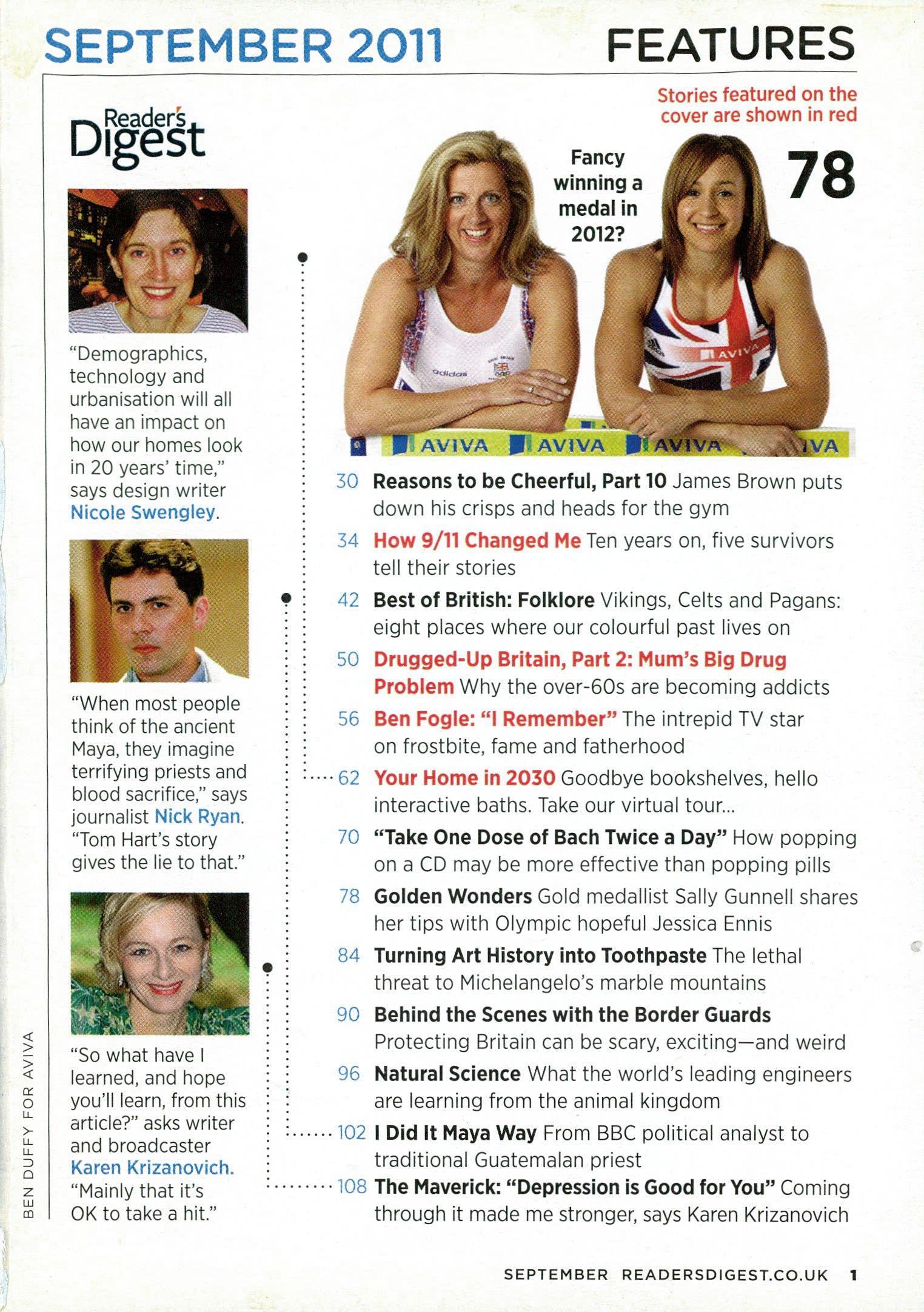
"Demographics, technology and urbanisation will all have an impact on how our homes look in 20 years' time," says design writer Nicole Swengley.
"When most people think of the ancient Maya, they imagine terrifying priests and blood sacrifice," says journalist Nick Ryan. "Tom Hart's story gives the lie to that."
"So what have I learned, and hope you'll learn, from this article?' asks writer and broadcaster Karen Krizanovich.
"Mainly that it's OK to take a hit."
Stories featured on the cover are shown in red
Fancy winning a medal in 2012?
30 Reasons to be Cheerful, Part 10 James Brown puts down his crisps and heads for the gym
34 How 9/11 Changed Me Ten years on, five survivors tell their stories
42 Best of British: Folklore Vikings, Celts and Pagans: eight places where our colourful past lives on
50 Drugged-Up Britain, Part 2: Mum's Big Drug Problem Why the over-60s are becoming addicts
56 Ben Fogle: "I Remember"The intrepid TV star on frostbite, fame and fatherhood
62 Your Home in 2030 Goodbye bookshelves, hello interactive baths. Take our virtual tour...
70 "Take One Dose of Bach Twice a Day" How popping on a CD may be more effective than popping pills
78 Golden Wonders Gold medallist Sally Gunnell shares her tips with Olympic hopeful Jessica Ennis
84 Turning Art History into Toothpaste The lethal threat to Michelangelo's marble mountains
90 Behind the Scenes with the Border Guards Protecting Britain can be scary, exciting—and weird
96 Natural Science What the world's leading engineers are learning from the animal kingdom
102 I Did It Maya Way From BBC political analyst to traditional Guatemalan priest
108 The Maverick: "Depression is Good for You"Coming through it made me stronger, says Karen Krizanovich
REGULARS WELCOME
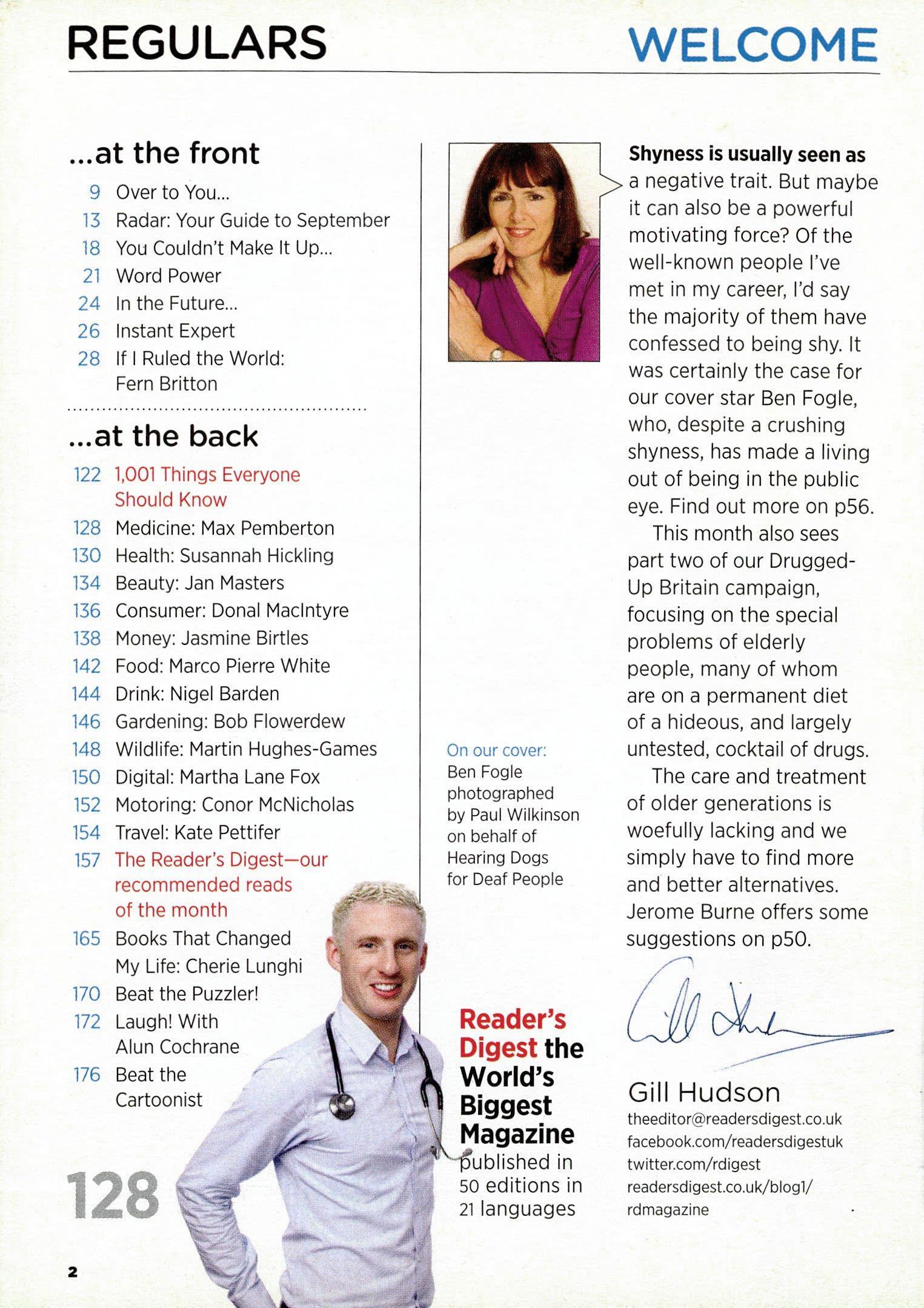
...at the front
9 Over to You... 13 Radar: Your Guide to September
18 You Couldn't Make It Up...
Word Power 24 In the Future...
26 Instant Expert
28 If I Ruled the World: Fern Britton
...at the back
122 1,001 Things Everyone Should Know
128 Medicine: Max Pemberton
130 Health: Susannah Hickling
134 Beauty: Jan Masters
136 Consumer: Donal Maclntyre
138 Money: Jasmine Birtles
142 Food: Marco Pierre White
144 Drink: Nigel Barden
146 Gardening: Bob Flowerdew
148 Wildlife: Martin Hughes-Games
150 Digital: Martha Lane Fox
152 Motoring: Conor McNicholas
154 Travel: Kate Pettifer
157 The Reader's Digest—our recommended reads of the month
165 Books That Changed My Life: Cherie Lunghi
170 Beat the Puzzler!
172 Laugh! With Alun Cochrane
176 Beat the Cartoonist
On our cover: Ben Fogle photographed by Paul Wilkinson on behalf of Hearing Dogs for Deaf People
Shyness is usually seen as a negative trait. But maybe it can also be a powerful motivating force? Of the well-known people I've met in my career, I'd say the majority of them have confessed to being shy. It was certainly the case for our cover star Ben Fogle, who, despite a crushing shyness, has made a living out of being in the public eye. Find out more on p56. This month also sees part two of our DruggedUp Britain campaign, focusing on the special problems of elderly people, many of whom are on a permanent diet of a hideous, and largely untested, cocktail of drugs. The care and treatment of older generations is woefully lacking and we simply have to find more and better alternatives. Jerome Burne offers some suggestions on p50.
Gill Hudsontheeditor@readersdigest.co.uk facebook.com/readersdigestuk twitter.com/rdigest readersdigest.co.uk/blog1/ rdmagazine
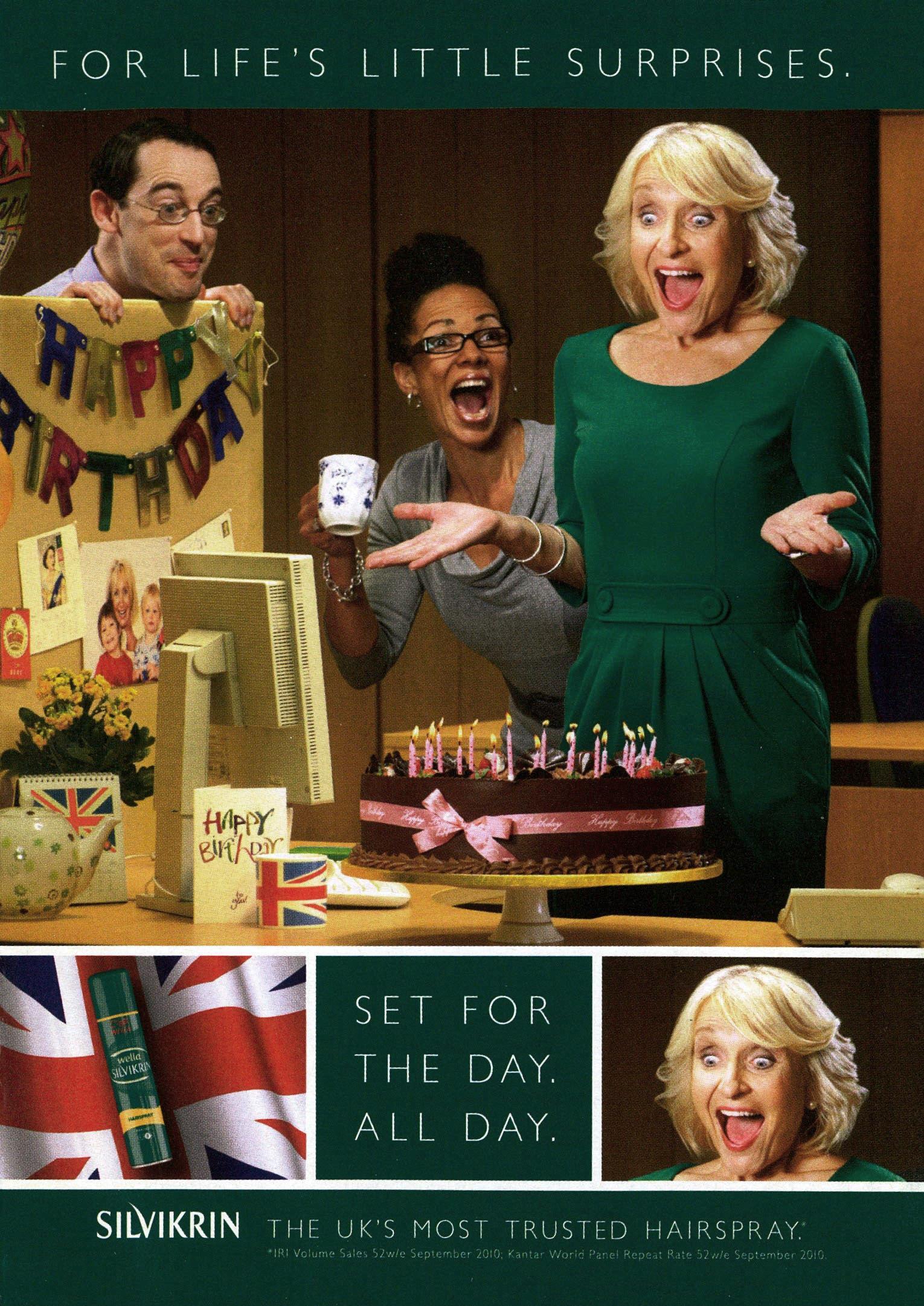

WRITE ON...
Send us your stories, jokes and letters— if they're published, we'll pay
WE PAY £50 for the star letter, £30 for normal letters and £15 for short extracts. Email readers letters@readersdigest. co.uk or write to Readers' Letters, Reader's Digest, 157 Edgware Road, London W2 2HR.
WE ALSO PAY £70 for the true stories, anecdotes, jokes in Laugh! and You Couldn't Make It Up..., and contributions to endof-article fillers, Travel and Gardening. Email excerpts@ readersdigest.co.uk or write to Excerpts, Reader's Digest, 157 Edgware Road, London W2 2HR
THE SMALL PRINT
Ensure submissions are not previously published. Include your name, email, address and daytime phone number with all correspondence. We may edit letters and use them in all print and electronic media. Contributions used become world copyright of Vivat Direct Ltd (t/a Reader's Digest).
SORRY! We cannot acknowledge or return unpublished items or unsolicited articlelength manuscripts. Do not send SAEs. Article-length stories, poetry and cartoons are not requested. „Of
SUBSCRIBE!
Go online at readersdigest. co.uk or write to Reader's Digest, Freepost, NAT3782, Leicester LE55 8BA. UK: £42 a year. Republic of Ireland: €74.39 a year. Europe: £50 a year. Rest of the world: £60 a year. Prices include delivery.
GIFT SUBSCRIPTION?
CHANGE OF ADDRESS?
Contact Customer Services for renewals, gifts, address changes, payments, account information and all other enquiries. Phone: 0871 3511000* Email: cust_service @readersdigest.co.uk
Minicom: 0870 600 1153 'Ca
You can also get in touch on Facebook...
...And plenty of you have. Thank you all for the photos of British beaches, and we look forward this month to posting your local folklore traditions (see p42). The word-definitions game is still making us giggle over that midday lull—our favourite came from Perri Wood who defined peripatetic as "Me on a bad day". Genius! Finally, thanks to Jeremy Vella for this photo of five-month old Zac, reading the jokes in our June issue.

Online this month...
@READERSDIGEST.CO.UK Digergt
Want a Sharper Brain—for Life?
Do you ever forget where you've put your keys? Struggle to put a name to a face? Lose your train of...er...thought? Us, too. But worry no more. Reader's Digest has just published a new book packed with ways to improve your memory and sharpen your mind. Full details and sample pages at readersdigest.co.uk.
Win an unforgettable day. Ever dreamed of flying a balloon or spending a luxury day at the races? Go to our site by midnight on September 13 to find out how your dream could come true.
Watch editor Gill Hudson chat about our 010 daily Word Power competition on Facebook. It's fun and it's free!
DON'T FORGET to check out our fabulous apps! Go to the iTunes music store to download our iPad app and our new walking app.
WE'RE ALSO... ON FACEBOOK.COM/ READERSDIGESTUK ON TWITTER.COM/ RDIGEST

EDITORIAL
Editor-in-Chief
GILL
Managing Editor
CATHERINE HAUGHNEY
Design Director
MARTIN COLYER
Features Editor
SIMON HEMELRYK
Deputy Production Editor
TOM BROWNE
Assistant Features Editor
ELLIE ROSE
Editorial Assistant
RACHEL SMITH
Art Editor
HUGH KYLE
Picture Researcher
ROBERTA MITCHELL
Contributing Editors
CAROLINE HUTTON, HARRY MOUNT, JAMES WALTON
Health Editor
SUSANNAH HICKLING
Website Assistant
JASMINE BEGOM
ADVERTISING
Account Directors
DOMINIC EDDON, PAUL EYERS, Trade Marketing Manager (Magazines and Books)
SIMON NICOLL
Production Controller
CHRIS TRIBE
Magazine Marketing Manager
JUSTINE BURROWS
Finance Business Partner—Magazine
ANJLI MEHTA
Magazine Executive
MARINA JOANNOU
Publishing Director
JAMES MALLINSON
CHIEF EXECUTIVE OFFICER
THIERRY BOUZAC
THE READER'S DIGEST ASSOCIATION INC
President and Chief Executive Officer
TOM WILLIAMS President, RD Europe
DAWN ZIER VP, Global Editor-in-Chief
Reader's Digest PEGGY NORTHROP
Advanced Technology. Ford DAB Audio System with Bluetooth and USB connectivity.

Advanced ' Aerodynamics. Active Grille Shutter gives better economy.
Advanced Refuelling. Easy Fuel capless system for quick, clean fill ups.
• Motability
The leading car scheme for disabled people
From £Nil Advance Payment. I On selected models. With free rear parking distance sensors.
ALL-NEW FORD FOCUS. Start more than a car. ford co uk/motability
Official fuel consumption figures in mpg (l/100km) for Ford Focus Titanium X range: urban 34.9-55.4 (8.1-5.1), extra urban 56.5-76.4 (5.0-3.7), combined 47.1-673 (6.0-4.2). Official CO2 emission 139-109g/km. Vehicle shown is All-New Focus Titanium X, with optional l8" 5-spoke alloy wheels. NI1Advance Payment only applies to All-New Ford Focus Zetec1.6 1O5PS Manual and All-New Ford Focus Zetec 1.6 125PS Manual. Metallic Paint is available at no extra cost, This programme is subject to the standard conditions of the Mutability 3-year Contract Hire Scheme. Full written details and quotations available on request from a Ford Authorised participating dealer of Motability Operations Limited. Under the Scheme the vehicles are leased from Motability Operations Limited (Registered Company No. 1373876), City Gate House, 22 Southwark Bridge Road, London SE19HB. Applications most be received and accepted between 1July and 30 September 2011 by Motability Operations Ltd. Feel the

Some people do look slovenly when they chew, Chew
absolutely
And In a job like mine, that's just not on. You've got to look presentable Although Ironically gum can actually help with that. It helps take care of your teeth' I know that much. Ultimately, it comes down to how you go abou its not hard to chew w a bit of subtlety, aft
OVER TO YOU• • •
EMAILS, LETTERS, TWEETS AND FACEBOOK
£30 FOR EACH PUBLISHED LETTER,
£15 FOR SHORTER EXTRACTS,
£50 FOR THE LETTER OF THE MONTH! SEE P4 FOR MORE DETAILS
A GOOD FEED
It was great to read about the quality of food at Cornwall's Treliske Hospital. My gran spent some time in Treliske earlier this year and whenever I visited, the main topic of conversation was how wonderful the food was. I believe it was the meals that helped her recover—she gained weight quite quickly and her appetite was restored.
Fiona Juleff, Truro, Cornwall
LETTER OF THE MONTH
After reading "Menu Magic", I felt compelled to tell you about the fantastic experience of hospital food I had a few years ago.
My 99-year-old grandfather was in the temporary ward of an Essex hospital along with six other elderly patients, all of them too ill or frail to eat. Despite this, a lady would come round with a food trolley every day, laden with the most sumptuous meals you could imagine. I've seen far worse grub in expensive restaurants, yet it was all thrown away at the end of the day! As I was becoming a familiar face, I asked if I could try some of the food before it was binned. At first she said it was against the rules, but eventually she allowed me to take what I wanted.
So I ate very well while my grandfather was at that hospital, but I was struck by the appalling waste. Perhaps if those meals had ended up on a ward with recovering patients instead, they would have been appreciated by the people they were intended for.
Wendy Gordon, Oxfordshire
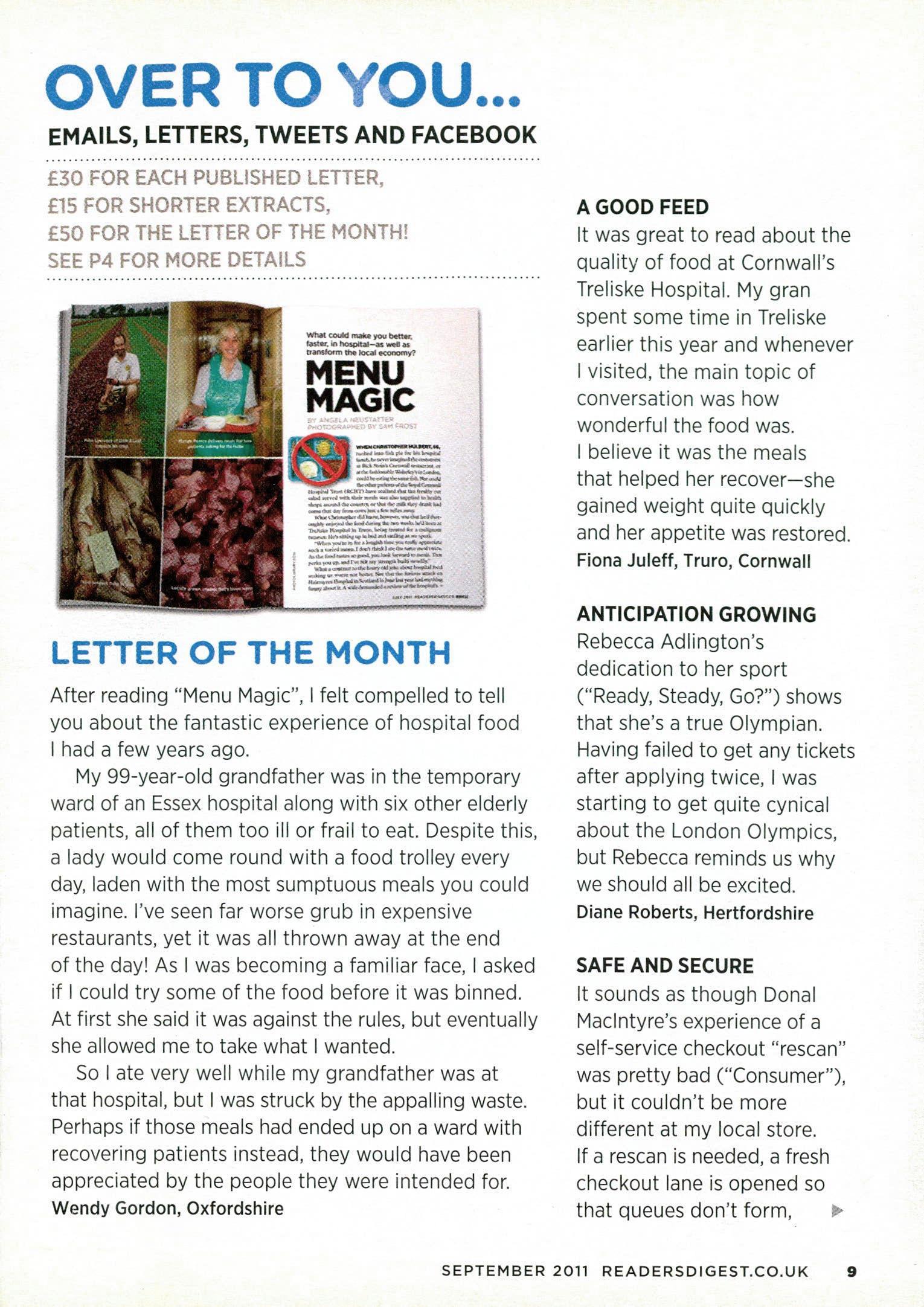
ANTICIPATION GROWING
Rebecca Adlington's dedication to her sport ("Ready, Steady, Go?") shows that she's a true Olympian. Having failed to get any tickets after applying twice, I was starting to get quite cynical about the London Olympics, but Rebecca reminds us why we should all be excited.
Diane Roberts, Hertfordshire
SAFE AND SECURE
It sounds as though Donal Maclntyre's experience of a self-service checkout "rescan" was pretty bad ("Consumer"), but it couldn't be more different at my local store. If a rescan is needed, a fresh checkout lane is opened so that queues don't form, ►
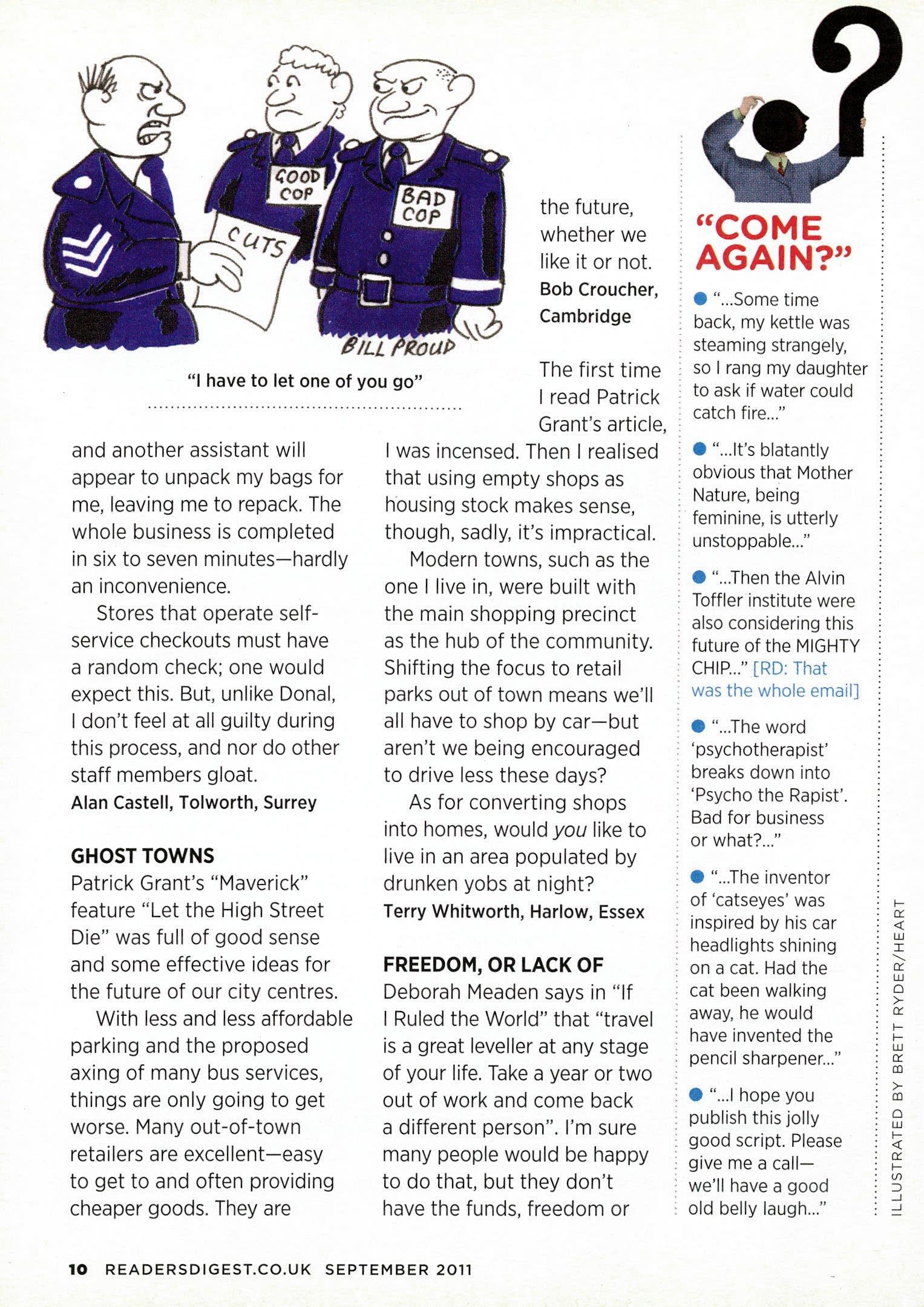
19/LL ROUP
"I have to let one of you go"
and another assistant will appear to unpack my bags for me, leaving me to repack. The whole business is completed in six to seven minutes—hardly an inconvenience.
Stores that operate selfservice checkouts must have a random check; one would expect this. But, unlike Donal, I don't feel at all guilty during this process, and nor do other staff members gloat.
Alan Castel!, Tolworth, Surrey
GHOST TOWNS
Patrick Grant's "Maverick" feature "Let the High Street Die" was full of good sense and some effective ideas for the future of our city centres. With less and less affordable parking and the proposed axing of many bus services, things are only going to get worse. Many out-of-town retailers are excellent—easy to get to and often providing cheaper goods. They are
the future, whether we like it or not.
Bob Croucher, Cambridge
The first time I read Patrick Grant's article,
I was incensed. Then I realised that using empty shops as housing stock makes sense, though, sadly, it's impractical.
Modern towns, such as the one I live in, were built with the main shopping precinct as the hub of the community. Shifting the focus to retail parks out of town means we'll all have to shop by car—but aren't we being encouraged to drive less these days?
As for converting shops into homes, would you like to live in an area populated by drunken yobs at night?
Terry Whitworth, Harlow, Essex
FREEDOM, OR LACK OF
Deborah Meaden says in "If I Ruled the World" that "travel is a great leveller at any stage of your life. Take a year or two out of work and come back a different person". I'm sure many people would be happy to do that, but they don't have the funds, freedom or
"COME AGAIN?"
• "...Some time back, my kettle was steaming strangely, so I rang my daughter to ask if water could catch fire..."
• "...It's blatantly obvious that Mother Nature, being feminine, is utterly unstoppable..."
• "...Then the Alvin Toffler institute were also considering this future of the MIGHTY CHIP..." [RD: That was the whole email]
• "...The word 'psychotherapist' breaks down into 'Psycho the Rapist'. Bad for business or what?..."
• "...The inventor of 'catseyes' was inspired by his car headlights shining on a cat. Had the cat been walking away, he would have invented the pencil sharpener..."
• "...I hope you publish this jolly good script. Please give me a call— we'll have a good old belly laugh..."
opportunity. Come down from your ivory tower, Deborah, and try the real world.
Mary McKenzie, Manchester
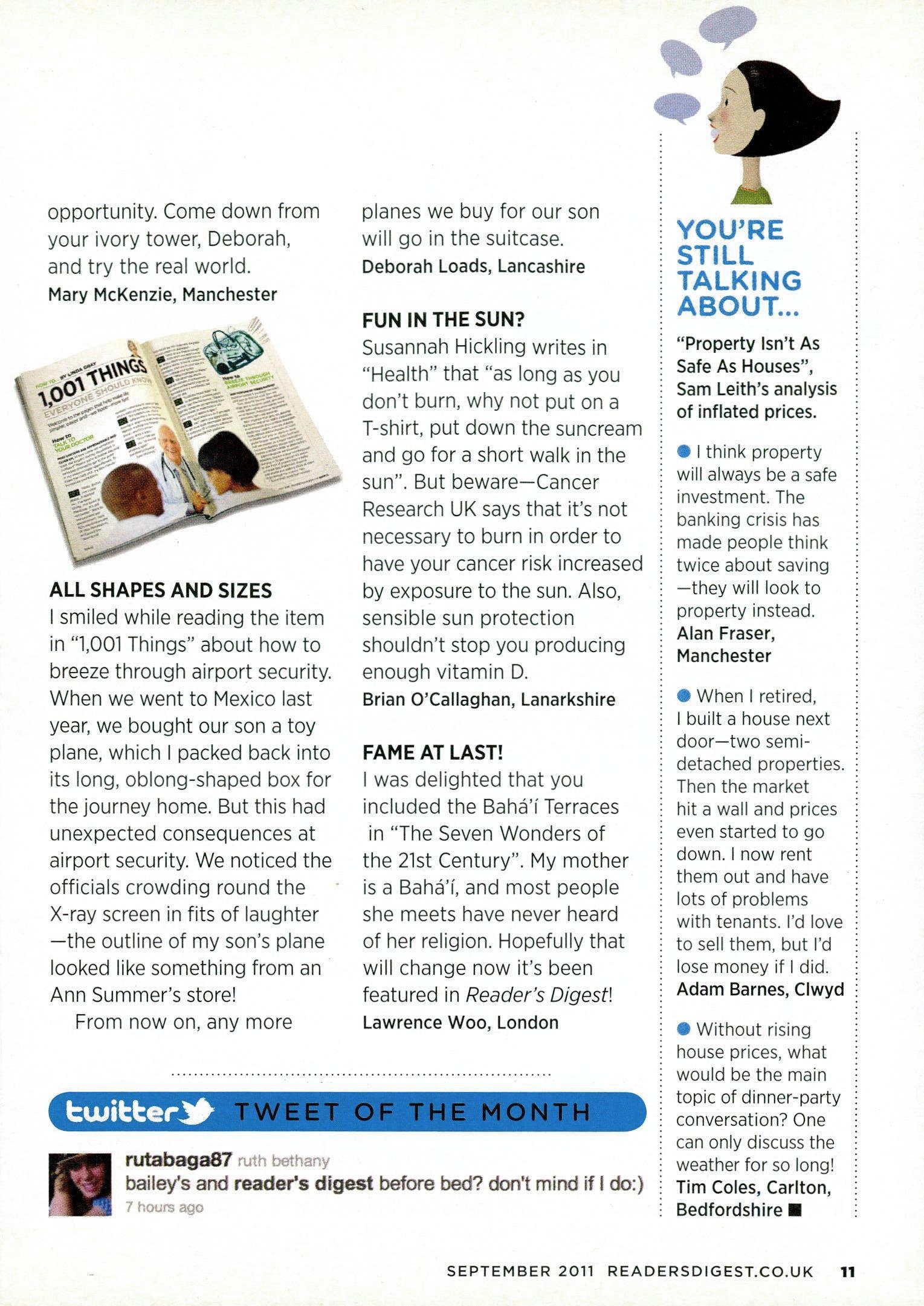
ALL SHAPES AND SIZES
I smiled while reading the item in "1,001 Things" about how to breeze through airport security. When we went to Mexico last year, we bought our son a toy plane, which I packed back into its long, oblong-shaped box for the journey home. But this had unexpected consequences at airport security. We noticed the officials crowding round the X-ray screen in fits of laughter —the outline of my son's plane looked like something from an Ann Summer's store!
From now on, any more
planes we buy for our son will go in the suitcase.
Deborah Loads, Lancashire
FUN IN THE SUN?
Susannah Hickling writes in "Health" that "as long as you don't burn, why not put on a T-shirt, put down the suncream and go for a short walk in the sun". But beware—Cancer Research UK says that it's not necessary to burn in order to have your cancer risk increased by exposure to the sun. Also, sensible sun protection shouldn't stop you producing enough vitamin D.
Brian O'Callaghan, Lanarkshire
FAME AT LAST!
I was delighted that you included the Baha'i Terraces in "The Seven Wonders of the 21st Century". My mother is a Bahal, and most people she meets have never heard of her religion. Hopefully that will change now it's been featured in Reader's Digest!
Lawrence Woo, London
rutabaga87
bailey's and reader's digest before bed? don't mind if I do:) hours ago
YOU'RE STILL TALKING ABOUT...
"Property Isn't As Safe As Houses",
Sam Leith's analysis of inflated prices.
• I think property will always be a safe investment. The banking crisis has made people think twice about saving —they will look to property instead.
Alan Fraser, Manchester
• When I retired, I built a house next door—two semidetached properties. Then the market hit a wall and prices even started to go down. I now rent them out and have lots of problems with tenants. I'd love to sell them, but I'd lose money if I did.
Adam Barnes, Clwyd
• Without rising house prices, what would be the main topic of dinner-party conversation? One can only discuss the weather for so long!
Tim Coles, Carlton, Bedfordshire ■
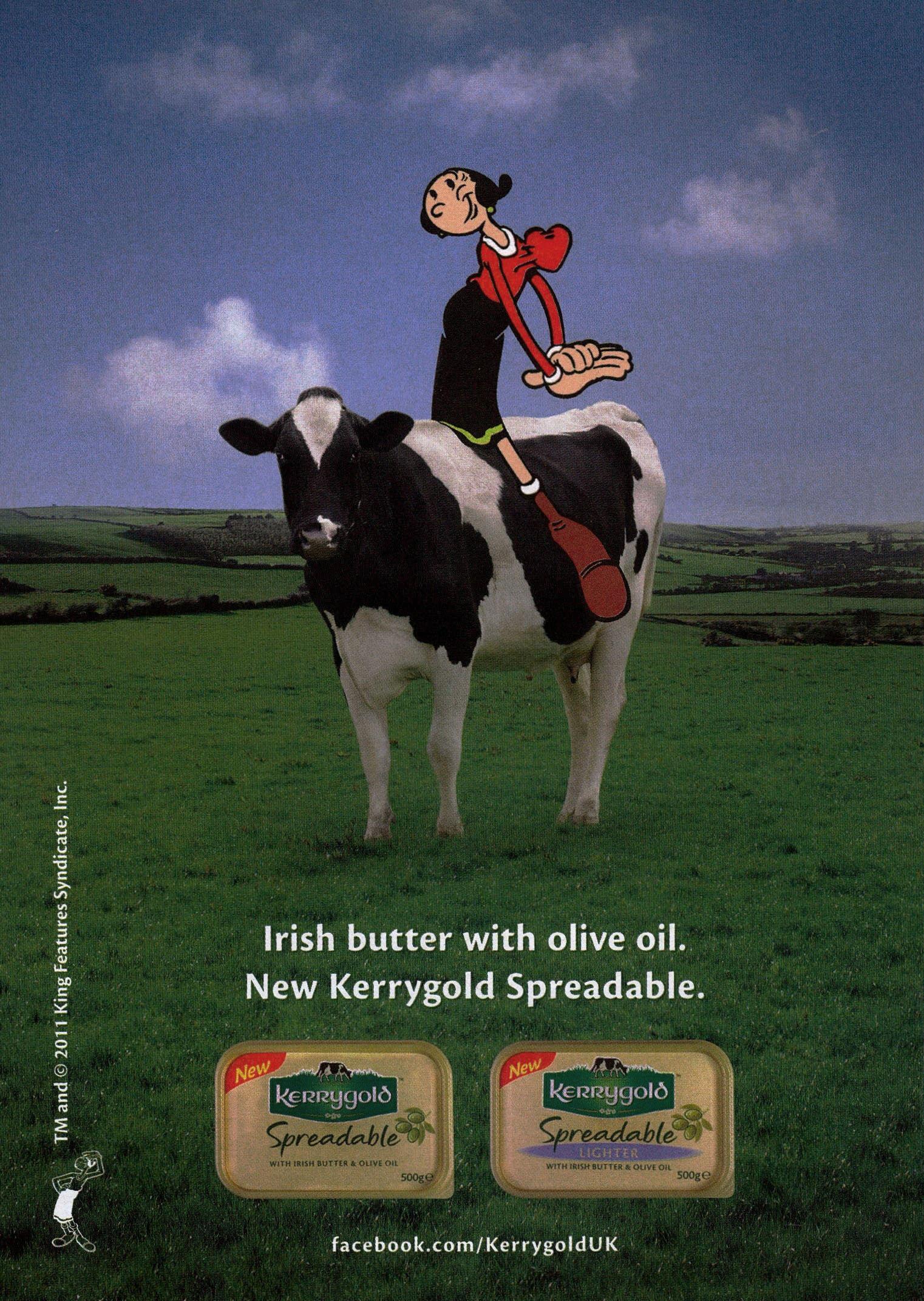
YOUR SHORT, SHARP GUIDE TO SEPTEMBER
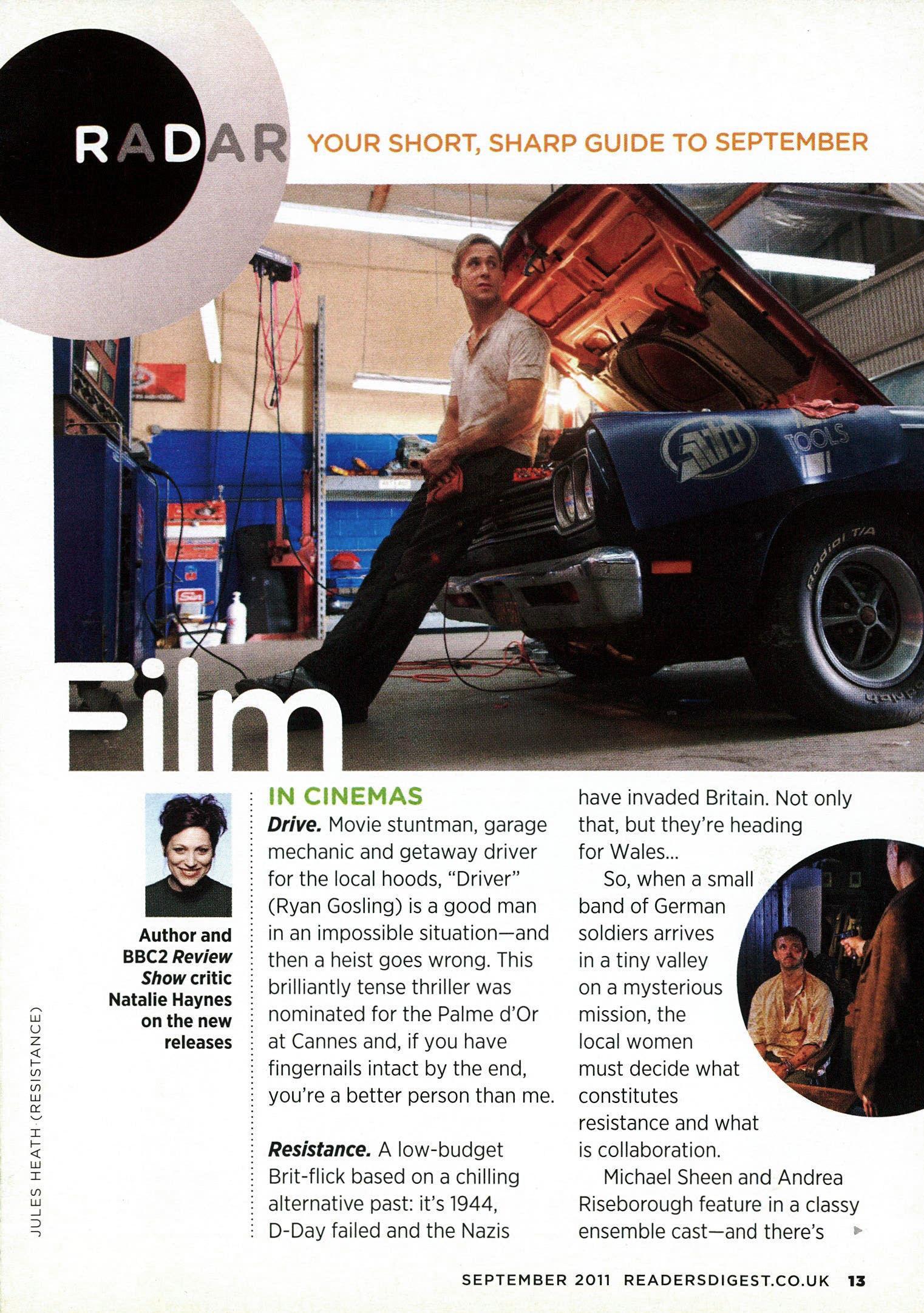
Author and BBC2 Review
Show critic Natalie Haynes on the new releases
IN CINEMAS
Drive. Movie stuntman, garage mechanic and getaway driver for the local hoods, "Driver" (Ryan Gosling) is a good man in an impossible situation—and then a heist goes wrong. This brilliantly tense thriller was nominated for the Palme d'Or at Cannes and, if you have fingernails intact by the end, you're a better person than me.
Resistance. A low-budget Brit-flick based on a chilling alternative past: it's 1944, D-Day failed and the Nazis
have invaded Britain. Not only that, but they're heading for Wales...
So, when a small band of German soldiers arrives in a tiny valley on a mysterious mission, the local women must decide what constitutes resistance and what is collaboration.
Michael Sheen and Andrea Riseborough feature in a classy ensemble cast—and there's
an all-too-rare chance to see Nazis and sheep in the same film.
DVDS
Thor. Kenneth Branagh annoys people by being good at virtually everything he does. But directing a big-budget action movie, he was bound to fail, right? In fact, he's turned out one of the year's best comic-book films: smart and funny.
Pina. Wim
Wenders' tribute to the German choreographer Pina Bausch follows dancers who worked with her as they recreate her routines, then dance by the side of a busy road, or on a train. An exquisite treat for dance fans—and a reminder for many of us to go to the gym. Dance films are enjoying a renaissance at the moment, and this is the most beautiful I've seen.
Gadgets and Game
Technology expert and Answer
Me This! podcaster
Oily Mann reveals the latest must-haves
Arcam rCube portable speaker system, i Beard-stroking audiophiles blew a gasket when this high-end iPod accessory appeared in specialist shops. Now it's available on the high street for non-weirdos. Straight outta Cambridgeshire, it's as good as anything foreign manufacturers can produce: loud and resonant enough to rock a concert hall, yet no bigger than a bowling ball. (It's also about the same weight, mind you—try taking it down the park and you'll give yourself a hernia.) A USB dongle streams internet radio from your PC at up to 50 feet, too, and it's very easy to use. Magic. IIMSENVMM4PAIU.IE
AND CHECK OUT,
Tower app, free Unleash your inner Donald Trump with this addictive skyscraper-building game. Rugged Mini, £89.9C The classic go-anywhere, shock-resistant hard drive is now 40 per cent smaller and three times faster. 2011, £44.99, Xbox, PS3, PC Vr000m! Try your hand, on authentic circuits, as one of the drivers from the current Formula 1 Championship. Bagsy I'm Vettel...

ComicBook! app, £1.49 for iPhone, iPad, iPod Touch. This canny device transforms family photos into comicbook art, so you can see what your kids would look like if drawn by a Manga artist, or what your mother-in-law would look like if, say, she was a blood-sucking zombie. You even get to add speech bubbles. At first, I made my passport picture look like it was in The Sun's "Dear Deidre" agony column. But, with typical modesty, I settled on the filter that turned it into Barack Obama's "Hope" poster.
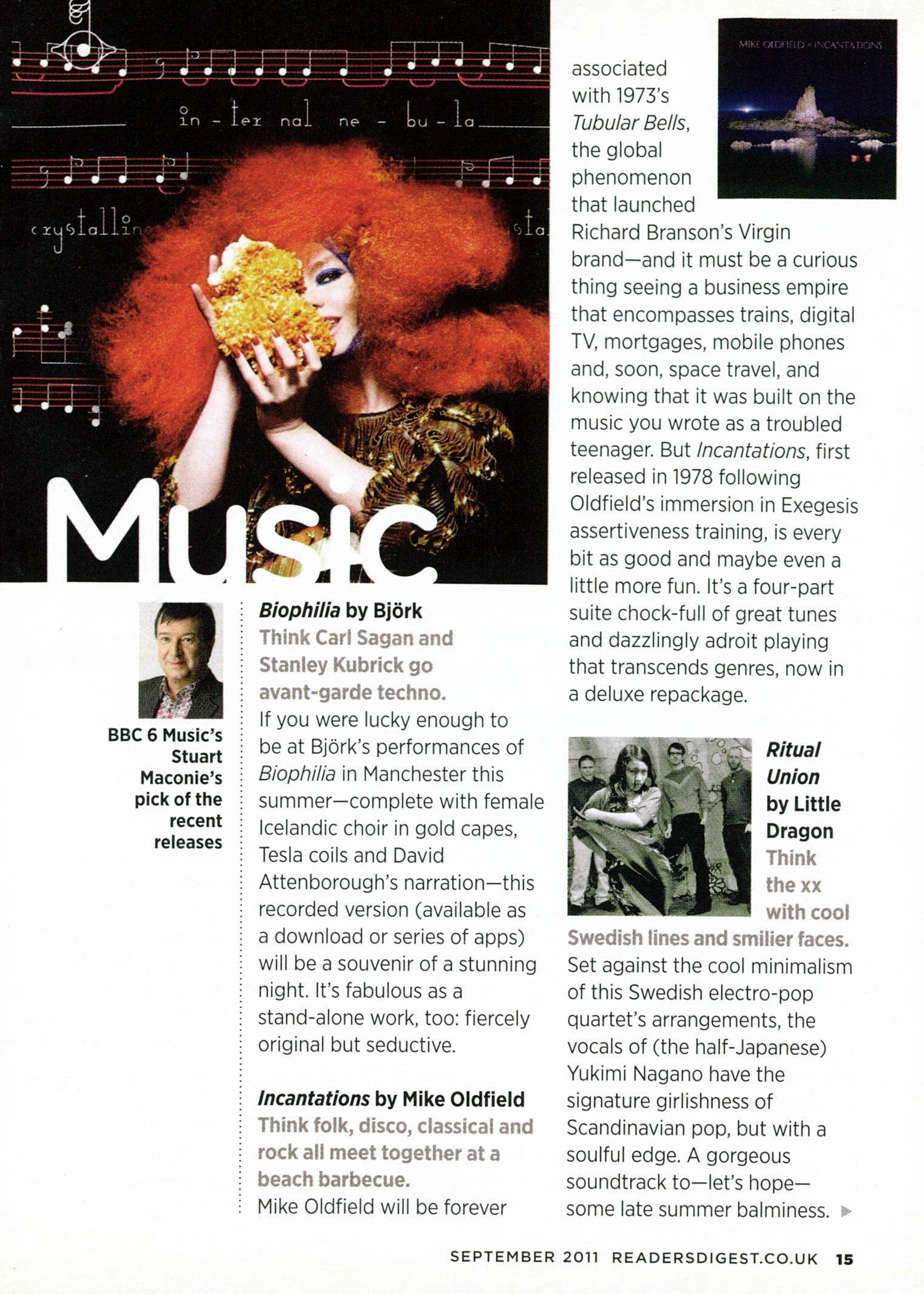
• IL
Biophilia by Bjork
Think Carl Sagan and Stanley Kubrick go avant-garde techno.
If you were lucky enough to be at BjOrk's performances of Biophilia in Manchester this summer—complete with female Icelandic choir in gold capes, Tesla coils and David Attenborough's narration—this recorded version (available as a download or series of apps) will be a souvenir of a stunning night. It's fabulous as a stand-alone work, too: fiercely original but seductive.
Incantations by Mike Oldfield
Think folk, disco, classical and rock all meet together at a beach barbecue. Mike Oldfield will be forever
associated with 1973's Tubular Bells, the global phenomenon that launched Richard Branson's Virgin brand—and it must be a curious thing seeing a business empire that encompasses trains, digital TV, mortgages, mobile phones and, soon, space travel, and knowing that it was built on the music you wrote as a troubled teenager. But Incantations, first released in 1978 following Oldfield's immersion in Exegesis assertiveness training, is every bit as good and maybe even a little more fun. It's a four-part suite chock-full of great tunes and dazzlingly adroit playing that transcends genres, now in a deluxe repackage.
Ritual Union by Little Dragon
Think the xx
lwKik with cool .)weuibit linesand smilier faces. Set against the cool minimalism of this Swedish electro-pop quartet's arrangements, the vocals of (the half-Japanese) Yukimi Nagano have the signature girlishness of Scandinavian pop, but with a soulful edge. A gorgeous soundtrack to—let's hope— some late summer balminess. ►
Rugby World Cup, New Zealand, September 9-October 23. Every four years, the legendary All Blacks march towards World Cup glory. And, every four years, someone trips them up and leaves them face-down in a puddle. New Zealand then enters a period of national mourning lasting four years—a cycle that's as old as time itself (assuming that time itself began after the 1987 World Cup, which the All Blacks won).
On this occasion, they have home advantage, too—so, if they fail to win, experts predict the New Zealand government will dissolve the country, sell the North Island to the Chinese, and auction the South Island off for scrap. (See "Instant Expert", p26, for a more considered guide to the competition.)
ALSO ON OUR A AR
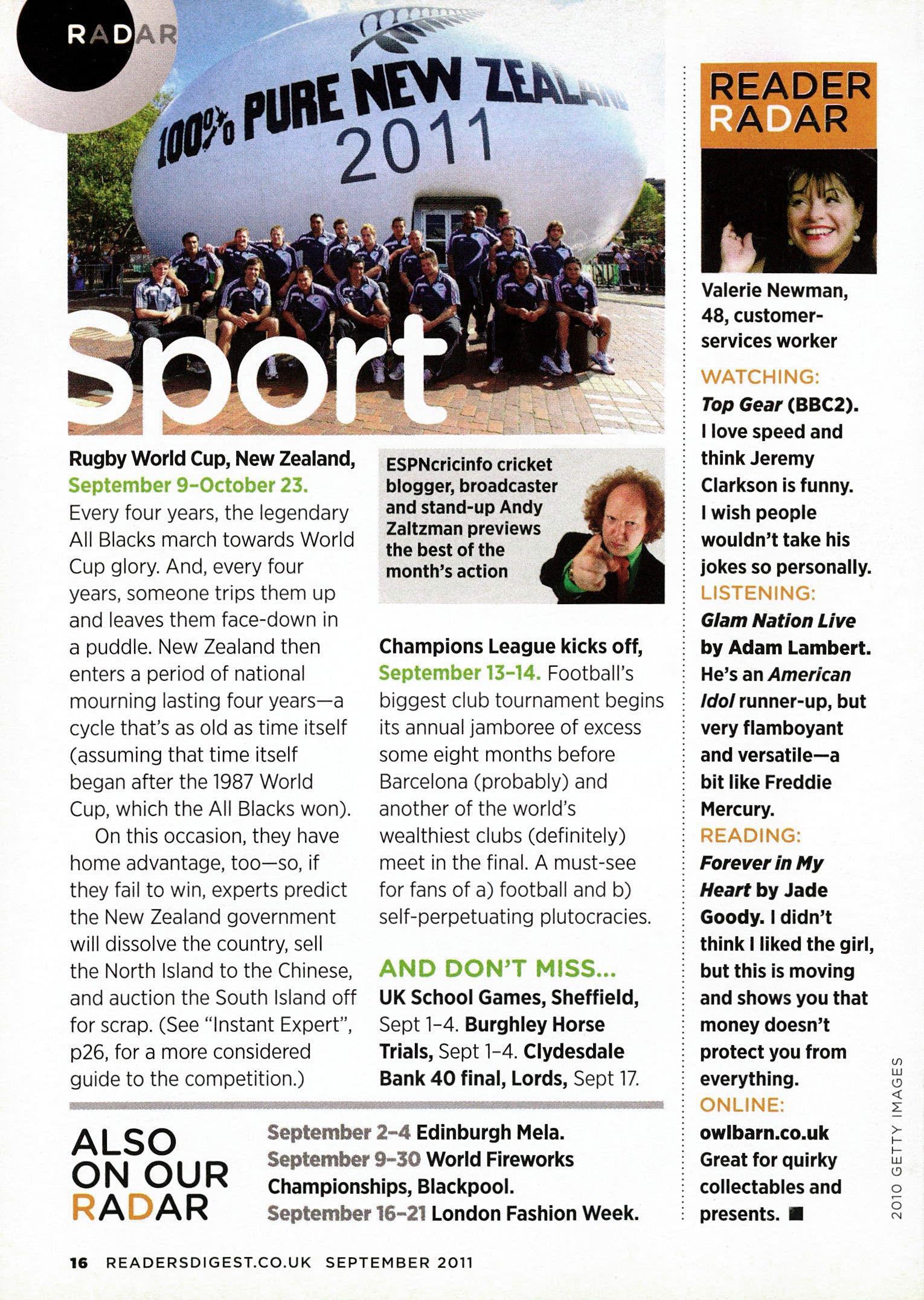
ESPNcricinfo cricket blogger, broadcaster and stand-up Andy Zaltzman previews the best of the month's action
Champions League kicks off, September 13-14. Football's biggest club tournament begins its annual jamboree of excess some eight months before Barcelona (probably) and another of the world's wealthiest clubs (definitely) meet in the final. A must-see for fans of a) football and b) self-perpetuating plutocracies.
AND DON'T MISS...
UK School Games, Sheffield, Sept 1-4. Burghley Horse Trials, Sept 1-4. Clydesdale Bank 40 final, Lords, Sept 17.
September 2-4 Edinburgh Mela. September 9-30 World Fireworks Championships, Blackpool. September 16-21 London Fashion Week.
Valerie Newman, 48, customerservices workerWATCHING:
Top Gear (BBC2). I love speed and think Jeremy Clarkson is funny. I wish people wouldn't take his jokes so personally.
LISTENING:
Glam Nation Live by Adam Lambert. He's an American Idol runner-up, but very flamboyant and versatile—a bit like Freddie Mercury.
READING:
Forever in My Heart by Jade Goody. I didn't think I liked the girl, but this is moving and shows you that money doesn't protect you from everything.
ONLINE owlbarn.co.uk
Great for quirky collectables and presents. IN

YOU COULDN'T MAKE IT UP...
1 We were discussing Live Aid at a dinner party recently when my brother pointed out that Midge Ure had also been involved in organising it, alongside Bob Geldof.
My father, never a big pop music fan, asked who Midge Ure was.
"He was in the band Ultravox," I replied. "They had a big hit with the song 'Vienna'."
My father was surprised by the convulsions of laughter when he shrugged and replied, "That means nothing to me."
Michael Whooley, Ireland
1 In the restroom at work, our boss had placed a sign directly above the sink. It had a single word on it: "THINK".
When he came into work the next morning, someone had carefully written another sign immediately above the soap dispenser: "THOAP".
Arnie Yardley, Cambridge
1 My daughter was bringing her son home from school in the car
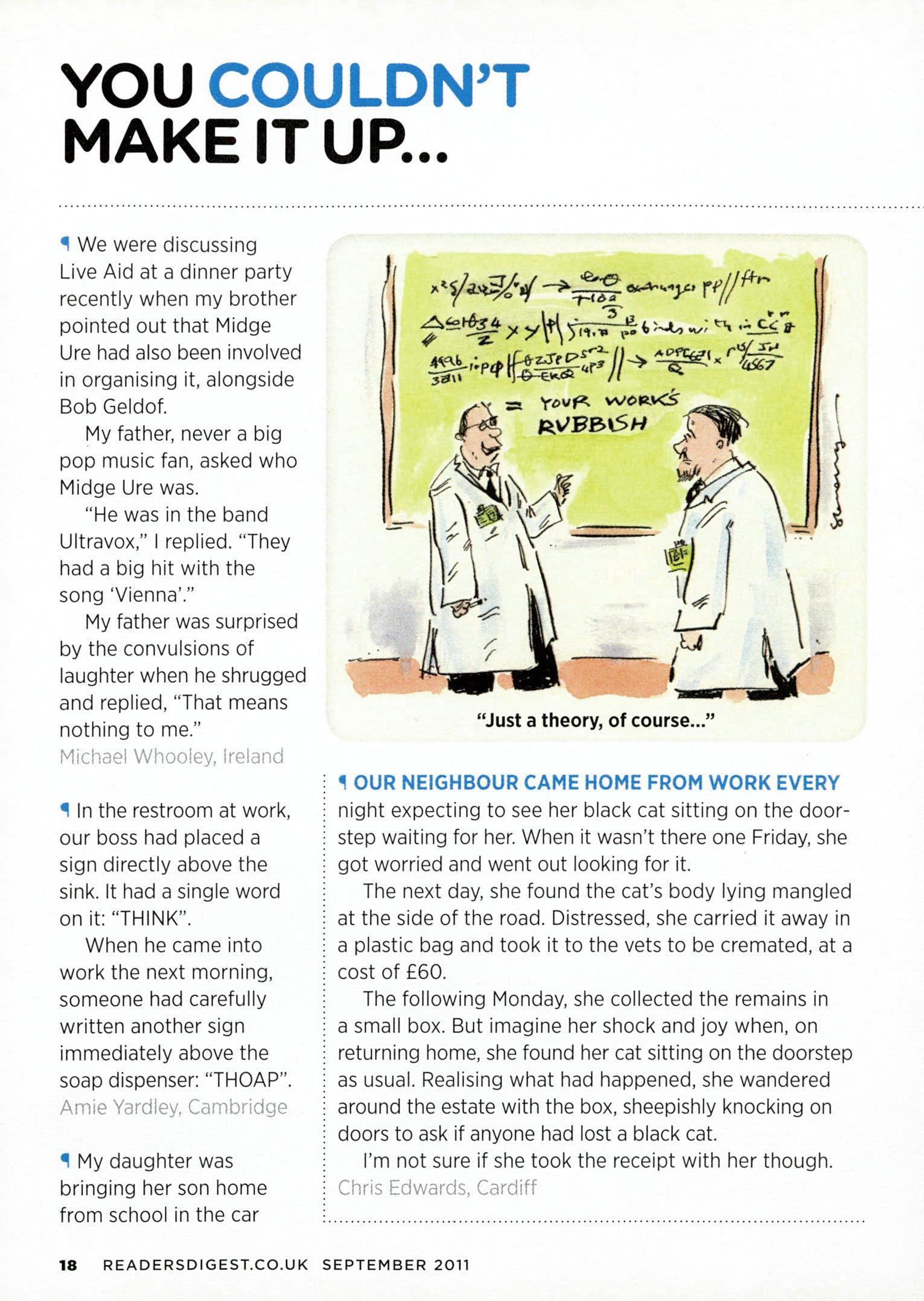
"Just a theory, of course..."
I OUR NEIGHBOUR CAME HOME FROM WORK EVERY night expecting to see her black cat sitting on the doorstep waiting for her. When it wasn't there one Friday, she got worried and went out looking for it.
The next day, she found the cat's body lying mangled at the side of the road. Distressed, she carried it away in a plastic bag and took it to the vets to be cremated, at a cost of £60.
The following Monday, she collected the remains in a small box. But imagine her shock and joy when, on returning home, she found her cat sitting on the doorstep as usual. Realising what had happened, she wandered around the estate with the box, sheepishly knocking on doors to ask if anyone had lost a black cat.
I'm not sure if she took the receipt with her though. Chris Edwards, Cardiff
SEND YOUR TRUE, FUNNY STORIES TO EXCERPTS(a) READERSDIGEST.CO.UK OR GO TO FACEBOOK. COM/READERSDIGESTUK
when he said to her, "Mummy, why did we sing about a dark settee in assembly this morning?"
Puzzled, my daughter asked him to give her more details of the song.
In reply, he sang, "Dance, then, wherever you may be. I am the Lord of the Dark Settee."
Lorna Tomkins, Kent
II An American preacher was giving a talk at our local church. The content was all hellfire and damnation, and he ranted and raved so much that the congregation was somewhat subdued at the end.
He finally calmed down enough to ask if anyone had any questions. After a moment's silence, an old lady rose to her feet and said, "Is there going to be tea and biscuits?"
Kevin Halls, Coventry
1 While waiting for my husband in a large department store, I sat down on a convenient seat. I was
1 A FRIEND OF MINE works in a home for the elderly, and part of her job is to attend funerals of the residents they've cared for.
On one occasion, she was sitting in church with
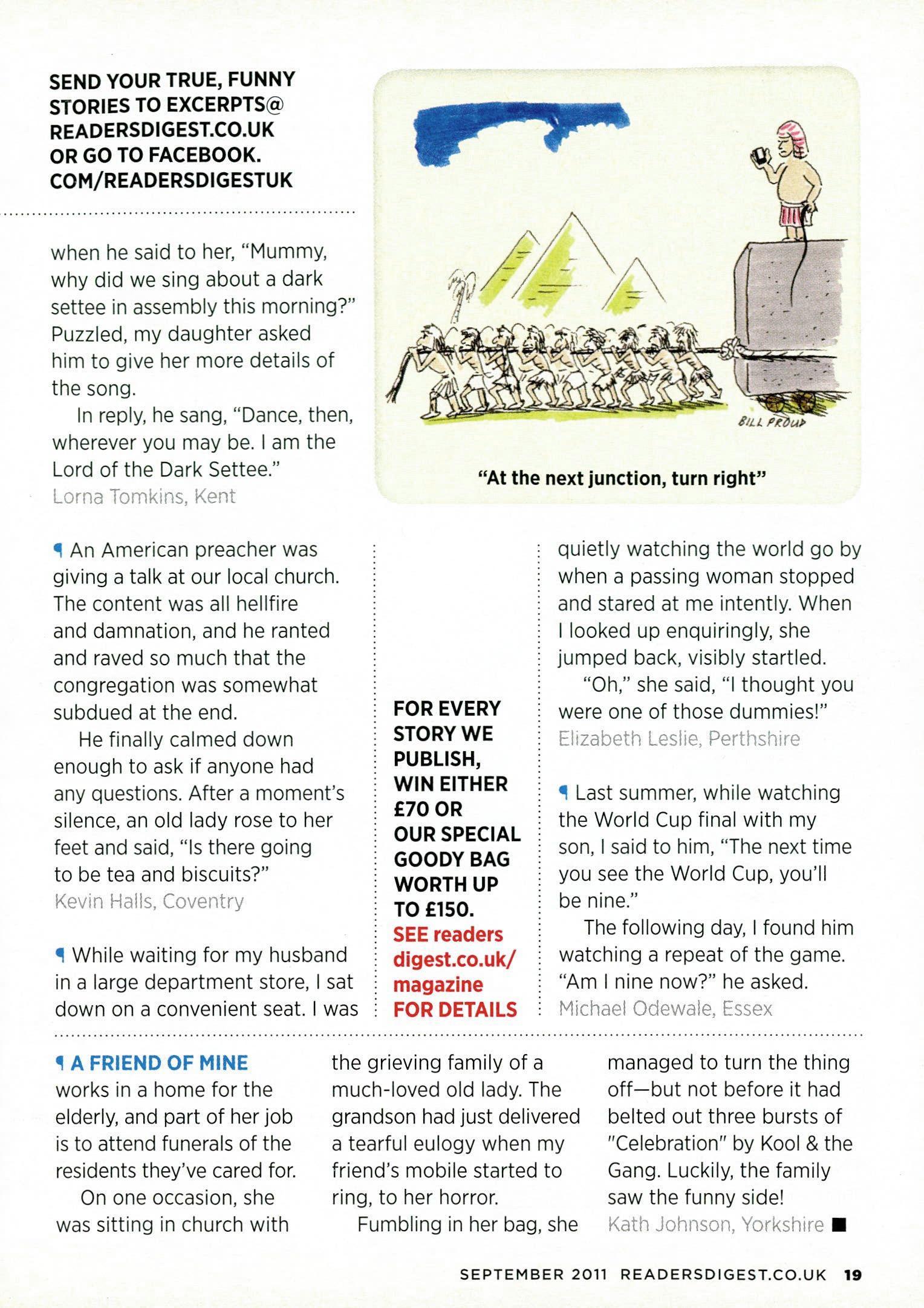
"At the next junction, turn right"
quietly watching the world go by when a passing woman stopped and stared at me intently. When I looked up enquiringly, she jumped back, visibly startled.
FOR EVERY STORY WE PUBLISH, WIN EITHER £70 OR OUR SPECIAL GOODY BAG WORTH UP TO £150. SEE readers digest.co.uk/ magazine FOR DETAILS
"Oh," she said, "I thought you were one of those dummies!"
Elizabeth Leslie, Perthshire
1 Last summer, while watching the World Cup final with my son, I said to him, "The next time you see the World Cup, you'll be nine."
The following day, I found him watching a repeat of the game. "Am I nine now?" he asked.
Michael Odewale, Essex
the grieving family of a much-loved old lady. The grandson had just delivered a tearful eulogy when my friend's mobile started to ring, to her horror.
Fumbling in her bag, she
managed to turn the thing off—but not before it had belted out three bursts of "Celebration" by Kool & the Gang. Luckily, the family saw the funny side!
Kath Johnson, Yorkshire ■
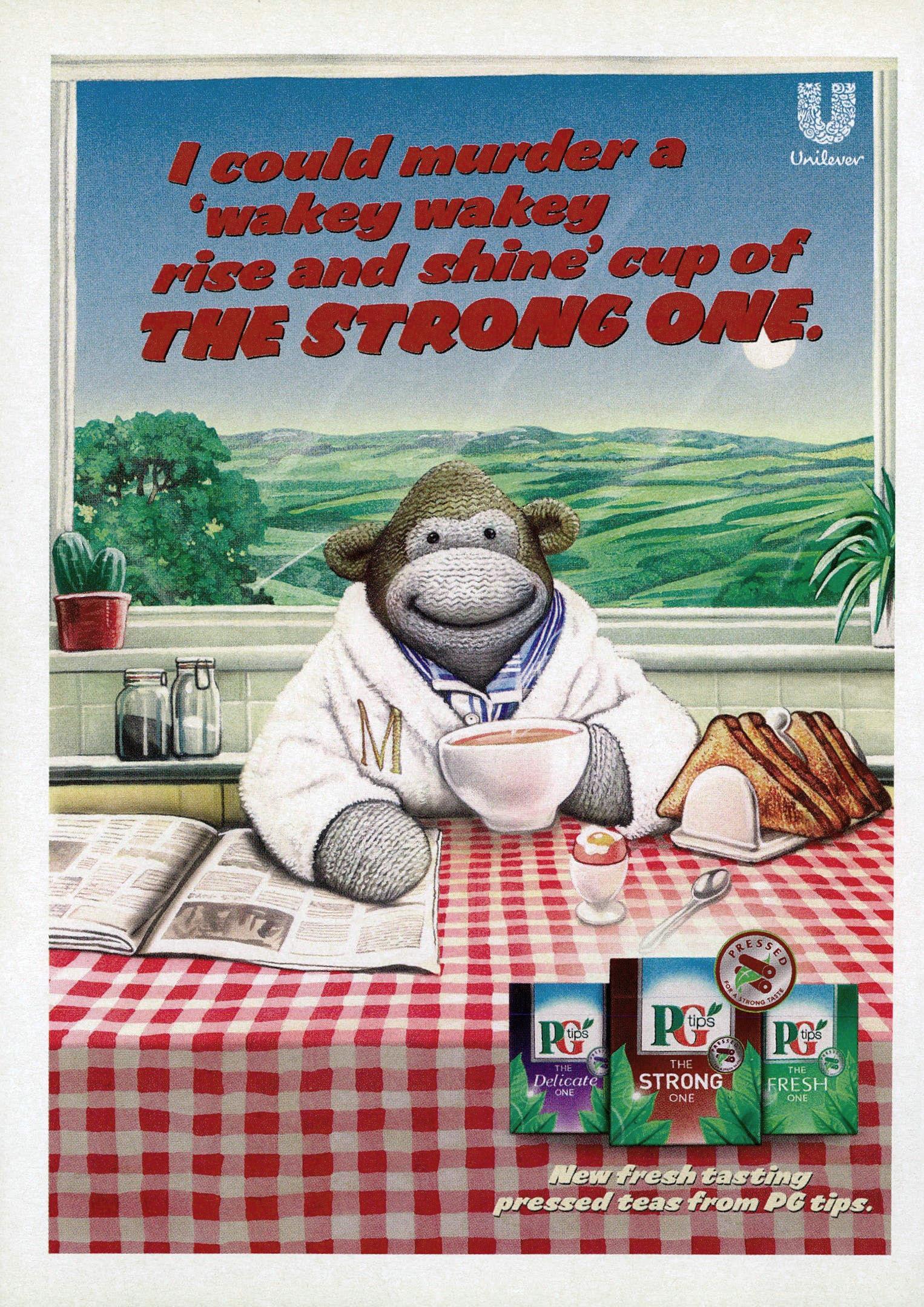
WORD POWER
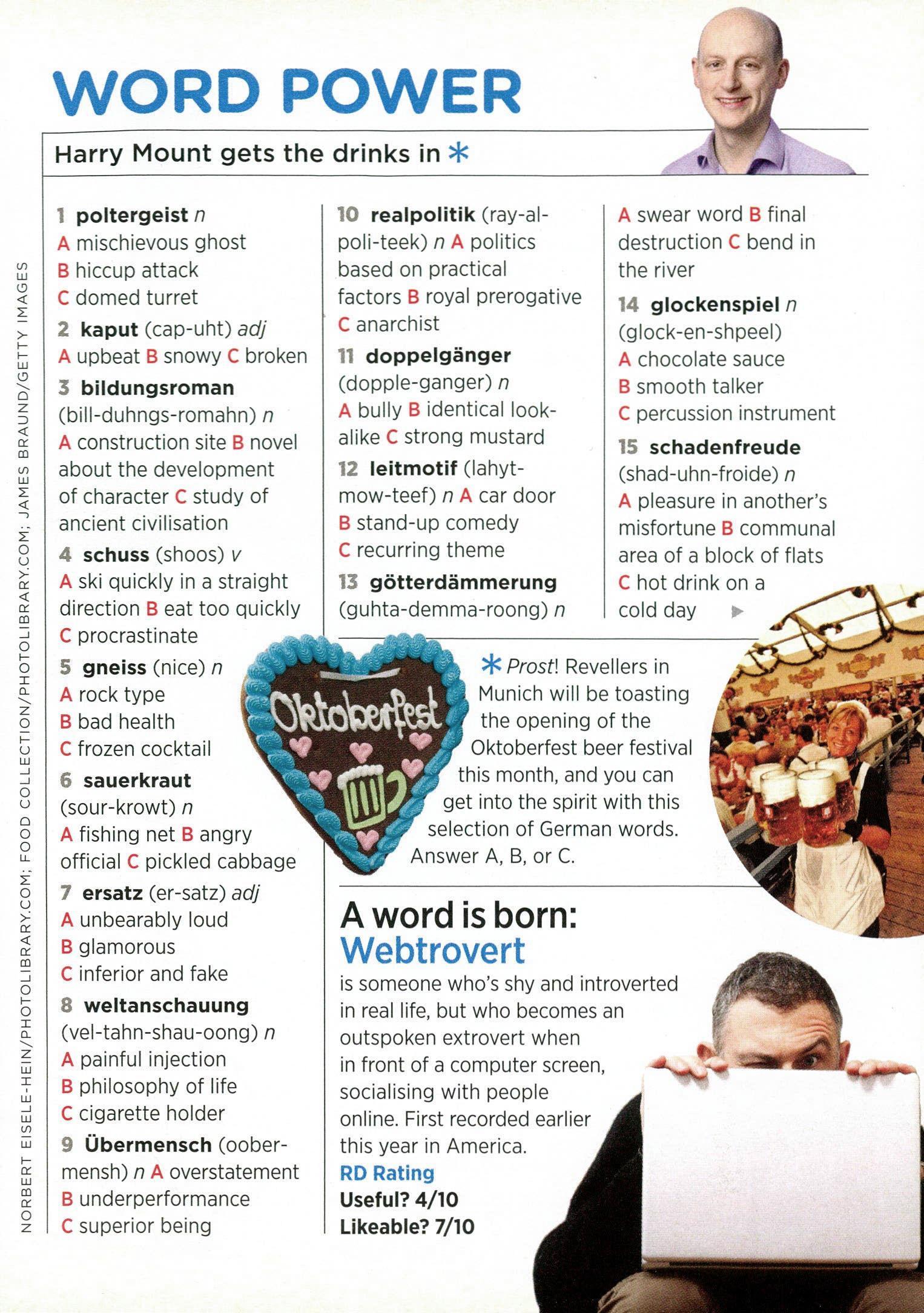
1 poltergeist n
A mischievous ghost
B hiccup attack
C domed turret
2 kaput (cap-uht) adj
A upbeat Bsnowy C broken
3 bildungsroman (bill-duhngs-romahn) n
A construction site B novel about the development of character C study of ancient civilisation
4 schuss (shoos) v
A ski quickly in a straight direction B eat too quickly
C procrastinate
5 gneiss (nice) n
A rock type
B bad health
C frozen cocktail
6 sauerkraut (sour-krowt) n
A fishing net B angry official C pickled cabbage
7 ersatz (er-satz) adj
A unbearably loud
B glamorous
C inferior and fake
8 weltanschauung (vel-tahn-shau-oong) n
A painful injection
B philosophy of life
C cigarette holder
9 Ubermensch (oobermensh) n A overstatement
B underperformance
C superior being
10 realpolitik (ray-alpoli-teek) n A politics based on practical factors B royal prerogative
C anarchist
11 doppelganger (dopple-ganger) n
A bully B identical lookalike C strong mustard
12 leitmotif (lahytmow-teef) n A car door
B stand-up comedy
C recurring theme
13 gotterdammerung (guhta-demma-roong) n
A swear word B final destruction C bend in the river
14 glockenspiel n (glock-en-shpeel)
A chocolate sauce
B smooth talker
C percussion instrument
15 schadenfreude (shad-uhn-froide) n
A pleasure in another's misfortune B communal area of a block of flats
C hot drink on a cold day it
* Prost! Revellers in Munich will be toasting the opening of the Oktoberfest beer festival this month, and you can get into the spirit with this selection of German words.
Answer A, B, or C.
A word is born: Webtrovert
is someone who's shy and introverted in real life, but who becomes an outspoken extrovert when in front of a computer screen, socialising with people online. First recorded earlier this year in America.
RD Rating Useful? 4/10
Likeable? 7/10
WORD POWER ANSWERS
9-11 getting there 12-13 impressive 14-15 word-power wizard!
1 poltergeist—A mischievous ghost. "The poltergeist kept knocking from behind the fridge door." Poltern (to knock) and geist (spirit).
2 kaput—C broken. "The engine was kaput." Kaputt.
3 bildungsroman—B novel about the development of character. "A bildungsroman is often set in a character's youth." Bildung (development) and roman (novel).
4 schuss—A ski quickly in a straight direction. "We had to schuss to get back to the chalet before dark."Schuss (shot).
5 gneiss—A rock type. "The mountain was striped with bands of gneiss." Gneis (spark).
6 sauerkraut—C pickled cabbage. "The sauerkraut went nicely with the veal."Sauer (sour) and kraut (cabbage).
7 ersatz—C inferior and fake. "The prized jewel was clearly ersatz medieval work." Ersatz (substitute).
8 weltanschauung—B philosophy of life. "He had
WHY ARETE?
An arete is a geographical term, meaning a sharpcrested, narrow mountain ridge. It's taken from the French arete, literally meaning a fishbone—itself sharp and narrow. That in turn comes from the Latin arista, meaning an ear of corn—which, if not sharp, is certainly narrow.

a very liberated weltanschauung." Welt (world) and anschauung (view).
9 Ubermensch—C superior being. "Nietzsche wrote admiringly of the Ubermensch ideal." Ober (over) and mensch (man).
10 realpolitik—A politics based on practical factors. "Once in power, they had to practise realpolitik."Real (practical) and politik (politics).
11 doppelganger—B identical lookalike. "He was a real doppelganger of his father." Doppel (double) and ganger (goer).
Play WP online: go to readersdigest. co.uk/wordpower
12 leitmotif—C recurring theme. "Death is the leitmotif of tragedy." Leiten (to lead) and motiv (motive).
13 gotterdammerung—B final destruction. "Wagner's Gotterdammerung is the final opera of the Ring cycle." Gott (God) and dammerung (twilight).
14 glockenspiel—C percussion instrument. "He played the glockenspiel with two hammers." Glocke (bell) and spiel (play).
15 schadenfreude—A pleasure in another's misfortune. "I concealed my schadenfreude when the bully was expelled." Schaden (damage) and freude (joy). ■ Y ANN
HAVEYOUGOT TOTHEROOTOF BAD BREATH?

Plaque is a major cause of bad breath and gum disease. Corsodyl Daily Defence mouthwash contains fluoride plus chlorhexidine, an antibacterial ingredient that actively helps reduce plaque. With over 30 years of gum care expertise, Corsodyl knows healthy gums are at the root of healthy teeth.
IN THE FUTURE...
...liquid wire will simplify life, says Gary Rimmer
Drawing power
An ingenious device developed to help electronic engineers could transform our homes: an ordinary rollerball pen that dispenses a metal ink that can conduct electricity. It's liquid in the pen, but dries on contact with air. It is, in effect, liquid wire.
For now, its application is likely to be limited to small electronic gadgets, where wires need to follow awkward paths. But if the principle can be developed, by 2020 rewiring a house —expensive and messy— could be easy: no more wires embedded in walls and under floors, but instead achieved with a simple paintbrush.
Elixir of youth?
Hutchinson-Gilford progeria syndrome is a rare genetic disease, in which sufferers age prematurely, usually dying in their teens. But studies on rapamycin, a
Marc's Bar - Hoppin
it of People 359 I Women: 40°,I Me-
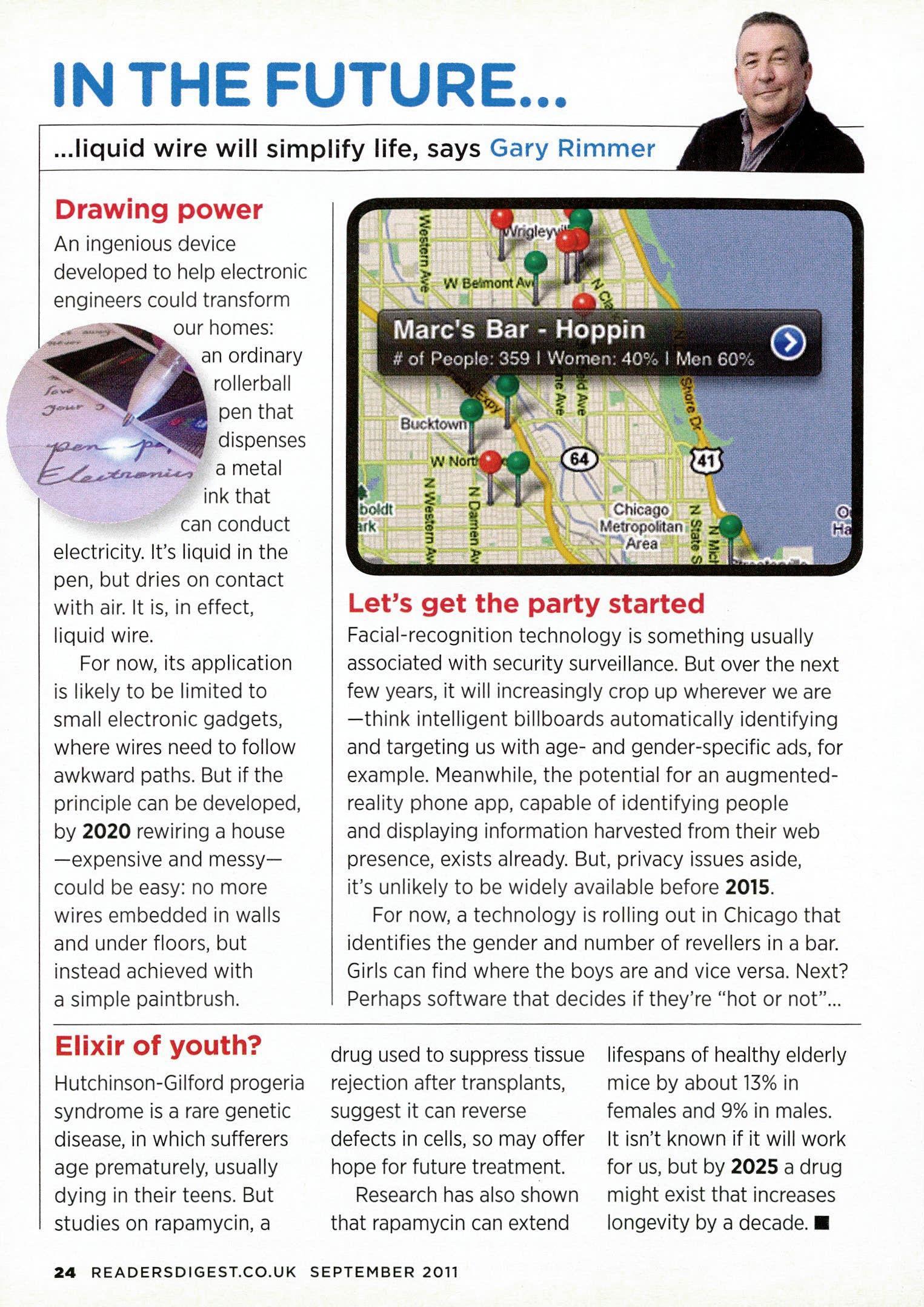
Let's get the party started
Facial-recognition technology is something usually associated with security surveillance. But over the next few years, it will increasingly crop up wherever we are —think intelligent billboards automatically identifying and targeting us with age- and gender-specific ads, for example. Meanwhile, the potential for an augmentedreality phone app, capable of identifying people and displaying information harvested from their web presence, exists already. But, privacy issues aside, it's unlikely to be widely available before 2015.
For now, a technology is rolling out in Chicago that identifies the gender and number of revellers in a bar. Girls can find where the boys are and vice versa. Next? Perhaps software that decides if they're "hot or not"...
drug used to suppress tissue rejection after transplants, suggest it can reverse defects in cells, so may offer hope for future treatment. Research has also shown that rapamycin can extend
lifespans of healthy elderly mice by about 13% in females and 9% in males. It isn't known if it will work for us, but by 2025 a drug might exist that increases longevity by a decade. •
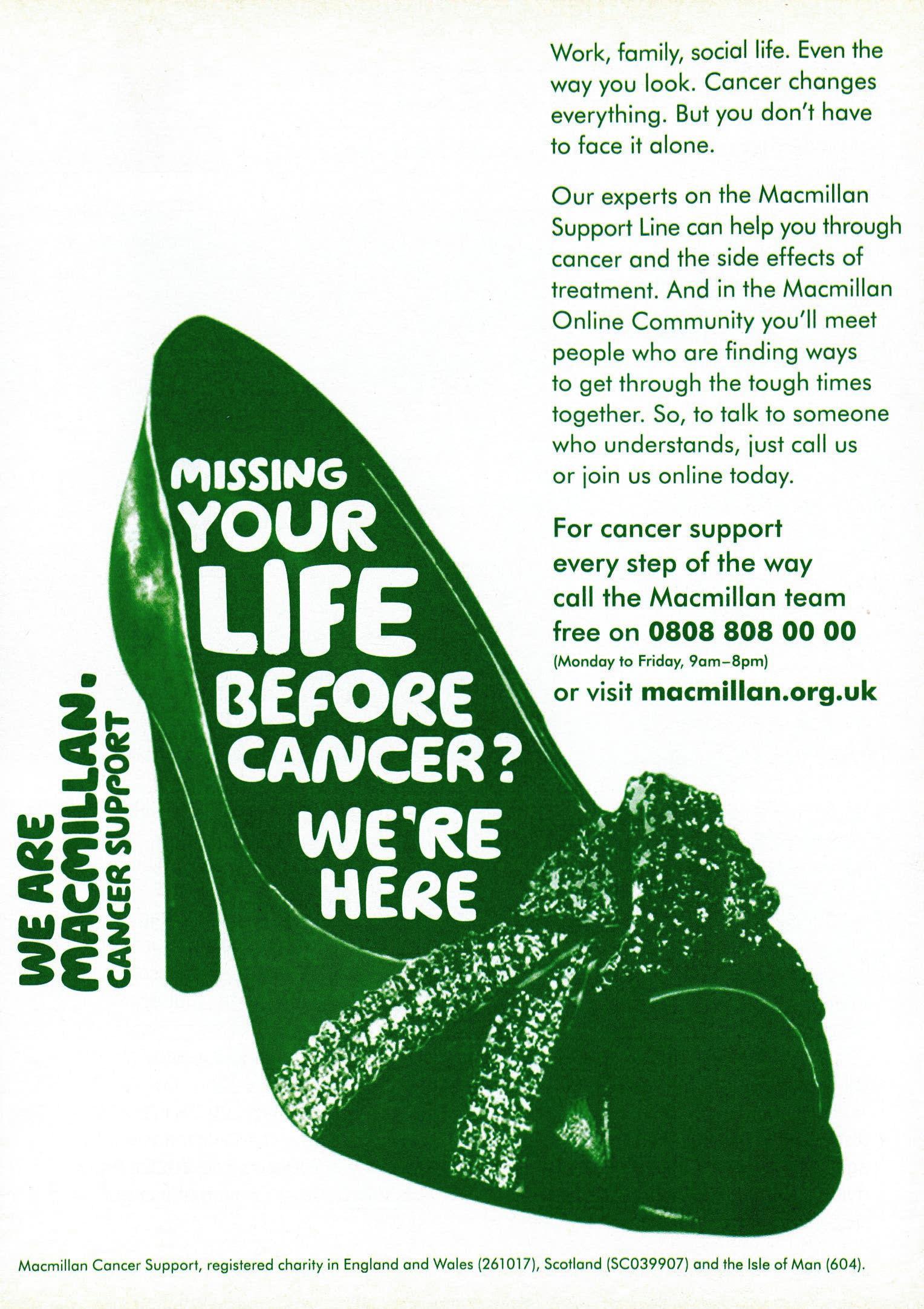
Work, family, social life. Even the way you look. Cancer changes everything. But you don't have to face it alone.
Our experts on the Macmillan Support Line can help you through cancer and the side effects of treatment. And in the Macmillan Online Community you'll meet people who are finding ways to get through the tough times together. So, to talk to someone who understands, just call us or join us online today.
For cancer support every step of the way call the Macmillan team free on 0808 808 00 00 (Monday to Friday, 9am-8pm) or visit macmillan.org.uk
INSTANT EXPERT
Harry Mount reveals the facts behind the news
The seventh Rugby World Cup kicks off on September 9 in New Zealand, home to the most famous rugby team in history—the All Blacks.
Who's taking part?
England, the 2007 runners-up, and Scotland are in the same group, alongside Romania, Georgia and Argentina. Ireland face Italy, Australia, America and Russia. Wales come up against Namibia, Samoa, Fiji and reigning champions South Africa.
Why is rugby so big in New Zealand?
The All Blacks, the top seeds, have been the number one international rugby team longer than all other countries combined; have scored more points than anyone else; and have an overall winning record against all other countries. In the past 100 years, they have only been beaten by five of the top 20 international teams, and they also won the first World Cup, held on their home soil 24 years ago.
The sport was introduced to New Zealand in the 1860s. By the early 20th century, the national team were showing their excellence; they lost only one game on their first British tour in 1905. When they returned in 1924, they were unbeaten and became
known as "The Invincibles". England didn't beat New Zealand until 1936, when Alexander Obolensky, a Russian prince who played for England, scored two first-half tries.
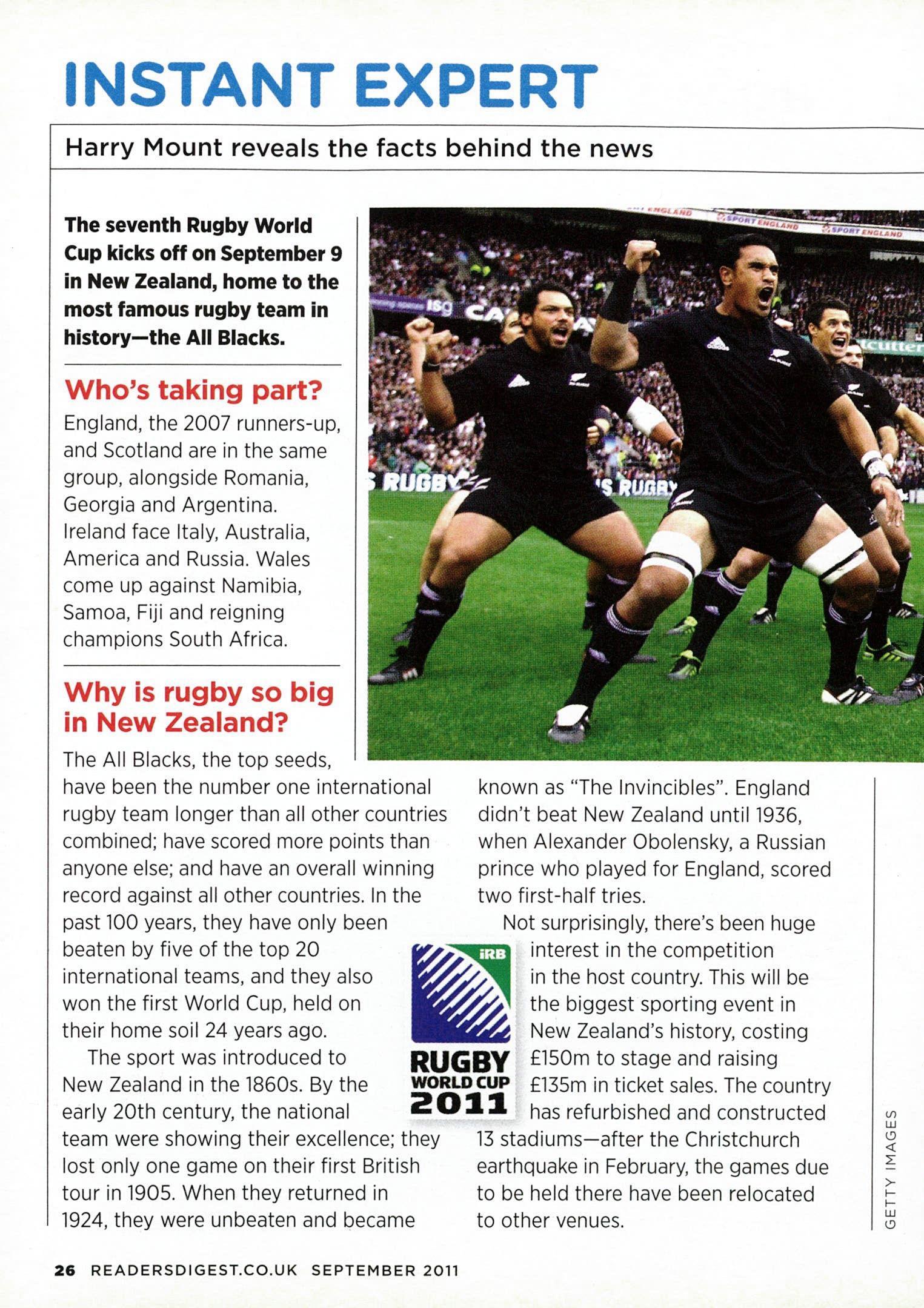
RUG WORLD 20 BY CUP 11
Not surprisingly, there's been huge interest in the competition in the host country. This will be the biggest sporting event in New Zealand's history, costing £150m to stage and raising £135m in ticket sales. The country has refurbished and constructed 13 stadiums—after the Christchurch earthquake in February, the games due to be held there have been relocated to other venues.
Rugby World Cup 2011
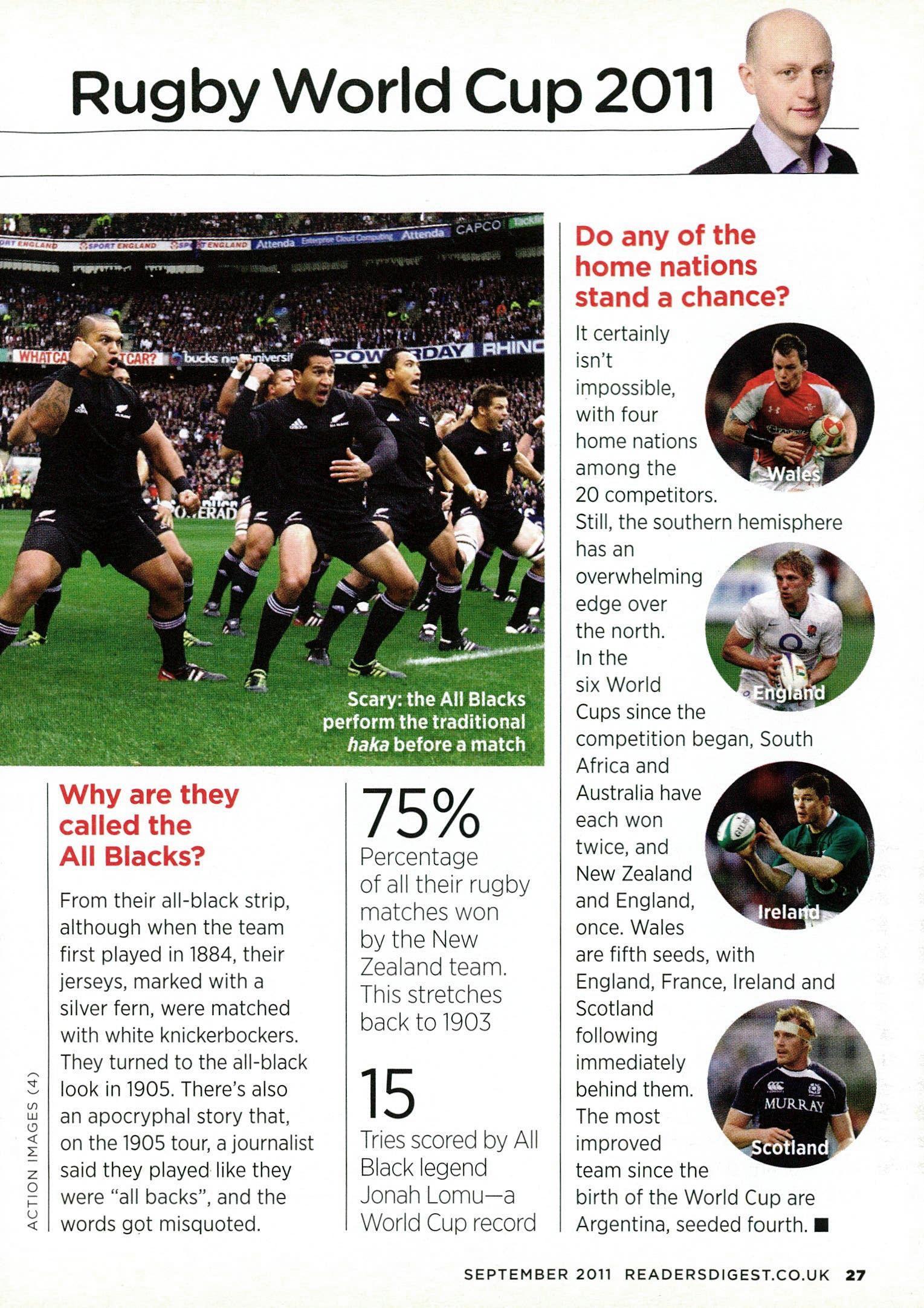
Why are they called the All Blacks?
From their all-black strip, although when the team first played in 1884, their jerseys, marked with a silver fern, were matched with white knickerbockers. They turned to the all-black look in 1905. There's also an apocryphal story that, on the 1905 tour, a journalist said they played like they were "all backs", and the words got misquoted.
Scary: the All Blacks perform the traditional haka before a match
75% Percentage of all their rugby matches won by the New Zealand team. This stretches back to 1903
15
Tries scored by All Black legend Jonah Lomu—a World Cup record
Do any of the home nations stand a chance?
It certainly isn't impossible, with four home nations among the 20 competitors.
Still, the southern hemisphere has an overwhelming edge over the north. In the six World Cups since the competition began, South Africa and Australia have each won twice, and New Zealand and England, once. Wales are fifth seeds, with England, France, Ireland and Scotland following immediately behind them. The most improved team since the birth of the World Cup are Argentina, seeded fourth. ■
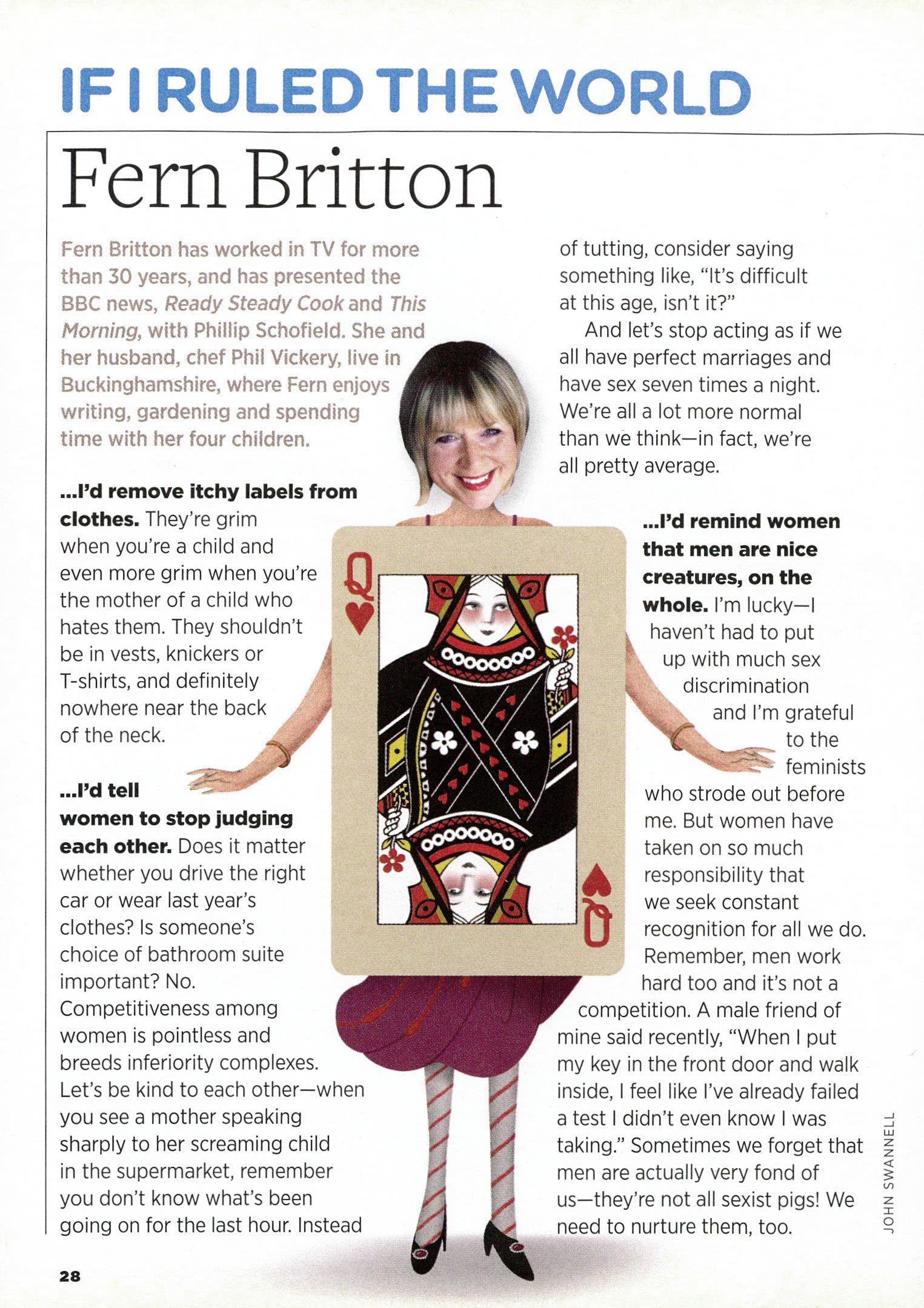
IF I RULED THE WORLD Fern Britton
Fern Britton has worked in TV for more than 30 years, and has presented the BBC news, Ready Steady Cook and This Morning, with Phillip Schofield. She and her husband, chef Phil Vickery, live in Buckinghamshire, where Fern enjoys writing, gardening and spending time with her four children.
...I'd remove itchy labels from clothes. They're grim when you're a child and even more grim when you're the mother of a child who hates them. They shouldn't be in vests, knickers or T-shirts, and definitely nowhere near the back of the neck.
...I'd tell women to stop judging each other. Does it matter whether you drive the right car or wear last year's clothes? Is someone's choice of bathroom suite important? No. Competitiveness among women is pointless and breeds inferiority complexes. Let's be kind to each other—when you see a mother speaking sharply to her screaming child in the supermarket, remember you don't know what's been going on for the last hour. Instead
of tutting, consider saying something like, "It's difficult at this age, isn't it?"
And let's stop acting as if we all have perfect marriages and have sex seven times a night. We're all a lot more normal than we think—in fact, we're all pretty average.
...I'd remind women that men are nice creatures, on the whole. I'm lucky—I haven't had to put up with much sex discrimination and I'm grateful (.411111M to the feminists who strode out before me. But women have taken on so much responsibility that we seek constant recognition for all we do. Remember, men work hard too and it's not a competition. A male friend of mine said recently, "When I put my key in the front door and walk inside, I feel like I've already failed a test I didn't even know I was taking." Sometimes we forget that men are actually very fond of us—they're not all sexist pigs! We need to nurture them, too.
...I'd give men some inside information. For example, it's better to tell your partner you'll be home at midnight, then get back two hours early, than to say you'll be there at 8pm but be two hours late. And when we ask you for the second or third time to put out the rubbish, we aren't nagging—we're just wondering if you might have forgotten!
...I wouldn't allow the media to run a story unless it was 100 per cent factually correct. So much of the media is about making money, and gossipy, salacious stories sell. But if I ruled the world, there would be no more fudging around with "possible" this or "apparently" that—only the truth will do. The days of simply having a photograph and making up a story around it would end.
...I'd ask teachers to set less homework. Spelling, reading and times tables can be done around the kitchen table, but hours of it each night is tough on the whole family. When I see my children getting frustrated over work and I can't help them with it, I say, "Why don't you come and watch Coronation Street and have a cup of tea?" Children
tt Forget bad weaves and toupees, gentlemen! You're fabulous just as youare ,,
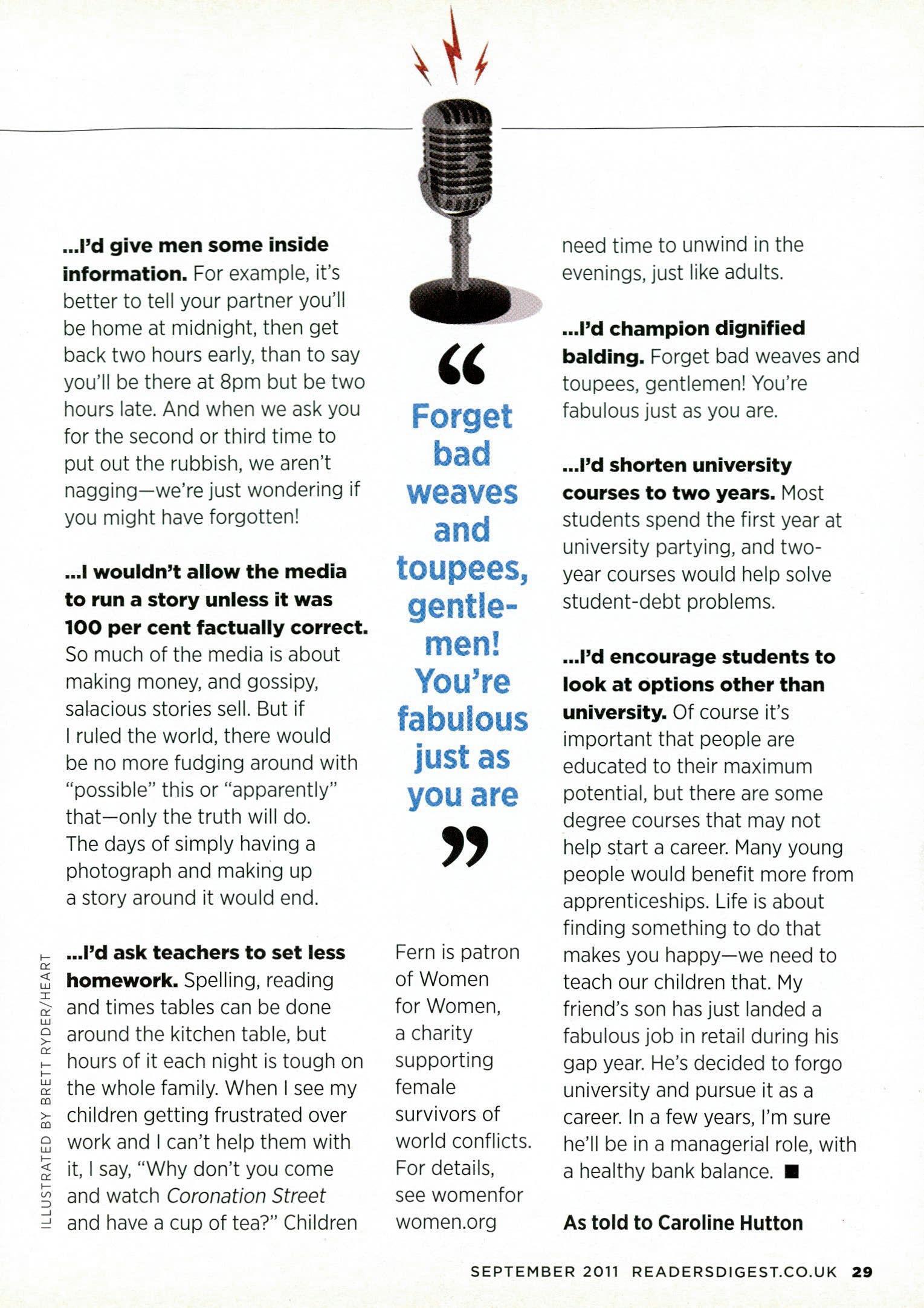
Fern is patron of Women for Women, a charity supporting female survivors of world conflicts. For details, see womenfor women.org
need time to unwind in the evenings, just like adults.
...I'd champion dignified balding. Forget bad weaves and toupees, gentlemen! You're fabulous just as you are.
...I'd shorten university courses to two years. Most students spend the first year at university partying, and twoyear courses would help solve student-debt problems.
...I'd encourage students to look at options other than university.Of course it's important that people are educated to their maximum potential, but there are some degree courses that may not help start a career. Many young people would benefit more from apprenticeships. Life is about finding something to do that makes you happy—we need to teach our children that. My friend's son has just landed a fabulous job in retail during his gap year. He's decided to forgo university and pursue it as a career. In a few years, I'm sure he'll be in a managerial role, with a healthy bank balance. •
As told to Caroline Hutton
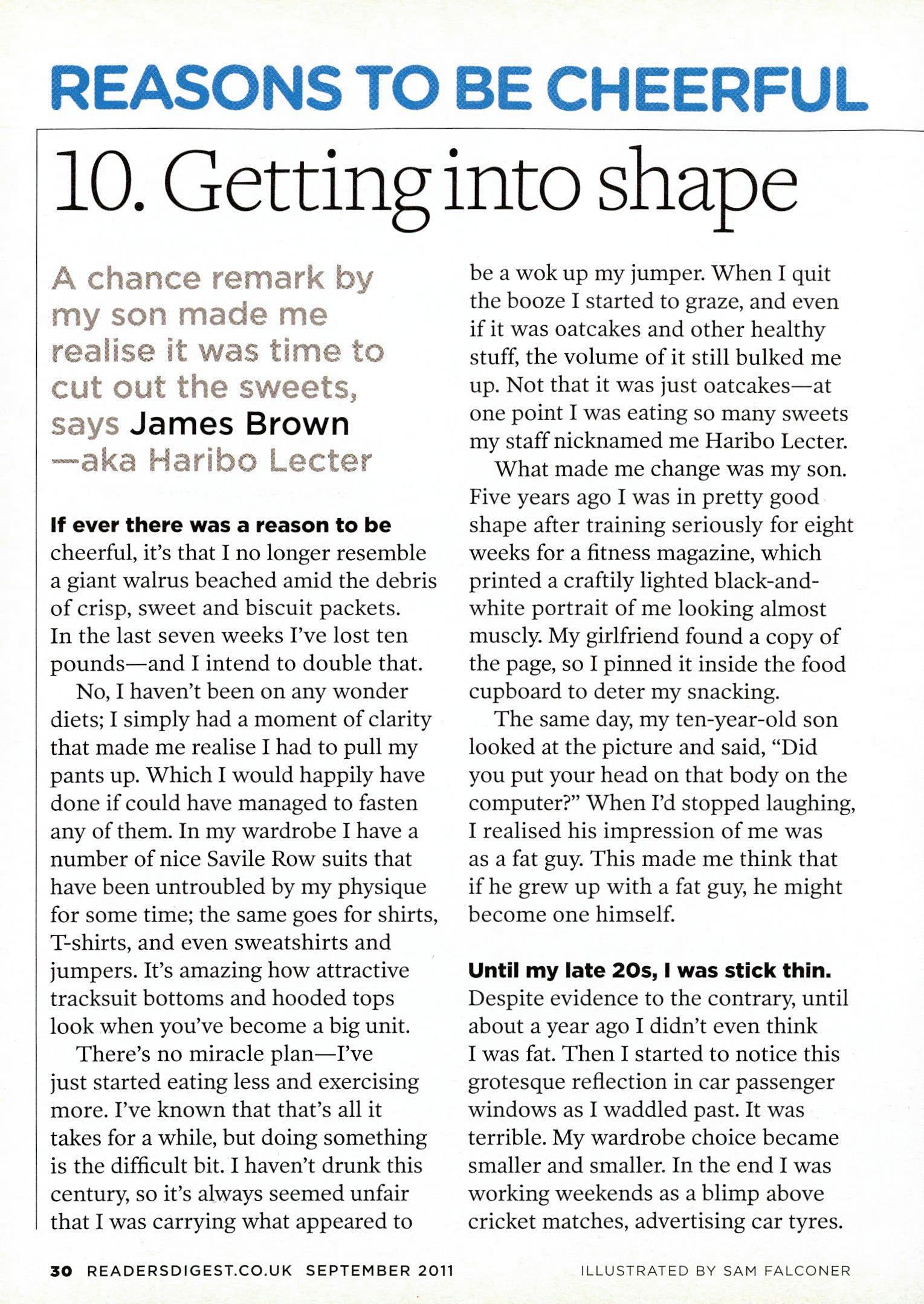
REASONS TO BE CHEERFUL
10. Getting into shape
A chance rernark oy my son made me realise it was time to cut out the sweets, says James Brown —aka Haribo Lecter
If ever there was a reason to be cheerful, it's that I no longer resemble a giant walrus beached amid the debris of crisp, sweet and biscuit packets. In the last seven weeks I've lost ten pounds—and I intend to double that. No, I haven't been on any wonder diets; I simply had a moment of clarity that made me realise I had to pull my pants up. Which I would happily have done if could have managed to fasten any of them. In my wardrobe I have a number of nice Savile Row suits that have been untroubled by my physique for some time; the same goes for shirts, T-shirts, and even sweatshirts and jumpers. It's amazing how attractive tracksuit bottoms and hooded tops look when you've become a big unit.
There's no miracle plan—I've just started eating less and exercising more. I've known that that's all it takes for a while, but doing something is the difficult bit. I haven't drunk this century, so it's always seemed unfair that I was carrying what appeared to
be a wok up my jumper. When I quit the booze I started to graze, and even if it was oatcakes and other healthy stuff, the volume of it still bulked me up. Not that it was just oatcakes—at one point I was eating so many sweets my staff nicknamed me Haribo Lecter. What made me change was my son. Five years ago I was in pretty good shape after training seriously for eight weeks for a fitness magazine, which printed a craftily lighted black-andwhite portrait of me looking almost muscly. My girlfriend found a copy of the page, so I pinned it inside the food cupboard to deter my snacking.
The same day, my ten-year-old son looked at the picture and said, "Did you put your head on that body on the computer?" When I'd stopped laughing, I realised his impression of me was as a fat guy. This made me think that if he grew up with a fat guy, he might become one himself.
Until my late 20s, I was stick thin. Despite evidence to the contrary, until about a year ago I didn't even think I was fat. Then I started to notice this grotesque reflection in car passenger windows as I waddled past. It was terrible. My wardrobe choice became smaller and smaller. In the end I was working weekends as a blimp above cricket matches, advertising car tyres.
If my son's ridicule was the stick that beat me into life, my planned trip to the Himalayas next month is the carrot. Two friends and I are going to stay at a friend's hotel, the Eagle's Nest in Dharamshala, India. I've been up that way once before, and the thought of hiking so high above sea level, carrying what amounts to
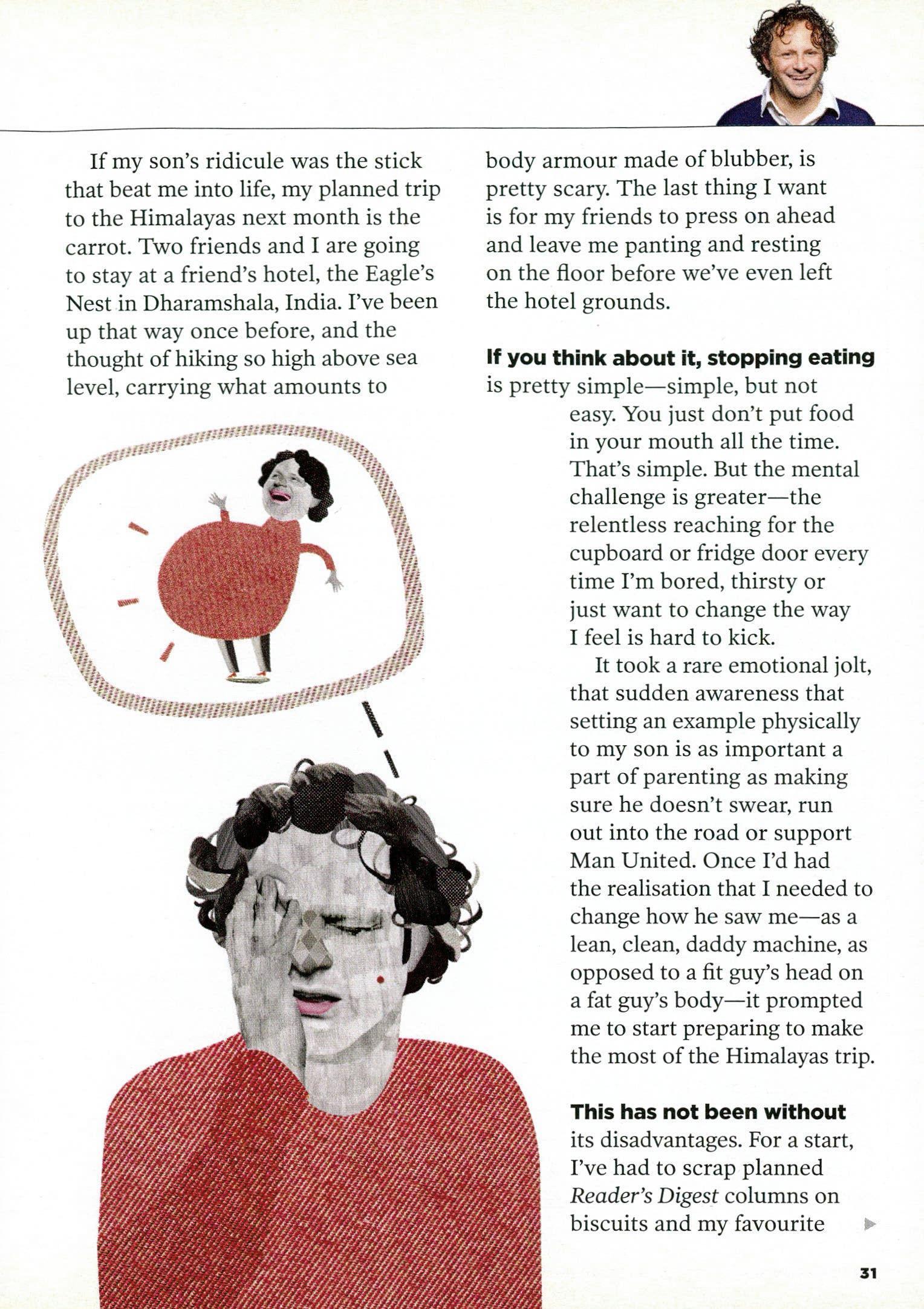
body armour made of blubber, is pretty scary. The last thing I want is for my friends to press on ahead and leave me panting and resting on the floor before we've even left the hotel grounds.
If you think about it, stopping eating is pretty simple—simple, but not easy. You just don't put food in your mouth all the time. That's simple. But the mental challenge is greater—the relentless reaching for the cupboard or fridge door every time I'm bored, thirsty or just want to change the way I feel is hard to kick. It took a rare emotional jolt, that sudden awareness that setting an example physically to my son is as important a part of parenting as making sure he doesn't swear, run out into the road or support Man United. Once I'd had the realisation that I needed to change how he saw me—as a lean, clean, daddy machine, as opposed to a fit guy's head on a fat guy's body—it prompted me to start preparing to make the most of the Himalayas trip.
This has not been without its disadvantages. For a start, I've had to scrap planned Reader's Digest columns on biscuits and my favourite
gg I needed to change how my son saw me— as a lean, clean, daddy machine, as opposed to a fit guy's head on a fat guy's body
4 sweetshop. I've also dragged myself back to my gym where Fred and Abby, a husband-and-wife fitness team, dish out such punishments as the Plank, which is repeated 30-second shifts of supporting your whole body on your forearms and toes while keeping your stomach taut and your bottom flat.
But the truth is I feel better in myself; I'm glad I've broken the
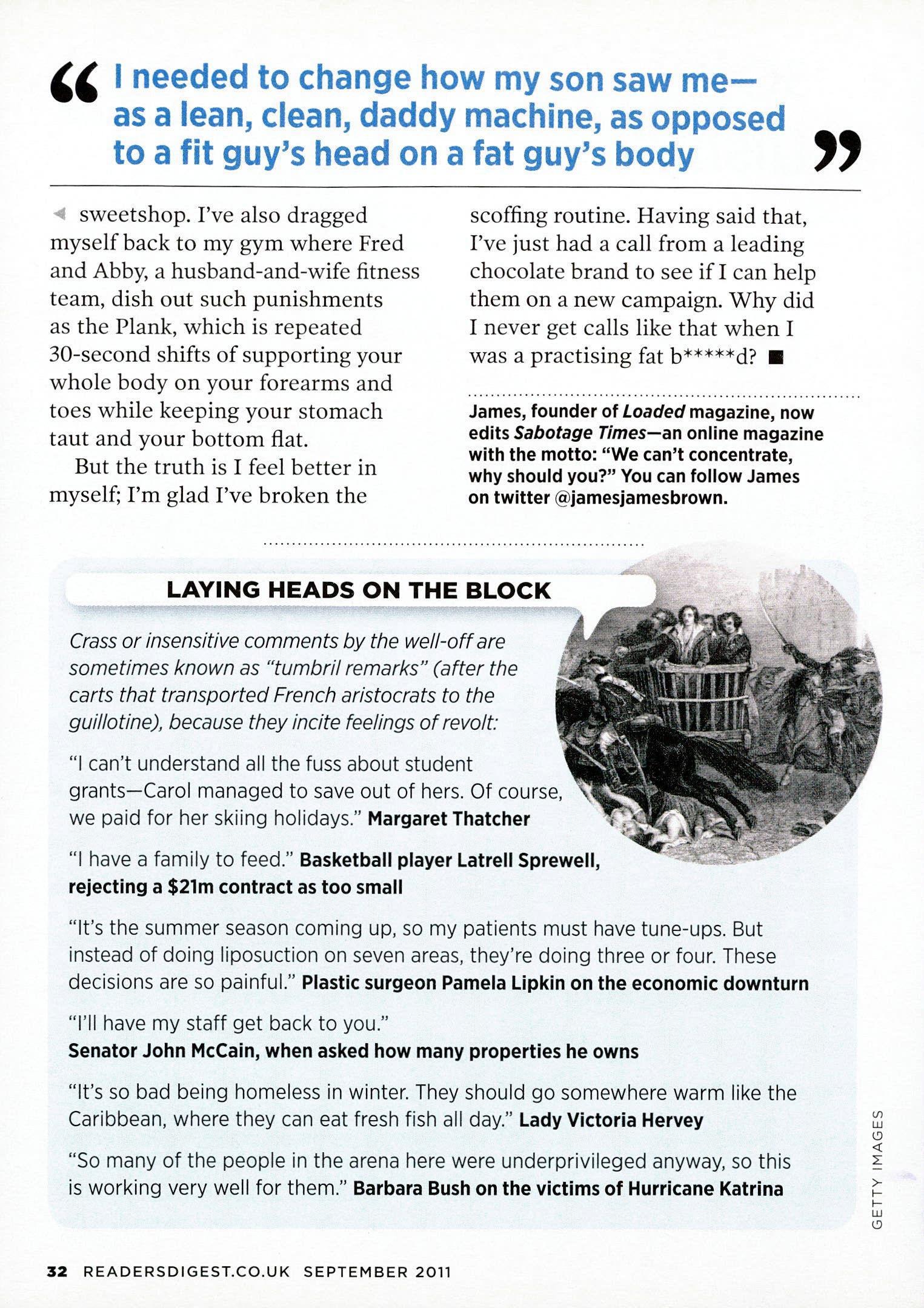
scoffing routine. Having said that, I've just had a call from a leading chocolate brand to see if I can help them on a new campaign. Why did I never get calls like that when I was a practising fat b*****d? ■
James, founder ofLoaded magazine, now edits Sabotage Times—an online magazine with the motto: "We can't concentrate, why should you?" You can follow James on twitter @jamesjamesbrown.
LAYING HEADS ON THE BLOCK
Crass or insensitive comments by the well-off are sometimes known as "tumbril remarks" (after the carts that transported French aristocrats to the guillotine), because they incite feelings of revolt:
"I can't understand all the fuss about student grants—Carol managed to save out of hers. Of course, we paid for her skiing holidays." Margaret Thatcher
"I have a family to feed." Basketball player Latrell Sprewell, rejecting a $21m contract as too small
"It's the summer season coming up, so my patients must have tune-ups. But instead of doing liposuction on seven areas, they're doing three or four. These decisions are so painful." Plastic surgeon Pamela Lipkin on the economic downturn
"I'll have my staff get back to you."
Senator John McCain, when asked how many properties he owns
"It's so bad being homeless in winter. They should go somewhere warm like the Caribbean, where they can eat fresh fish all day." Lady Victoria Hervey
"So many of the people in the arena here were underprivileged anyway, so this is working very well for them." Barbara Bush on the victims of Hurricane Katrina
River as Cruise

• Biggest ever collection of award-winning river cruise holidays across Europe & beyond
• 4 exclusively chartered ships in 2012
• Shearings Tour Manager on many sailings
• Optional extended city breaks
Plus save up to 10% off all 2012 river cruise holidays with our early booking offer
SE DIRECT FROM THE UK IN 2012
• All gratuities and service charges included
• Complimentary Cruise Connect transfer service to your departure port
• FREE parking at the port or a Shearings Interchange
• Itineraries taking in the very best of Europe Plus save up to 15% on all 2012
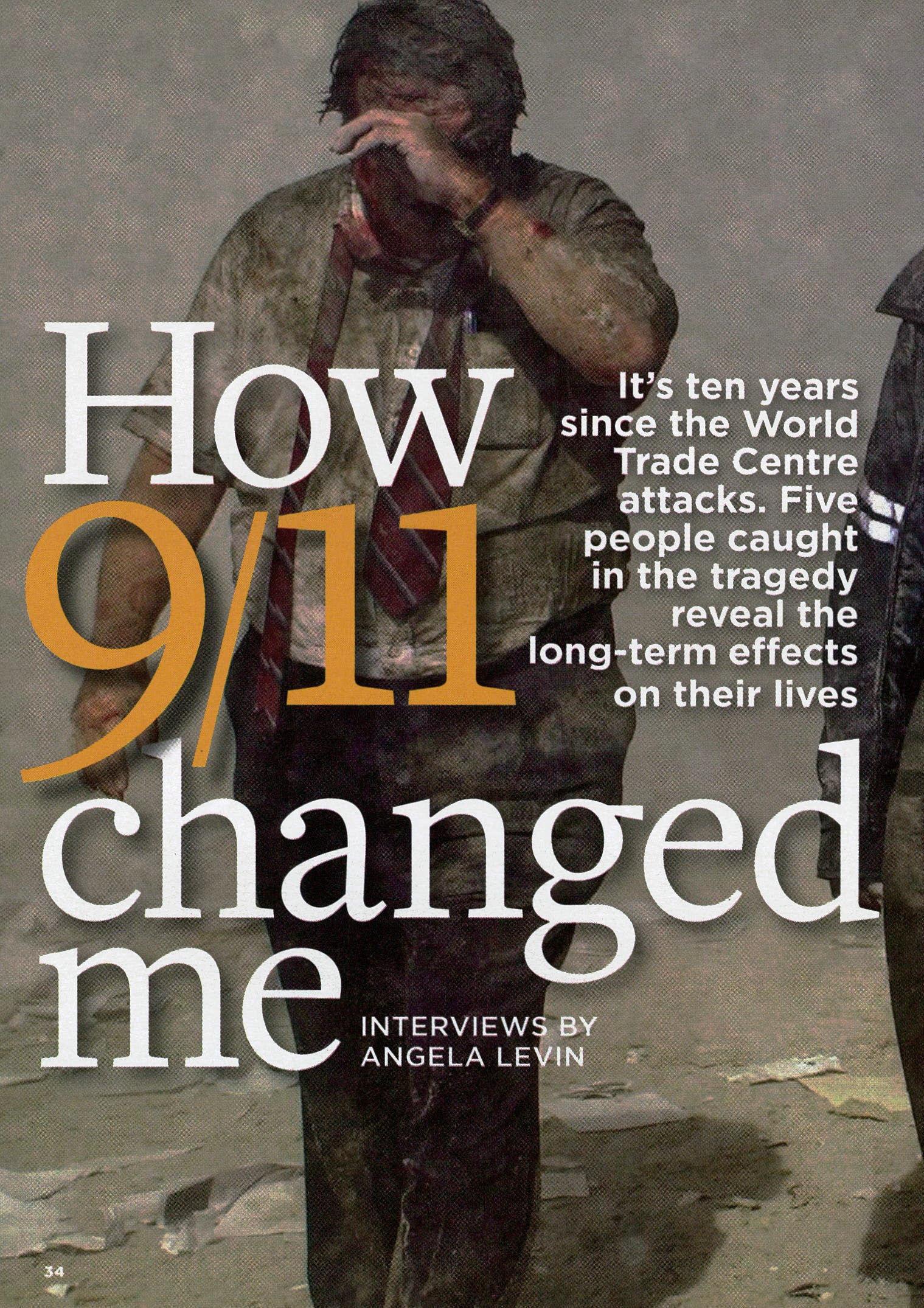
How
It's ten years since the World Trade Centre attacks. Five thy people caught in the tragedy reveal the long-term effects on their lives
changed me
INTERVIEWS BY ANGELA LEVIN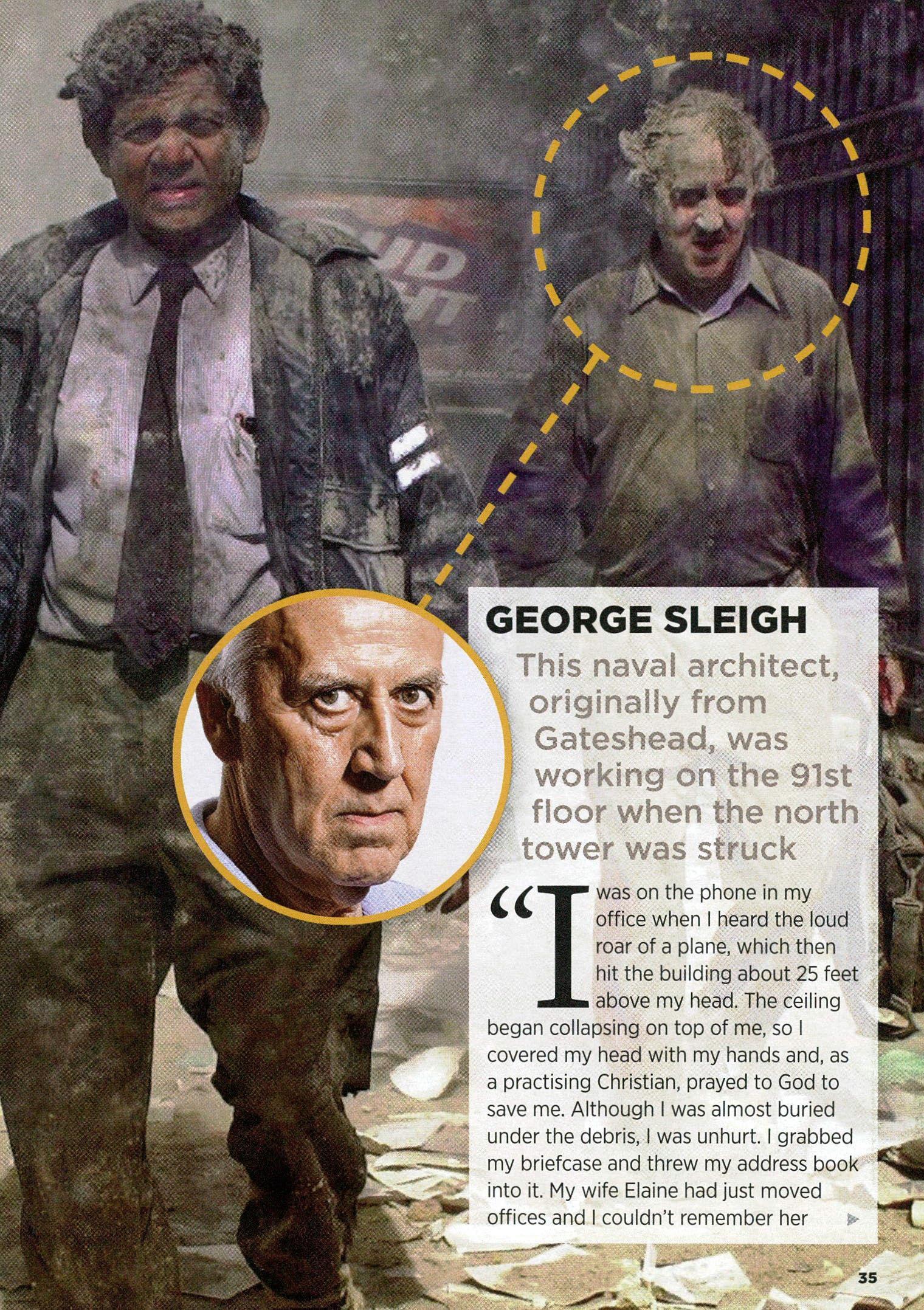
GEORGE SLEIGH
This naval archrect, originally from Gateshead, was working on the 91st floor when the north fr,wer was struck
441was on the phone in my office when I heard the loud roar of a plane, which then hit the building about 25 feet above my head. The ceiling began collapsing on top of me, so I covered my head with my hands and, as a practising Christian, prayed to God to save me. Although I was almost buried under the debris, I was unhurt. I grabbed my briefcase and threw my address book into it. My wife Elaine had just moved offices and I couldn't remember her
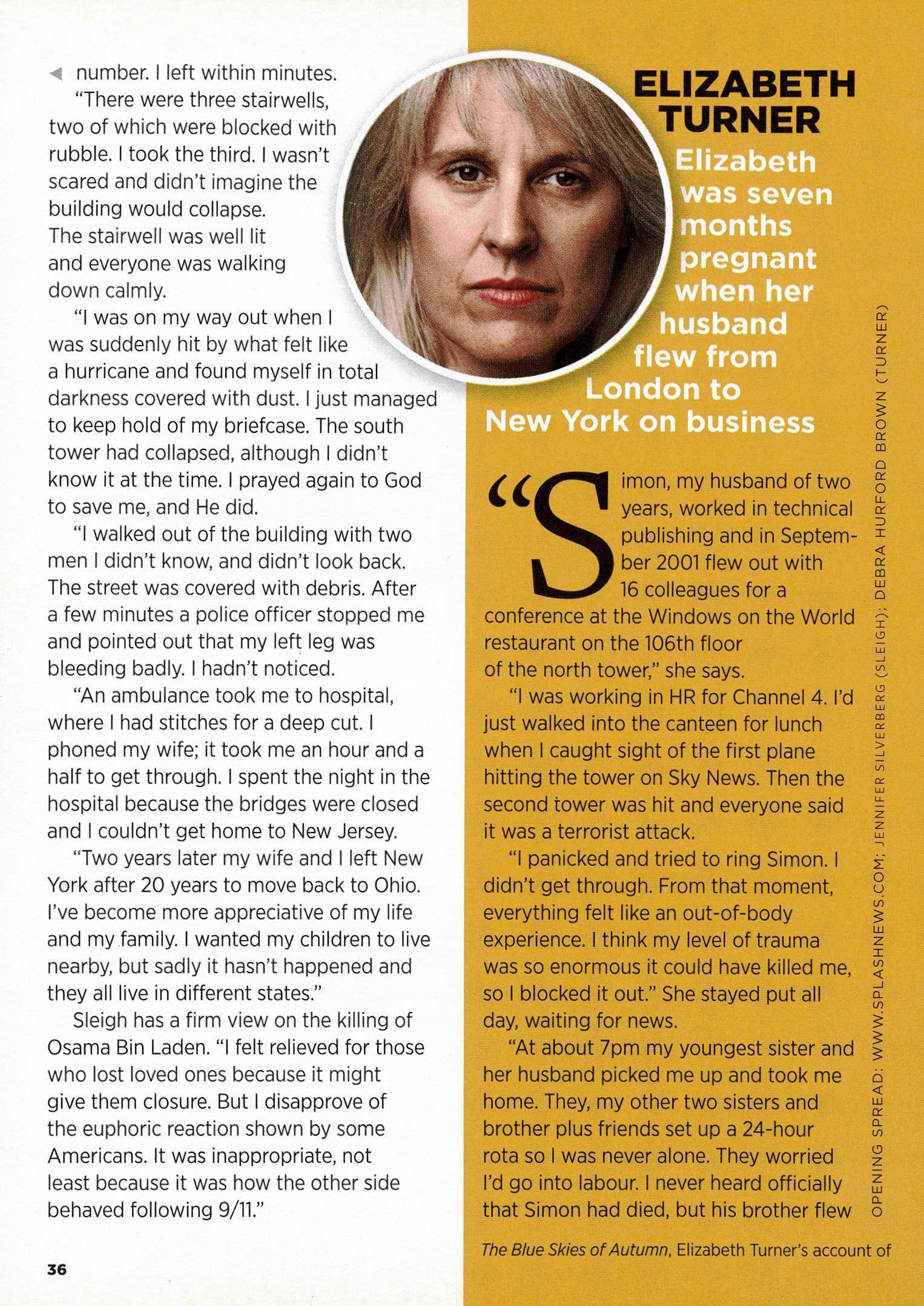
4 number. I left within minutes.
"There were three stairwells, two of which were blocked with rubble. I took the third. I wasn't scared and didn't imagine the building would collapse. The stairwell was well lit and everyone was walking down calmly.
"I was on my way out when I was suddenly hit by what felt like a hurricane and found myself in total darkness covered with dust. I just managed to keep hold of my briefcase. The south tower had collapsed, although I didn't know it at the time. I prayed again to God to save me, and He did.
"I walked out of the building with two men I didn't know, and didn't look back. The street was covered with debris. After a few minutes a police officer stopped me and pointed out that my left leg was bleeding badly. I hadn't noticed.
"An ambulance took me to hospital, where I had stitches for a deep cut. I phoned my wife; it took me an hour and a half to get through. I spent the night in the hospital because the bridges were closed and I couldn't get home to New Jersey.
"Two years later my wife and I left New York after 20 years to move back to Ohio. I've become more appreciative of my life and my family. I wanted my children to live nearby, but sadly it hasn't happened and they all live in different states."
Sleigh has a firm view on the killing of Osama Bin Laden. "I felt relieved for those who lost loved ones because it might give them closure. But I disapprove of the euphoric reaction shown by some Americans. It was inappropriate, not least because it was how the other side behaved following 9/11."
ELIZABETH TURNERwas seven huS an flew fro London to New York on busin
CtSimon, my husband of two years, worked in technical publishing and in September 2001 flew out with 16 colleagues for a conference at the Windows on the World restaurant on the 106th floor of the north tower," she says.
"I was working in HR for Channel 4. I'd just walked into the canteen for lunch when I caught sight of the first plane hitting the tower on Sky News. Then the second tower was hit and everyone said it was a terrorist attack.
"I panicked and tried to ring Simon. I didn't get through. From that moment, everything felt like an out-of-body experience. I think my level of trauma was so enormous it could have killed me, so I blocked it out." She stayed put all day, waiting for news.
"At about 7pm my youngest sister and her husband picked me up and took me home. They, my other two sisters and brother plus friends set up a 24-hour rota so I was never alone. They worried I'd go into labour. I never heard officially that Simon had died, but his brother flew
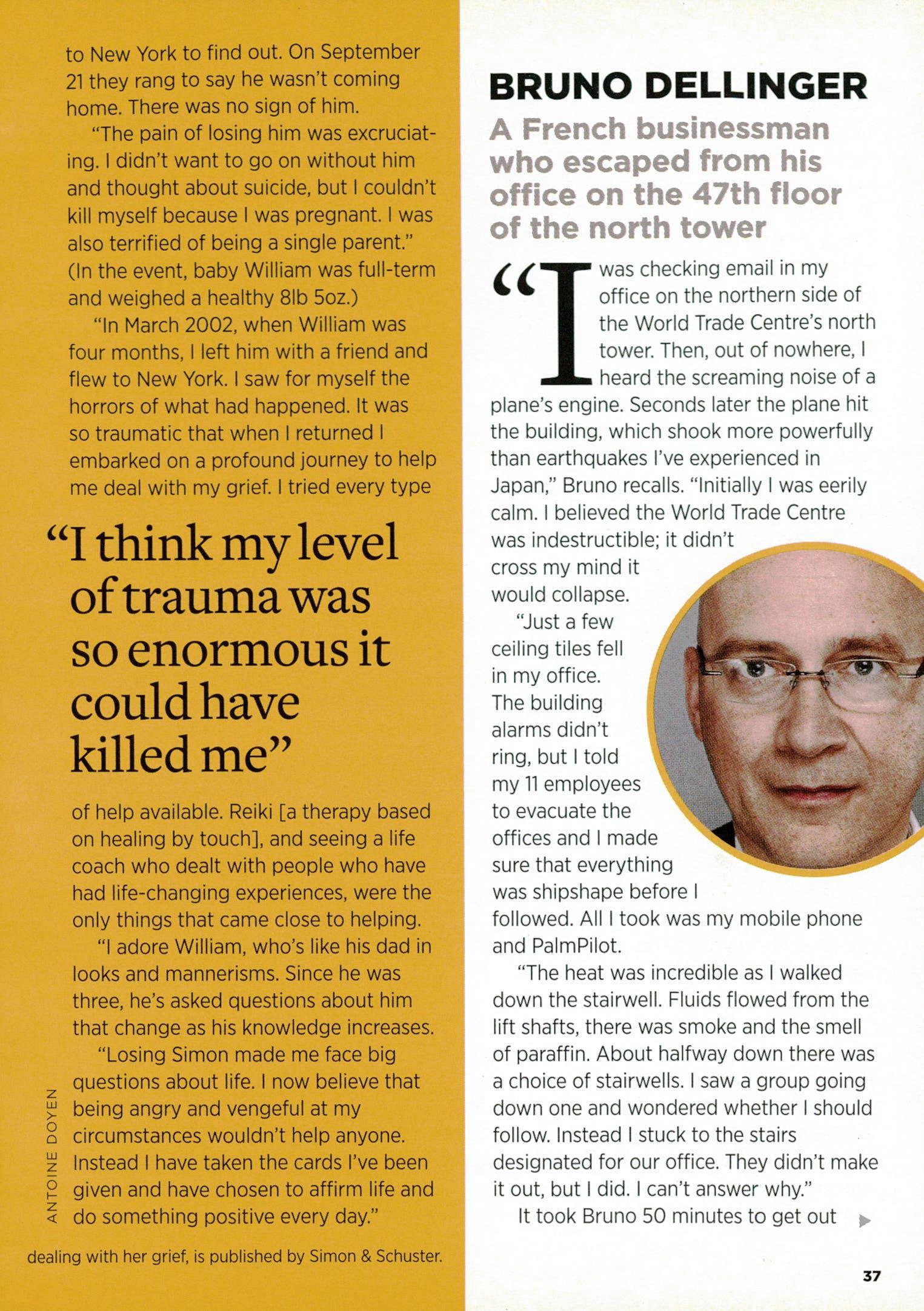
to New York to find out. On September 21 they rang to say he wasn't coming home. There was no sign of him.
"The pain of losing him was excruciat ing. I didn't want to go on without him and thought about suicide, but I couldn' kill myself because I was pregnant. I wa also terrified of being a single parent." (In the event, baby William was full-term and weighed a healthy 81b 5oz.)
"In March 2002, when William was four months, I left him with a friend and flew to New York. I saw for myself the horrors of what had happened. It was ell so traumatic that when I returned I embarked on a profound journey to help me deal with my grief. I tried every type or
"I think my level of trauma was so enormous it could have killed me"
of help available. Reiki [a therapy based on healing by touch], and seeing a life coach who dealt with people who have had life-changing experiences, were the only things that came close to helping.
"I adore William, who's like his dad in looks and mannerisms. Since he was three, he's asked questions about him that change as his knowledge increases.
"Losing Simon made me face big questions about life. I now believe that being angry and vengeful at my circumstances wouldn't help anyone. Instead I have taken the cards I've been given and have chosen to affirm life and do something positive every day." dealing with her grief, is published by Simon & Schuster.
BRUNO DELLINGER
A French businessman who escaped from his office on the 47th floor of the north tower
was checking email in my office on the northern side of the World Trade Centre's north tower. Then, out of nowhere, I heard the screaming noise of a plane's engine. Seconds later the plane hit the building, which shook more powerfully than earthquakes I've experienced in Japan," Bruno recalls. "Initially I was eerily calm. I believed the World Trade Centre was indestructible; it didn't cross my mind it would collapse.
"Just a few ceiling tiles fell in my office. The building alarms didn't ring, but I told my 11 employees to evacuate the offices and I made sure that everything was shipshape before I followed. All I took was my mobile phone and PalmPilot.
"The heat was incredible as I walked down the stairwell. Fluids flowed from the lift shafts, there was smoke and the smell of paraffin. About halfway down there was a choice of stairwells. I saw a group going down one and wondered whether I should follow. Instead I stuck to the stairs designated for our office. They didn't make it out, but I did. I can't answer why."
It took Bruno 50 minutes to get out 0.
4 of the building—seconds before the south tower collapsed. "When it collapsed, everything became darker than night, and the air was so thick with dust and smoke that it blocked all sound. Around me were body parts and people burned to a cinder.
"I no longer felt calm. I thought that I too had died. They were the most dreadful moments of my life. I was covered in dust and I'd lost all concept of time.
"I began walking the two miles home, but my mind kept repeating that I was dead. All I wanted was someone to hug me. After a while I walked into a shop, asked for a glass of water and, although I'd always been the tough guy working in New York, I burst into tears.
"The feeling that I was dead lasted for months," he says. "I could look at anything, from a beautiful girl to a taxi, and yet my brain kept telling me that they weren't real because I was dead.
"I had been deliberately childless, but after the event my wife said that if I had died she would have had nothing left of me, and that she wanted a child.
"Initially I hated humankind so totally that I said no, but as the months passed I realised the world needs innocence, and now we have two children, aged eight and six. They have helped my reconciliation with the human race, but I don't think my wife will ever realise the full impact 9/11 has had on me.
"If I could, I'd live in the woods away from everyone, but I have responsibilities as a father. I left Manhattan, though, and currently work in Paris."
JOSE SALGADO
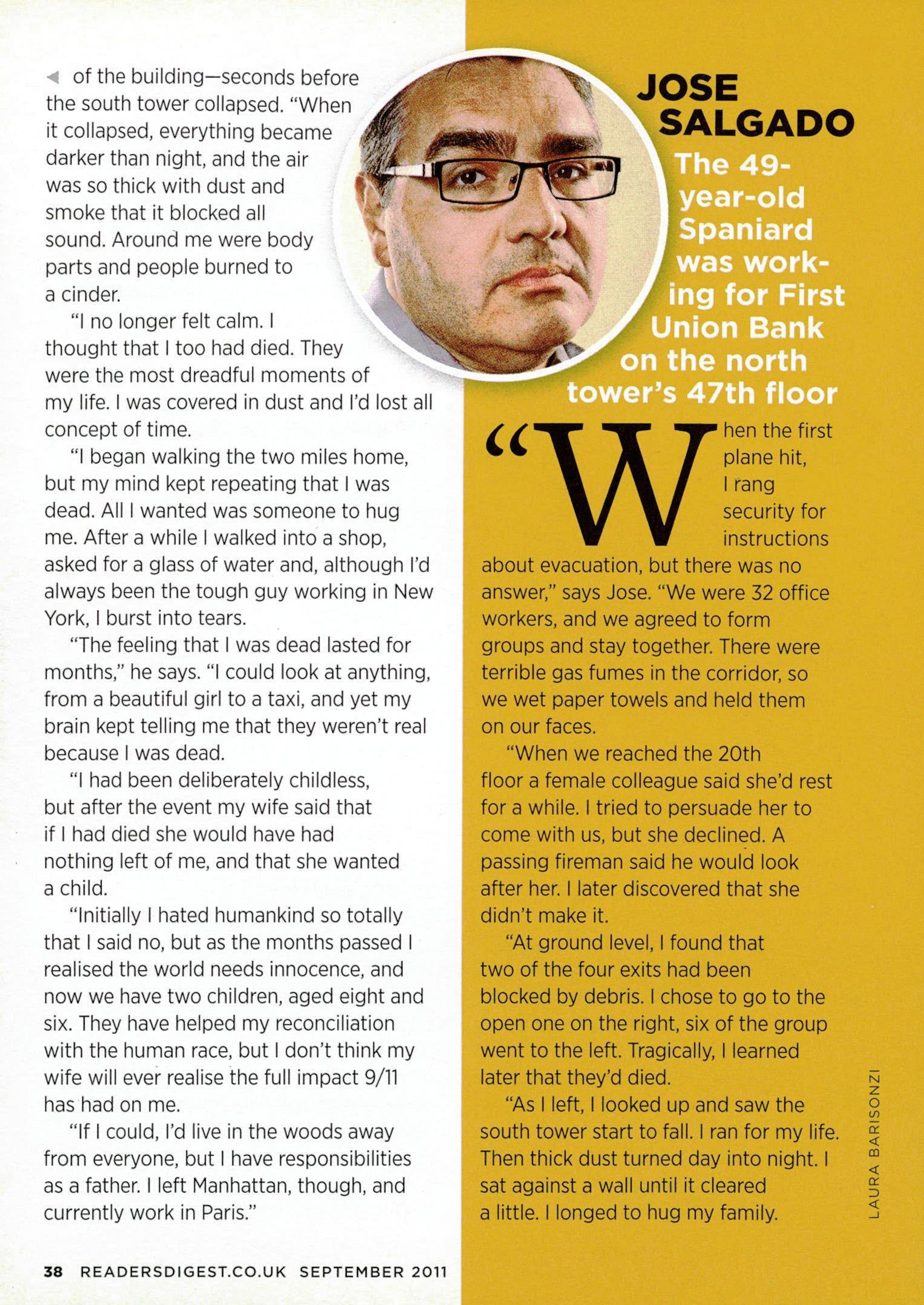
11CCW
hen the first plane hit, I rang security for instructions about evacuation, but there was no answer," says Jose. "We were 32 office workers, and we agreed to form groups and stay together. There were terrible gas fumes in the corridor, so we wet paper towels and held them on our faces.
110 "When we reached the 20th floor a female colleague said she'd rest for a while. I tried to persuade her to come with us, but she declined. A passing fireman said he would look after her. I later discovered that she didn't make it.
"At ground level, I found that two of the four exits had been blocked by debris. I chose to go to the open one on the right, six of the group went to the left. Tragically, I learned later that they'd died.
"As I left, I looked up and saw the south tower start to fall. I ran for my life. Then thick dust turned day into night. I sat against a wall until it cleared a little. I longed to hug my family.
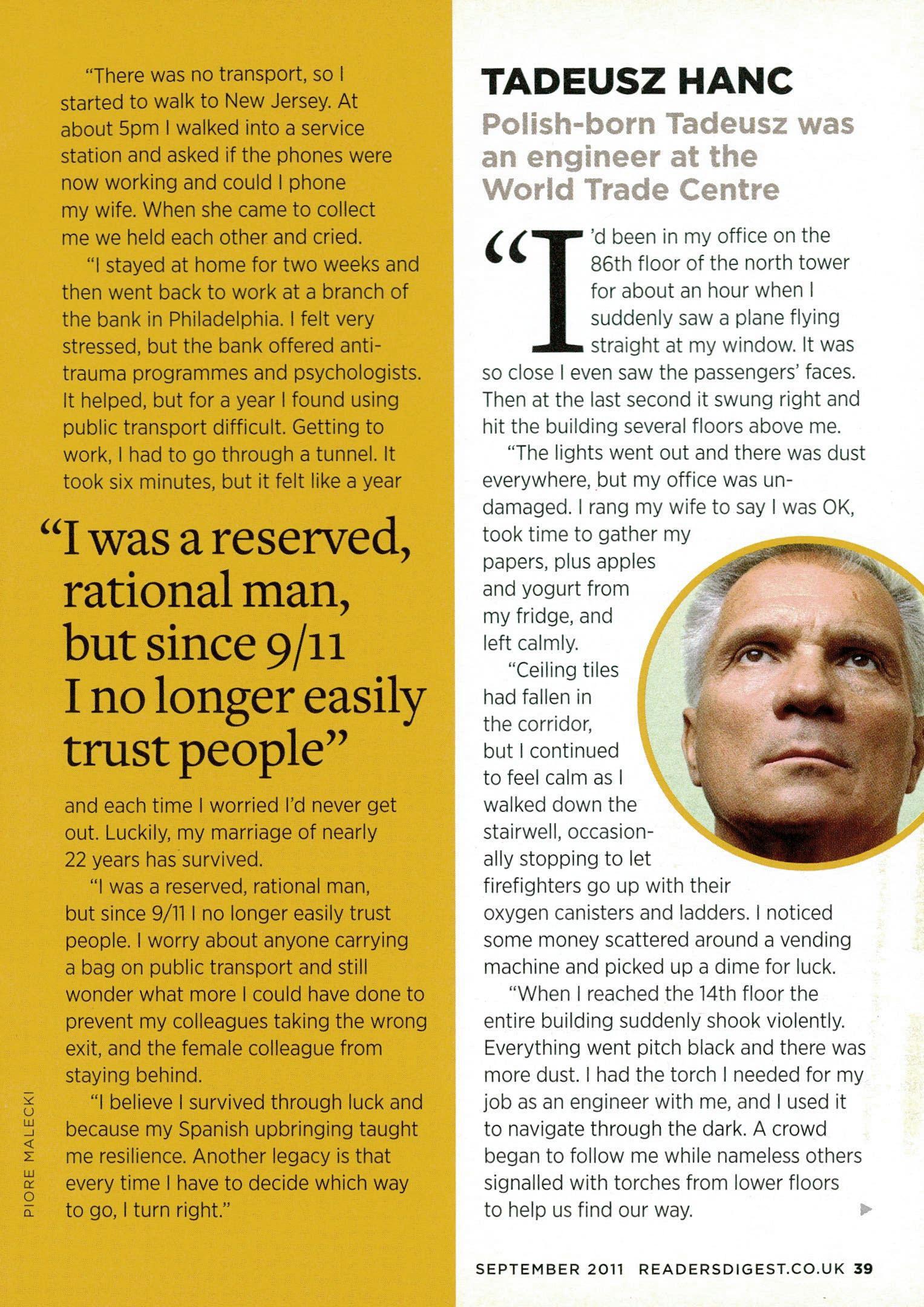
"There was no transport, so I started to walk to New Jersey. At about 5pm I walked into a service station and asked if the phones were now working and could I phone my wife. When she came to collect me we held each other and cried.
"I stayed at home for two weeks and then went back to work at a branch of the bank in Philadelphia. I felt very stressed, but the bank offered antitrauma programmes and psychologists. It helped, but for a year I found using public transport difficult. Getting to work, I had to go through a tunnel. It 41 took six minutes, but it felt like a year
"I was a reserved, rational man, but since9/11 I no longer easily trust people"
and each time I worried I'd never get out. Luckily, my marriage of nearly 22 years has survived.
"I was a reserved, rational man, but since 9/11 I no longer easily trust people. I worry about anyone carrying a bag on public transport and still wonder what more I could have done to prevent my colleagues taking the wrong exit, and the female colleague from staying behind.
"I believe I survived through luck and because my Spanish upbringing taught me resilience. Another legacy is that every time I have to decide which way to go, I turn right."
TADEUSZ HANC
Polish-born Tadeusz was an engineer at the Worf-' Trade Centre 'd been in my office on the 86th floor of the north tower for about an hour when I suddenly saw a plane flying straight at my window. It was so close I even saw the passengers' faces. Then at the last second it swung right and hit the building several floors above me.
"The lights went out and there was dust everywhere, but my office was undamaged. I rang my wife to say I was OK, took time to gather my papers, plus apples and yogurt from my fridge, and left calmly.
"Ceiling tiles had fallen in the corridor, but I continued to feel calm as I walked down the stairwell, occasionally stopping to let firefighters go up with their oxygen canisters and ladders. I noticed some money scattered around a vending machine and picked up a dime for luck.
"When I reached the 14th floor the entire building suddenly shook violently. Everything went pitch black and there was more dust. I had the torch I needed for my job as an engineer with me, and I used it to navigate through the dark. A crowd began to follow me while nameless others signalled with torches from lower floors to help us find our way.
4
"As I left the tower I heard screams and noises like cars crashing into walls. It was people jumping from the tower. Someone told me my shirt was covered in blood. It wasn't mine so it must have been from someone who jumped.
"There was no public transport and I was walking along the Hudson River when I saw the north tower go down. I started running, but my legs gave way. So I sat in the middle of the street, crying. A stranger gave me some water, and then I moved to sit by the river. I stayed looking back at the destruction for hours, trying to get myself together.
"I got home, seven miles from the World Trade Centre, about five hours later. A
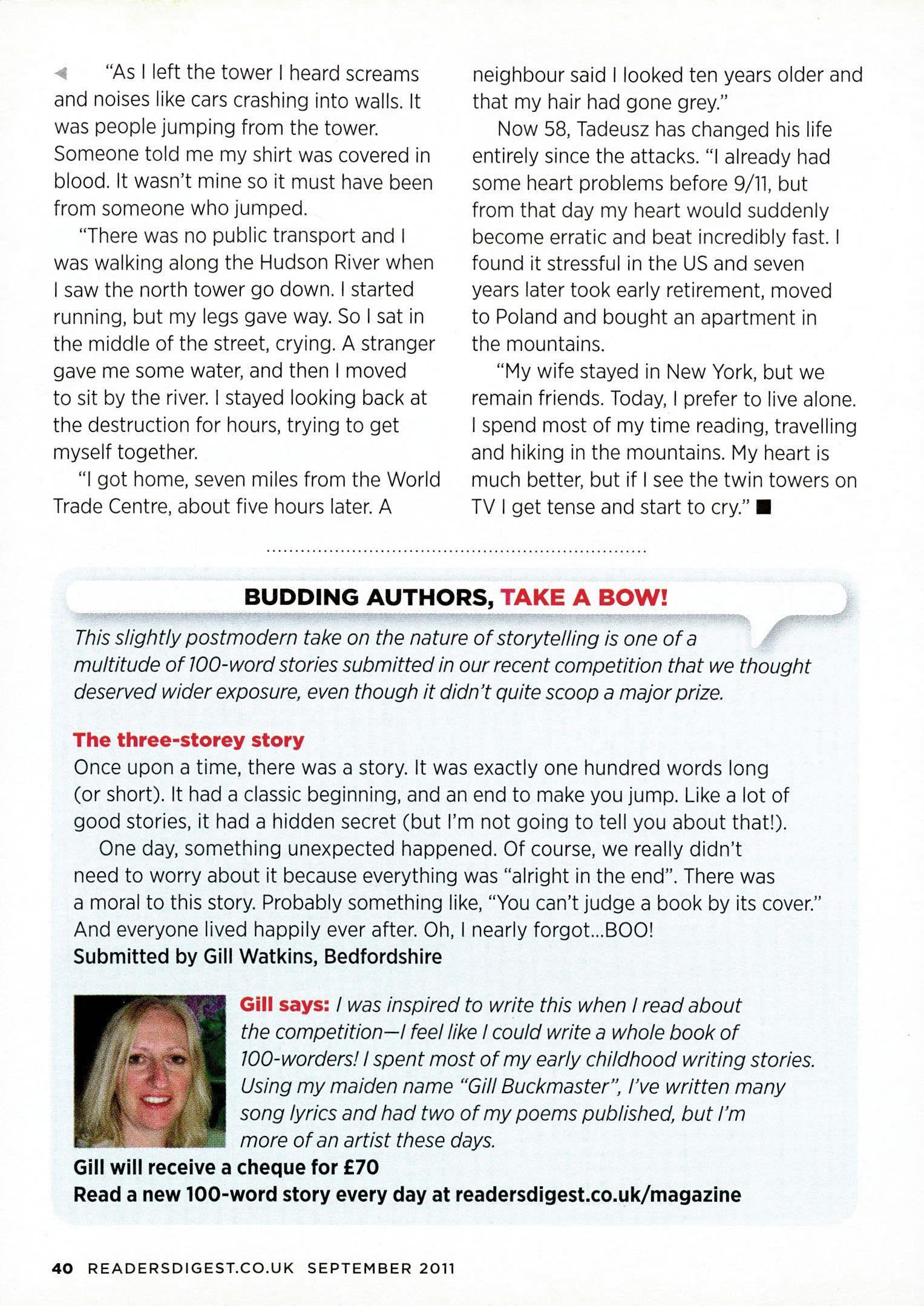
neighbour said I looked ten years older and that my hair had gone grey."
Now 58, Tadeusz has changed his life entirely since the attacks. "I already had some heart problems before 9/11, but from that day my heart would suddenly become erratic and beat incredibly fast. I found it stressful in the US and seven years later took early retirement, moved to Poland and bought an apartment in the mountains.
"My wife stayed in New York, but we remain friends. Today, I prefer to live alone. I spend most of my time reading, travelling and hiking in the mountains. My heart is much better, but if I see the twin towers on TV I get tense and start to cry." ■
BUDDING AUTHORS, TAKE A BOW!
This slightly postmodern take on the nature of storytelling is one of a multitude of 100-word stories submitted in our recent competition that we thought deserved wider exposure, even though it didn't quite scoop a major prize.
The three-storey story
Once upon a time, there was a story. It was exactly one hundred words long (or short). It had a classic beginning, and an end to make you jump. Like a lot of good stories, it had a hidden secret (but I'm not going to tell you about that!).
One day, something unexpected happened. Of course, we really didn't need to worry about it because everything was "alright in the end". There was a moral to this story. Probably something like, "You can't judge a book by its cover." And everyone lived happily ever after. Oh, I nearly forgot...1300!
Submitted by Gill Watkins, Bedfordshire
Gilt says: I was inspired to write this when I read about the competition-1 feel like I could write a whole book of 100-worders! I spent most of my early childhood writing stories. Using my maiden name "Gill Buckmaster", I've written many song lyrics and had two of my poems published, but I'm more of an artist these days.
Gill will receive a cheque for £70
Read a new 100-word story every day at readersdigest.co.uk/magazine
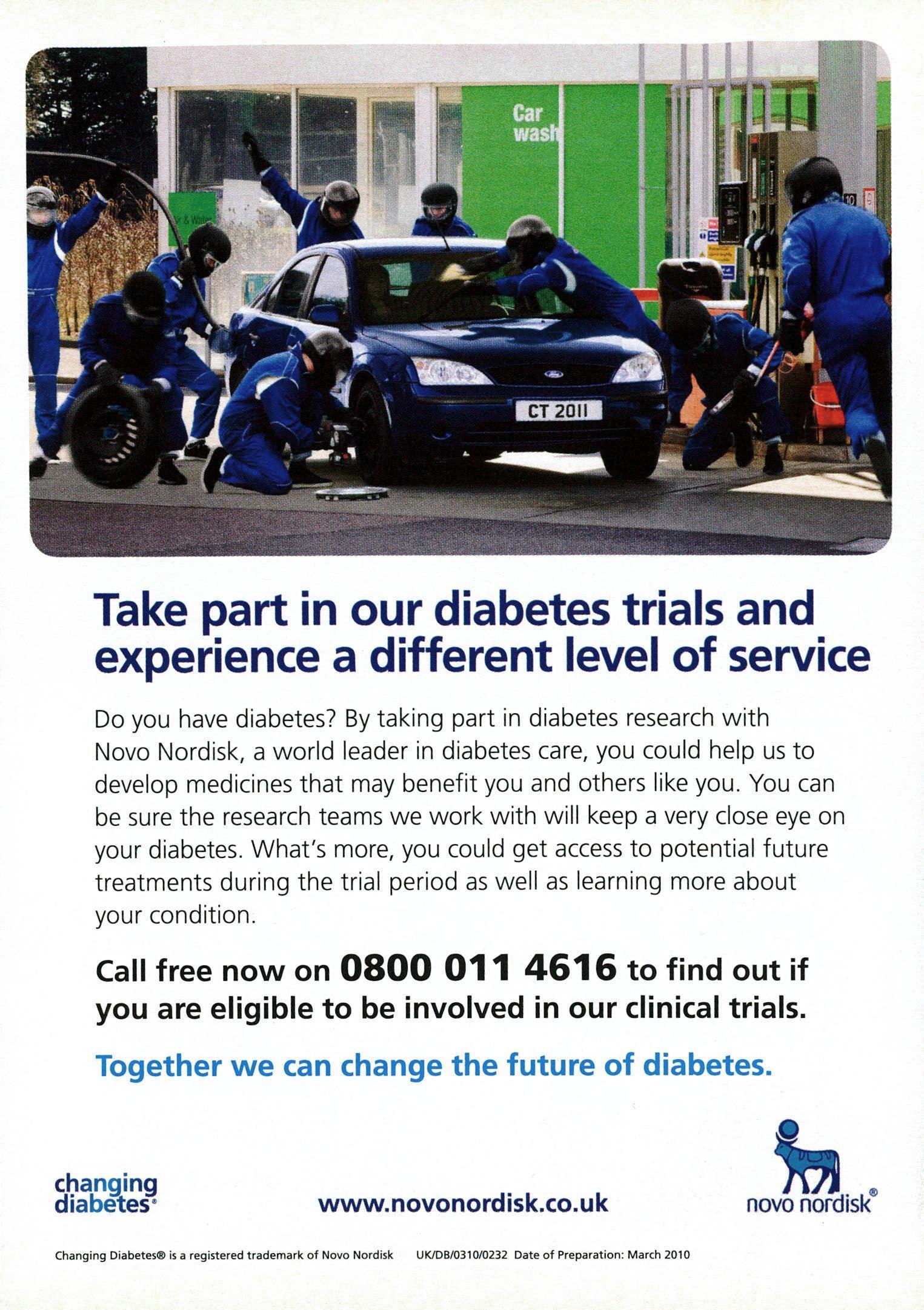
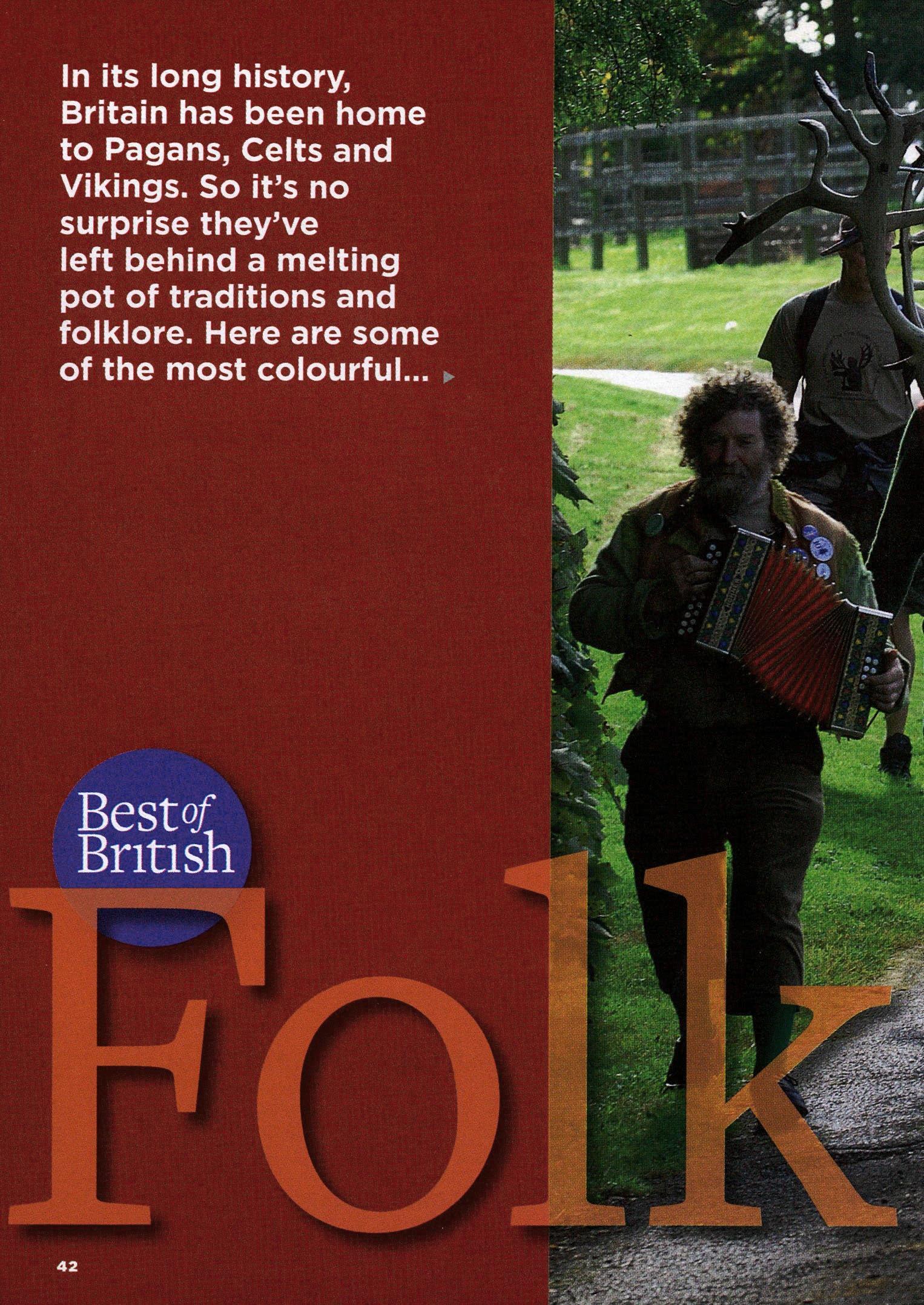
In its long history, Britain has been home to Pagans, Celts and Vikings. So it's no surprise they've left behind a melting pot of traditions and folklore. Here are some of the most colourful...
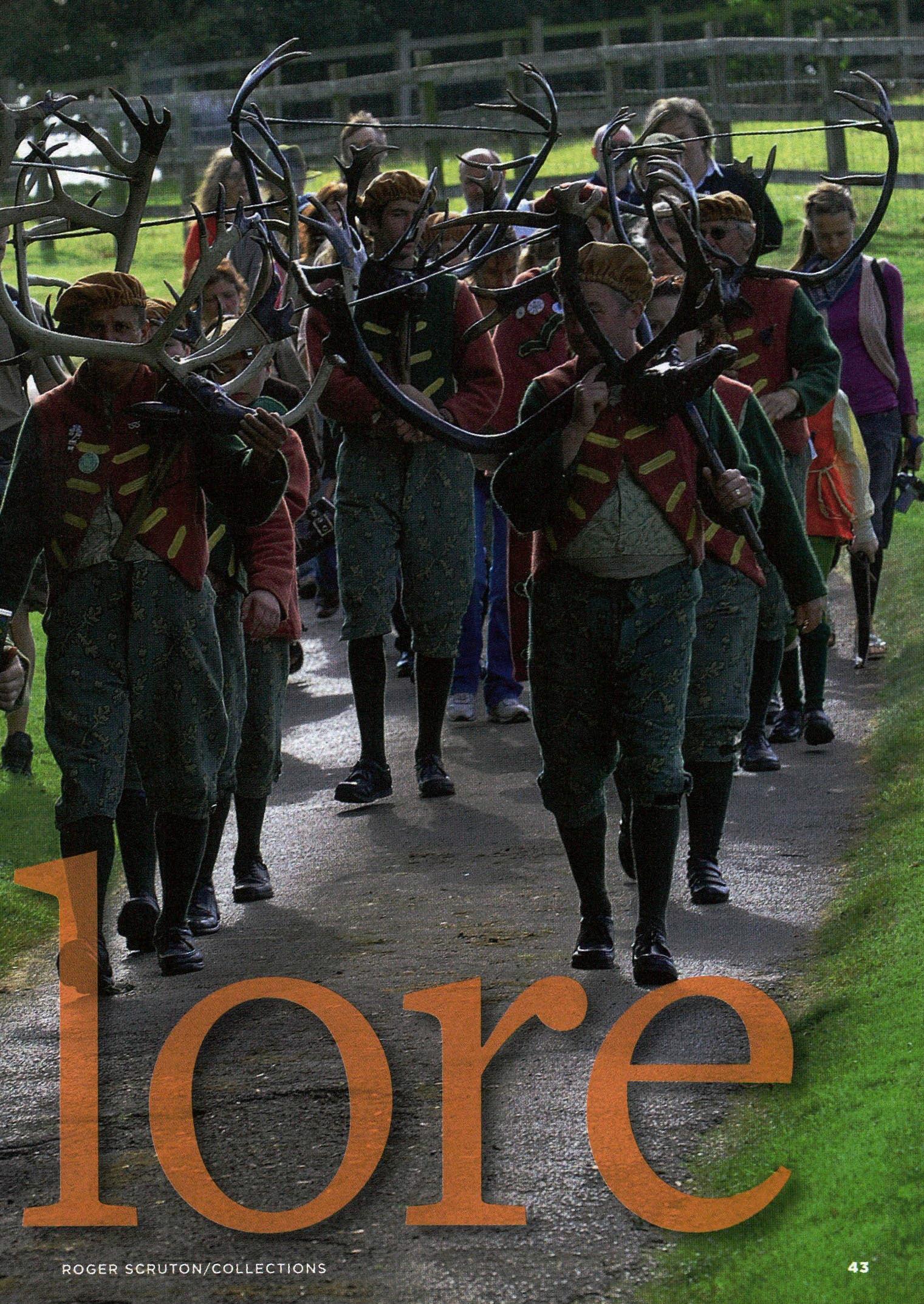
HORN DANCE
The Abbots Bromley Horn Dance takes place on "Wakes Monday" in early September. The dancers make a 20-mile circuit of local farms, where they're hailed as bearers of good luck and fertility.
The procession includes six Deer Men who carry wooden replicas of reindeer heads with real antlers attached, accompanied by a Fool, a Hobby Horse, Maid Marion and a Bowman, with music provided by a melodion player. Scientific proof of the event's antiquity came in 1976, when a broken piece of antler was sent for radiocarbon dating. It dated back to 1050, suggesting the ceremony had Viking origins.
Abbots Bromley, 12 miles east of Stafford
THE RING OF BRODGAR
VERYAN HOUSES
The pretty parish of Veryan on the Roseland peninsula contains five circular, thatched cottages— each with a pointed roof surmounted by a cross. They were built in the early 19th century by the Reverend Jeremiah Trist who, it was said, believed that their shape would prevent the devil from hiding in any corners. The reverend married a girl from Tregamenna. They had five daughters, and one story is that he built a house for each of them.
Veryan, minor roads off the A3078, 7 miles north of St Mawes, Cornwall
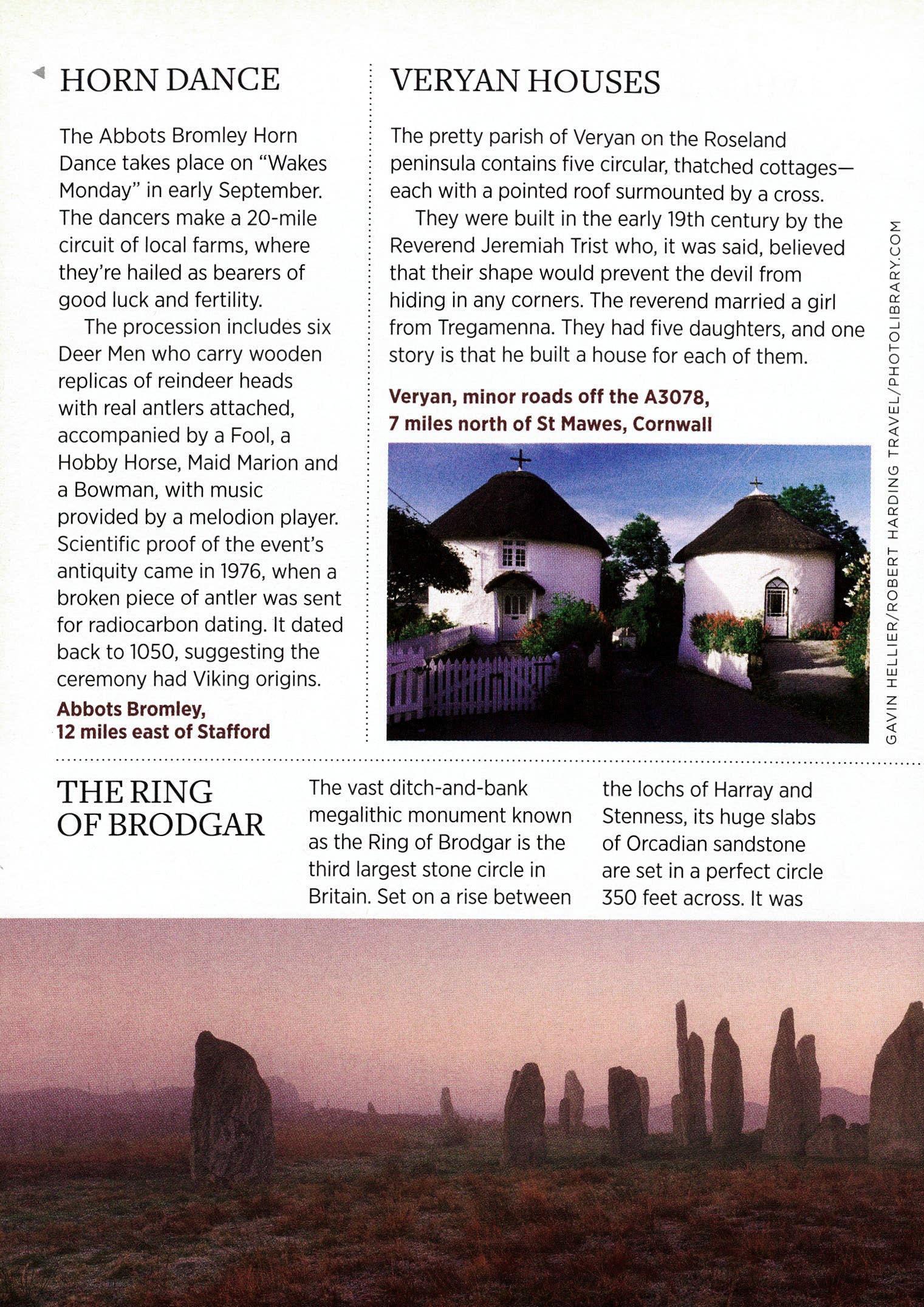
The vast ditch-and-bank megalithic monument known as the Ring of Brodgar is the third largest stone circle in Britain. Set on a rise between
the lochs of Harray and Stenness, its huge slabs of Orcadian sandstone are set in a perfect circle 350 feet across. It was
MALVH INA WELL
An abundance of springs well forth from the Malvern Hills. The most famous is Holy Well, renowned for its curative properties from the days when monks would wrap patients in water-soaked cloths. The water CC CC is said to be especially good for 0 skin diseases and eye disorders.
The Malvhina well was opened in z 1998 as the first step of the "Malvern 0 0 Water Trail"—an initiative for different o sculptors to restore interest around the lost spring water sites throughout Great Malvern. Sadly, Rose Garrard's , 6' stone and bronze woman was the 5o cE first and final sculpture as funding ran m < dry. The fountain was aptly named 1?, S after a Gaelic princess that Charles Grindrod, a Victorian historian, ce had connected with the naming CI.CO
›- 7' of Malvern.
0
L ct' 8 Malvhina Well, Great L I! Malvern, Worcestershire probably erected between 2700 and 2000BC, although its purpose is unknown. Brodgar was once loosely named Temple
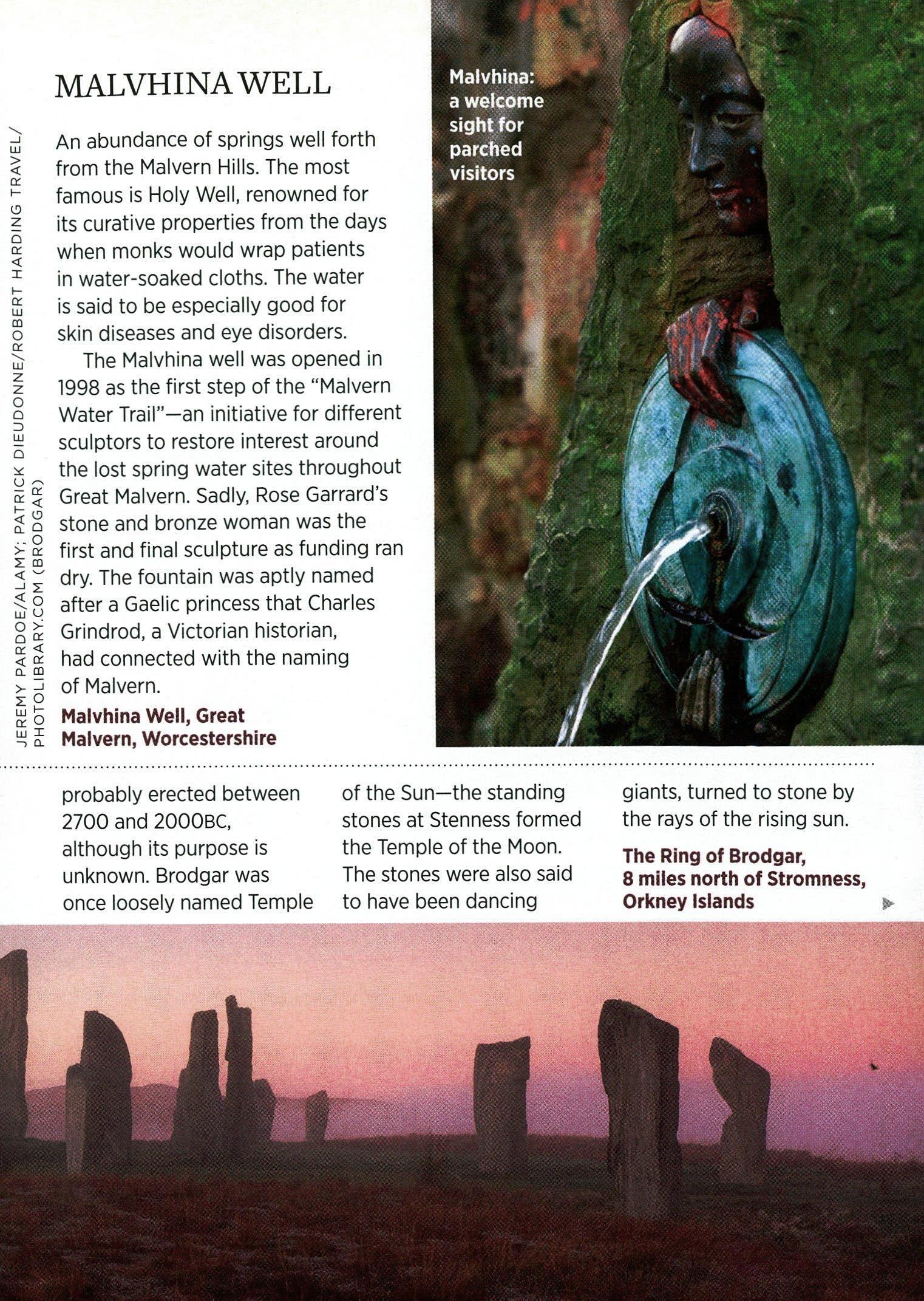
Malvhina: a welcome sight for parched visitors
of the Sun—the standing stones at Stenness formed the Temple of the Moon.
The stones were also said to have been dancing giants, turned to stone by the rays of the rising sun.
The Ring of Brodgar, 8 miles north of Stromness, Orkney Islands

WHITTLESEA STRAW BEAR
Straw Bear Day is an old tradition that was revived in 1980, and takes place on the first Tuesday after Twelfth Night.
Originally, the bear—a man covered in straw—was led from house to house and made to dance in return for money. Today, the Straw Bear is the lead character in a procession that includes morris and molly dancers, mummers and musicians.
Whittlesea, 6 miles east of Peterborough on the A605, Cambridgeshire
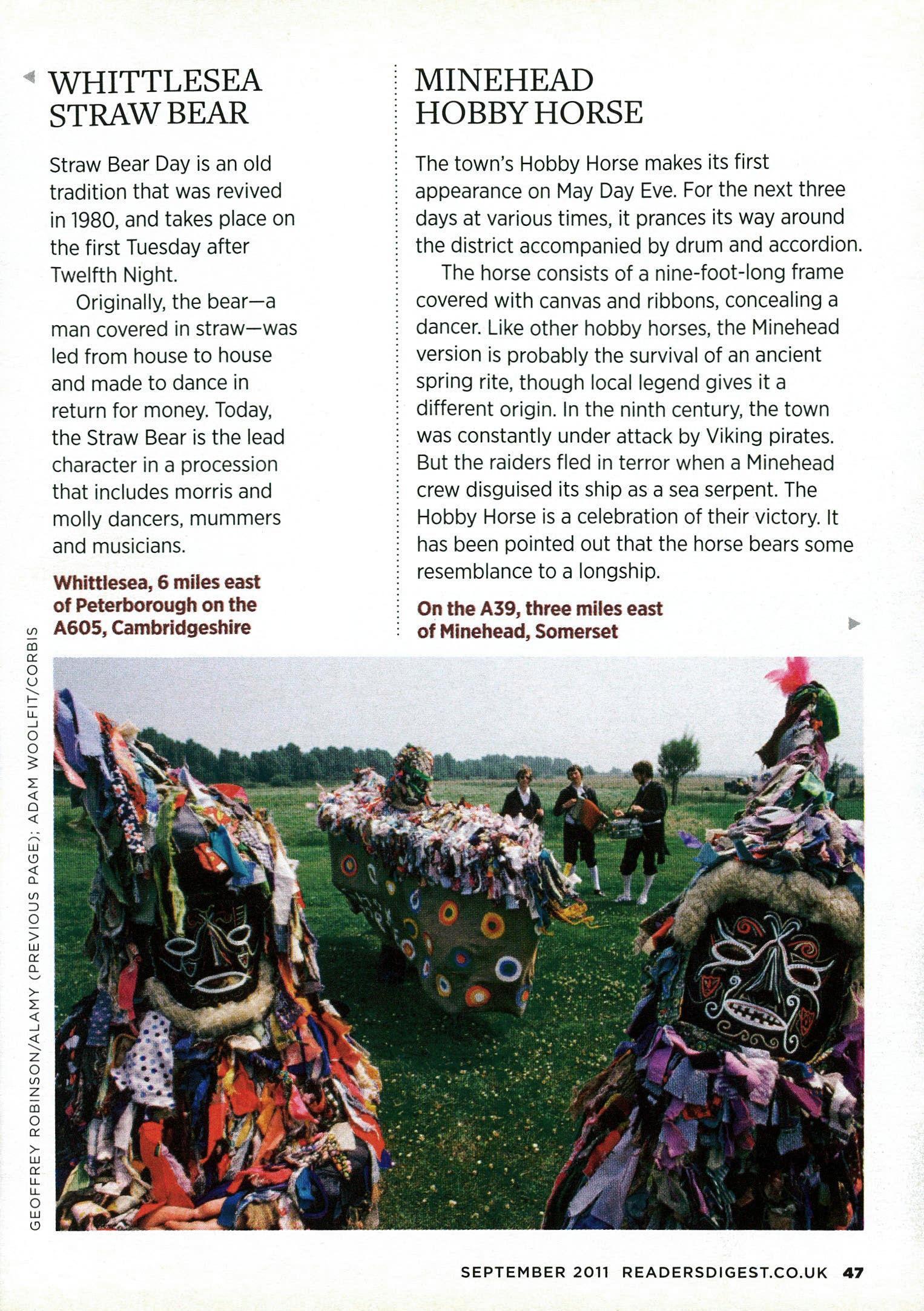
MINEHEAD HOBBY HORSE
The town's Hobby Horse makes its first appearance on May Day Eve. For the next three days at various times, it prances its way around the district accompanied by drum and accordion.
The horse consists of a nine-foot-long frame covered with canvas and ribbons, concealing a dancer. Like other hobby horses, the Minehead version is probably the survival of an ancient spring rite, though local legend gives it a different origin. In the ninth century, the town was constantly under attack by Viking pirates.
But the raiders fled in terror when a Minehead crew disguised its ship as a sea serpent. The Hobby Horse is a celebration of their victory. It has been pointed out that the horse bears some resemblance to a longship.
On the A39, three miles east of Minehead, Somerset
ROYSTON CAVE
One of Hertfordshire's greatest treasures—and most enduring mysteries—lies beneath a high-street shop in Royston. Known as Royston Cave, this bell-shaped chamber was dug from the local chalk by unknown hands, possibly in the 14th century, although there are no records to indicate its origins.
A series of images are carved on the walls, from saints to the Holy Family, together with indistinct renderings of images more common in ancient times—horses and Sheela-Na-Gig (a stylised woman with exposed genitals). The cave, unique in all of Europe, had lain hidden until the 18th century when it was discovered by workmen. It's believed to have connections to the Knights Templar as the imagery depicts saints venerated by the order.
At junction of A10 and A505,13 miles south-west of Cambridge
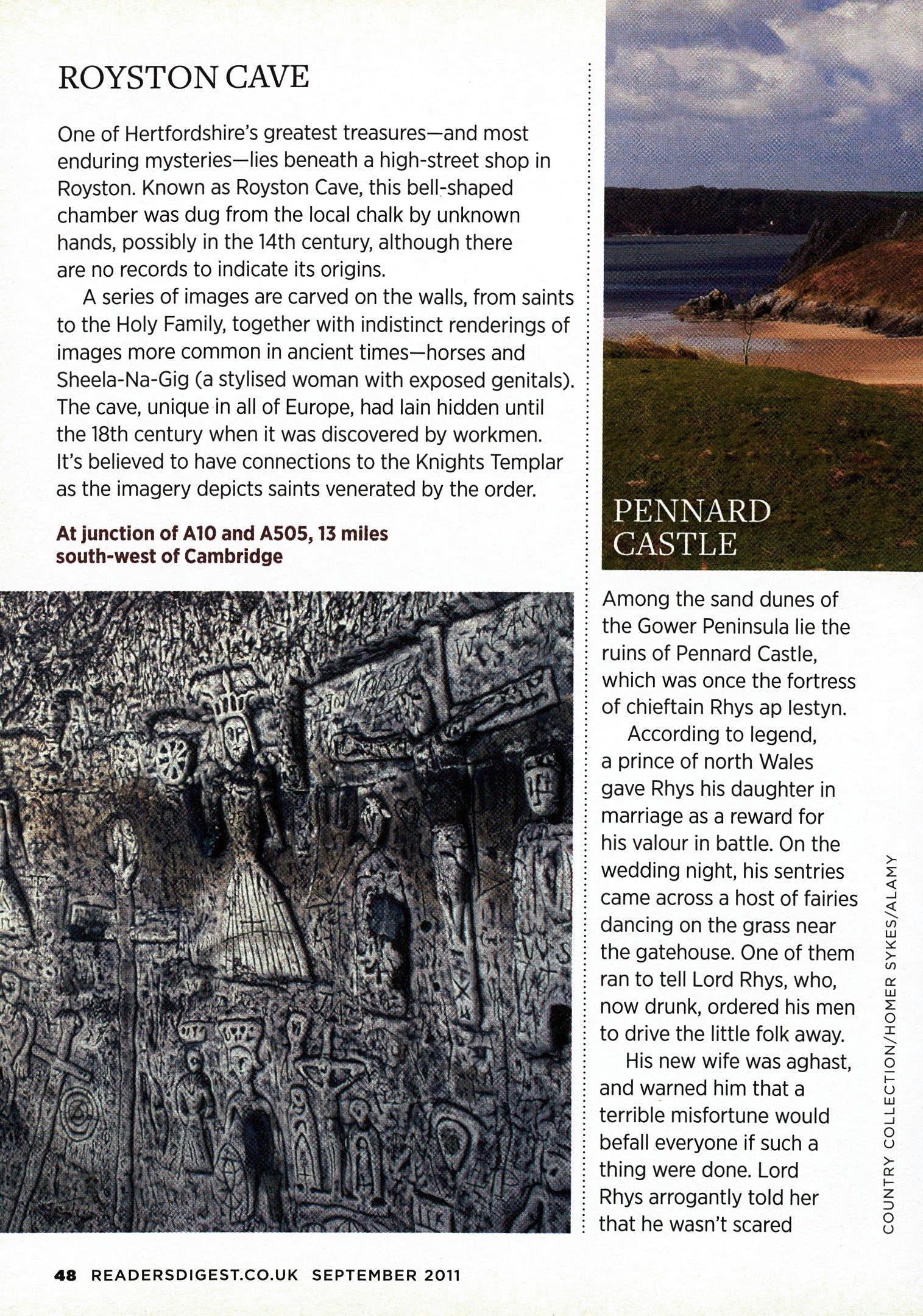
Among the sand dunes of the Gower Peninsula lie the ruins of Pennard Castle, which was once the fortress of chieftain Rhys ap lestyn.
According to legend, a prince of north Wales gave Rhys his daughter in marriage as a reward for his valour in battle. On the wedding night, his sentries came across a host of fairies dancing on the grass near the gatehouse. One of them ran to tell Lord Rhys, who, now drunk, ordered his men to drive the little folk away.
His new wife was aghast, and warned him that a terrible misfortune would befall everyone if such a thing were done. Lord Rhys arrogantly told her that he wasn't scared
IS of anything, but when he went to fight them, the fairies disappeared. Suddenly, a warning voice rang out: "Thou halt wantonly spoilt our innocent sport, proud chief. Thy lofty castle and town shall be no more." And at once, a terrible sandstorm blew up, burying the castle, the town and all its inhabitants.
The basis of this legend is that during its 300 year occupation, Pennard Castle's only battle was with encroaching sand dunes. They finally destroyed it in the 16th century.
Penman, 9 miles west of Swansea
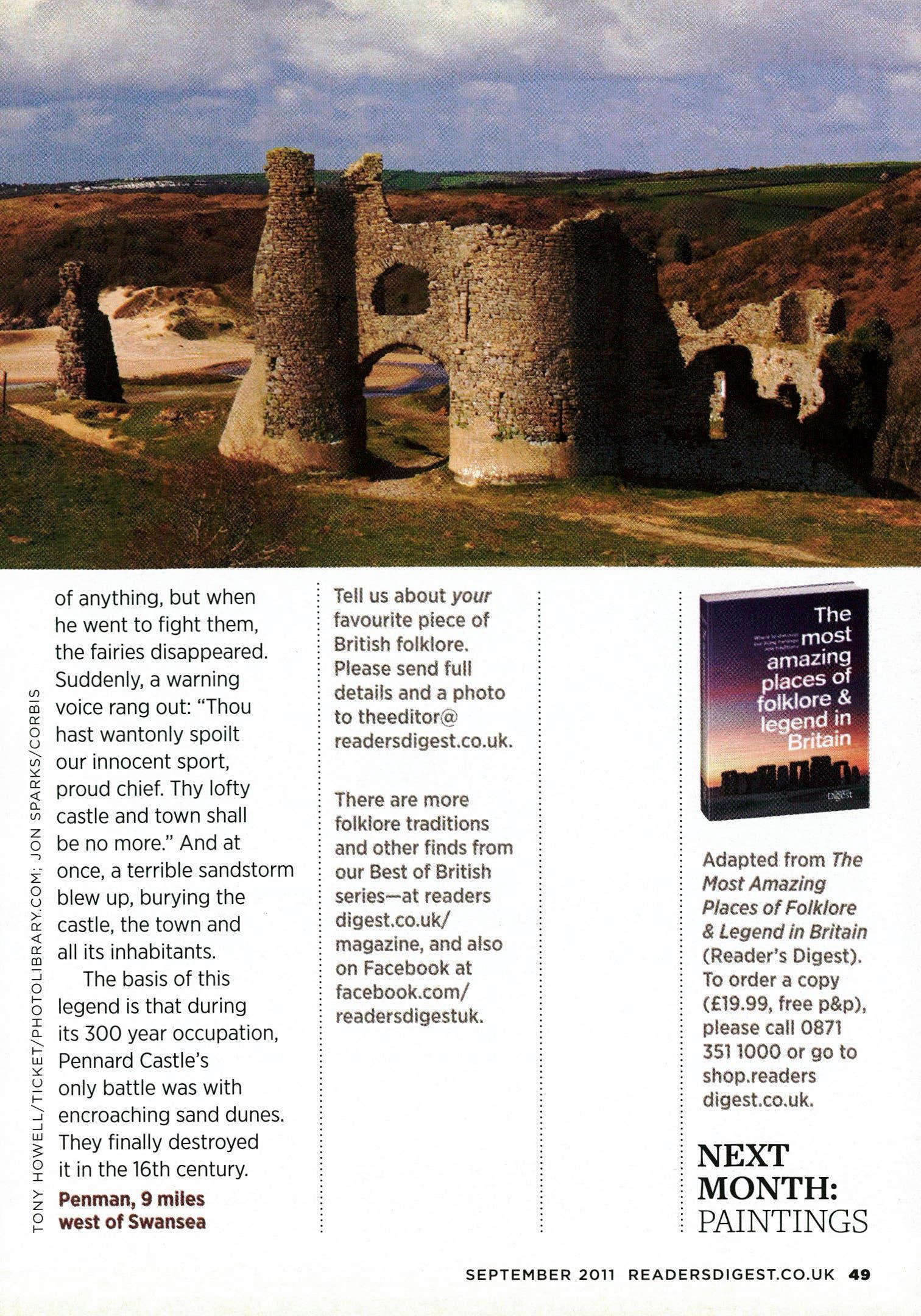
Tell us about your favourite piece of British folklore. Please send full details and a photo to theeditor@ readersdigest.co.uk.
There are more folklore traditions and other finds from our Best of British series—at readers digest.co.uk/ magazine, and also on Facebook at facebook.com/ readersdigestuk.
Adapted from The Most Amazing Places of Folklore & Legend in Britain (Reader's Digest). To order a copy (£19.99, free p&p), please call 0871 351 1000 or go to shop.readers digest.co.uk.
NEXT
Last month we looked at how the UK drugs bill came to be £11bn a year— and rising. In part 2 of Drugged-Up Britain, our campaign to cut unnecessary prescriptions, Jerome Burne examines the special problems of drugs and older people
Mum's Big Drug Problem
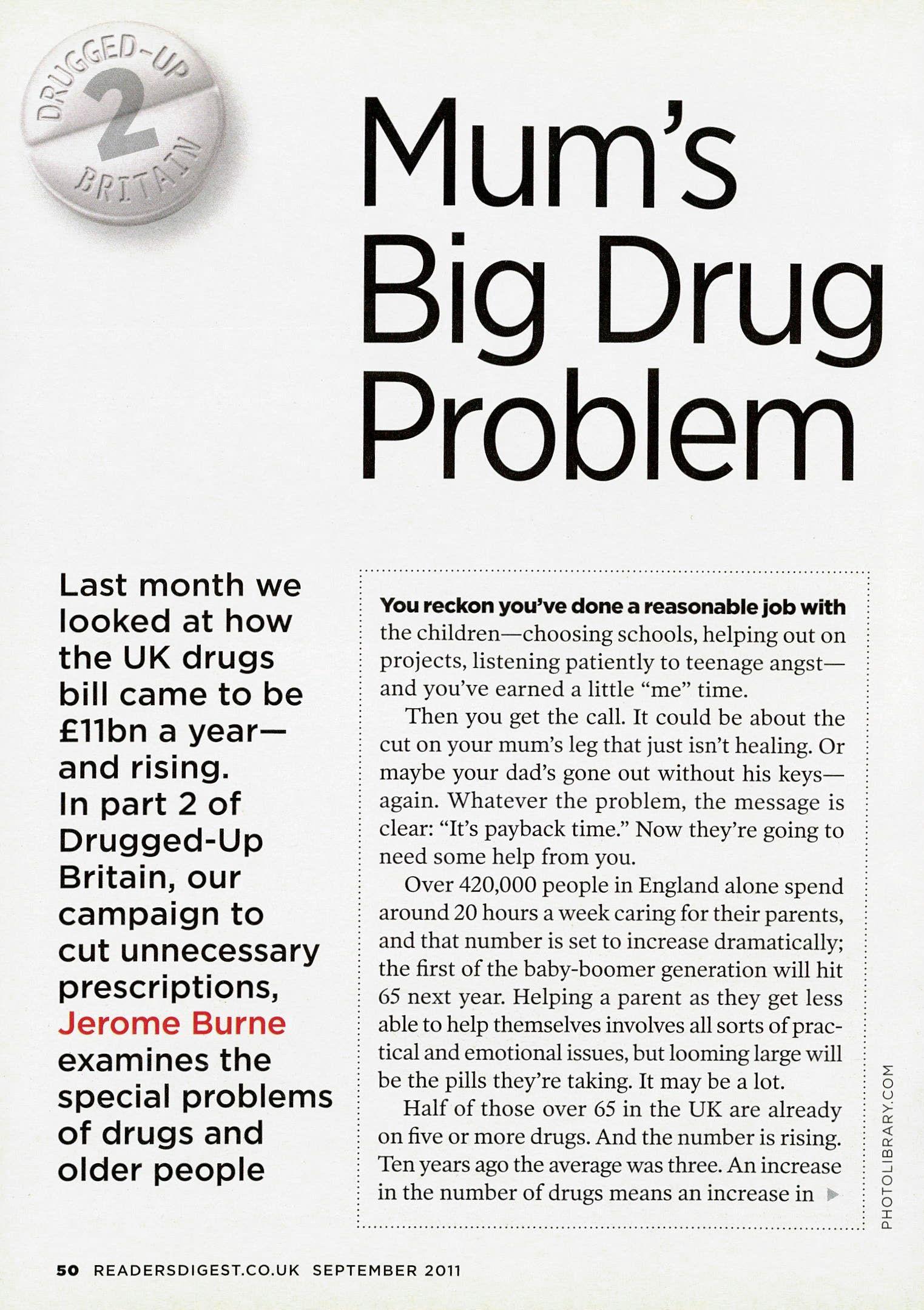
You reckon you've done a reasonable job with the children—choosing schools, helping out on projects, listening patiently to teenage angst— and you've earned a little "me" time.
Then you get the call. It could be about the cut on your mum's leg that just isn't healing. Or maybe your dad's gone out without his keys— again. Whatever the problem, the message is clear: "It's payback time." Now they're going to need some help from you.
Over 420,000 people in England alone spend around 20 hours a week caring for their parents, and that number is set to increase dramatically; the first of the baby-boomer generation will hit 65 next year. Helping a parent as they get less able to help themselves involves all sorts of practical and emotional issues, but looming large will be the pills they're taking. It may be a lot.
Half of those over 65 in the UK are already on five or more drugs. And the number is rising. Ten years ago the average was three. An increase in the number of drugs means an increase in
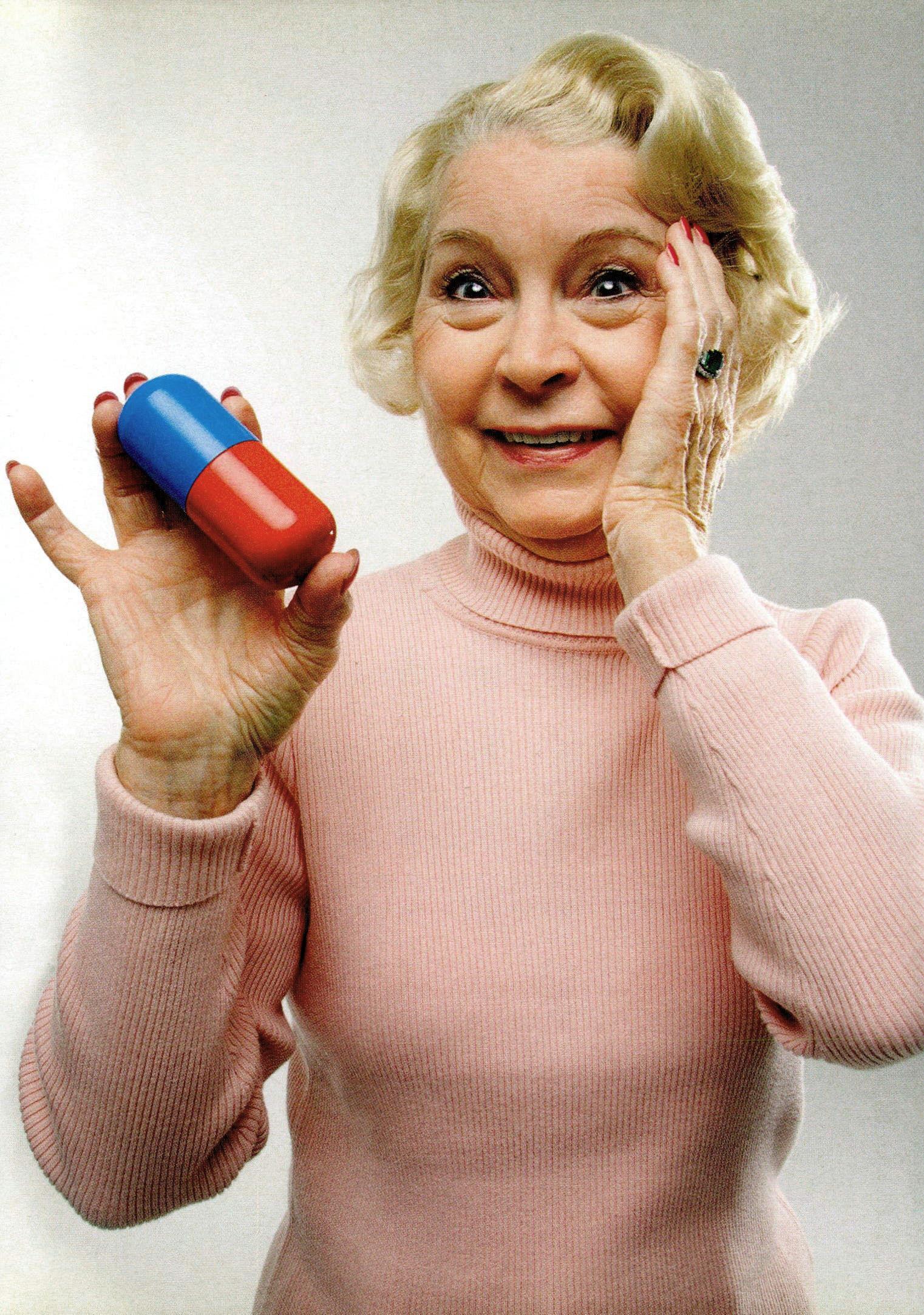
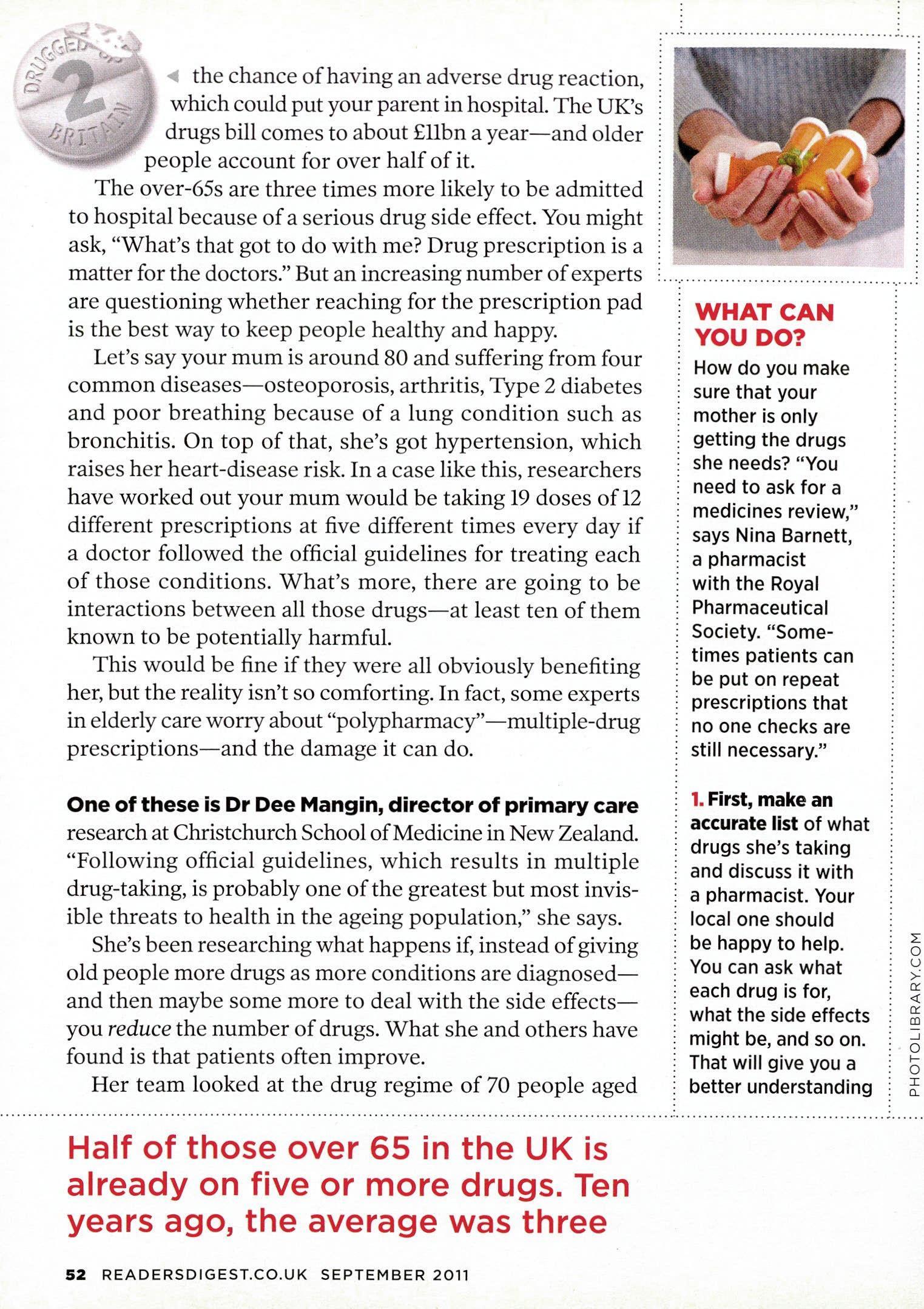
t the chance of having an adverse drug reaction, which could put your parent in hospital. The UK's drugs bill comes to about £llbn a year—and older people account for over half of it.
The over-65s are three times more likely to be admitted to hospital because of a serious drug side effect. You might ask, "What's that got to do with me? Drug prescription is a matter for the doctors." But an increasing number of experts are questioning whether reaching for the prescription pad is the best way to keep people healthy and happy.
Let's say your mum is around 80 and suffering from four common diseases—osteoporosis, arthritis, Type 2 diabetes and poor breathing because of a lung condition such as bronchitis. On top of that, she's got hypertension, which raises her heart-disease risk. In a case like this, researchers have worked out your mum would be taking 19 doses of 12 different prescriptions at five different times every day if a doctor followed the official guidelines for treating each of those conditions. What's more, there are going to be interactions between all those drugs—at least ten of them known to be potentially harmful.
This would be fine if they were all obviously benefiting her, but the reality isn't so comforting. In fact, some experts in elderly care worry about "polypharmacy"—multiple-drug prescriptions—and the damage it can do.
One of these is Dr Dee Mangin, director of primary care research at Christchurch School of Medicine in New Zealand. "Following official guidelines, which results in multiple drug-taking, is probably one of the greatest but most invisible threats to health in the ageing population," she says.
She's been researching what happens if, instead of giving old people more drugs as more conditions are diagnosed— and then maybe some more to deal with the side effects— you reduce the number of drugs. What she and others have found is that patients often improve. Her team looked at the drug regime of 70 people aged
Half of those over 65 in the UK is already on five or more drugs. Ten years ago, the average was three
WHAT CAN YOU DO?
How do you make sure that your mother is only getting the drugs she needs? "You need to ask for a medicines review," says Nina Barnett, a pharmacist with the Royal Pharmaceutical Society. "Sometimes patients can be put on repeat prescriptions that no one checks are still necessary."
1. First, make an accurate list of what drugs she's taking and discuss it with a pharmacist. Your local one should be happy to help. You can ask what each drug is for, what the side effects might be, and so on. That will give you a better understanding
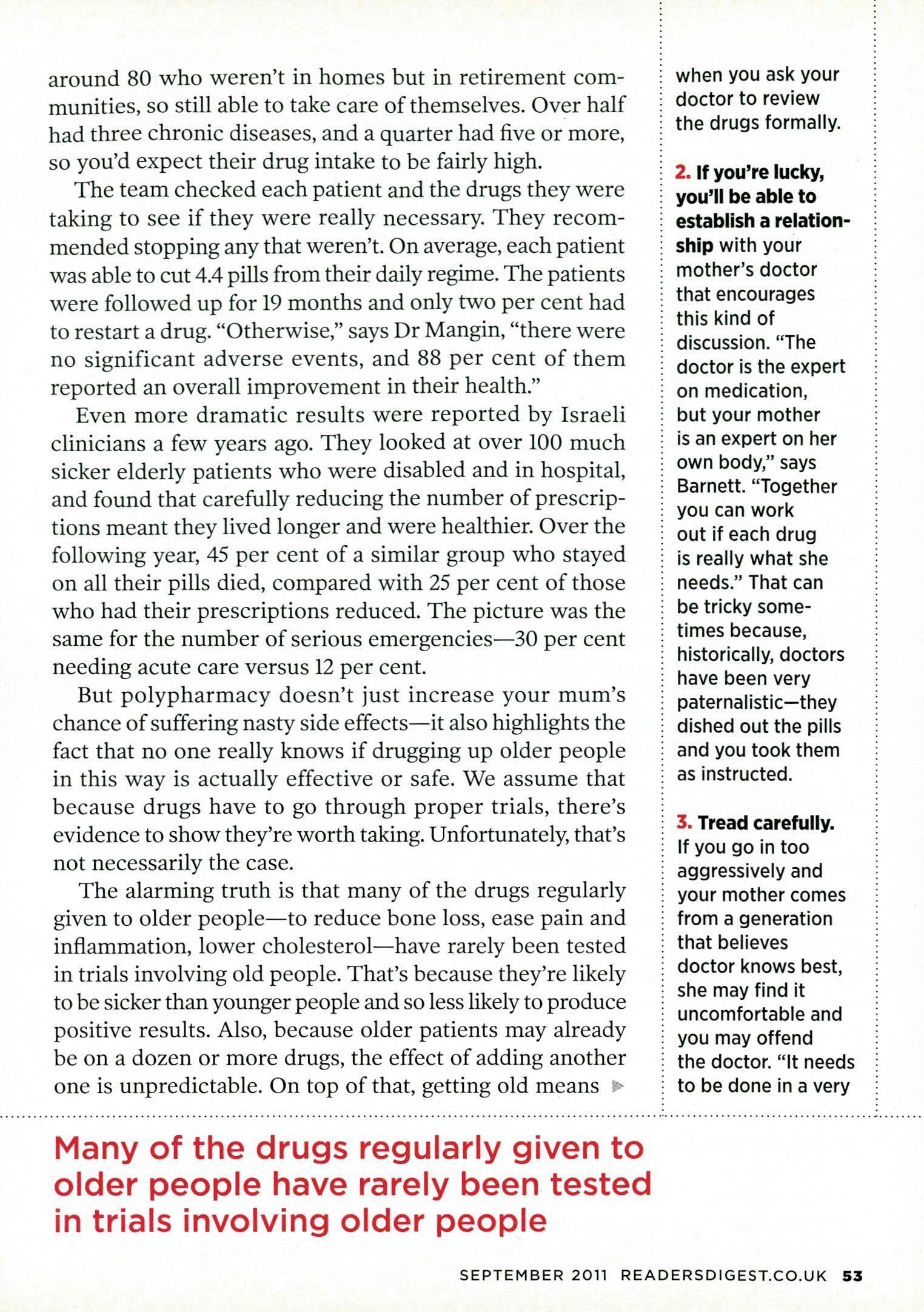
around 80 who weren't in homes but in retirement communities, so still able to take care of themselves. Over half had three chronic diseases, and a quarter had five or more, so you'd expect their drug intake to be fairly high.
The team checked each patient and the drugs they were taking to see if they were really necessary. They recommended stopping any that weren't. On average, each patient was able to cut 4.4 pills from their daily regime. The patients were followed up for 19 months and only two per cent had to restart a drug. "Otherwise," says Dr Mangin, "there were no significant adverse events, and 88 per cent of them reported an overall improvement in their health."
Even more dramatic results were reported by Israeli clinicians a few years ago. They looked at over 100 much sicker elderly patients who were disabled and in hospital, and found that carefully reducing the number of prescriptions meant they lived longer and were healthier. Over the following year, 45 per cent of a similar group who stayed on all their pills died, compared with 25 per cent of those who had their prescriptions reduced. The picture was the same for the number of serious emergencies-30 per cent needing acute care versus 12 per cent.
But polypharmacy doesn't just increase your mum's chance of suffering nasty side effects—it also highlights the fact that no one really knows if drugging up older people in this way is actually effective or safe. We assume that because drugs have to go through proper trials, there's evidence to show they're worth taking. Unfortunately, that's not necessarily the case.
The alarming truth is that many of the drugs regularly given to older people—to reduce bone loss, ease pain and inflammation, lower cholesterol—have rarely been tested in trials involving old people. That's because they're likely to be sicker than younger people and so less likely to produce positive results. Also, because older patients may already be on a dozen or more drugs, the effect of adding another one is unpredictable. On top of that, getting old means
Many of of the drugs regularly given to older people have rarely been tested in trials involving older people
when you ask your doctor to review the drugs formally.
2.If you're lucky, you'll be able to establish a relationship with your mother's doctor that encourages this kind of discussion. "The doctor is the expert on medication, but your mother is an expert on her own body," says Barnett. "Together you can work out if each drug is really what she needs." That can be tricky sometimes because, historically, doctors have been very paternalistic—they dished out the pills and you took them as instructed.
3. Tread carefully. If you go in too aggressively and your mother comes from a generation that believes doctor knows best, she may find it uncomfortable and you may offend the doctor. "It needs to be done in a very
4 your body may absorb drugs less efficiently and be more affected by their toxic effects. So older people are excluded from most trials, even though they are given the lion's share of the drugs. Prescribing for the over-75s involves a lot of guesswork. Recently, when researchers compared the benefits shown from trials of a type of aspirin called a COX-2 inhibitor with what happened when the drug was used in the real world, they found that six times as many people had to take it to get the same cost benefit.
So there are plenty of reasons to keep your mum's drug use to a minimum.
Any doctor will tell you that deciding on a drug involves balancing up benefit and risk. But sometimes the risks can lead to a chain of problems. This shows up very clearly with aspirin-type drugs known as NSAIDS (non-steroidal anti-inflammatories), used to ease pain and inflammation. The problem is that they thin the blood, which can lead to increased bleeding from stomach ulcers.
This is painful and so it's often treated with drugs known as PPIs (proton pump inhibitors), which reduce stomach acid and stop the pain. But PPIs are linked with an increased risk of osteoporosis (calcium is less well absorbed) and increased risk of infection from the superbug C.dill,which gives many older people in hospital severe diarrhoea.
Besides the problems of side effects and overprescribing that come with drugs, few of them do anything to improve the underlying decline that comes with ageing. Everything starts to run down: wounds don't heal so quickly; you pick up infections more easily; you don't absorb nutrients from your food as well, and so on. That's why some doctors interested in nutrition—such as Dr Marilyn Glenville, who has a private practice in London specialising in women's health—believe that some of these signs of wear and tear can be avoided by making sure you have healthy levels of several key minerals and vitamins.
"Getting most of your nutrients from food • is best," says Glenville, "but many older people
4 respectful way," says Barnett, "and if your mother says she doesn't want to question the doctor, you mustn't force the issue."
4. Depending on how confident you feelabout researching into drugs, there are a few types in particular that you might want to ask the doctor about. They're all on something called the Beers list (you can find it online) and are drugs that

should be avoided in older people where possible, and only used briefly. Heading the list are barbiturates —sleeping pills and tranquillisers —that can make falls more likely, as well
as being very addictive.
don't eat that well, and if you test them they're often deficient." A report last year by the Health Supplements Information Service found that 97 per cent of older people had inadequate intakes of key nutrients and many were deficient in vital ones such as zinc, iron, vitamin B12 and vitamin D.
"Elderly people are often deficient in vitamin B12," says Glenville. "It's needed for building proteins, making red blood cells, and for nerves and brain cells to function properly. If your levels get too low, that can cause cognitive problems, which, if you're old, may not be spotted because they may be dismissed as a normal part of ageing."
Because they tend not to spend much time in the sun, older people often also have low levels of vitamin D, which has been linked with increased risk of cognitive problems as well as thinning bones. Being severely deficient raises the risk by 69 per cent. High levels of vitamin D, the superstar supplement, have also been linked with a lower risk of metabolic disorders like heart disease and diabetes, as well as auto-immune diseases such as rheumatism.
So by chatting to a friendly pharmacist about drugs and to a clinical nutritionist about supplements, you might be able to make quite a difference to the health of your mum. It's certainly worth a try. Besides, if enough of us start questioning the drugs we take instead of meekly accepting every prescription we're given, it could start to make a real dent in that huge annual drugs bill.
Drugged-Up Britain? It's time we came clean. ■
NATURAL WONDERS: AYE-AYE
It may look like something from The Lord of the Rings, but the aye-aye is very much real. This lemur, a native of Madagascar, is the only surviving member of the genus Daubentonia. Part of the reason for its solitary survival may be its appearance, which, although striking, is also a curse. For centuries, the aye-aye has been considered a symbol of death, to be killed on sight. Along with the destruction of its forest habitat, this has done much to reduce numbers, although successful breeding programmes have raised its conservation status back up to Near Threatened.
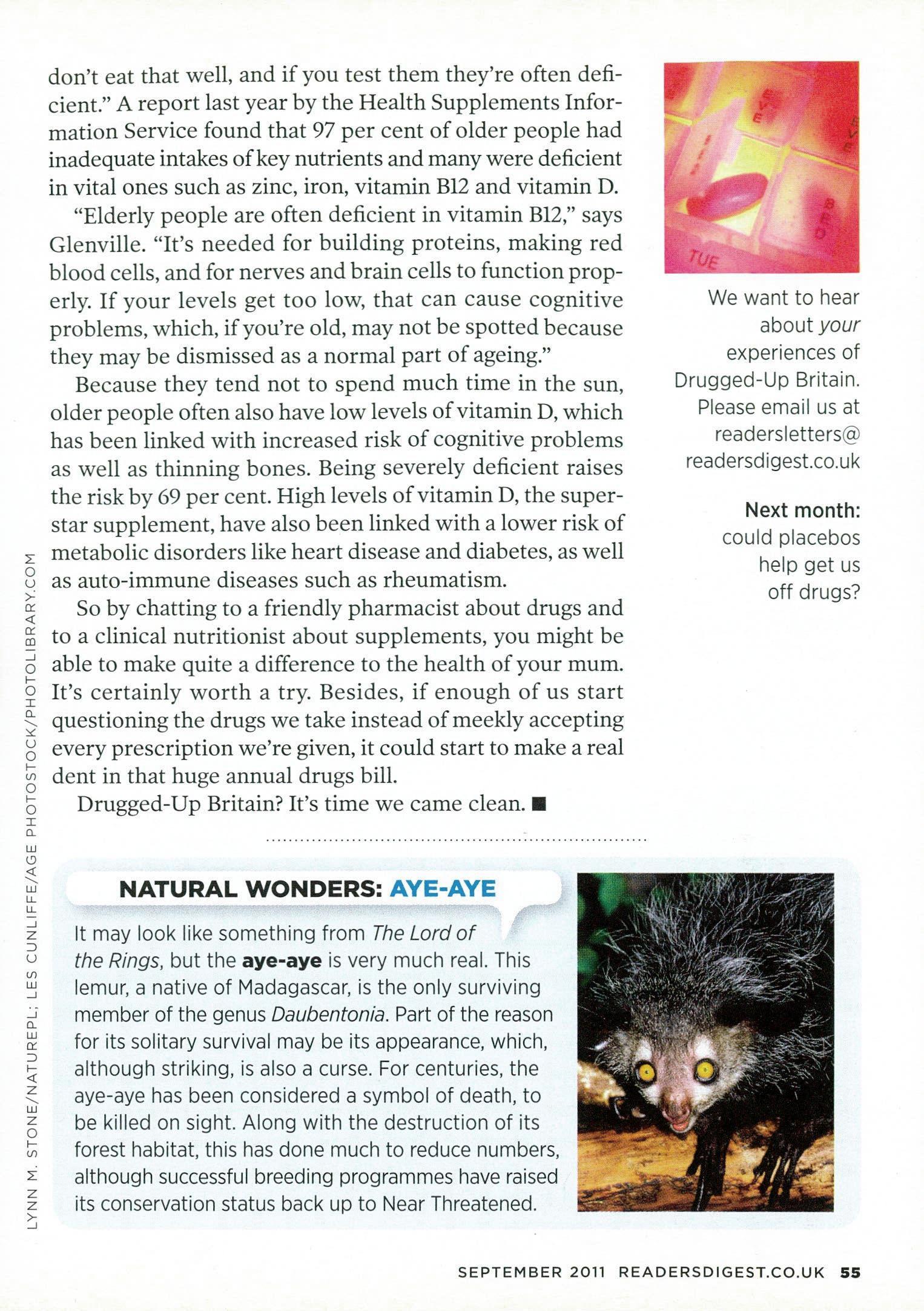
We want to hear about your experiences of Drugged-Up Britain. Please email us at readersletters@ readersdigest.co.uk
Next month: could placebos help get us off drugs?
Ben Fogle
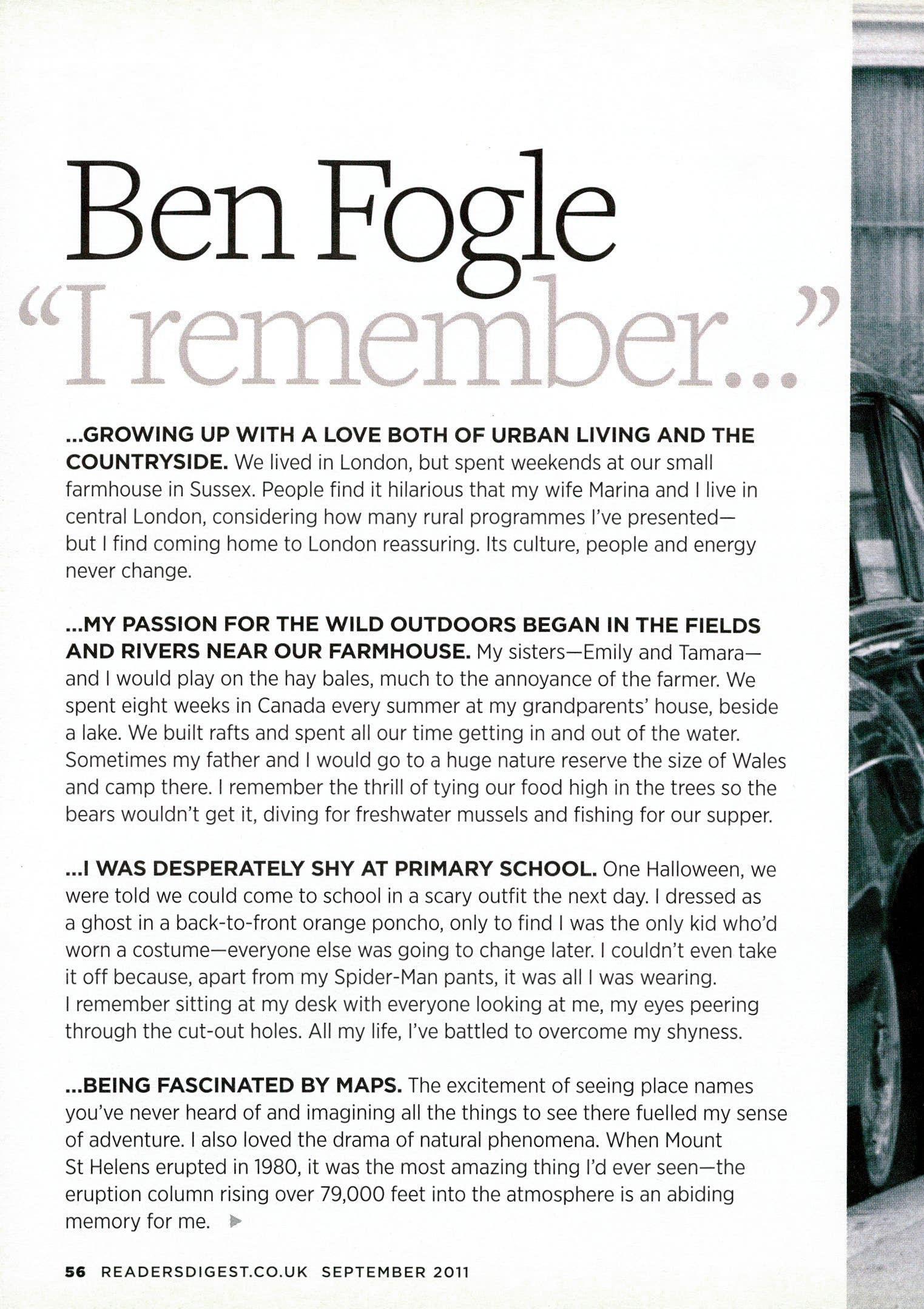
...GROWING UP WITH A LOVE BOTH OF URBAN LIVING AND THE COUNTRYSIDE. We lived in London, but spent weekends at our small farmhouse in Sussex. People find it hilarious that my wife Marina and I live in central London, considering how many rural programmes I've presented— but I find coming home to London reassuring. Its culture, people and energy never change.
...MY PASSION FOR THE WILD OUTDOORS BEGAN IN THE FIELDS AND RIVERS NEAR OUR FARMHOUSE. My sisters—Emily and Tamara— and I would play on the hay bales, much to the annoyance of the farmer. We spent eight weeks in Canada every summer at my grandparents' house, beside a lake. We built rafts and spent all our time getting in and out of the water. Sometimes my father and I would go to a huge nature reserve the size of Wales and camp there. I remember the thrill of tying our food high in the trees so the bears wouldn't get it, diving for freshwater mussels and fishing for our supper.
...I WAS DESPERATELY SHY AT PRIMARY SCHOOL. One Halloween, we were told we could come to school in a scary outfit the next day. I dressed as a ghost in a back-to-front orange poncho, only to find I was the only kid who'd worn a costume—everyone else was going to change later. I couldn't even take it off because, apart from my Spider-Man pants, it was all I was wearing. I remember sitting at my desk with everyone looking at me, my eyes peering through the cut-out holes. All my life, I've battled to overcome my shyness.
...BEING FASCINATED BY MAPS. The excitement of seeing place names you've never heard of and imagining all the things to see there fuelled my sense of adventure. I also loved the drama of natural phenomena. When Mount St Helens erupted in 1980, it was the most amazing thing I'd ever seen—the eruption column rising over 79,000 feet into the atmosphere is an abiding memory for me. ►
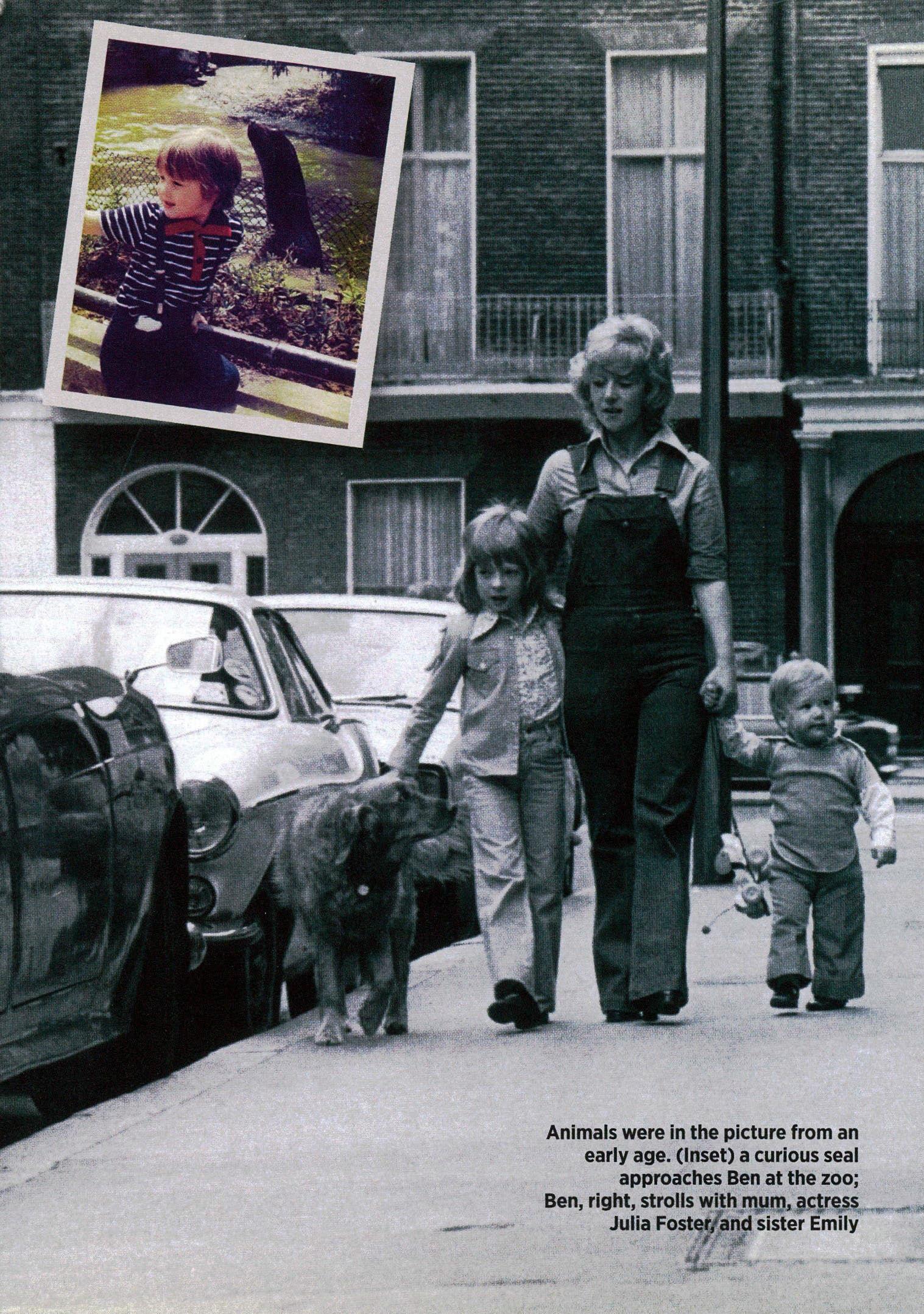
Animals were in the picture from an early age.
a curious
(Inset) seal approaches Ben at the zoo; Ben, right, strolls with mum, actress Julia Foster; and sister Emily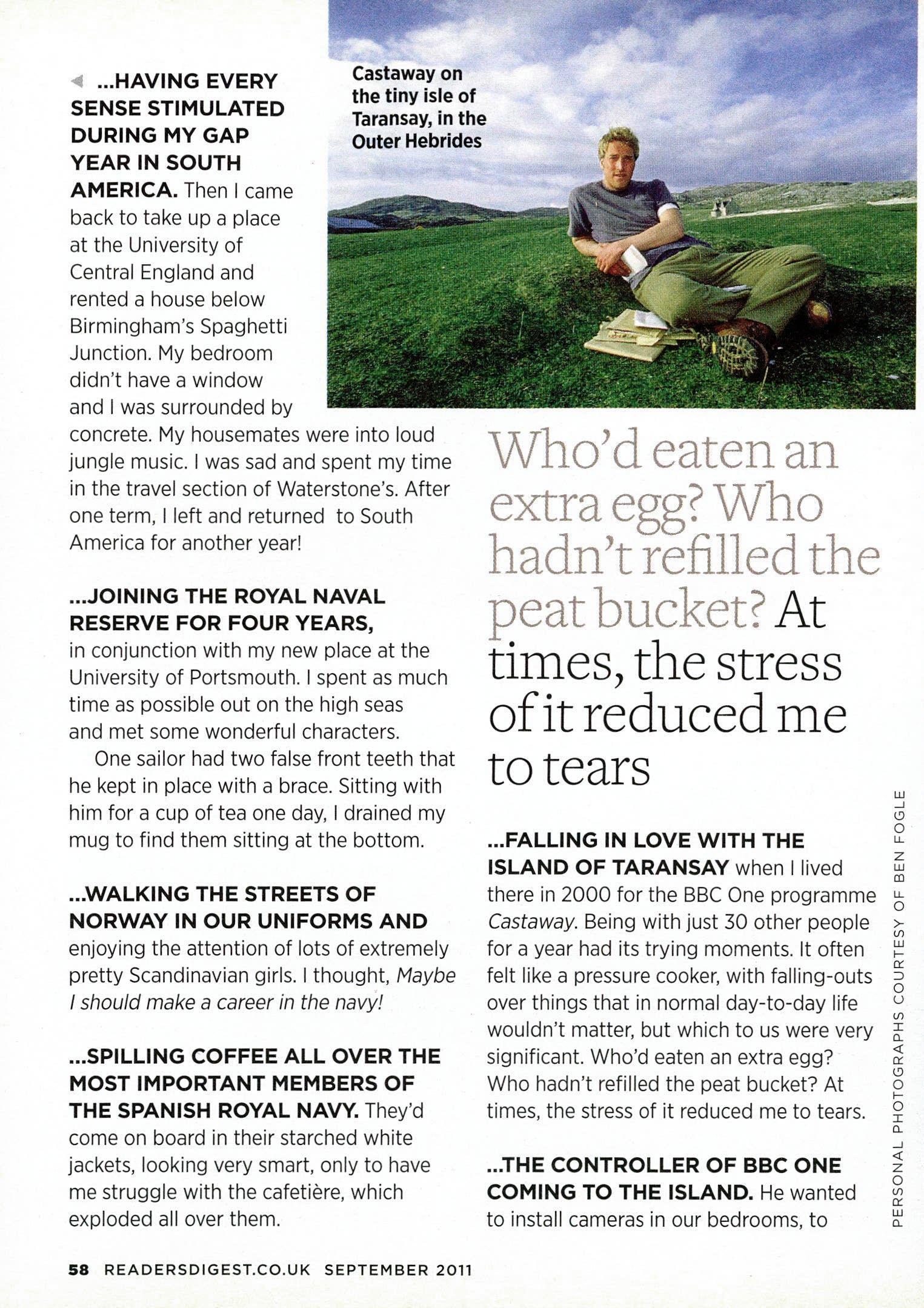
Castaway on the tiny isle of Taransay, in the Outer Hebrides
...HAVING EVERY SENSE STIMULATED DURING MY GAP YEAR IN SOUTH AMERICA. Then I came back to take up a place at the University of Central England and rented a house below Birmingham's Spaghetti Junction. My bedroom didn't have a window and I was surrounded by concrete. My housemates were into loud jungle music. I was sad and spent my time in the travel section of Waterstone's. After one term, I left and returned to South America for another year!
...JOINING THE ROYAL NAVAL RESERVE FOR FOUR YEARS, in conjunction with my new place at the University of Portsmouth. I spent as much time as possible out on the high seas and met some wonderful characters. One sailor had two false front teeth that he kept in place with a brace. Sitting with him for a cup of tea one day, I drained my mug to find them sitting at the bottom.
...WALKING THE STREETS OF NORWAY IN OUR UNIFORMS AND enjoying the attention of lots of extremely pretty Scandinavian girls. I thought, Maybe I should make a career in the navy!
...SPILLING COFFEE ALL OVER THE MOST IMPORTANT MEMBERS OF THE SPANISH ROYAL NAVY. They'd come on board in their starched white jackets, looking very smart, only to have me struggle with the cafetiere, which exploded all over them.
Who'd eaten an extra egg? Who hadn't refilled the peat bucket? At times, the stress of it reduced me to tears
...FALLING IN LOVE WITH THE ISLAND OF TARANSAY when I lived there in 2000 for the BBC One programme Castaway. Being with just 30 other people for a year had its trying moments. It often felt like a pressure cooker, with falling-outs over things that in normal day-to-day life wouldn't matter, but which to us were very significant. Who'd eaten an extra egg? Who hadn't refilled the peat bucket? At times, the stress of it reduced me to tears.
...THE CONTROLLER OF BBC ONE COMING TO THE ISLAND. He wanted to install cameras in our bedrooms, to
make the whole thing more like Big Brother. But we were united in our refusal, and that demonstration of people power made him back off. Perhaps one of the problems with reality TV now is that the power is all with the programme-makers, instead of the participants.
...FEELING SO SAD LEAVING THAT IT WAS LIKE A BEREAVEMENT. We left Taransay by helicopter, and being greeted by gaggles of photographers, along with the thought of coping in the real world again, was too much for me. I went missing for three days with my dog Inca.
...PRESENTING CRUFTS. I thought it would be fun to end with the 26-strong golden retriever display team packed into our tiny studio. As I smiled at the camera saying, "See you next year," two of the dogs started humping in front of the lens!
I've presented so many different TV programmes over the last ten years, some better than others. It was hard trying to get excited about little china owls worth a pound for Cash in the Attic. A great memory was filming BBC Two's Wild on the West Coast, sitting in a boat as great white sharks fed on a bull seal next to us.
... I'D OFTEN SPOT A VERY PRETTY BLONDE GIRL RUNNING PAST ME IN HYDE PARK with her chocolate Labrador, while I walked slowly round with the elderly Inca. I thought, Look, a sporty girl who likes dogs! I was too shy to ever stop her. I met Marina at a party months later and she said, "I recognise you...!" We've got two children now.
...MEETING OLYMPIC CHAMPION
JAMES CRACKNELL, and asking him to
join me on the 2006 Atlantic Rowing Race. Six hours into the race, the reality of our undertaking nearly overwhelmed me. Here I was, with a virtual stranger, about to try and row 3,000 miles in a very small boat, in extremely dangerous conditions.
...GETTING CAUGHT IN A GIANT
STORM. We had to close the doors of our tiny cabin. It was so confined and claustrophobic; we rolled around in the sea like that for 48 hours, and it was
Ben with marin in Hyde Park, where he first spotted her
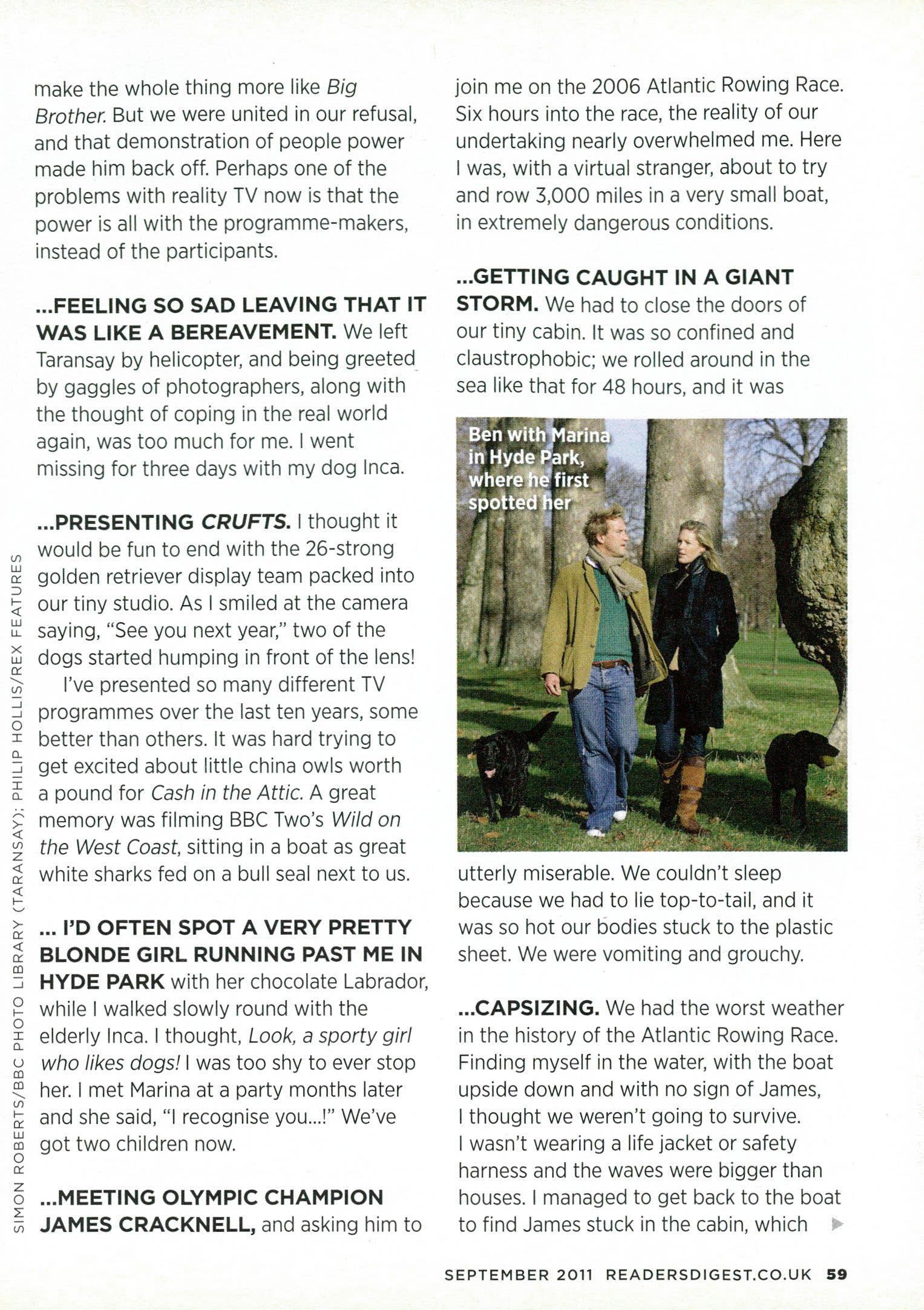
utterly miserable. We couldn't sleep because we had to lie top-to-tail, and it was so hot our bodies stuck to the plastic sheet. We were vomiting and grouchy.
...CAPSIZING. We had the worst weather in the history of the Atlantic Rowing Race. Finding myself in the water, with the boat upside down and with no sign of James, I thought we weren't going to survive. I wasn't wearing a life jacket or safety harness and the waves were bigger than houses. I managed to get back to the boat to find James stuck in the cabin, which
Chilling out on the boat... literally. Ben getting "utterly miserable" on the Atlantic Rowing Race
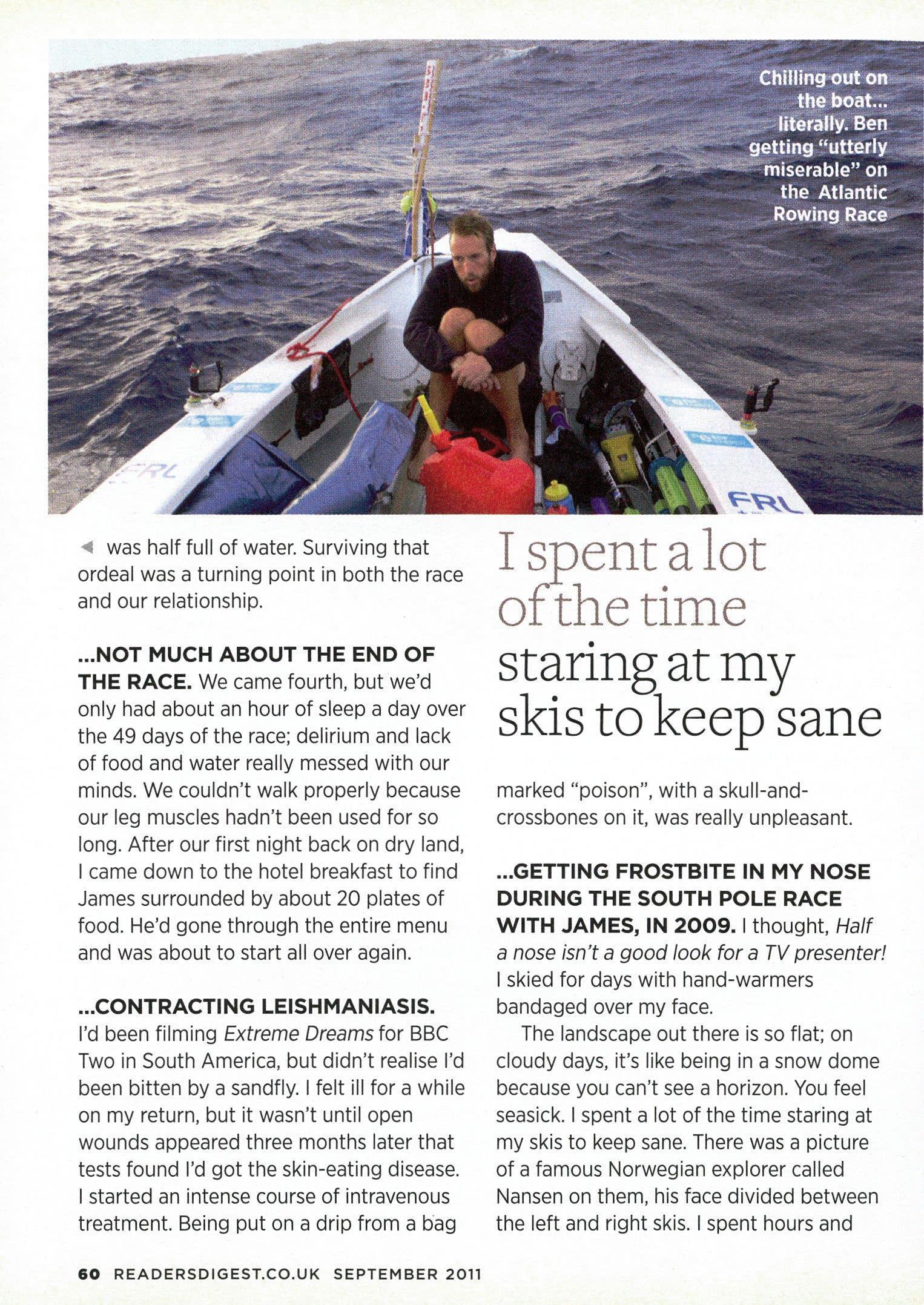
4 was half full of water. Surviving that ordeal was a turning point in both the race and our relationship.
...NOT MUCH ABOUT THE END OF THE RACE. We came fourth, but we'd only had about an hour of sleep a day over the 49 days of the race; delirium and lack of food and water really messed with our minds. We couldn't walk properly because our leg muscles hadn't been used for so long. After our first night back on dry land, I came down to the hotel breakfast to find James surrounded by about 20 plates of food. He'd gone through the entire menu and was about to start all over again.
...CONTRACTING LEISHMANIASIS.
I'd been filming Extreme Dreams for BBC Two in South America, but didn't realise I'd been bitten by a sandfly. I felt ill for a while on my return, but it wasn't until open wounds appeared three months later that tests found I'd got the skin-eating disease. I started an intense course of intravenous treatment. Being put on a drip from a bag
I spent a lot of the time staring at my skis to keep sane
marked "poison", with a skull-andcrossbones on it, was really unpleasant.
...GETTING FROSTBITE IN MY NOSE DURING THE SOUTH POLE RACE WITH JAMES, IN 2009. I thought, Half a nose isn't a good look for a TV presenter! I skied for days with hand-warmers bandaged over my face.
The landscape out there is so flat; on cloudy days, it's like being in a snow dome because you can't see a horizon. You feel seasick. I spent a lot of the time staring at my skis to keep sane. There was a picture of a famous Norwegian explorer called Nansen on them, his face divided between the left and right skis. I spent hours and
hours watching the two sides of his face slide past each other.
...USING MEMORIES TO KEEP ME POSITIVE. I'd disappear in my mind to all the different places I'd been, or recall precious moments with friends and family. At the end of the race, after 18 days, we were stuck in our tents for ten days at the South Pole, where it was minus 60°C, waiting to be collected. That was hard.
...STRAPPING MY SON LUDO CLOSE TO MY CHEST IN THE BABY CARRIER AND TAKING HIM OUTSIDE when he was two weeks old. It was December 2009 and we were in Cornwall. As I walked along the beach in the bracing wind out to St Michael's Mount, I could feel his 0 little heart beating next to mine. The s reality that I'd helped create another human being and that he totally depended LL on me seemed incredible. I felt so Lo connected to him.
...THE
DOCTOR SAYING, "YOU HAVE A LITTLE GIRL," WHEN IONA WAS BORN THIS MAY. I'd always wanted a daughter so I was overjoyed—I can still hardly believe she's joined our family. I can't wait for the father-daughter bond to develop as she grows up. I'm looking forward to taking both Ludo and lona on wonderful journeys around the world.
...OFTEN FEELING EMBARRASSED ABOUT ALL THE INCREDIBLE OPPORTUNITIES I'VE HAD. Jumping from project to project, I find I don't always have time to share stories of my adventures with friends. Yet it's that very dichotomy in my life— one week being marooned on an island in Papua New Guinea, the next going out to dinner with friends in London—that I thrive on. ■
As told to Caroline Hutton
» Ben's travel memoir The Accidental Adventurer is published on September 1.
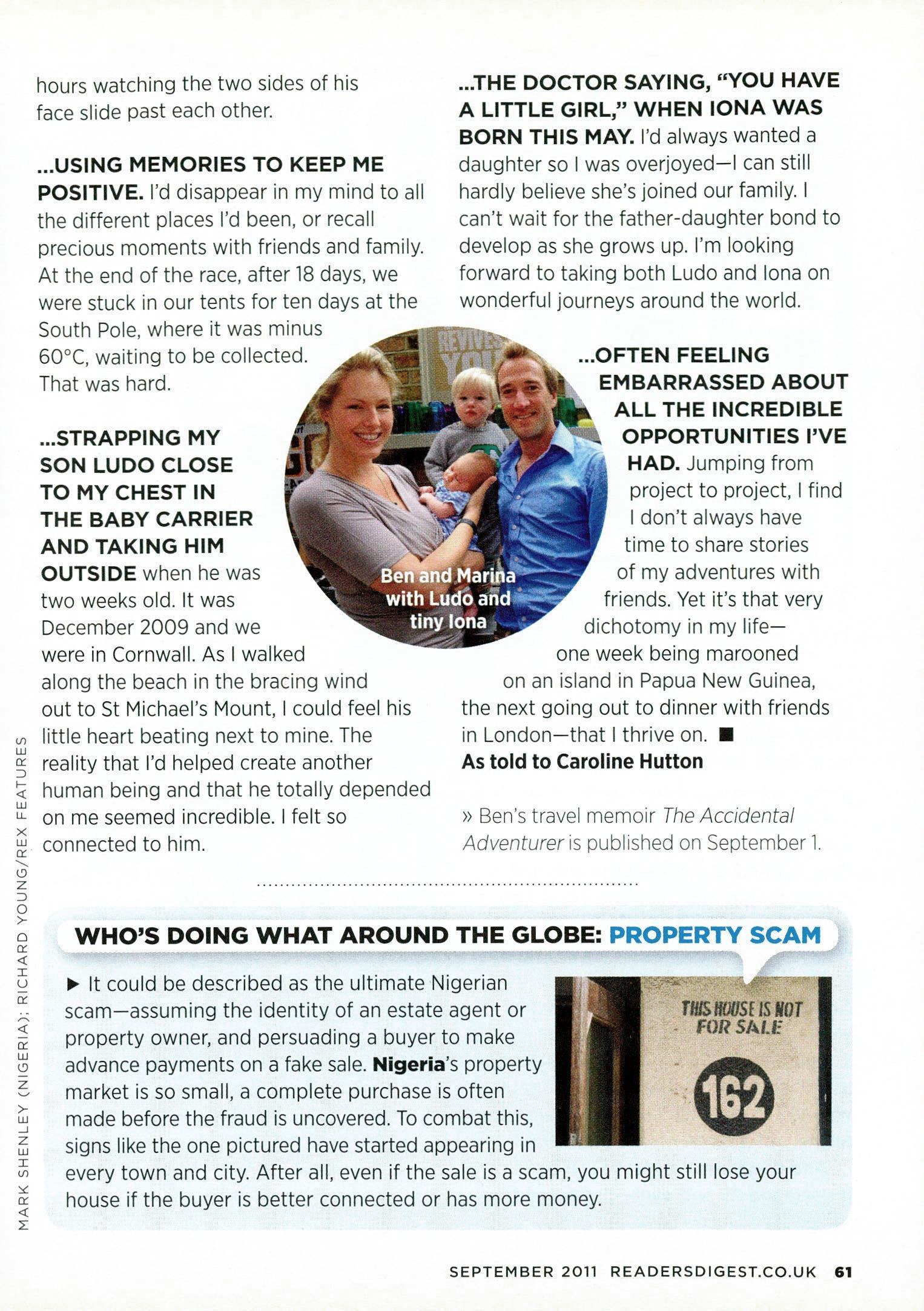
DOING WHAT AROUND THE GLOBE: PROPERTY SCAM
► It could be described as the ultimate Nigerian scam—assuming the identity of an estate agent or property owner, and persuading a buyer to make advance payments on a fake sale. Nigeria's property market is so small, a complete purchase is often made before the fraud is uncovered. To combat this, signs like the one pictured have started appearing in every town and city. After all, even if the sale is a scam, you might still lose your house if the buyer is better connected or has more money.
MISUSE Is NOT - FOR SALE
for changes in the design of appliances, style of furnishings and type of technology we live with.
And forget properties with separate rooms—in the future, we'll be strolling around free-flowing interiors. Household
FAREWELL
It'll be hello instead to appliances such as electric steamers and slo-cookers, designed to prepare health-conscious meals, according to analysts at research company Mintel. Kettles, meanwhile, "will be fully replaced by taps with the capability to deliver boiling water" by 2020, says Paul Flowers, senior vice-president of design at bathroom manufacturer Grohe.

appliance manufacturer Electrolux, for example, predicts that kitchens will become an extension of the living room, with concealed areas for appliances and storage (and highly-efficient extractors). Ready for a tour of the 2030 home?
Cooking tips from a virtual friend, anyone?
As early as next year, when next-generation Kenmore appliances become available, the fridge, oven, washer and dryer will be controlled by smartphone, tablet or by a touch-screen on the appliance itself. Already, LG's Wi-Fi-enabled fridge, launched at the Consumer Electronics Show last autumn, makes recipe suggestions and identifies food-expiry dates on its LCD display. And, to keep energy bills down, LG's new smart ovens, washers and dryers each use a smart meter to ensure they consume a minimum amount of energy at the least expensive tariff.
Goodbye
Instead of having an array of separate gadgets, we'll be using integrated all-inone appliances such as a combined kitchen table/ bar unit with a cooking surface that will adapt to
LIGHTS FANTASTIC

users' needs. How? Just place ingredients on the surface and—voila!—the appliance will analyse them and present a list of suitable recipes. Then mark out the cooking area by pressing your hand against the surface and place the pan on it, while setting the temperature and cooking time with one finger. Electrolux already has a prototype.
By 2016, expect "appliances, fixtures and sinks completely hidden when not in use", says Craig Davies, president (Europe) of the appliance manufacturers Sub-Zero and Wolf. "Sinks, taps and appliances will retract into counter-tops, and technology will allow designs and layouts to be flexible and kinetic— essential for an ageing population. Purified air will keep food fresh in refrigerators, while pure oxygen will be circulated around the home."
The OLED (organic light-emitting diode) lamps now becoming available will evolve further—into strips as thin as fabric for use around the home. "OLEDs are going to change the way designers, architects and the general public use light," says designer Tom Dixon, who's collaborated with Philips on nextgeneration OLED lights. Meanwhile, solar lighting will be used indoors as well as outside, and could even power appliances such as vacuum cleaners.
Designer Sir James Dyson hints as much when he says, "Photovoltaic technology will become so efficient that paint on roofs will generate enough energy to power an entire building. One thing that
Strip OLED lighting: more illumination for less energy
won't change much is the power of the sun."
It's a view shared by top interior designer Joanna Wood. "By around 2025 we'll get our energy from solar or wind power, having found sophisticated ways to store it," she predicts. "This will change the look of our homes. By 2045 radiators may well vanish in favour of underfloor heating generated by lowlevel electricity.
"Computers will run our homes by 2020," she adds. Wireless technology won't only be used for functional purposes such as altering thermostats, though.
"Electronic wall displays of photo albums and audio-visual 'screen' art will become the norm."
RISE OF THE TECHNO HUB RECYCLED LIVING ROOMS
It's going to be environmental all the way, with the emphasis on sustainable or recycled materials for our furnishings. By 2025 it's likely that most of our floor coverings will come from naturally renewable sources such as bamboo, oak or cork, while carpets will employ Triexia fibres. These are part-made from corn sugar, and so use less petroleum during manufacturing than synthetic fabrics. Furniture will be hand-crafted and made from natural or recycled materials for similar reasons.

Eco-friendly furniture: coming soon (if not with you already?) **,
The growth in home technology and entertainment will mean a greater convergence of radios, music systems and TVs within allin-one units.
Mintel predicts a rise in sales of hometechnology kit from £49bn in 2008 to £60bn by 2014. And with the Consumers Electronics Association forecasting sales of 28.2 million internet-connected TV sets in 2014 (and rising), standalone radios and stereo systems could soon disappear from our homes. A recent Mintel report says Wi-Fi radios that can receive internet radio streams, DAB broad- casts and FM stations, and are also DAB+ upgradable, if "offer consumers a far more future-proof way of going digital than a DAB-only radio".
Switch on and recline
Meanwhile, all electronic home products will have an IP address, allowing them to be connected to the internet and to each other. A recent report from Stylus, an inspiration and information resource for the consumer industries, reveals: "By 2016 Wi-Fi appliances will permit remote management and address a household's energy. This will turn the home from a series of rooms used for distinct functions to a single
Stop the clocks, watches and shelves
One item we won't need is a bookshelf, thanks to the rise of the e-reader. Nor will we need clocks,
since many appliances already have time displays, as do mobiles. A recent Mintel report states: "The
organism that's centrally controlled and maximises energy efficiency. This anticipates the capability to create, capture and store our own energy, which could potentially be sold back to the National Grid."
Technology's role in monitoring water and energy consumption is confirmed by Kate Franklin of trends forecasting consultancy FranklinTill. "Ecocredentials will become standard," she says. "As more eco-regulations are placed on household appliances, we anticipate a modern interpretation of the utility room, which will serve as an 'eco-management hub'.
"By 2020 about 12 million people in the UK will work from home. As a result, the concept of the home office will be redefined—we'll see the rise of the Communications Annexe, where work and leisure activities are combined."
watch as a simple tool for telling the time could soon become redundant. Mobile-phone usage by all ages could pose a threat to watches."
DIALLING IN YOUR BATE
A more efficient use of space will see bathrooms merge with bedrooms. "By 2020 the bathroom will be a hybrid space combined with the bedroom, dressing room and fitness area," says Paul Flowers.
Here again, technology is key. "Bathrooms will be fully digitised to reduce water consumption and baths will be filled by remote instruction from your smartphone on your way home," he says. "'Intelligent' showers and taps will automatically know your preferred settings. And toilets will be odourless thanks to
Bath time as a fully interactive experience

silent extractor systems."
"Technology will transform our bathrooms by 2020," agrees Cheryl Gurner of London-based Bathrooms International. "Sensors reacting to your body temperature will control the water temperature and length of time needed for a shower. Where baths are retained, digital content will be projected on a wall or ceiling for viewing while bathing. Materials will be easy to clean, or even self-cleaning, and we'll focus on white as the dominant colour—not only in bathrooms but throughout the home."

bed of the future
DOMINATION with a retractable
FROM YOUR BED
Expect your bed to become wider and longer—we're getting bigger, after all— with integral swing-out tables for laptop use. (Already some have televisions that pop up from the foot of the bed, then seamlessly disappear at the touch of a button.)
"Within a few years, beds will be tailor-made to a person's height and weight, and mainly electronically controlled, which will help older people," says
I The four-poster
TV screen (below)
JoannaWood. Sandra Drechsler, creative director of London-based interior designers Taylor Howes, notes that "apps", which are currently just appearing in the interiors market, will be used on a daily basis by 2020. "They will help in many
different ways, from running your bath remotely to cataloguing your wardrobe contents so it's quicker to dress in the morning," she says.
So the home life of the future looks like being high-tech but seriously user-friendly. Now, if someone could just invent an all-room, all-surface, instant cleaning and tidying-up device... •
FANCY TH V THE SIZE OF AN ATOM
They say good comes in small packages, which bodes well for the humble atom. Think of it this way: if you were to put one million atoms side by side, they could hide behind the width of a single strand of hair. There are more atoms in a grain of sand than there are grains of sand on Bondi Beach in Australia. Even more remarkably, if you were to give everyone in Britain a penny for every atom on the tip of a single pin, we'd each have £5Obn to spend.
But then again, if you think that's small, the nucleus at thecentre of an atom is roughly 145,000 times smaller.

"Take one dose of Bach twice a day, and one of Vivaldi just before bedtime."
Welcome to the tuneful new world of music medicine
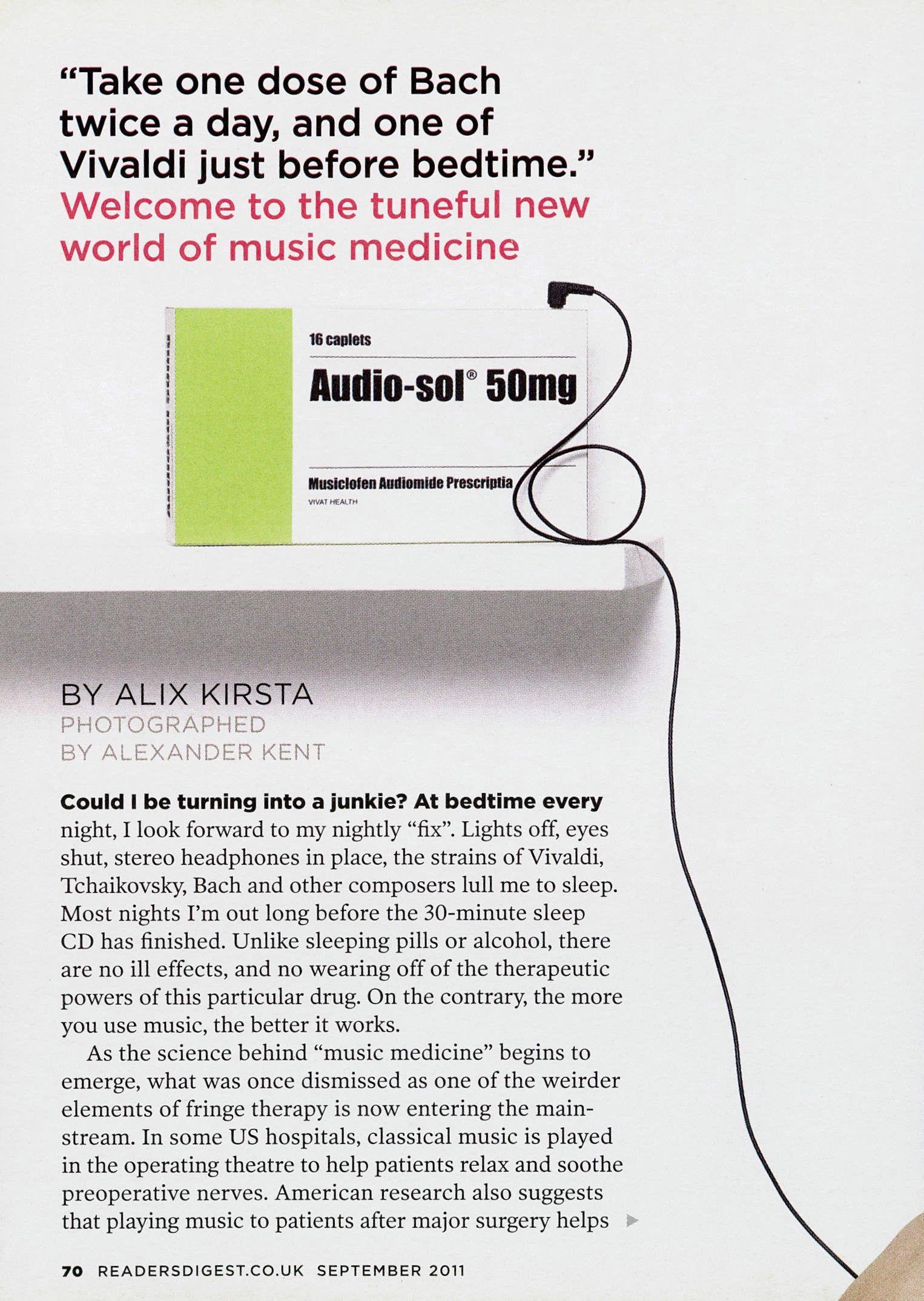 BY ALIX KIRSTA
BY ALIX KIRSTA
PhO i 0;3RAPHED
BY ALEXANDER KENTCould I be turning into a junkie? At bedtime every night, I look forward to my nightly "fix". Lights off, eyes shut, stereo headphones in place, the strains of Vivaldi, Tchaikovsky, Bach and other composers lull me to sleep. Most nights I'm out long before the 30-minute sleep CD has finished. Unlike sleeping pills or alcohol, there are no ill effects, and no wearing off of the therapeutic powers of this particular drug. On the contrary, the more you use music, the better it works.
As the science behind "music medicine" begins to emerge, what was once dismissed as one of the weirder elements of fringe therapy is now entering the mainstream. In some US hospitals, classical music is played in the operating theatre to help patients relax and soothe preoperative nerves. American research also suggests that playing music to patients after major surgery helps 11.-
Audio-sol® 50mg Musicloien Audiomine Prescriona

® to lower blood pressure and heart rate, and accelerate healing. Advanced brain "mapping" technology, including "functioning" MRI scans to pinpoint which areas of the brain respond to different stimuli, enables therapists to identify which types of music have calming, energising or even negative effects on mind and body.
This has led to the most exciting discovery of all: that different musical rhythms and tempi seem to mirror our individual brainwave frequencies —electrical wave patterns generated by the brain. Since these patterns reflect how tense or relaxed we are, researchers speculate that various forms of "custom-made" music
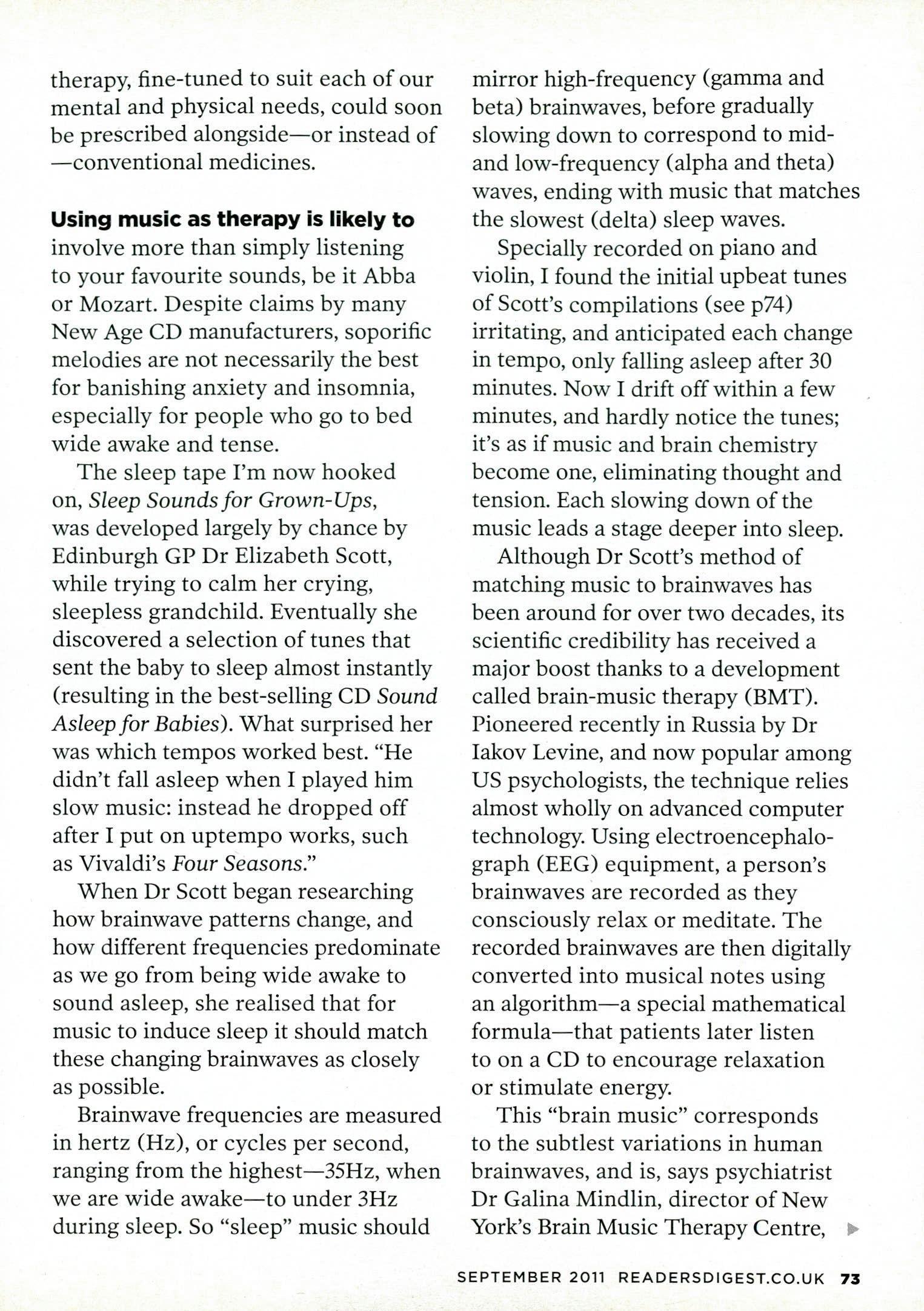
therapy, fine-tuned to suit each of our mental and physical needs, could soon be prescribed alongside—or instead of —conventional medicines.
Using music as therapy is likely to involve more than simply listening to your favourite sounds, be it Abba or Mozart. Despite claims by many New Age CD manufacturers, soporific melodies are not necessarily the best for banishing anxiety and insomnia, especially for people who go to bed wide awake and tense.
The sleep tape I'm now hooked on, Sleep Sounds for Grown-Ups, was developed largely by chance by Edinburgh GP Dr Elizabeth Scott, while trying to calm her crying, sleepless grandchild. Eventually she discovered a selection of tunes that sent the baby to sleep almost instantly (resulting in the best-selling CD Sound Asleep for Babies). What surprised her was which tempos worked best. "He didn't fall asleep when I played him slow music: instead he dropped off after I put on uptempo works, such as Vivaldi's Four Seasons."
When Dr Scott began researching how brainwave patterns change, and how different frequencies predominate as we go from being wide awake to sound asleep, she realised that for music to induce sleep it should match these changing brainwaves as closely as possible.
Brainwave frequencies are measured in hertz (Hz), or cycles per second, ranging from the highest-35Hz, when we are wide awake—to under 3Hz during sleep. So "sleep" music should
mirror high-frequency (gamma and beta) brainwaves, before gradually slowing down to correspond to midand low-frequency (alpha and theta) waves, ending with music that matches the slowest (delta) sleep waves.
Specially recorded on piano and violin, I found the initial upbeat tunes of Scott's compilations (see p74) irritating, and anticipated each change in tempo, only falling asleep after 30 minutes. Now I drift off within a few minutes, and hardly notice the tunes; it's as if music and brain chemistry become one, eliminating thought and tension. Each slowing down of the music leads a stage deeper into sleep.
Although Dr Scott's method of matching music to brainwaves has been around for over two decades, its scientific credibility has received a major boost thanks to a development called brain-music therapy (BMT). Pioneered recently in Russia by Dr Iakov Levine, and now popular among US psychologists, the technique relies almost wholly on advanced computer technology Using electroencephalograph (EEG) equipment, a person's brainwaves are recorded as they consciously relax or meditate. The recorded brainwaves are then digitally converted into musical notes using an algorithm—a special mathematical formula—that patients later listen to on a CD to encourage relaxation or stimulate energy.
This "brain music" corresponds to the subtlest variations in human brainwaves, and is, says psychiatrist Dr Galina Mindlin, director of New York's Brain Music Therapy Centre,
"more personal than a fingerprint— no two sound alike".
Most brain music, she says, sounds rather like classical piano music, varying in tempo, pitch, rhythm and harmony from person to person, depending on how relaxed or agitated they are. According to Damian Fowler, a New York music critic who has tried BMT, his brainwaves "sounded like a cross between Philip Glass and Bach, played on a piano by a competent amateur. The key was C minor."
A PRESCRIPTION FOR SLEEP?
Dr Scott's sleep compilations for adults start off with uptempo pieces such as the first movement of Vivaldi's "Concerto in A Minor" and Grieg's "Holberg Suite: Prelude", followed by sweeping lyrical melodies including Tchaikovsky's "Sleeping Beauty: Panorama" and Saint-Sans' "The Dying Swan". They culminate in hypnotic, drawnout compositions like Rachmaninoff's "Vocalise", and Elgar's "Salut d'Amour". To download, visit sleep-sounds.co.uk.
Reports from the US suggest BMT produces more benefits than listening to conventional relaxing music, and has proved especially effective in relieving migraines, anxiety disorders, depression and insomnia.
Patients are given two personalised CDs for daily home use: one to relax, another to raise energy. Although mood and health can take several weeks to improve, eventually the music can become so familiar that the brain automatically switches to
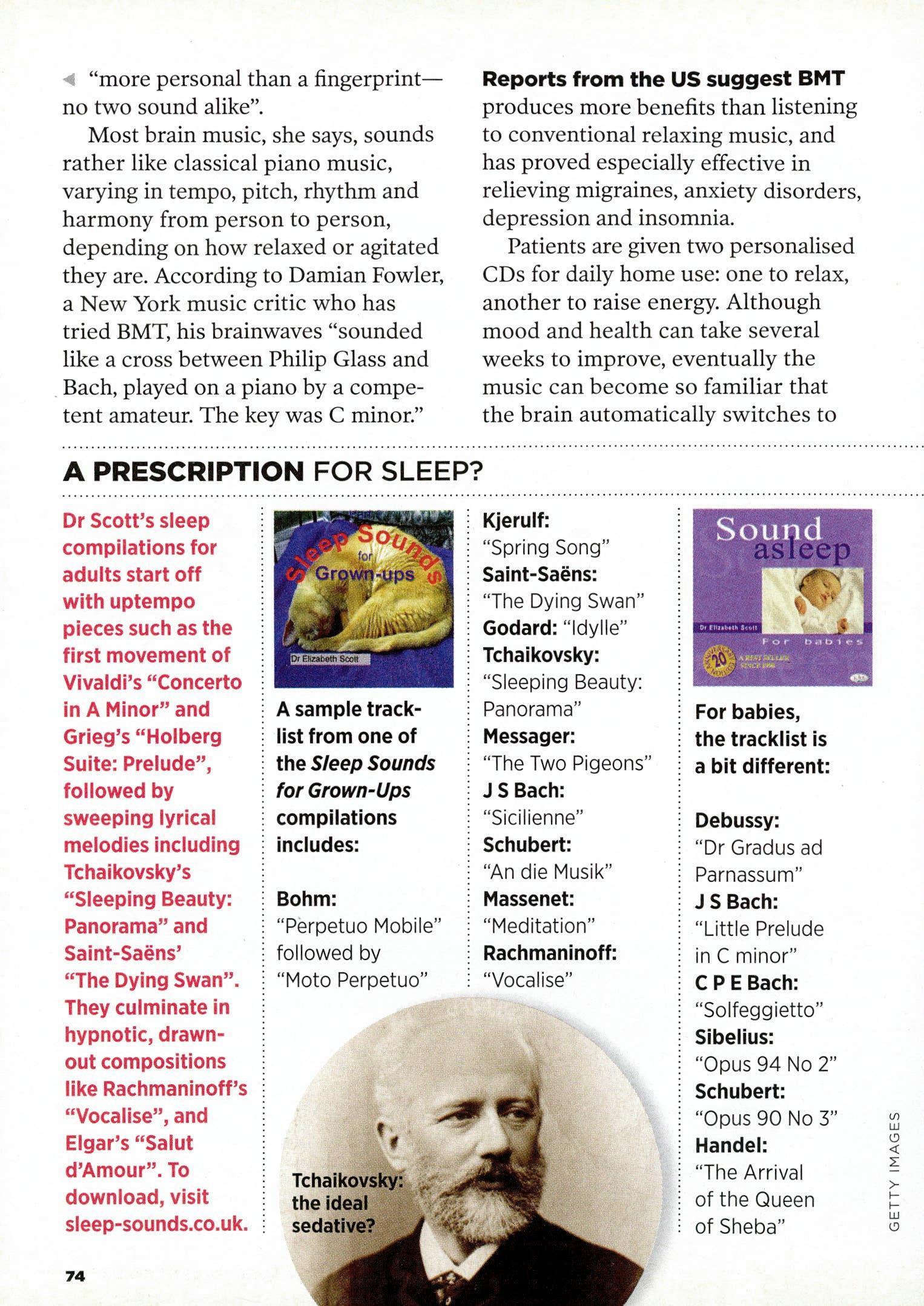
A sample tracklist from one of the Sleep Sounds for Grown-Ups compilations includes:
Bohm: "Perpetuo Mobile" followed by "Moto Perpetuo"
Kjerulf: "Spring Song"
Saint-Satins: "The Dying Swan"
Godard: "Idylle"
Tchaikovsky: "Sleeping Beauty: Panorama"
Messager: "The Two Pigeons"
J S Bach: "Sicilienne"
Schubert: "An die Musik"
Massenet: "Meditation"
Rachmaninoff: "Vocalise"
For babies, the tracklist is a bit different:
Debussy: "Dr Gradus ad Parnassum"
J S Bach: "Little Prelude in C minor"
C P E Bach: "Solfeggietto"
Sibelius: "Opus 94 No 2"
Schubert: "Opus 90 No 3"
Handel: "The Arrival of the Queen of Sheba"
its own relaxed rhythm—similar to my experience with Dr Scott's sleep tapes. Other studies confirm the influence of brain music: listening to slow, classical music has been shown to release the sleep hormone melatonin while reducing the stress chemicals cortisol and adrenalin.
So might we one day reach for the appropriate musical "prescription" depending on whether we're panicky, depressed or sleep deprived?
Well, yes, we might. Although BMT
Beethoven:
"Opus 13 2nd Movement"
Bartok: "Rumanian Dances 5&6"
F David: "Etude"
Tchaikovsky: "Swan Lake"
Vivaldi (below):
"Opus 8 No 1: Spring"
Henselt: "The Fountain"
Vivaldi:
"Opus 8 No 4: Winter" t:gt
e 4
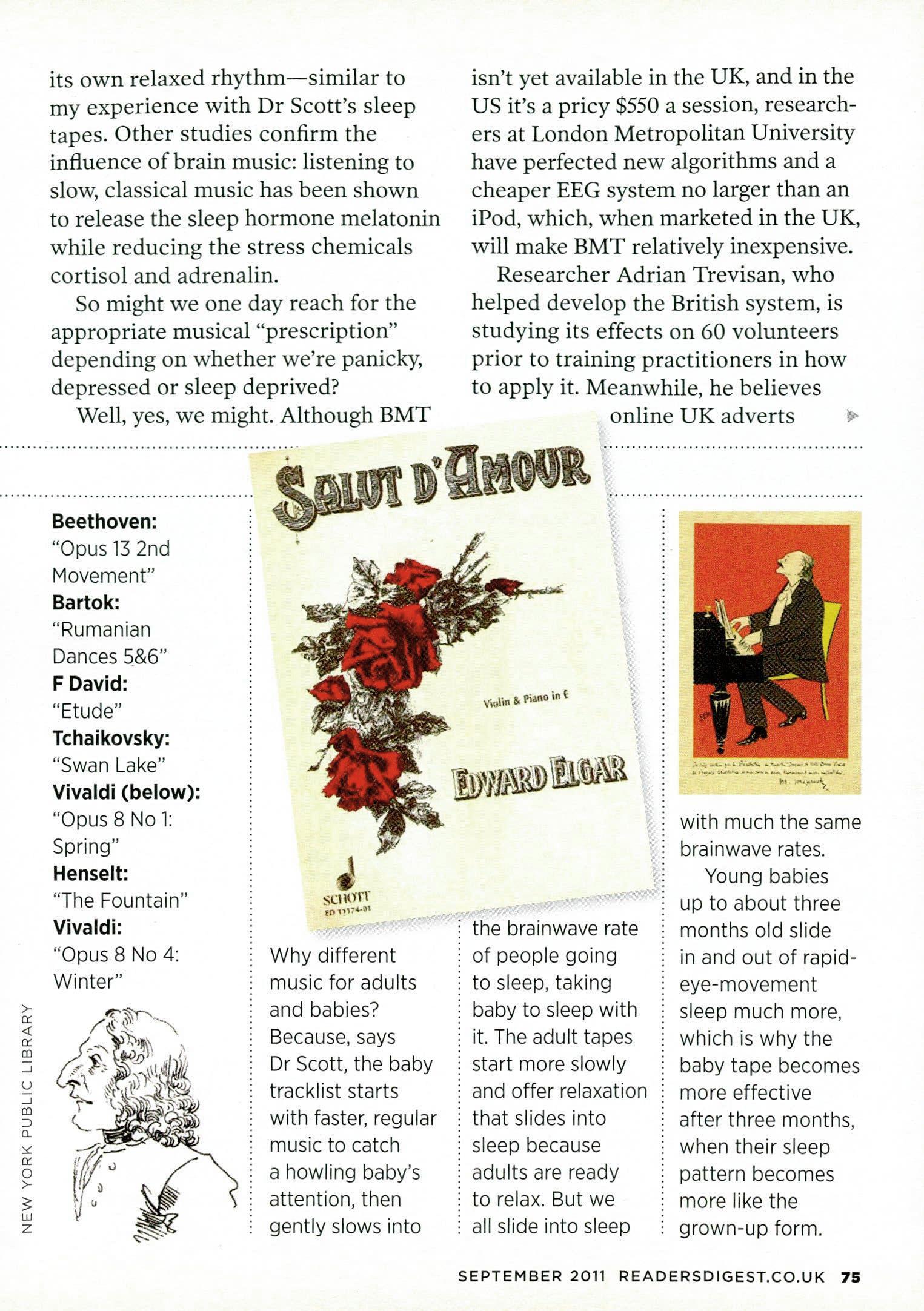
Why different music for adults and babies?
Because, says Dr Scott, the baby tracklist starts with faster, regular music to catch a howling baby's attention, then gently slows into
isn't yet available in the UK, and in the US it's a pricy $550 a session, researchers at London Metropolitan University have perfected new algorithms and a cheaper EEG system no larger than an iPod, which, when marketed in the UK, will make BMT relatively inexpensive.
Researcher Adrian Trevisan, who helped develop the British system, is studying its effects on 60 volunteers prior to training practitioners in how to apply it. Meanwhile, he believes online UK adverts ►
the brainwave rate of people going to sleep, taking baby to sleep with it. The adult tapes start more slowly and offer relaxation that slides into sleep because adults are ready to relax. But we all slide into sleep
with much the same brainwave rates. Young babies up to about three months old slide in and out of rapideye-movement sleep much more, which is why the baby tape becomes more effective after three months, when their sleep pattern becomes more like the grown-up form.
It may not be what we listen to, but how we listen to it that turns music into therapy
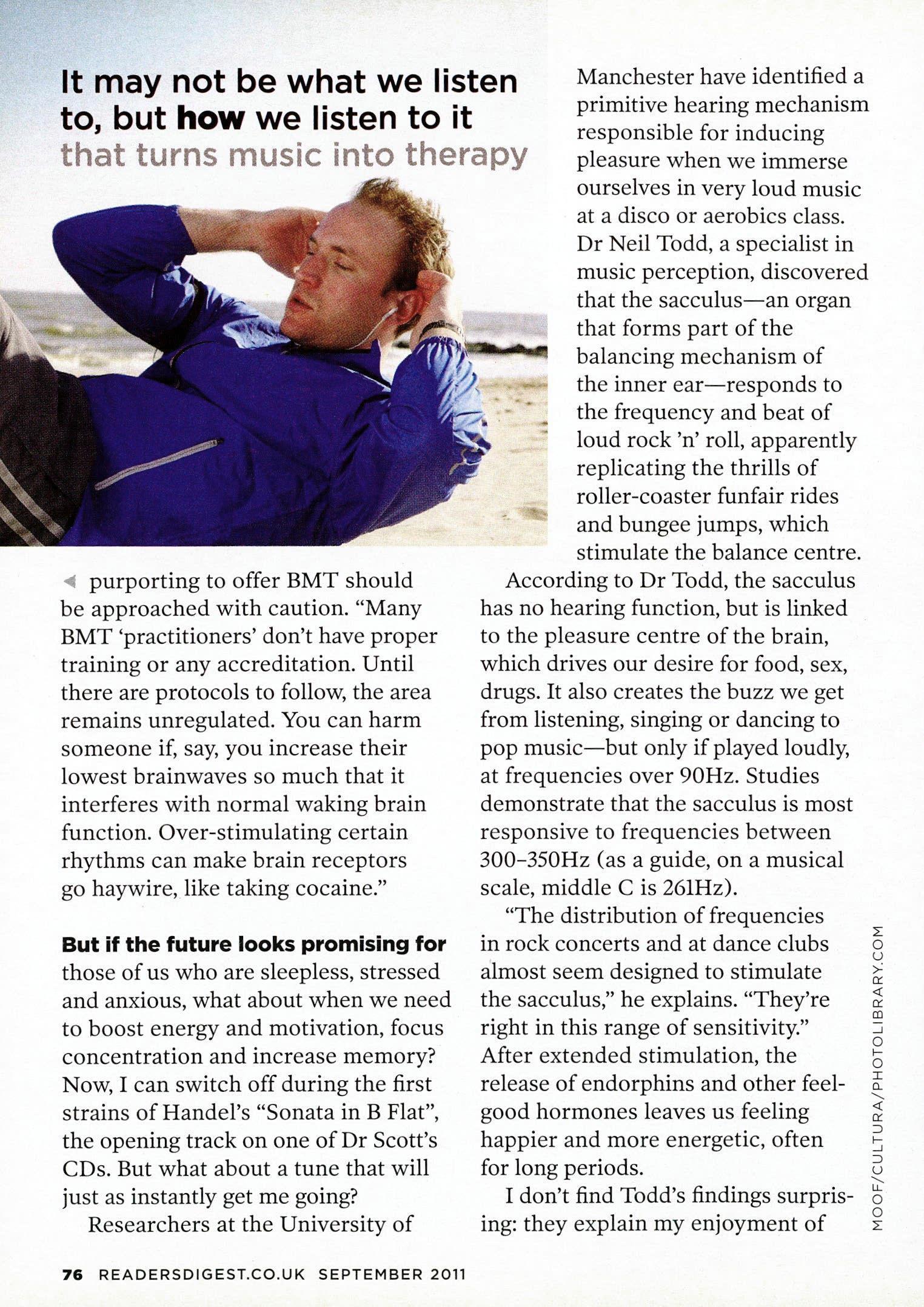
4 purporting to offer BMT should be approached with caution. "Many BMT 'practitioners' don't have proper training or any accreditation. Until there are protocols to follow, the area remains unregulated. You can harm someone if, say, you increase their lowest brainwaves so much that it interferes with normal waking brain function. Over-stimulating certain rhythms can make brain receptors go haywire, like taking cocaine."
But if the future looks promising for those of us who are sleepless, stressed and anxious, what about when we need to boost energy and motivation, focus concentration and increase memory? Now, I can switch off during the first strains of Handel's "Sonata in B Flat", the opening track on one of Dr Scott's CDs. But what about a tune that will just as instantly get me going?
Researchers at the University of
Manchester have identified a primitive hearing mechanism responsible for inducing pleasure when we immerse ourselves in very loud music at a disco or aerobics class. Dr Neil Todd, a specialist in music perception, discovered that the sacculus—an organ that forms part of the balancing mechanism of the inner ear—responds to the frequency and beat of loud rock 'n' roll, apparently replicating the thrills of roller-coaster funfair rides and bungee jumps, which stimulate the balance centre.
According to Dr Todd, the sacculus has no hearing function, but is linked to the pleasure centre of the brain, which drives our desire for food, sex, drugs. It also creates the buzz we get from listening, singing or dancing to pop music—but only if played loudly, at frequencies over 90Hz. Studies demonstrate that the sacculus is most responsive to frequencies between 300-350Hz (as a guide, on a musical scale, middle C is 261Hz).
"The distribution of frequencies in rock concerts and at dance clubs z 8 almost seem designed to stimulate the sacculus," he explains. "They're right in this range of sensitivity." 1i m After extended stimulation, the release of endorphins and other feelgood hormones leaves us feeling happier and more energetic, often for long periods.
I don't find Todd's findings surprising: they explain my enjoyment of 2
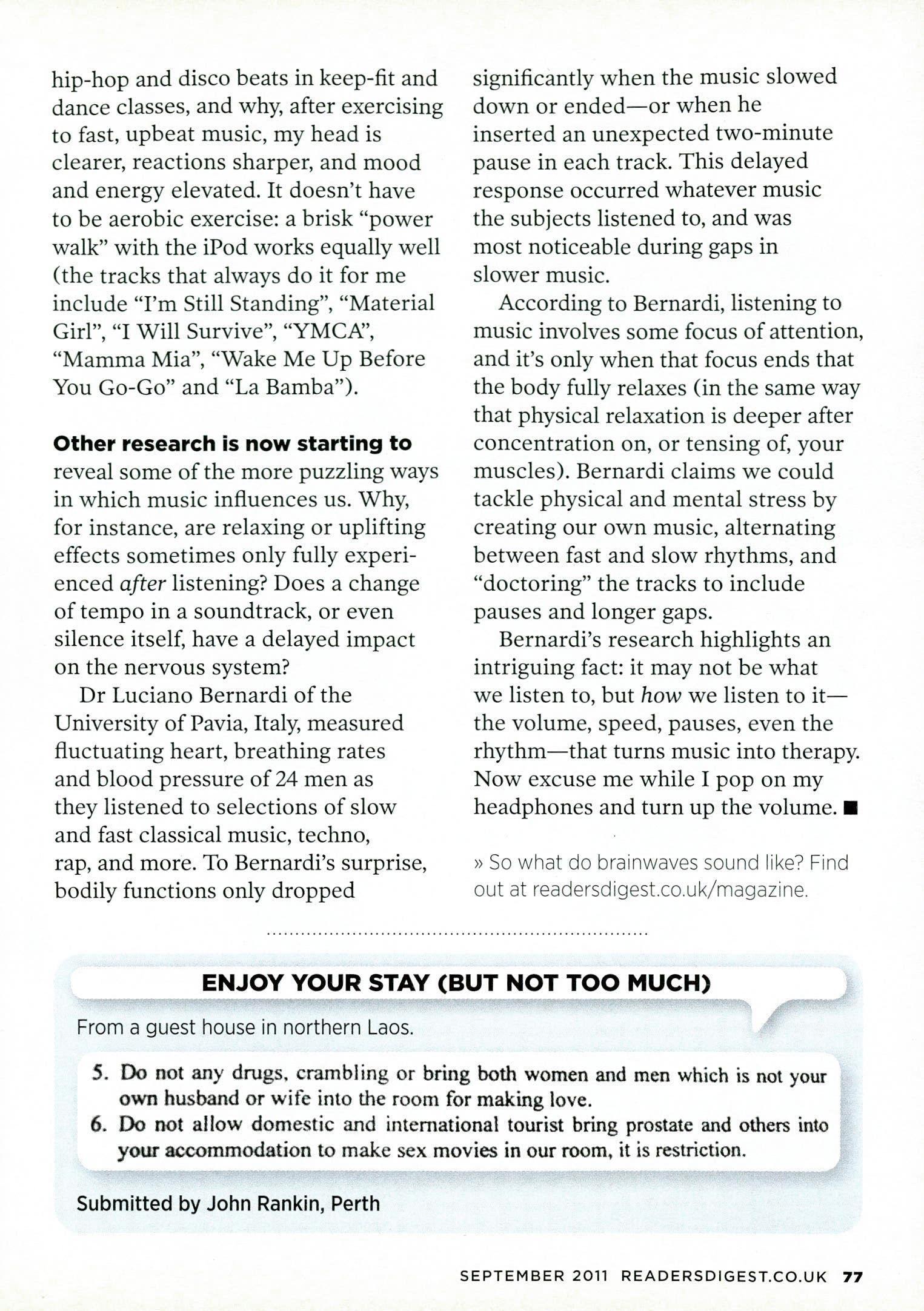
hip-hop and disco beats in keep-fit and dance classes, and why, after exercising to fast, upbeat music, my head is clearer, reactions sharper, and mood and energy elevated. It doesn't have to be aerobic exercise: a brisk "power walk" with the iPod works equally well (the tracks that always do it for me include "I'm Still Standing", "Material Girl", "I Will Survive", "YMCA', "Mamma Mia", "Wake Me Up Before You Go-Go" and "La Bamba").
Other research is now starting to reveal some of the more puzzling ways in which music influences us. Why, for instance, are relaxing or uplifting effects sometimes only fully experienced after listening? Does a change of tempo in a soundtrack, or even silence itself, have a delayed impact on the nervous system?
Dr Luciano Bernardi of the University of Pavia, Italy, measured fluctuating heart, breathing rates and blood pressure of 24 men as they listened to selections of slow and fast classical music, techno, rap, and more. To Bernardi's surprise, bodily functions only dropped
significantly when the music slowed down or ended—or when he inserted an unexpected two-minute pause in each track. This delayed response occurred whatever music the subjects listened to, and was most noticeable during gaps in slower music.
According to Bernardi, listening to music involves some focus of attention, and it's only when that focus ends that the body fully relaxes (in the same way that physical relaxation is deeper after concentration on, or tensing of, your muscles). Bernardi claims we could tackle physical and mental stress by creating our own music, alternating between fast and slow rhythms, and "doctoring" the tracks to include pauses and longer gaps.
Bernardi's research highlights an intriguing fact: it may not be what we listen to, but how we listen to it— the volume, speed, pauses, even the rhythm—that turns music into therapy. Now excuse me while I pop on my headphones and turn up the volume. ■
» So what do brainwaves sound like? Find out at readersdigest.co.uk/magazine.
ENJOY YOUR STAY (BUT NOT TOO MUCH)
From a guest house in northern Laos.
5. Do not any drugs, crambling or bring both women and men which is not your own husband or wife into the room for making love.
6. Do not allow domestic and international tourist bring prostate and others into your accommodation to make sex movies in our room, it is restriction.
Submitted by John Rankin, Perth
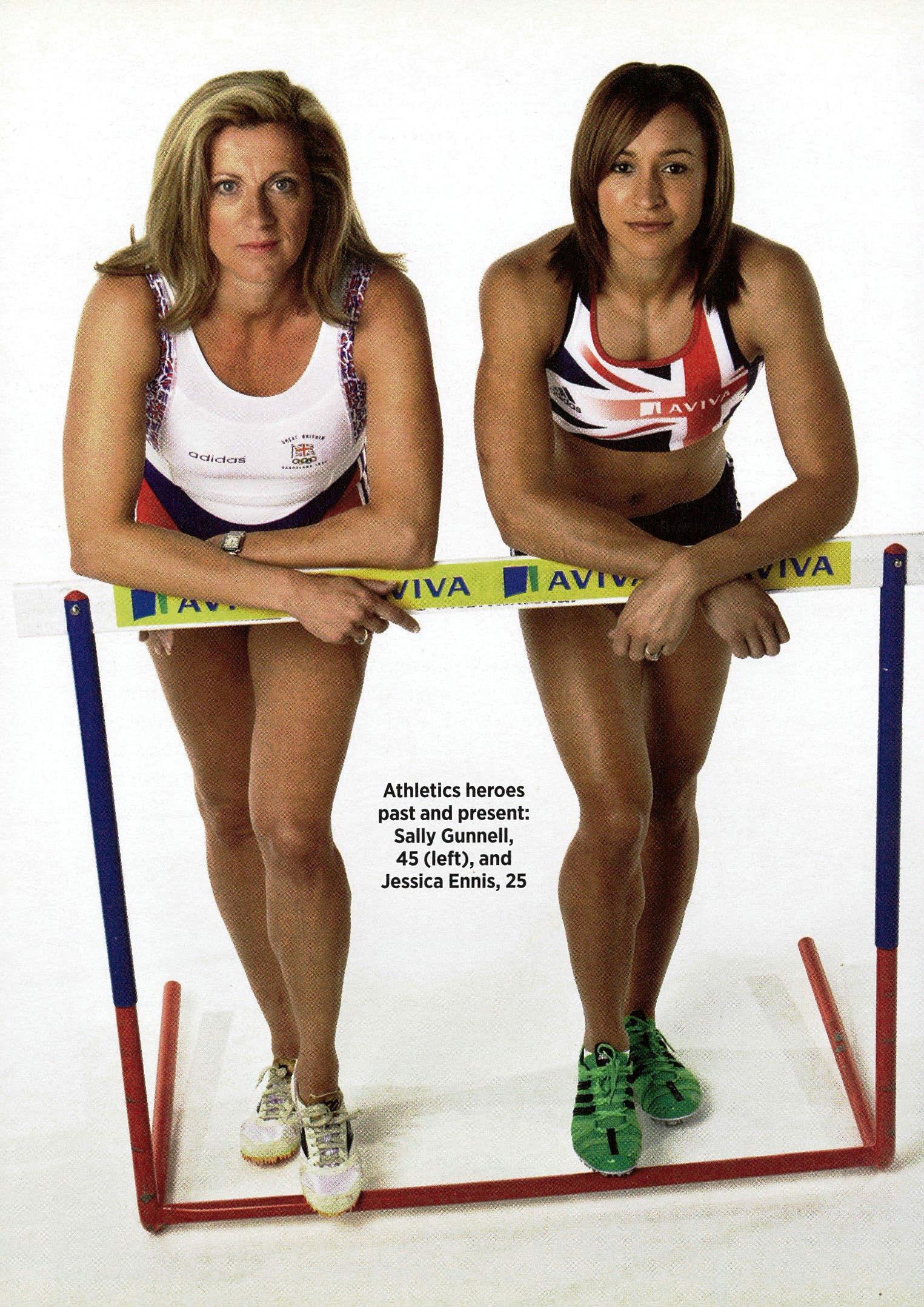
Athletics heroes past and present: Sally Gunnell, 45 (left), and Jessica Ennis, 25
GOLDEN WONDERS
Fame...money... unhygienic men...
As the Olympics countdown continues with the IAAF athletics World Championships, Sally Gunnell tells British hopeful Jessica Ennis what to expect in 2012
BY DANNY SCOTT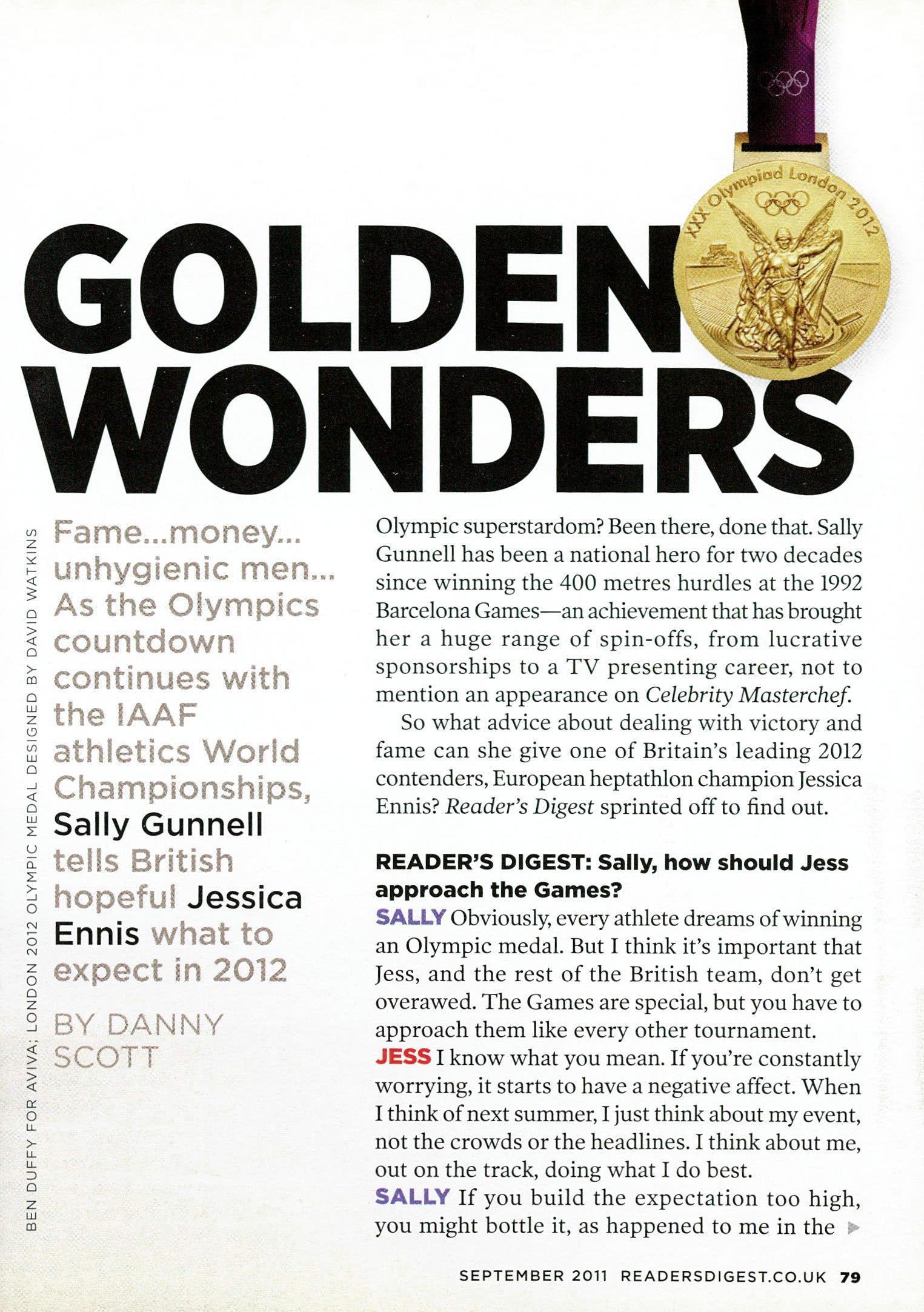
Olympic superstardom? Been there, done that. Sally Gunnell has been a national hero for two decades since winning the 400 metres hurdles at the 1992 Barcelona Games—an achievement that has brought her a huge range of spin-offs, from lucrative sponsorships to a TV presenting career, not to mention an appearance on Celebrity Masterchef.
So what advice about dealing with victory and fame can she give one of Britain's leading 2012 contenders, European heptathlon champion Jessica Ennis? Reader's Digest sprinted off to find out.
READER'S DIGEST:
Sally, how should Jess approach the Games?
SALLYObviously, every athlete dreams of winning an Olympic medal. But I think it's important that Jess, and the rest of the British team, don't get overawed. The Games are special, but you have to approach them like every other tournament.
JESSI know what you mean. If you're constantly worrying, it starts to have a negative affect. When I think of next summer, I just think about my event, not the crowds or the headlines. I think about me, out on the track, doing what I do best.
SALLY If you build the expectation too high, you might bottle it, as happened to me in the
4 1990 European Championships. I was unfocused, too worried about what people were thinking, and I was nowhere—sixth, I think.
But I've always said that I wouldn't have been as successful in Barcelona if I hadn't messed up first. Failure makes you hungry and gives you perspective— something every Olympian needs. The last thing my fiancé [now husband, Jonathan Bigg] said before I walked onto the track in Barcelona was, "Whatever happens, we'll still be here and I'll still love you." It might sound strange, but that took some pressure off. I'm sure it helped me win.
RD: What else do you remember about Barcelona?
SALLY Not a lot, if I'm totally honest. It just went by in a complete blur. As for winning the gold...all I can remember is the gun going off. Nothing else. If I had my time at the Olympics again, I'd
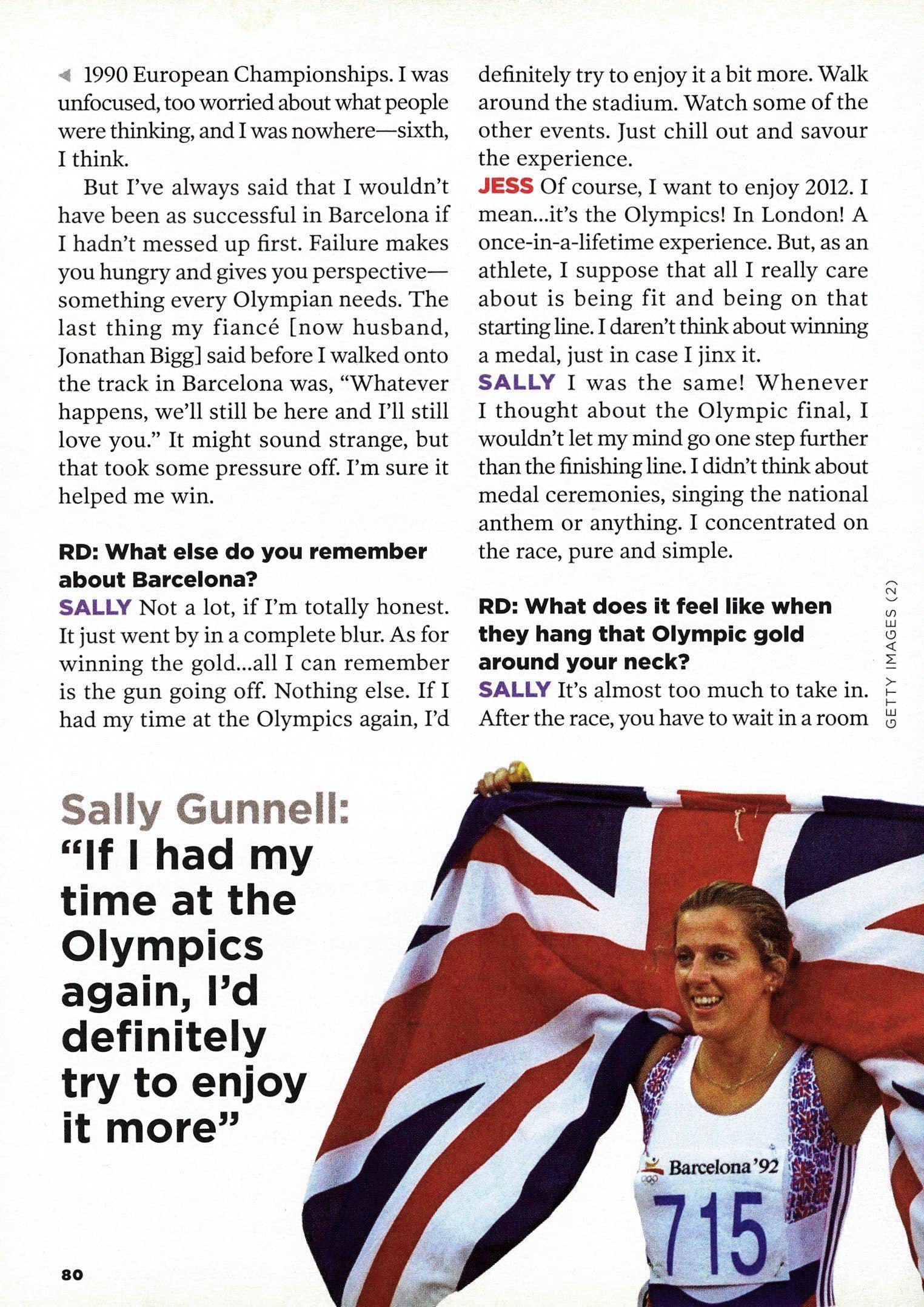
Sally Gunnell:
"If I had my time at the Olympics again, I'd definitely try to enjoy it more"
definitely try to enjoy it a bit more. Walk around the stadium. Watch some of the other events. Just chill out and savour the experience.
JESS Of course, I want to enjoy 2012. I mean...it's the Olympics! In London! A once-in-a-lifetime experience. But, as an athlete, I suppose that all I really care about is being fit and being on that starting line. I daren't think about winning a medal, just in case I jinx it.
SALLY I was the same! Whenever I thought about the Olympic final, I wouldn't let my mind go one step further than the finishing line. I didn't think about medal ceremonies, singing the national anthem or anything. I concentrated on the race, pure and simple.
RD: What does it feel like when they hang that Olympic gold around your neck?
SALLY It's almost too much to take in. After the race, you have to wait in a room
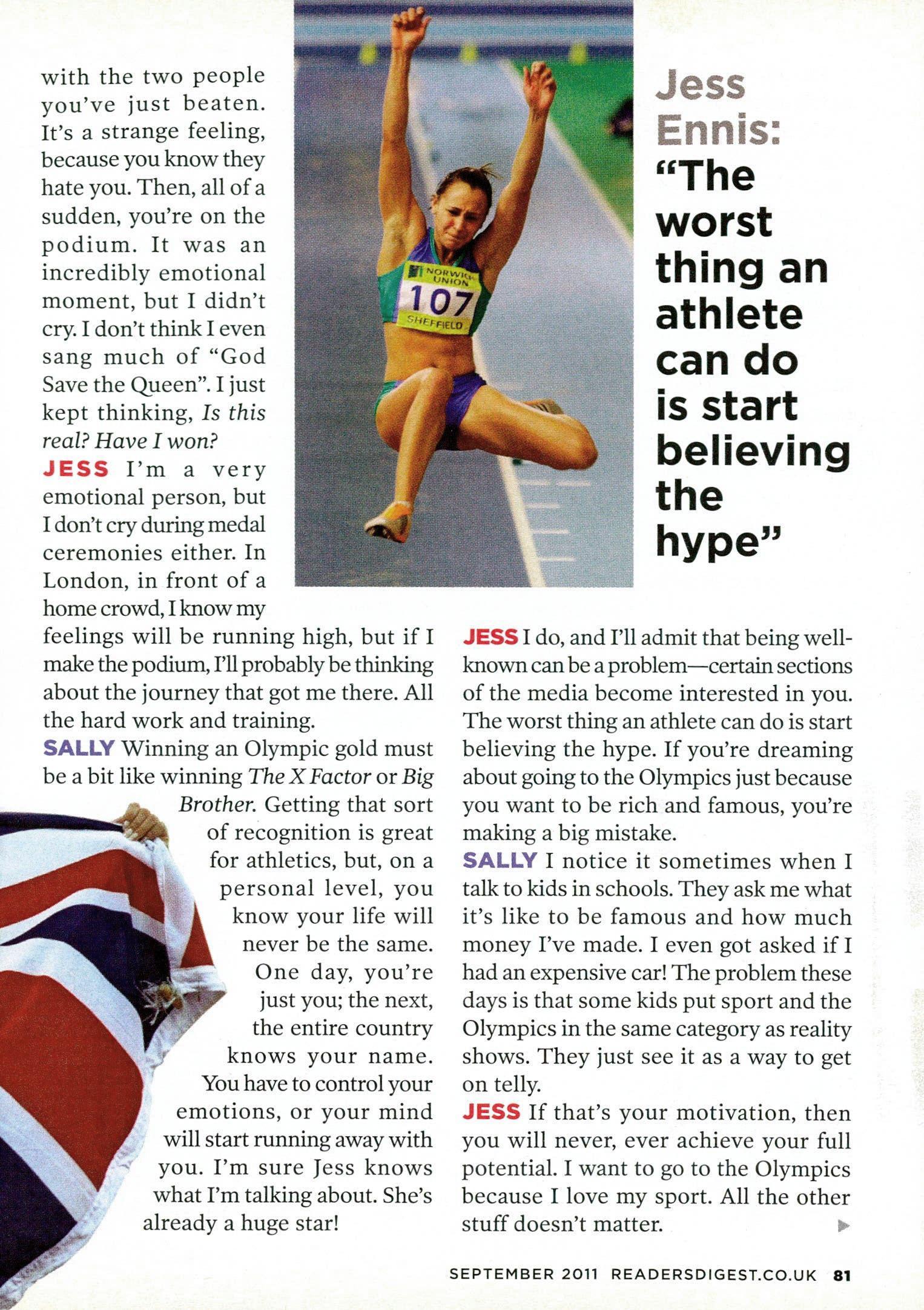
with the two people you've just beaten. It's a strange feeling, because you know they hate you. Then, all of a sudden, you're on the podium. It was an incredibly emotional moment, but I didn't cry. I don't think I even sang much of "God Save the Queen". I just kept thinking, Is this real? Have I won?
JESS I'm a very emotional person, but I don't cry during medal ceremonies either. In London, in front of a home crowd, I know my feelings will be running high, but if I make the podium, I'll probably be thinking about the journey that got me there. All the hard work and training.
SALLY Winning an Olympic gold must be a bit like winning The X Factor or Big Brother. Getting that sort of recognition is great for athletics, but, on a personal level, you know your life will never be the same.
One day, you're just you; the next, the entire country knows your name. You have to control your emotions, or your mind will start running away with you. I'm sure Jess knows what I'm talking about. She's already a huge star!
Jess Ennis.
"The worst thing an athlete can do is start believing the hype"
JESSI do, and I'll admit that being wellknown can be a problem—certain sections of the media become interested in you. The worst thing an athlete can do is start believing the hype. If you're dreaming about going to the Olympics just because you want to be rich and famous, you're making a big mistake.
SALLY I notice it sometimes when I talk to kids in schools. They ask me what it's like to be famous and how much money I've made. I even got asked if I had an expensive car! The problem these days is that some kids put sport and the Olympics in the same category as reality shows. They just see it as a way to get on telly.
JESS If that's your motivation, then you will never, ever achieve your full potential. I want to go to the Olympics because I love my sport. All the other stuff doesn't matter. ►
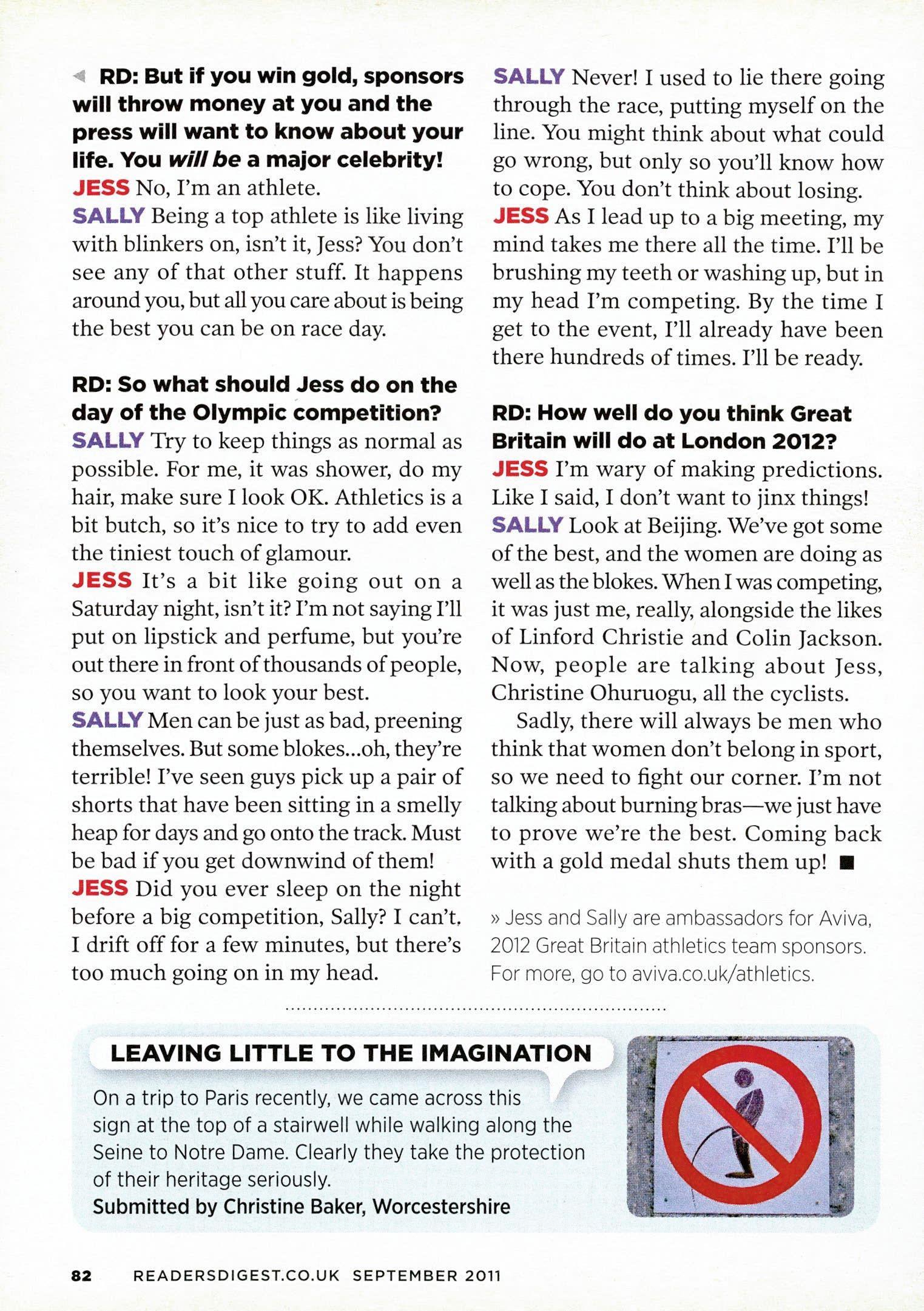
44
RD: But if you win gold, sponsors will throw money at you and the press will want to know about your life. You will be a major celebrity!
JESS No, I'm an athlete.
SALLY Being a top athlete is like living with blinkers on, isn't it, Jess? You don't see any of that other stuff. It happens around you, but all you care about is being the best you can be on race day.
RD: So what should Jess do on the day of the Olympic competition?
SALLY Try to keep things as normal as possible. For me, it was shower, do my hair, make sure I look OK. Athletics is a bit butch, so it's nice to try to add even the tiniest touch of glamour.
JESS It's a bit like going out on a Saturday night, isn't it? I'm not saying I'll put on lipstick and perfume, but you're out there in front of thousands of people, so you want to look your best.
SALLYMen can be just as bad, preening themselves. But some blokes...oh, they're terrible! I've seen guys pick up a pair of shorts that have been sitting in a smelly heap for days and go onto the track. Must be bad if you get downwind of them!
JESS Did you ever sleep on the night before a big competition, Sally? I can't, I drift off for a few minutes, but there's too much going on in my head.
SALLY Never! I used to lie there going through the race, putting myself on the line. You might think about what could go wrong, but only so you'll know how to cope. You don't think about losing.
JESSAs I lead up to a big meeting, my mind takes me there all the time. I'll be brushing my teeth or washing up, but in my head I'm competing. By the time I get to the event, I'll already have been there hundreds of times. I'll be ready.
RD: How well do you think Great Britain will do at London 2012?
JESS I'm wary of making predictions. Like I said, I don't want to jinx things!
SALLY Look at Beijing. We've got some of the best, and the women are doing as well as the blokes. When I was competing, it was just me, really, alongside the likes of Linford Christie and Colin Jackson. Now, people are talking about Jess, Christine Ohuruogu, all the cyclists. Sadly, there will always be men who think that women don't belong in sport, so we need to fight our corner. I'm not talking about burning bras—we just have to prove we're the best. Coming back with a gold medal shuts them up! ■
» Jess and Sally are ambassadors for Aviva, 2012 Great Britain athletics team sponsors. For more, go to aviva.co.uk/athletics.
LEAVING LITTLE TO THE IMAGINATION
On a trip to Paris recently, we came across this sign at the top of a stairwell while walking along the Seine to Notre Dame. Clearly they take the protection of their heritage seriously.
Submitted by Christine Baker, Worcestershire
Mr/Mrs/Ms

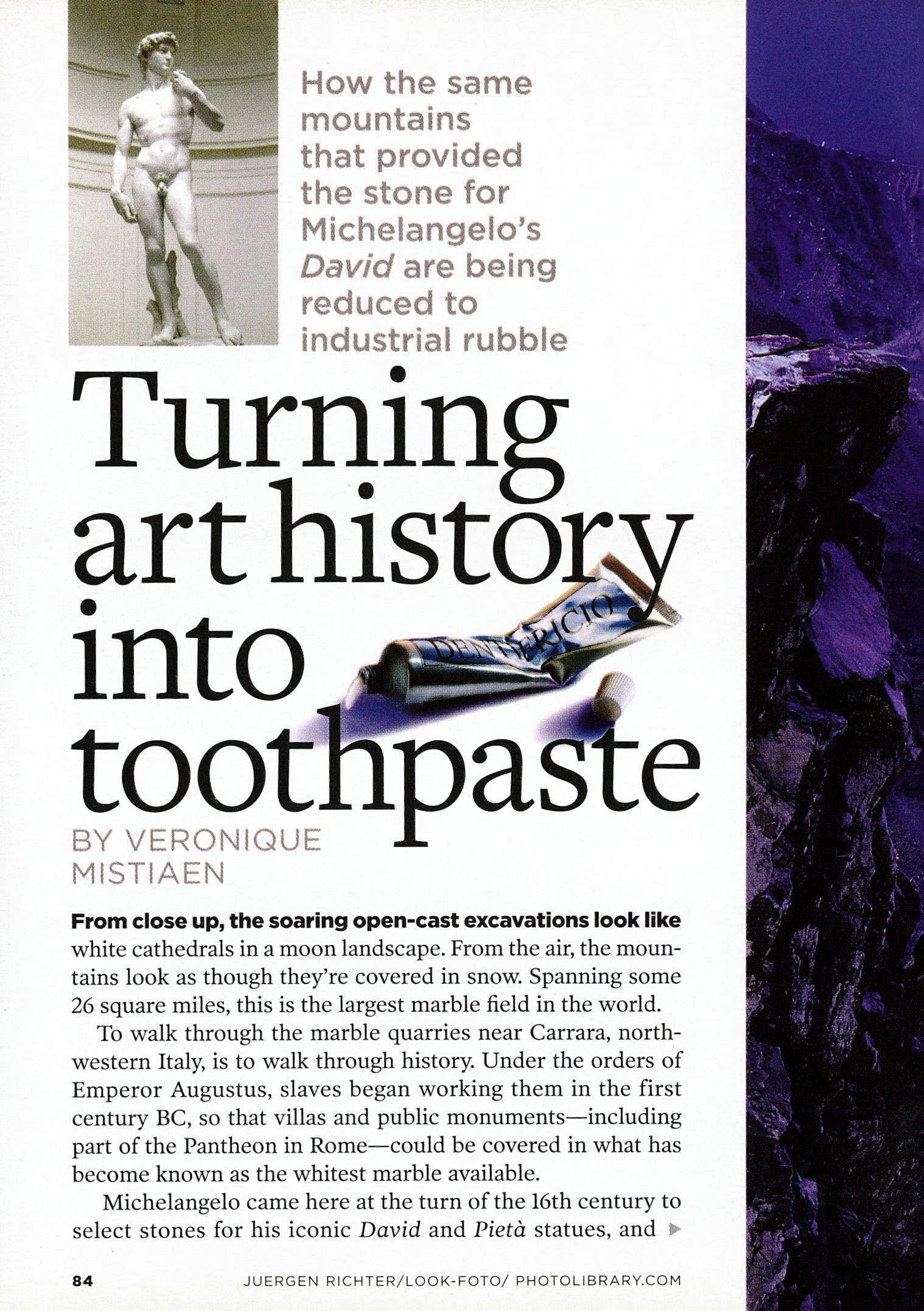
How the same mountains that provided the stone for Michelangelo's David are being reduced to industrial rubble
Turning art intohistory toot pate
BY VERONIQUE MISTIAENFrom close up, the soaring open-cast excavations look like white cathedrals in a moon landscape. From the air, the mountains look as though they're covered in snow. Spanning some 26 square miles, this is the largest marble field in the world.
To walk through the marble quarries near Carrara, northwestern Italy, is to walk through history. Under the orders of Emperor Augustus, slaves began working them in the first century BC, so that villas and public monuments—including part of the Pantheon in Rome—could be covered in what has become known as the whitest marble available.
Michelangelo came here at the turn of the 16th century to select stones for his iconic David and Pieta statues, and
 Ground into dust: the marble quarries near Carrara, Italy
Ground into dust: the marble quarries near Carrara, Italy
4 sculptor Henry Moore visited to find material for his work. The cathedrals of Florence and Siena, St Petersburg's Hermitage museum, London's Marble Arch and Washington's Kennedy Centre are all made from this stone.
But largely unregulated mining is now threatening Michelangelo's mountains with extinction. In 1920, less than 100,000 tons a year were extracted from the area's quarries. Today, the figure is more than five million, as local marble barons try to compete on price with producers in China, Russia and India by
CARRARA'S GREATEST HITS
DAVID (1504) AND THE PIETA (1498), MICHELANGELO
The world's most famous male nude (see opening page) is 17 feet high and housed at the Academy of Fine Arts in Florence. The Pieta (right) was carved when the sculptor was just 24. It's his only signed piece— after hearing a viewer attribute it to someone else, he stole into the gallery and chiselled his name into the sash the Virgin wears.
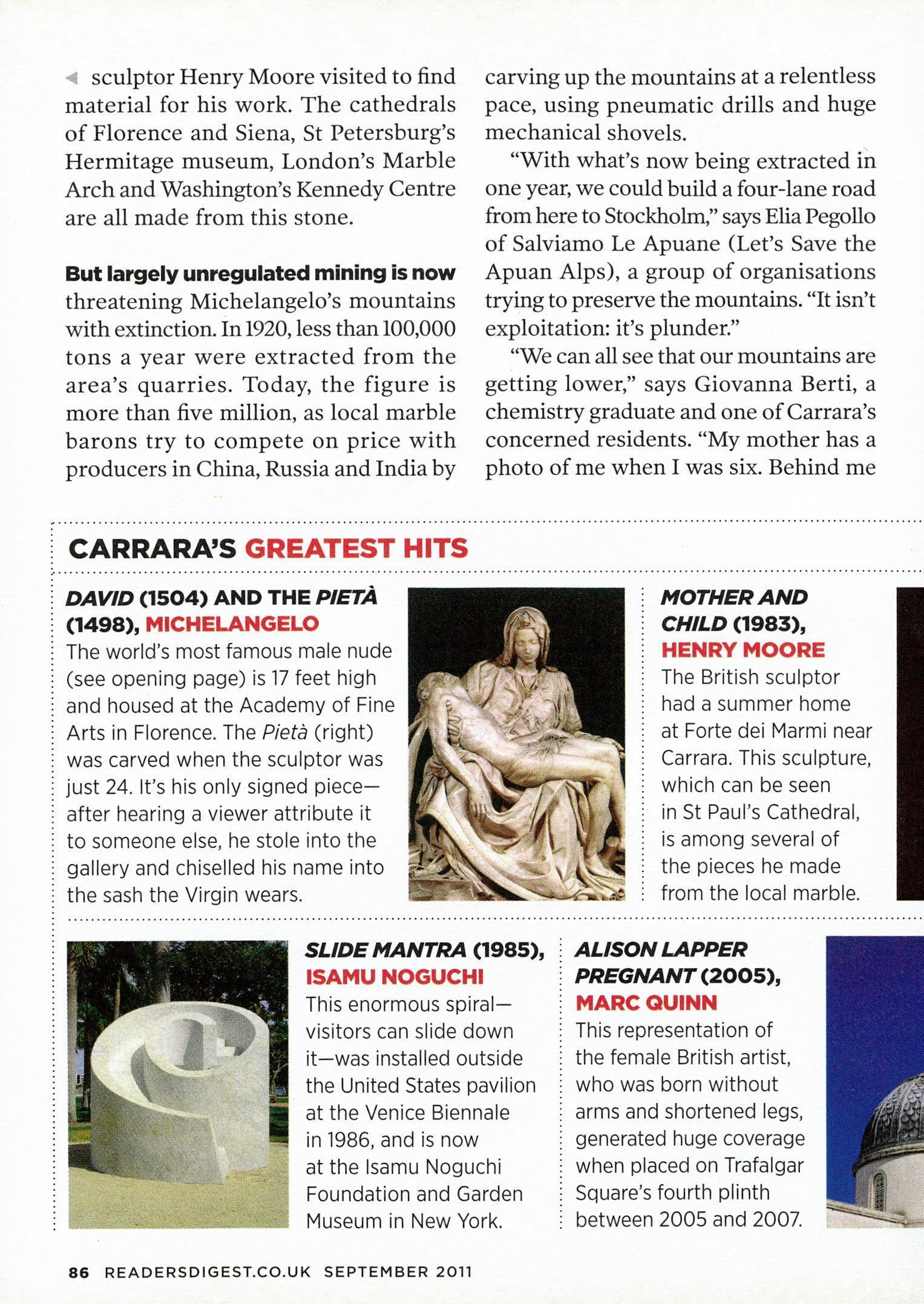
carving up the mountains at a relentless pace, using pneumatic drills and huge mechanical shovels.
"With what's now being extracted in one year, we could build a four-lane road from here to Stockholm," says Elia Pegollo of Salviamo Le Apuane (Let's Save the Apuan Alps), a group of organisations trying to preserve the mountains. "It isn't exploitation: it's plunder."
"We can all see that our mountains are getting lower," says Giovanna Berti, a chemistry graduate and one of Carrara's concerned residents. "My mother has a photo of me when I was six. Behind me
MOTHER AND CHILD (1983), HENRY MOORE
The British sculptor had a summer home at Forte dei Marmi near Carrara. This sculpture, which can be seen in St Paul's Cathedral, is among several of the pieces he made from the local marble.
SLIDE MANTRA (1985), ISAMU NOGUCHI
This enormous spiral— visitors can slide down it—was installed outside the United States pavilion at the Venice Biennale in 1986, and is now at the Isamu Noguchi Foundation and Garden Museum in New York.
ALISON LAPPER PREGNANT (2005), MARC GUINN
This representation of the female British artist, who was born without arms and shortened legs, generated huge coverage when placed on Trafalgar Square's fourth plinth between 2005 and 2007.
is a high peak. It doesn't exist now—it's been chopped off, like many others."
Environmentalists worry that unbridled exploitation will destroy the Apuan Alps' exceptional fauna, flora and geological landscape. "Even Focolaccia, the highest pass in the area, is now an open quarry," says Pegollo.
But what most distresses the locals is that, of those five million tons of marble mined each year, only a fifth is extracted in blocks and used in sculptures and buildings. The rest is debris that, in the early 1990s, companies realised could be highly profitable if processed into calcium
carbonate and used instead of lead in paint or asbestos in ceilings, and as a filler in cereals, cosmetics, vitamin pills and even toothpaste. It sells for up to £8,700 per 100kg, compared with the £2,700 the whitest marble earns per ton.
So Carrara's legendary marble is no longer just being used to make great art and proud buildings. It's literally being squeezed from a toothpaste tube, then washed down the drain.
Regional law stipulates that quarries cannot be used to extract debris alone, but locals and environmentalists claim that this is exactly what's happening
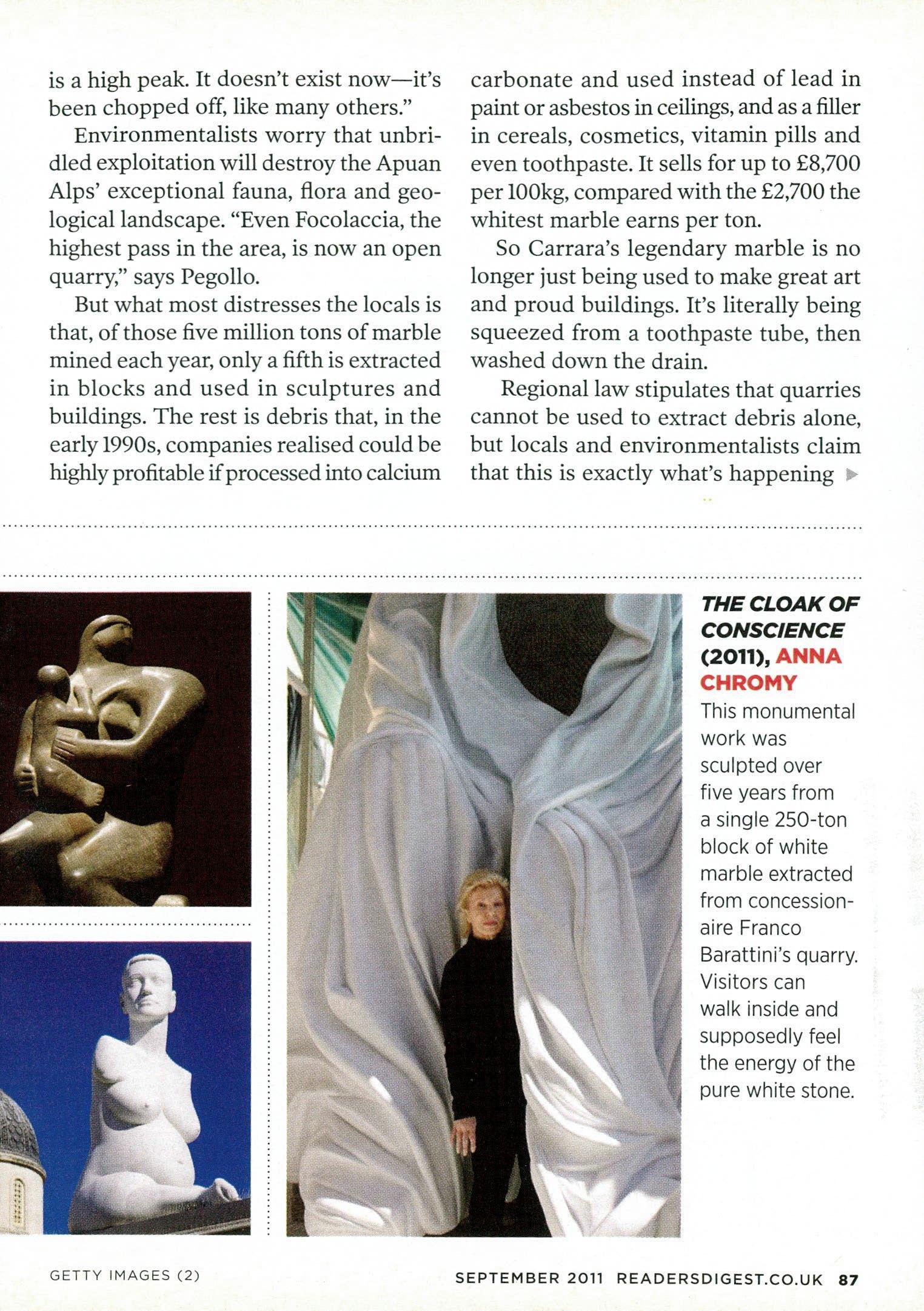
THE CLOAK OF CONSCIENCE (2011), ANNA °IRONY
This monumental work was sculpted over five years from a single 250-ton block of white marble extracted from concessionaire Franco Barattini's quarry. Visitors can walk inside and supposedly feel the energy of the pure white stone.
41 in some quarries. The Carrara council leases quarries out to marble extractors (or "concessionaires") but the firms treat the sites like fiefdoms, with their own road networks and no regulation about how much can be excavated. They are immensely economically powerful in the
the mountains. It's not true. By definition, quarrying affects the mountains, but I deeply respect them and my work."
But even if the calcium-carbonate exploitation can't be proved, it seems clear that many concessionaires' behaviour is having a negative impact on Carrara.
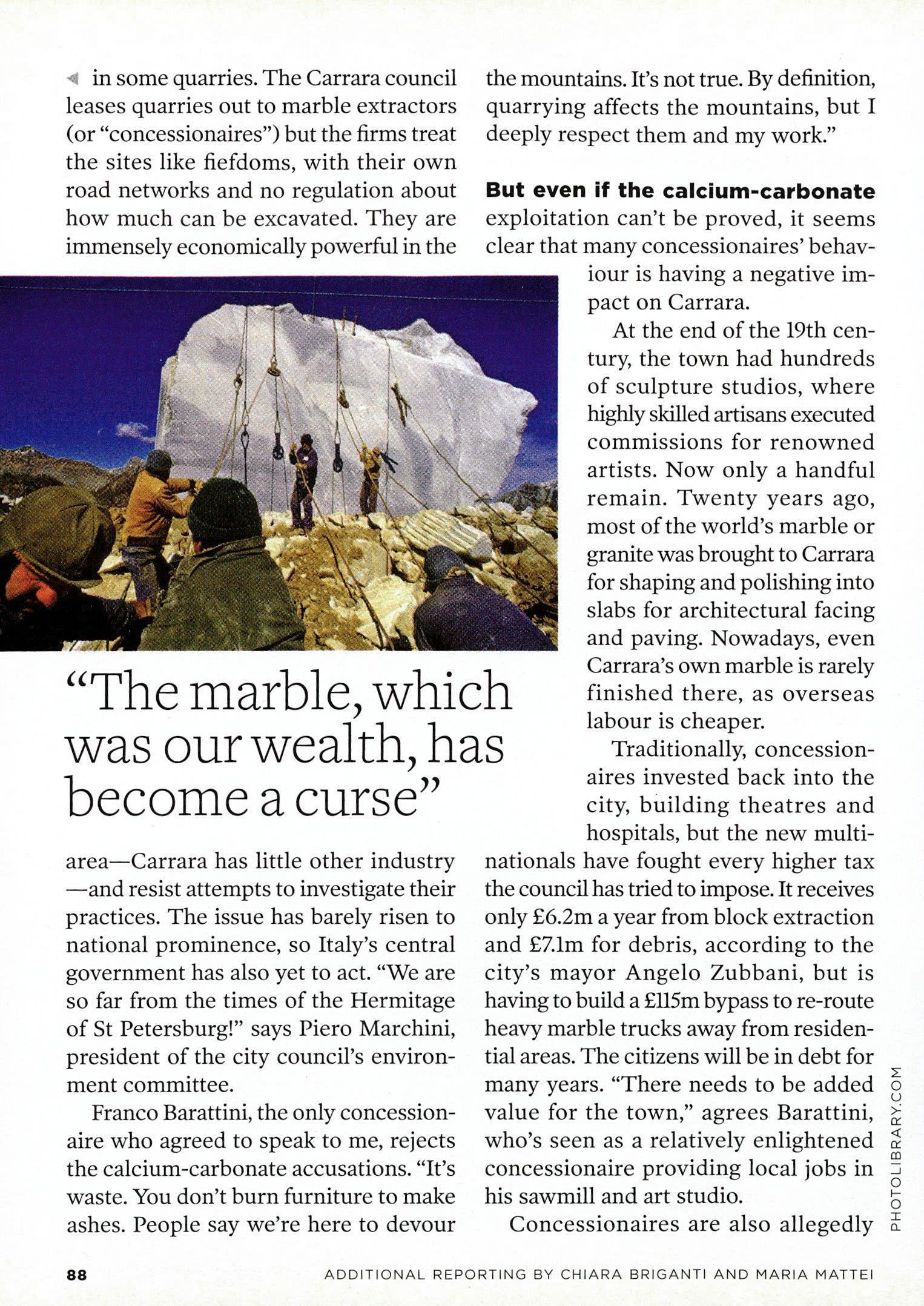
"The marble, which was our wealth, has become a curse"
area—Carrara has little other industry —and resist attempts to investigate their practices. The issue has barely risen to national prominence, so Italy's central government has also yet to act. "We are so far from the times of the Hermitage of St Petersburg!" says Piero Marchini, president of the city council's environment committee.
Franco Barattini, the only concessionaire who agreed to speak to me, rejects the calcium-carbonate accusations. "It's waste. You don't burn furniture to make ashes. People say we're here to devour
At the end of the 19th century, the town had hundreds of sculpture studios, where highly skilled artisans executed commissions for renowned artists. Now only a handful remain. Twenty years ago, most of the world's marble or granite was brought to Carrara for shaping and polishing into slabs for architectural facing and paving. Nowadays, even Carrara's own marble is rarely finished there, as overseas labour is cheaper.
Traditionally, concessionaires invested back into the city, building theatres and hospitals, but the new multinationals have fought every higher tax the council has tried to impose. It receives only £6.2m a year from block extraction and £7.1m for debris, according to the city's mayor Angelo Zubbani, but is having to build a £115m bypass to re-route heavy marble trucks away from residential areas. The citizens will be in debt for many years. "There needs to be added value for the town," agrees. Barattini, who's seen as a relatively enlightened concessionaire providing local jobs in his sawmill and art studio.
Concessionaires are also allegedly
flouting health-and-safety laws. Carrara's 12 water sources are often contaminated with dust and other excavation residues; even small measures such as covering the 2,000 marble trucks that rumble though the streets daily are routinely ignored. Although they live by the sea, the people of Carrara suffer from higher rates of cancer and pulmonary diseases than those in heavy industrial cities. For years, environmental group Legambiente has recorded alarmingly high concentrations of marble dust in the air, which is linked to asthma, lung cancer and other cardiovascular and lung diseases. In 2008, a judge ruled that the city council had to take steps to reduce air pollution and other problems. But the locals are still waiting for something to be done.
"The town is reverting to a sort of colonial economy: a few multinationals make huge profits, but the citizens don't get any benefits, only threats to their health, safety and environment," says Riccardo Canesi, a member of the Italian
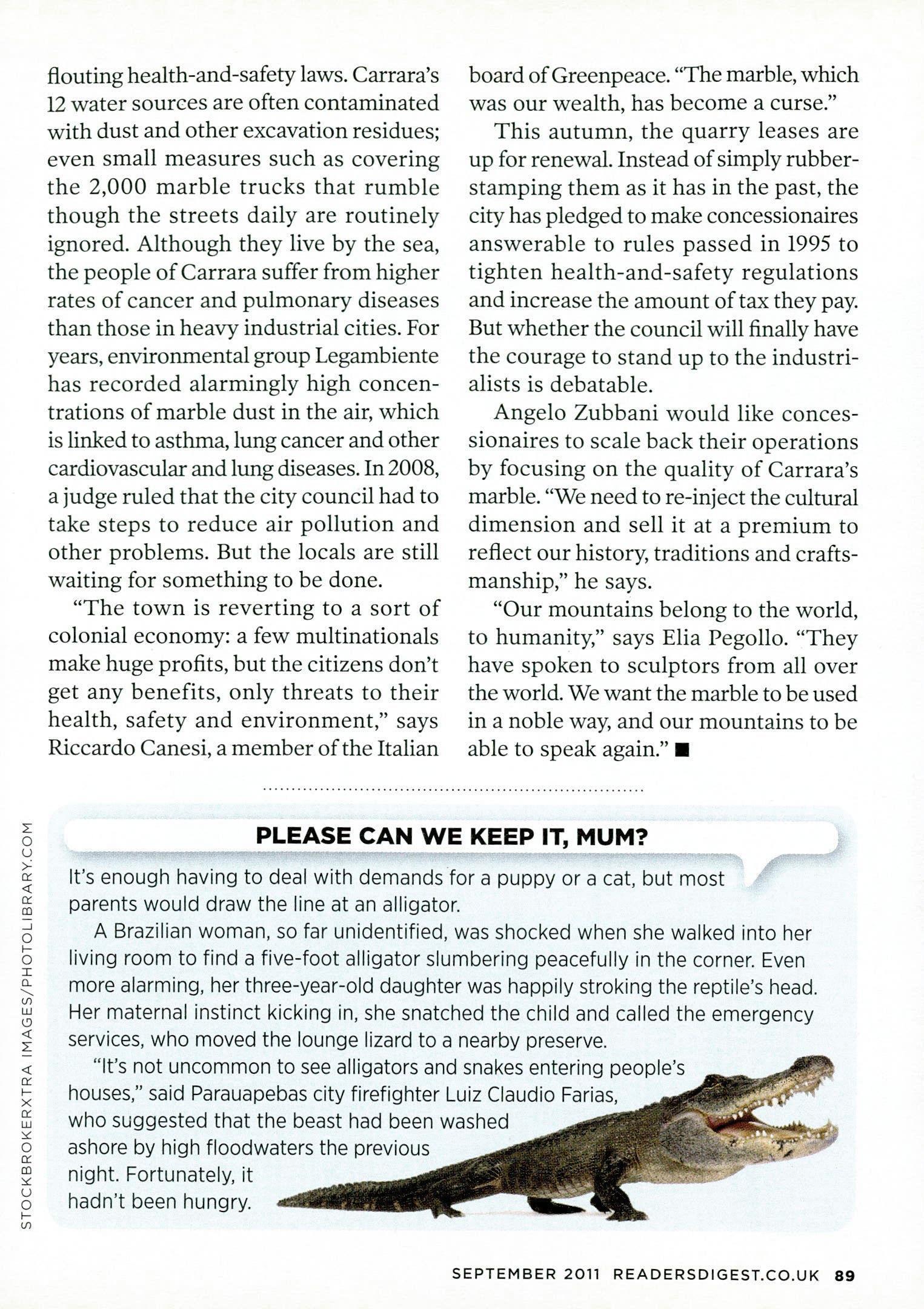
board of Greenpeace. "The marble, which was our wealth, has become a curse."
This autumn, the quarry leases are up for renewal. Instead of simply rubberstamping them as it has in the past, the city has pledged to make concessionaires answerable to rules passed in 1995 to tighten health-and-safety regulations and increase the amount of tax they pay. But whether the council will finally have the courage to stand up to the industrialists is debatable.
Angelo Zubbani would like concessionaires to scale back their operations by focusing on the quality of Carrara's marble. 'We need to re-inject the cultural dimension and sell it at a premium to reflect our history, traditions and craftsmanship," he says.
"Our mountains belong to the world, to humanity," says Elia Pegollo. "They have spoken to sculptors from all over the world. We want the marble to be used in a noble way, and our mountains to be able to speak again." ■
PLEASE CAN WE KEEP IT, MUM?
It's enough having to deal with demands for a puppy or a cat, but most parents would draw the line at an alligator.
A Brazilian woman, so far unidentified, was shocked when she walked into her living room to find a five-foot alligator slumbering peacefully in the corner. Even more alarming, her three-year-old daughter was happily stroking the reptile's head. Her maternal instinct kicking in, she snatched the child and called the emergency services, who moved the lounge lizard to a nearby preserve.
"It's not uncommon to see alligators and snakes entering people's houses," said Parauapebas city firefighter Luiz Claudio Farias, who suggested that the beast had been washed ashore by high floodwaters the previous night. Fortunately, it hadn't been hungry.
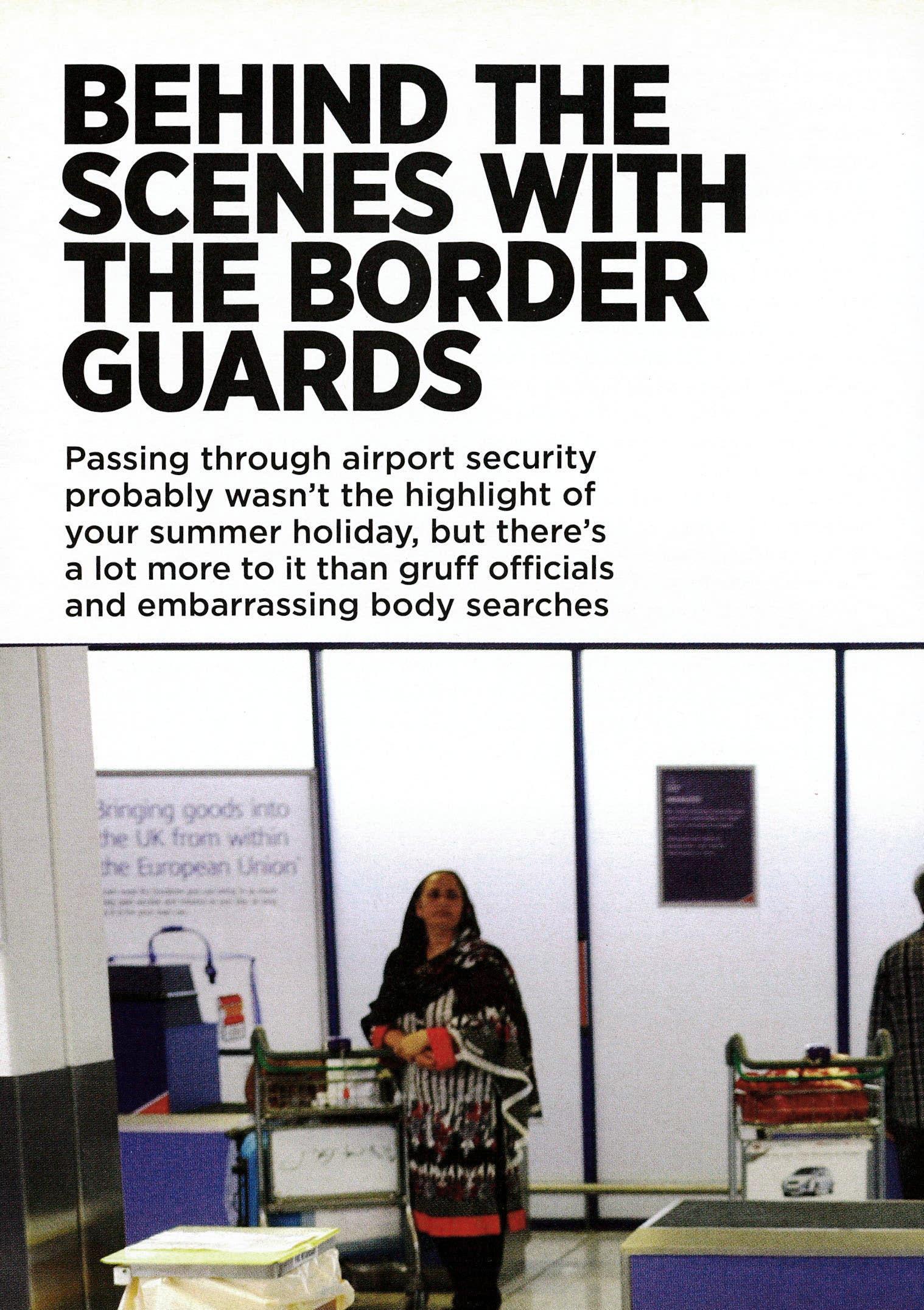
BEHIND THE SCENES WITH THE BORDER GUARDS
Passing through airport security probably wasn't the highlight of your summer holiday, but there's a lot more to it than gruff officials and embarrassing body searches
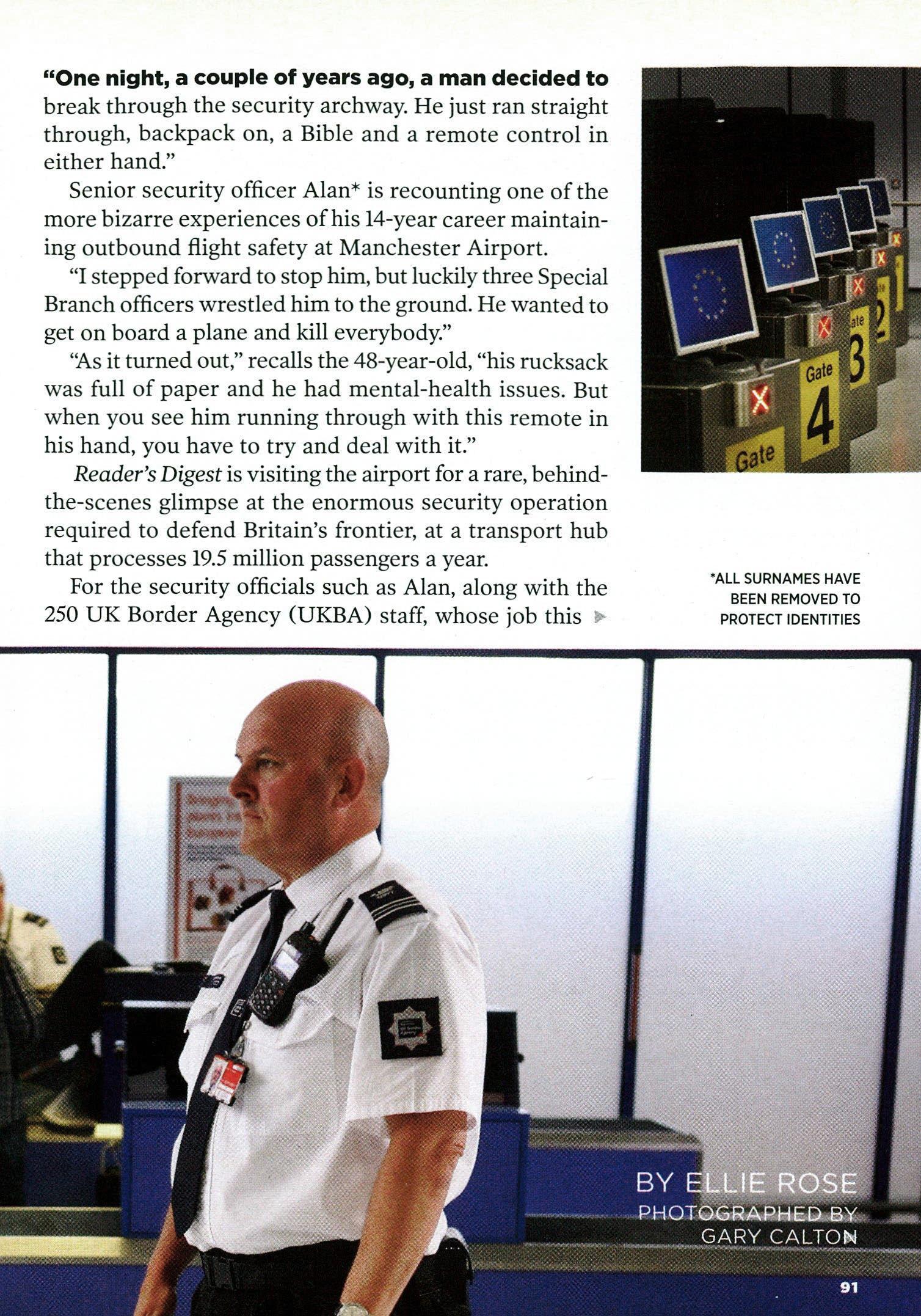
"One night, a couple of years ago, a man decided to break through the security archway. He just ran straight through, backpack on, a Bible and a remote control in either hand."
Senior security officer Alan* is recounting one of the more bizarre experiences of his 14-year career maintaining outbound flight safety at Manchester Airport.
"I stepped forward to stop him, but luckily three Special Branch officers wrestled him to the ground. He wanted to get on board a plane and kill everybody."
"As it turned out," recalls the 48-year-old, "his rucksack was full of paper and he had mental-health issues. But when you see him running through with this remote in his hand, you have to try and deal with it."
Reader's Digest is visiting the airport for a rare, behindthe-scenes glimpse at the enormous security operation required to defend Britain's frontier, at a transport hub that processes 19.5 million passengers a year.
For the security officials such as Alan, along with the 250 UK Border Agency (UKBA) staff, whose job this 0.
4 is, a shift could involve anything from searching suitcases and finding nothing more than unwashed pants, to spotting terrorists or intercepting international drug dealers.
In Arrivals, border force detection officerWendy and her colleagues begin assessing which passengers they'll stop and search as soon as a flight lands. Sometimes they're acting on intelligence from the National Border Targeting Centre (a branch of the UKBA whose location cannot be disclosed). Usually, though, they use profiling to identify possible suspects as they wait for their luggage in the baggage-reclaim hall.
"The thing with smuggling is that, unless you're exceptionally good at it, you're always going to be nervous," says Wendy. "The normal signs are sweating,
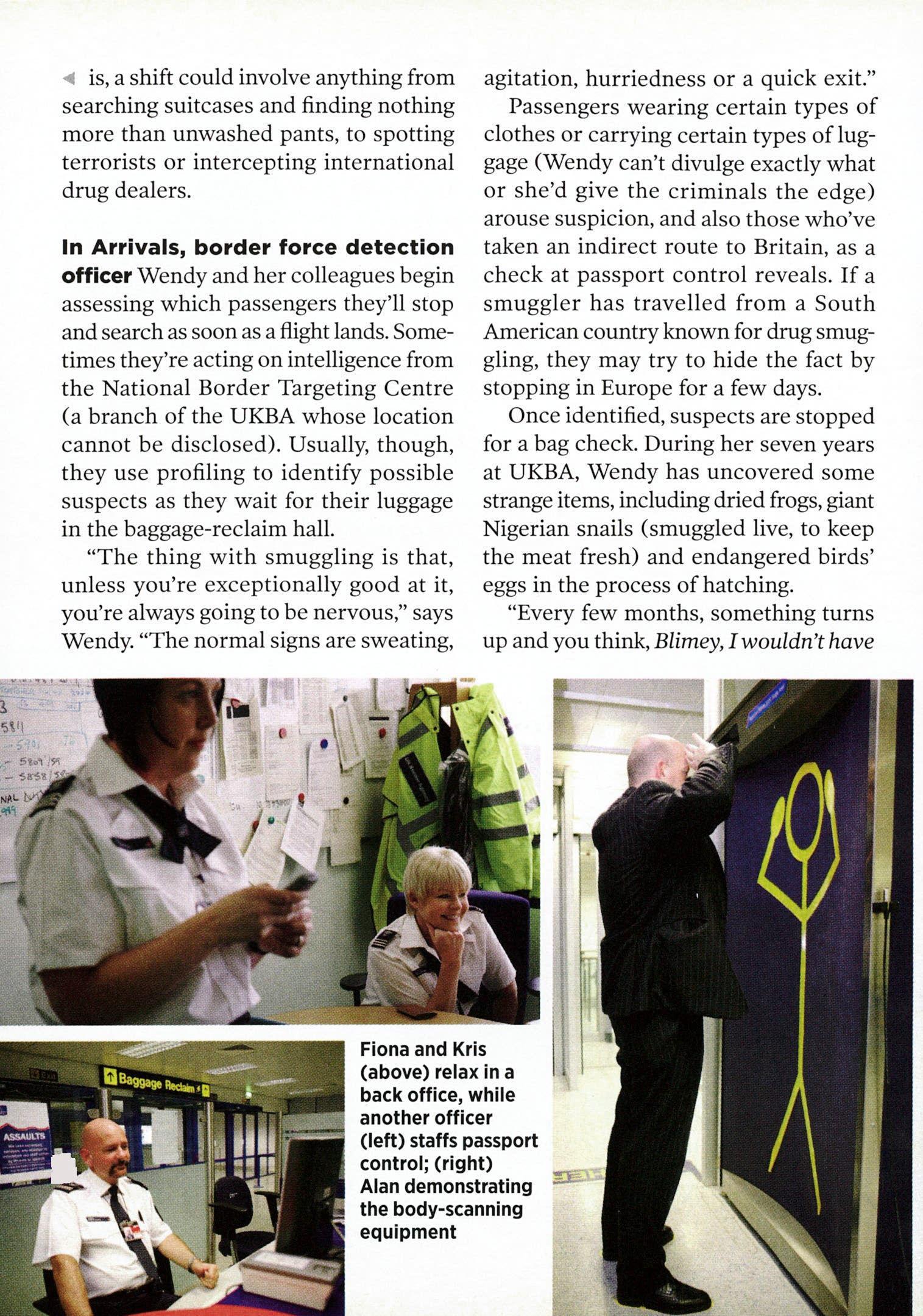
agitation, hurriedness or a quick exit."
Passengers wearing certain types of clothes or carrying certain types of luggage (Wendy can't divulge exactly what or she'd give the criminals the edge) arouse suspicion, and also those who've taken an indirect route to Britain, as a check at passport control reveals. If a smuggler has travelled from a South American country known for drug smuggling, they may try to hide the fact by stopping in Europe for a few days.
Once identified, suspects are stopped for a bag check. During her seven years at UKBA, Wendy has uncovered some strange items, including dried frogs, giant Nigerian snails (smuggled live, to keep the meat fresh) and endangered birds' eggs in the process of hatching.
"Every few months, something turns up and you think, Blimey, I wouldn't have
Fiona and Kris (above) relax in a back office, while another officer (left) staffs passport control; (right) Alan demonstrating the body-scanning equipmentguessed that'd be in there! Last week, we found about 160kg of ornate, laminated wallpaper stuffed with loose tobacco. You never know what you're going to find; that's part of the appeal. The strangest thing ever was a dried monkey—some sort of religious artefact—that somebody tried to smuggle in from Cameroon. When you're unwrapping something and you see hands...it had quite human hands ...it makes you think you're about to see something quite different."
As well as bag searches, the officers have a plethora of high-tech tools to detect illicit goods, from an ionscan—a sort of duster on a stick that picks up particles from luggage, which it then analyses to see if they're drugs or explosives—to the Brijot screener, which can see objects as slim as paper hidden inside clothes by
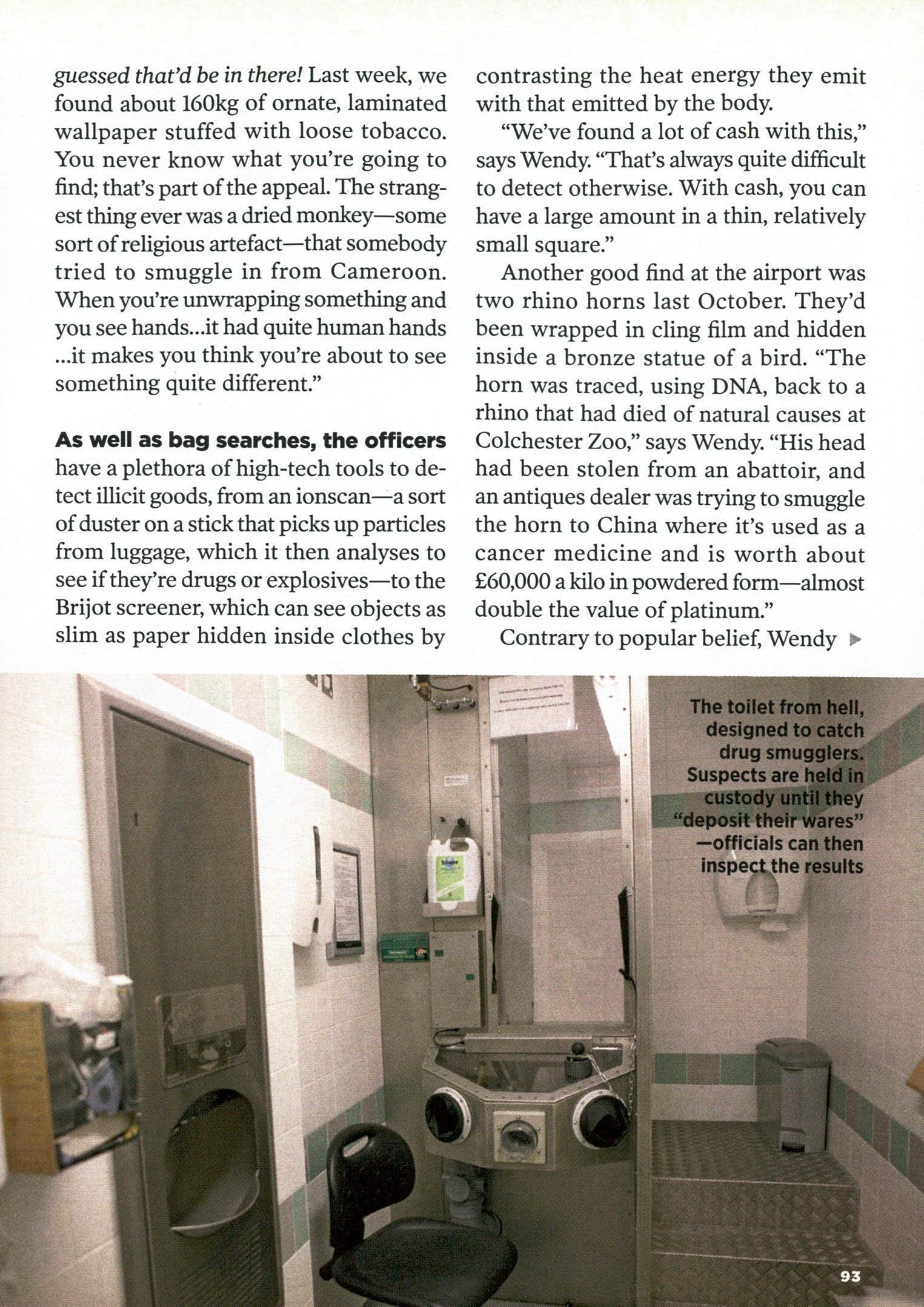
contrasting the heat energy they emit with that emitted by the body.
"We've found a lot of cash with this," says Wendy. "That's always quite difficult to detect otherwise. With cash, you can have a large amount in a thin, relatively small square."
Another good find at the airport was two rhino horns last October. They'd been wrapped in cling film and hidden inside a bronze statue of a bird. "The horn was traced, using DNA, back to a rhino that had died of natural causes at Colchester Zoo," says Wendy. "His head had been stolen from an abattoir, and an antiques dealer was trying to smuggle the horn to China where it's used as a cancer medicine and is worth about £60,000 a kilo in powdered form—almost double the value of platinum."
Contrary to popular belief, Wendy ►
The toilet from hell, designed to catch drug smugglers. Suspects are held in custody until they "deposit their wares" —officials can then inspect the results
CANINE INTERCEPTORS
It's not just down to UKBA officers to stop illicit items entering the country—there are also dogs trained to sniff out drugs, cash and animals. The UK Border Agency has 67 operational based around thc,
These dogs aren't born into the profession. They are bought from pounds or donated by the public.
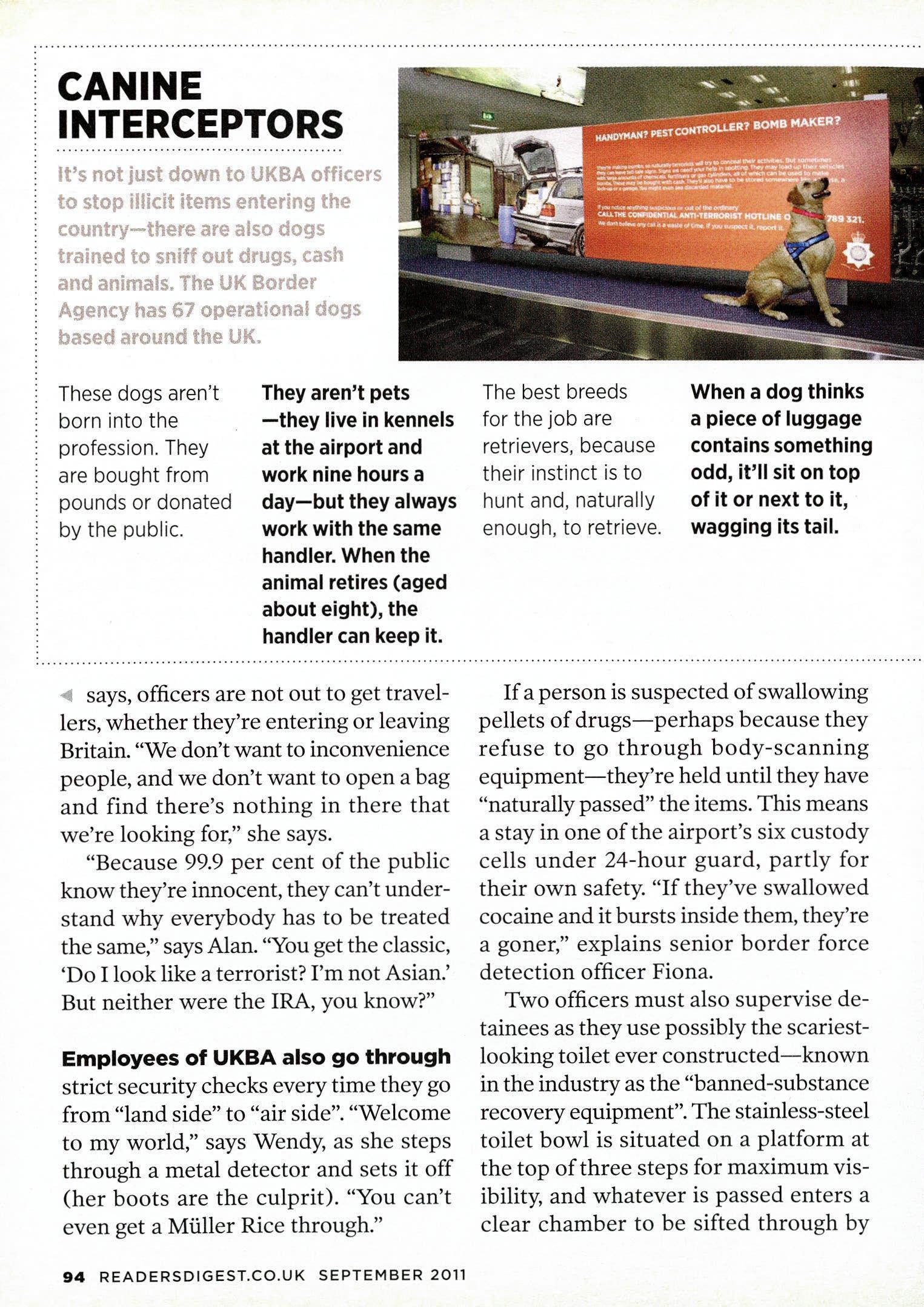
They aren't pets —they live in kennels at the airport and work nine hours a day—but they always work with the same handler. When the animal retires (aged about eight), the handler can keep it.
4 says, officers are not out to get travellers, whether they're entering or leaving Britain. "We don't want to inconvenience people, and we don't want to open a bag and find there's nothing in there that we're looking for," she says.
"Because 99.9 per cent of the public know they're innocent, they can't understand why everybody has to be treated the same," says Alan. "You get the classic, `Do I look like a terrorist? I'm not Asian.' But neither were the IRA, you know?"
Employees of UKBA also go through strict security checks every time they go from "land side" to "air side". "Welcome to my world," says Wendy, as she steps through a metal detector and sets it off (her boots are the culprit). "You can't even get a Muller Rice through."
The best breeds for the job are retrievers, because their instinct is to hunt and, naturally enough, to retrieve.
When a dog thinks a piece of luggage contains something odd, it'll sit on top of it or next to it, wagging its tail.
If a person is suspected of swallowing pellets of drugs—perhaps because they refuse to go through body-scanning equipment—they're held until they have "naturally passed" the items. This means a stay in one of the airport's six custody cells under 24-hour guard, partly for their own safety "If they've swallowed cocaine and it bursts inside them, they're a goner," explains senior border force detection officer Fiona.
Two officers must also supervise detainees as they use possibly the scariestlooking toilet ever constructed—known in the industry as the "banned-substance recovery equipment". The stainless-steel toilet bowl is situated on a platform at the top of three steps for maximum visibility, and whatever is passed enters a clear chamber to be sifted through by
Apparently, the handlers of cash-detecting dogs have a hard time dragging them past ATMs.
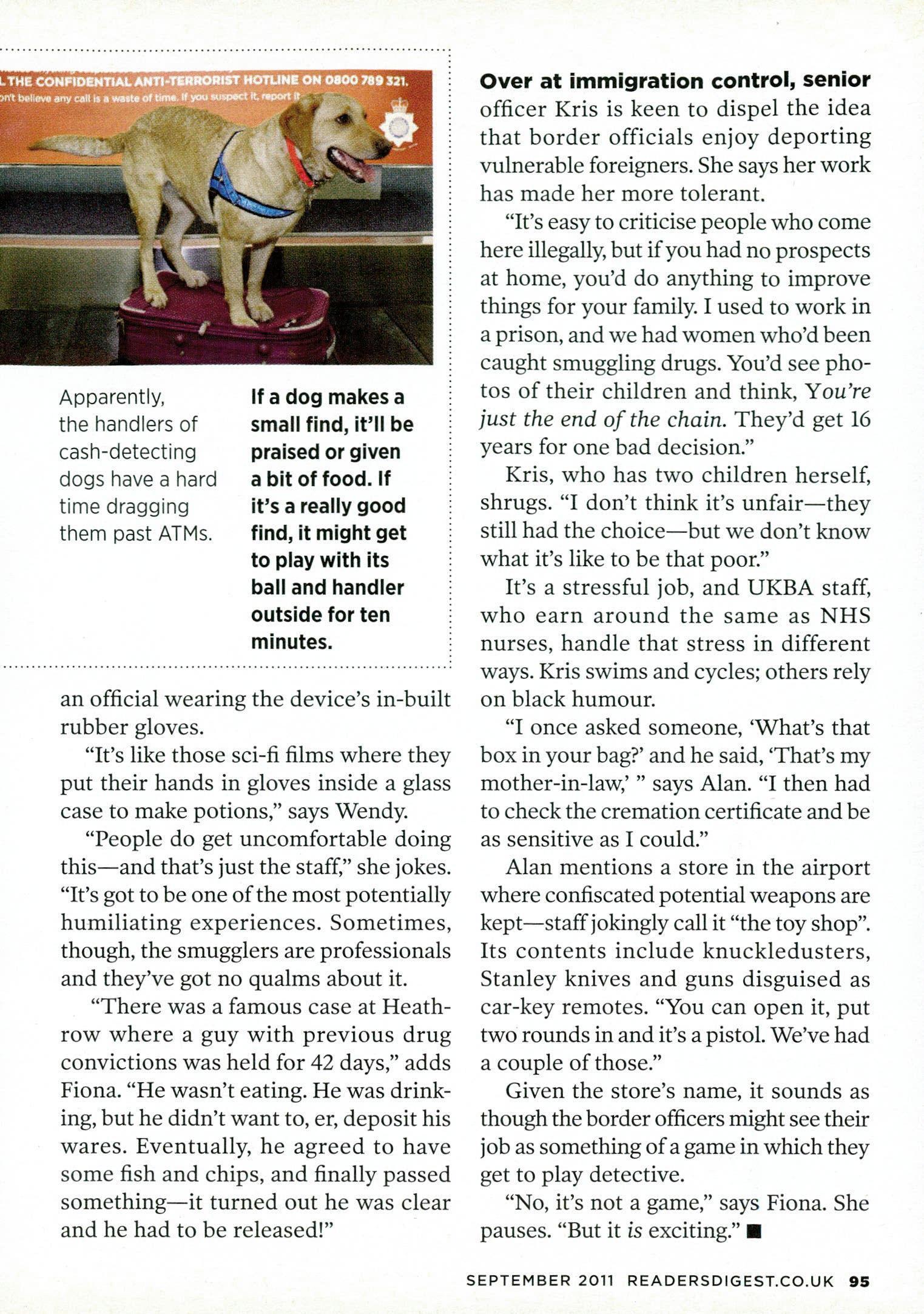
If a dog makes a small find, it'll be praised or given a bit of food. If it's a really good find, it might get to play with its ball and handler outside for ten minutes.
an official wearing the device's in-built rubber gloves.
"It's like those sci-fi films where they put their hands in gloves inside a glass case to make potions," says Wendy.
"People do get uncomfortable doing this—and that's just the staff," she jokes. "It's got to be one of the most potentially humiliating experiences. Sometimes, though, the smugglers are professionals and they've got no qualms about it.
"There was a famous case at Heathrow where a guy with previous drug convictions was held for 42 days," adds Fiona. "He wasn't eating. He was drinking, but he didn't want to, er, deposit his wares. Eventually, he agreed to have some fish and chips, and finally passed something—it turned out he was clear and he had to be released!"
Over at immigration control, senior officer Kris is keen to dispel the idea that border officials enjoy deporting vulnerable foreigners. She says her work has made her more tolerant.
"It's easy to criticise people who come here illegally, but if you had no prospects at home, you'd do anything to improve things for your family. I used to work in a prison, and we had women who'd been caught smuggling drugs. You'd see photos of their children and think, You're just the end of the chain. They'd get 16 years for one bad decision."
Kris, who has two children herself, shrugs. "I don't think it's unfair—they still had the choice—but we don't know what it's like to be that poor."
It's a stressful job, and UKBA staff, who earn around the same as NHS nurses, handle that stress in different ways. Kris swims and cycles; others rely on black humour.
"I once asked someone, 'What's that box in your bag?' and he said, 'That's my mother-in-law,' " says Alan. "I then had to check the cremation certificate and be as sensitive as I could."
Alan mentions a store in the airport where confiscated potential weapons are kept—staff jokingly call it "the toy shop". Its contents include knuckledusters, Stanley knives and guns disguised as car-key remotes. "You can open it, put two rounds in and it's a pistol. We've had a couple of those."
Given the store's name, it sounds as though the border officers might see their job as something of a game in which they get to play detective.
"No, it's not a game," says Fiona. She pauses. "But it is exciting." •
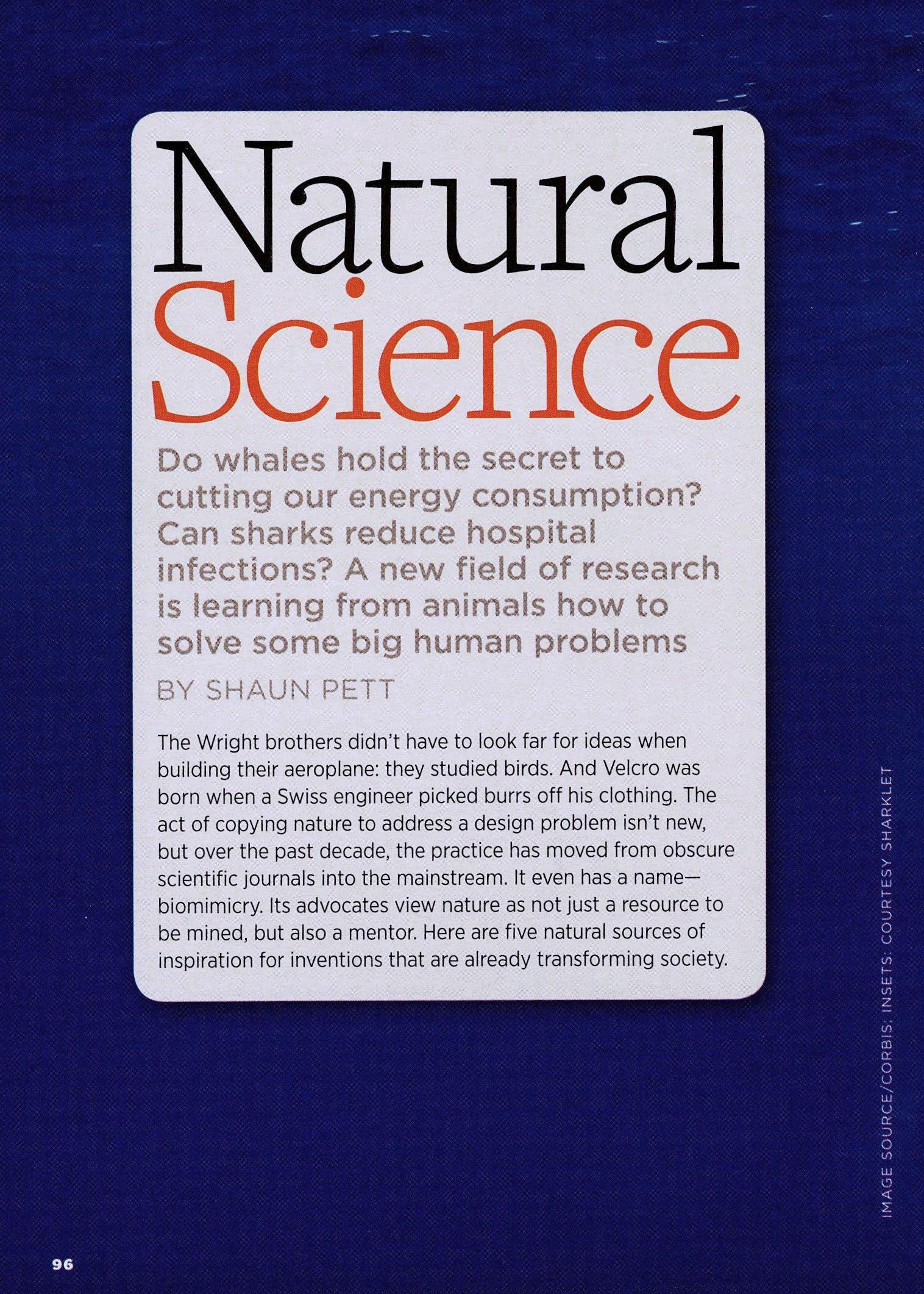
Natural Science
Do whales hold the secret to cutting our energy consumption? Can sharks reduce hospital infections? A new field of research is learning from animals how to solve some big human problems
BY SHAUN PETTThe Wright brothers didn't have to look far for ideas when building their aeroplane: they studied birds. And Velcro was born when a Swiss engineer picked burrs off his clothing. The act of copying nature to address a design problem isn't new, but over the past decade, the practice has moved from obscure scientific journals into the mainstream. It even has a namebiomimicry. Its advocates view nature as not just a resource to be mined, but also a mentor. Here are five natural sources of inspiration for inventions that are already transforming society.
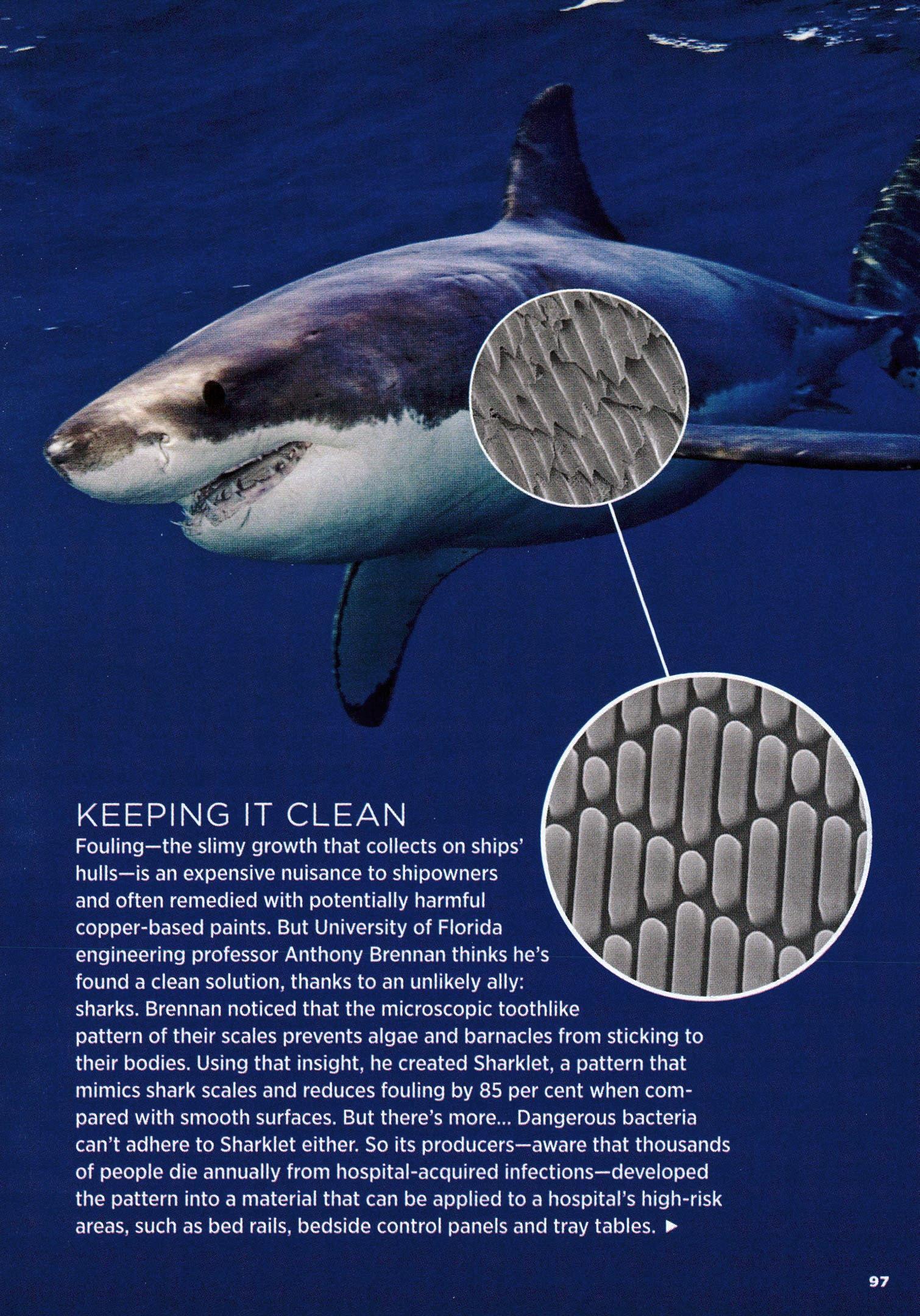
KEEPING IT CLEAN
Fouling—the slimy growth that collects on ships' hulls—is an expensive nuisance to shipowners and often remedied with potentially harmful copper-based paints. But University of Florida engineering professor Anthony Brennan thinks he's found a clean solution, thanks to an unlikely ally: sharks. Brennan noticed that the microscopic toothlike pattern of their scales prevents algae and barnacles from sticking to their bodies. Using that insight, he created Sharklet, a pattern that mimics shark scales and reduces fouling by 85 per cent when compared with smooth surfaces. But there's more... Dangerous bacteria can't adhere to Sharklet either. So its producers—aware that thousands of people die annually from hospital-acquired infections—developed the pattern into a material that can be applied to a hospital's high-risk areas, such as bed rails, bedside control panels and tray tables. ►

FROM BEAK TO BULLET
Japan's Shinkansen bullet trains zip passengers between the country's major cities at speeds of up to 185mph. But things haven't always gone so smoothly. During initial test runs, whenever the trains went from the outdoors into a narrow tunnel at high speed, they produced a sonic boom that rattled windows some 400 yards away. Seeking a solution, engineer and avid bird-watcher Eiji Nakatsu asked himself if there was some living thing that manages sudden changes in air resistance as a part of daily life. There was—the kingfisher. It dives from the air, which is a low-resistant medium, and into water, a highly resistant one, with only a small splash. By redesigning the nose of the bullet train in the image of the kingfisher's beak, engineers reduced noise, cut electricity usage—and saved a lot of windows.

Here was the dilemma: architect
Mick Pearce had to design a building in his native city of Harare, Zimbabwe, that would remain cool under the scorching African sun. The catch? To do it without air-conditioning, which is expensive to install and maintain Fu there. Pearce found a worthy E_Ve re- ' predecessor in the mounds of termites. The insects cool their mud homes using an ingenious system that catches breezes at the base of the mounds. Following their lead, Pearce's design uses fans to suck fresh air from the building's atrium and blow it upward through hollow spaces under the floors and then into offices through vents in the skirting boards. Electricity costs are one tenth that of a comparable air-conditioned building, and Pearce's structure uses 35 per cent less energy than six normal Harare buildings combined. •
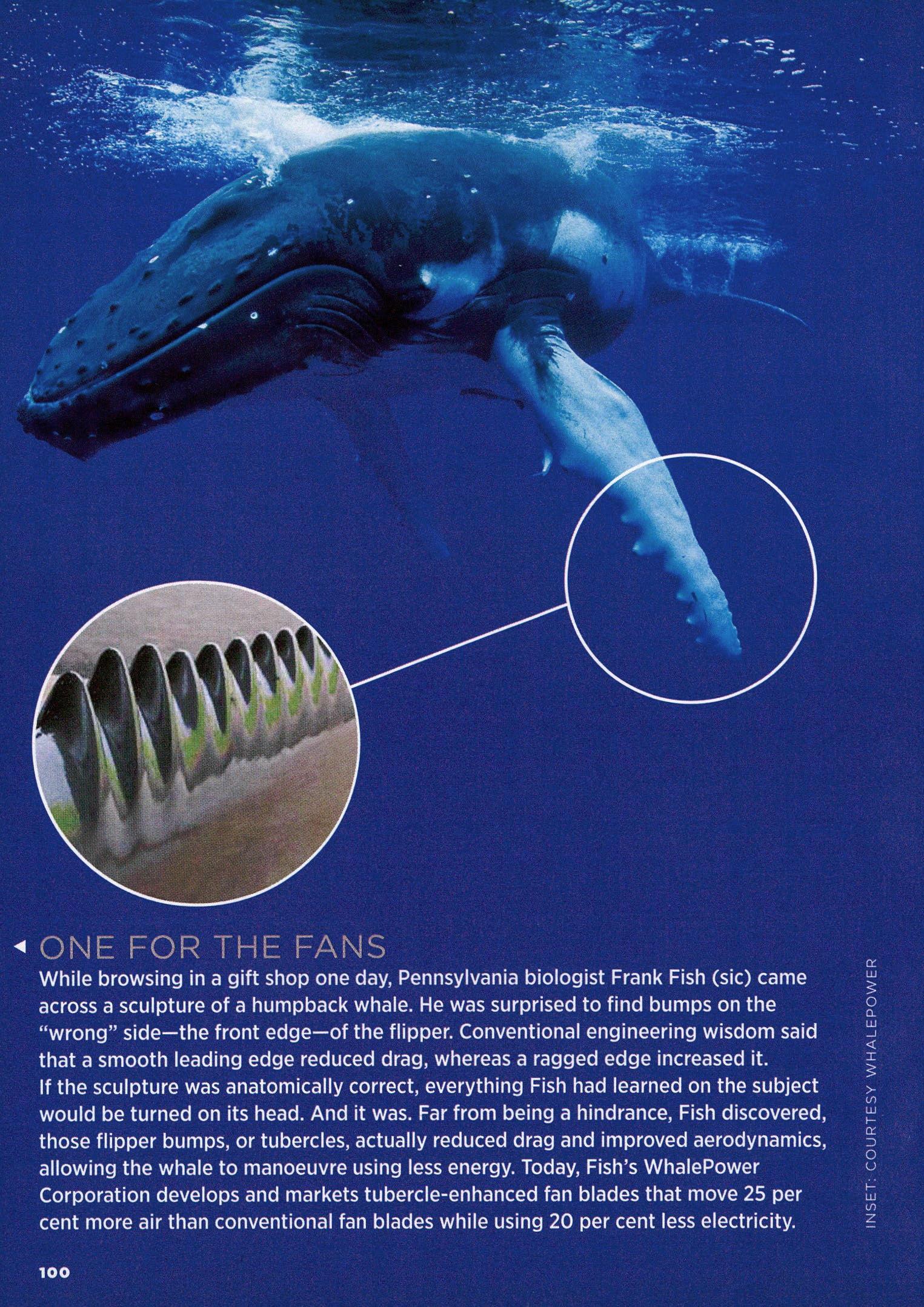
• ONE FOR THE FANS
While browsing in a gift shop one day, Pennsylvania biologist Frank Fish (sic) came across a sculpture of a humpback whale. He was surprised to find bumps on the "wrong" side—the front edge—of the flipper. Conventional engineering wisdom said that a smooth leading edge reduced drag, whereas a ragged edge increased it. If the sculpture was anatomically correct, everything Fish had learned on the subject would be turned on its head. And it was. Far from being a hindrance, Fish discovered, those flipper bumps, or tubercles, actually reduced drag and improved aerodynamics, allowing the whale to manoeuvre using less energy. Today, Fish's WhalePower Corporation develops and markets tubercle-enhanced fan blades that move 25 per cent more air than conventional fan blades while using 20 per cent less electricity.
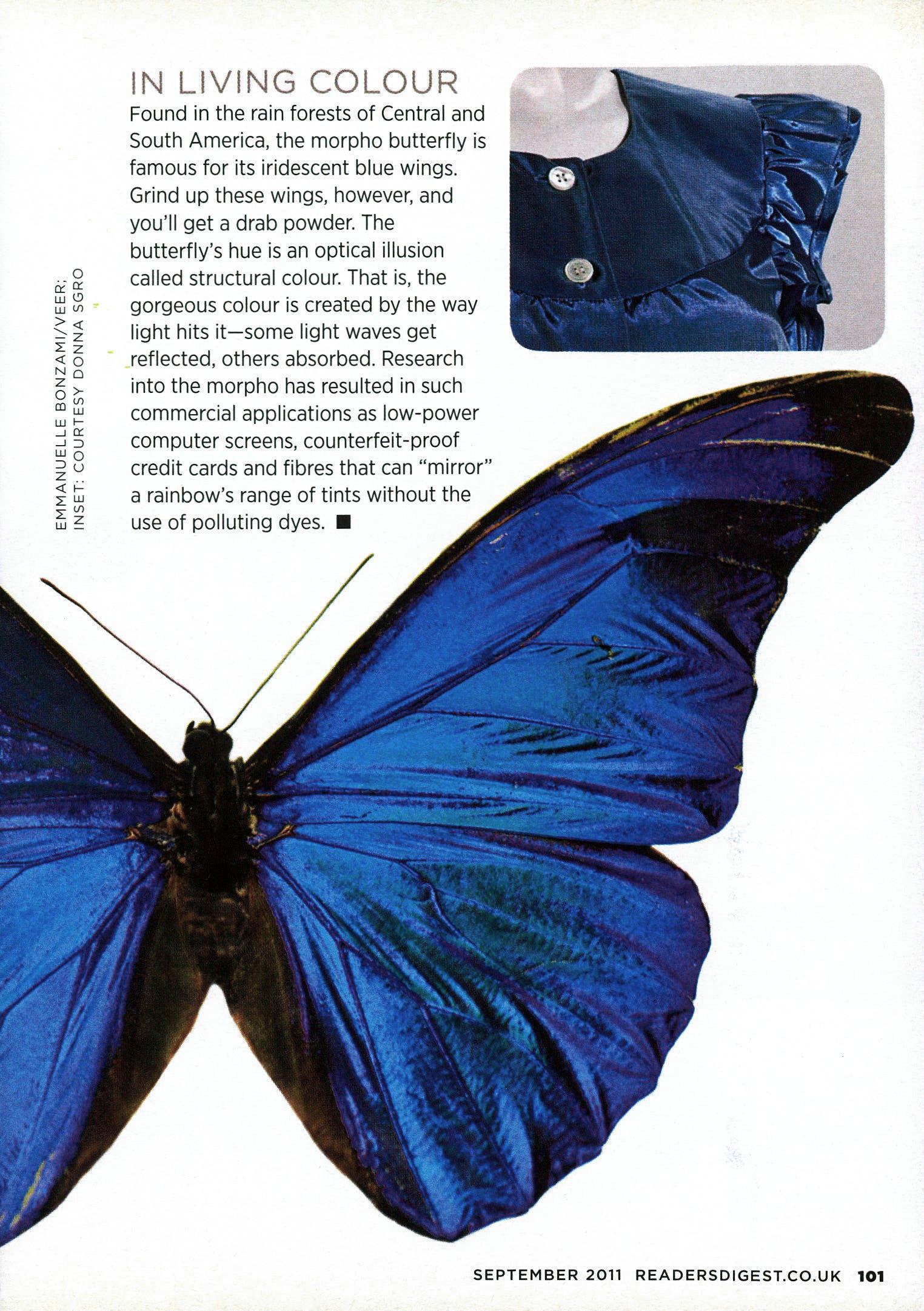
IN LIVING COLOUR
Found in the rain forests of Central and South America, the morpho butterfly is famous for its iridescent blue wings. Grind up these wings, however, and you'll get a drab powder. The butterfly's hue is an optical illusion
0 called structural colour. That is, the gorgeous colour is created by the way
< z light hits it some light waves get
z N 0 reflected, others absorbed. Research
0 >- into the morpho has resulted in such
Li, commercial applications as low-power 1-
0 computer screens, counterfeit-proof
credit cards and fibres that can "mirror"
2 U.' a rainbow's range of tints without the W use of polluting dyes. •

Faith
in'the community: Tom with traditional dancers and (right) a waterside shrine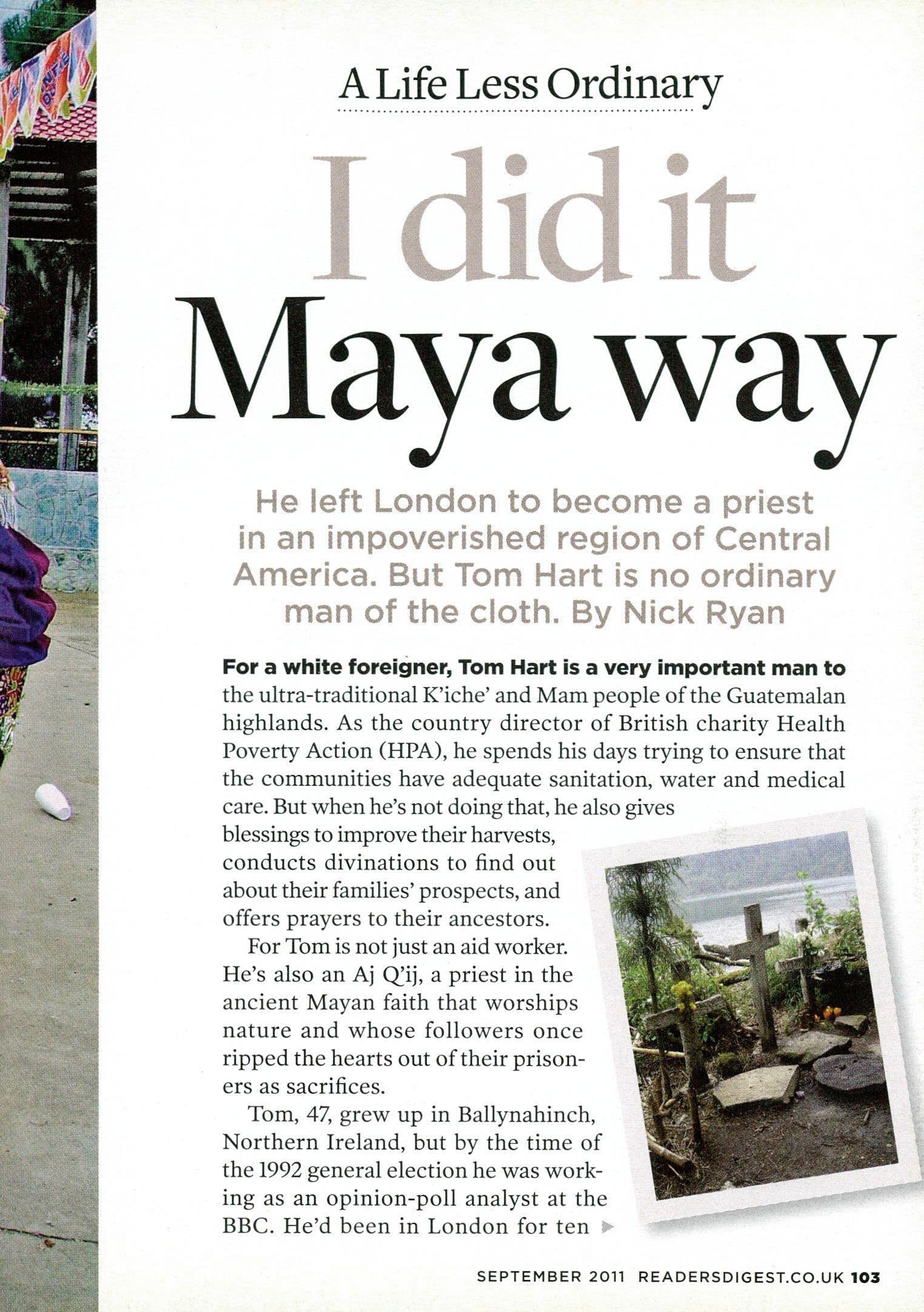
A Life Less Ordinary Maya way
He left London to become a priest in an impoverished region of Central America. But Tom Hart is no ordinary man of the cloth. By Nick Ryan
For a white foreigner, Tom Hart is a very important man to the ultra-traditional K'iche' and Mam people of the Guatemalan highlands. As the country director of British charity Health Poverty Action (HPA), he spends his days trying to ensure that the communities have adequate sanitation, water and medical care. But when he's not doing that, he also gives blessings to improve their harvests, conducts divinations to find out about their families' prospects, and offers prayers to their ancestors.
For Tom is not just an aid worker. He's also an Aj Qij, a priest in the ancient Mayan faith that worships nature and whose followers once ripped the hearts out of their prisoners as sacrifices.
Tom, 47, grew up in Ballynahinch, Northern Ireland, but by the time of the 1992 general election he was working as an opinion-poll analyst at the BBC. He'd been in London for ten
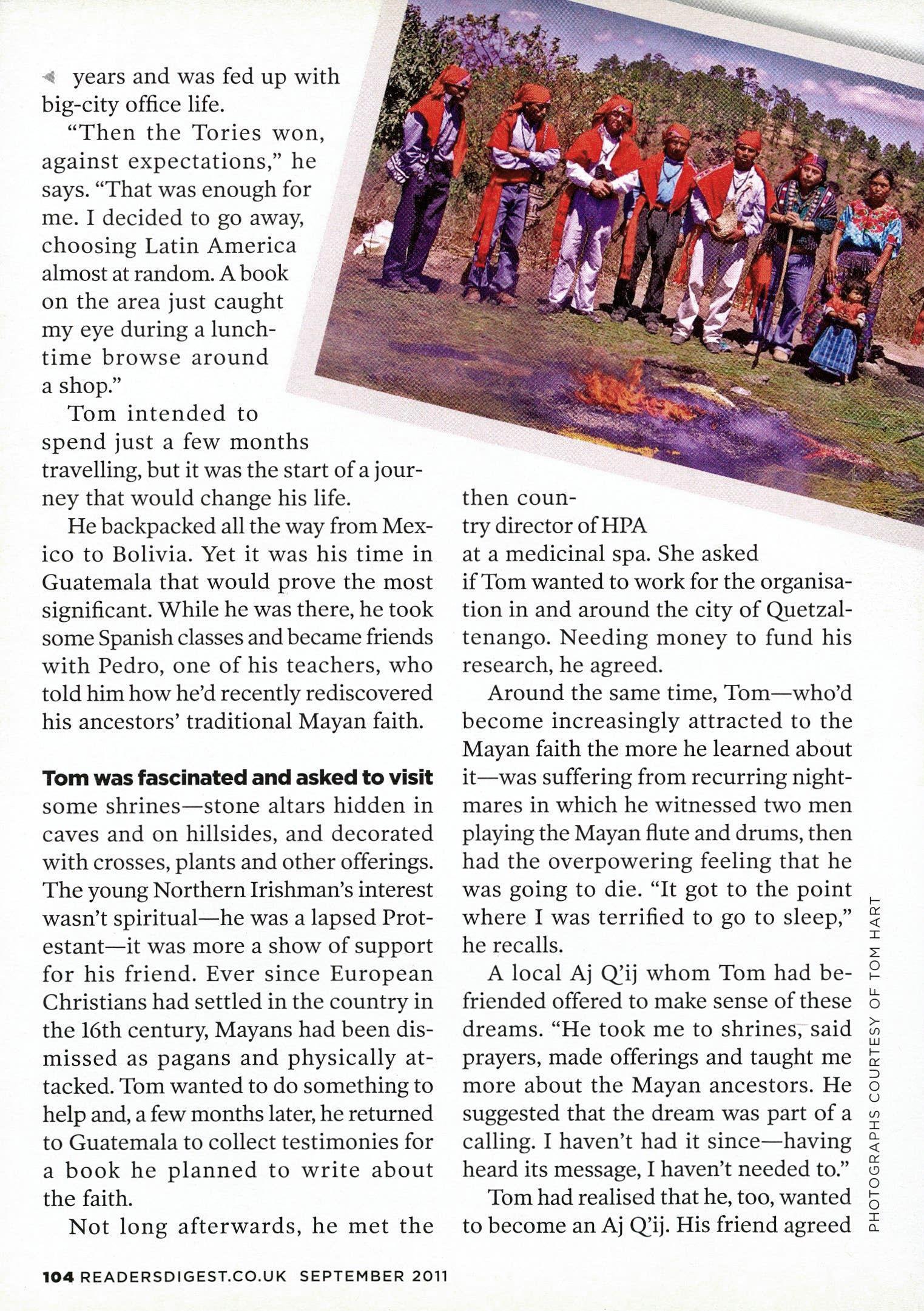
1 years and was fed up with big-city office life.
"Then the Tories won, against expectations," he says. "That was enough for me. I decided to go away, choosing Latin America almost at random. A book on the area just caught my eye during a lunchtime browse around a shop."
Tom intended to spend just a few months travelling, but it was the start of a journey that would change his life.
He backpacked all the way from Mexico to Bolivia. Yet it was his time in Guatemala that would prove the most significant. While he was there, he took some Spanish classes and became friends with Pedro, one of his teachers, who told him how he'd recently rediscovered his ancestors' traditional Mayan faith.
Tom was fascinated and asked to visit some shrines—stone altars hidden in caves and on hillsides, and decorated with crosses, plants and other offerings. The young Northern Irishman's interest wasn't spiritual—he was a lapsed Protestant—it was more a show of support for his friend. Ever since European Christians had settled in the country in the 16th century, Mayans had been dismissed as pagans and physically attacked. Tom wanted to do something to help and, a few months later, he returned to Guatemala to collect testimonies for a book he planned to write about the faith.
Not long afterwards, he met the
then country director of HPA at a medicinal spa. She asked if Tom wanted to work for the organisation in and around the city of Quetzaltenango. Needing money to fund his research, he agreed.
Around the same time, Tom—who'd become increasingly attracted to the Mayan faith the more he learned about it—was suffering from recurring nightmares in which he witnessed two men playing the Mayan flute and drums, then had the overpowering feeling that he was going to die. "It got to the point where I was terrified to go to sleep," he recalls.
A local Aj Qij whom Tom had befriended offered to make sense of these dreams. "He took me to shrines, said prayers, made offerings and taught me more about the Mayan ancestors. He suggested that the dream was part of a calling. I haven't had it since—having heard its message, I haven't needed to."
Tom had realised that he, too, wanted to become an Aj Qij. His friend agreed
Tom intended to spendNs f nths travelling, but it was the start of a journey that would change his life
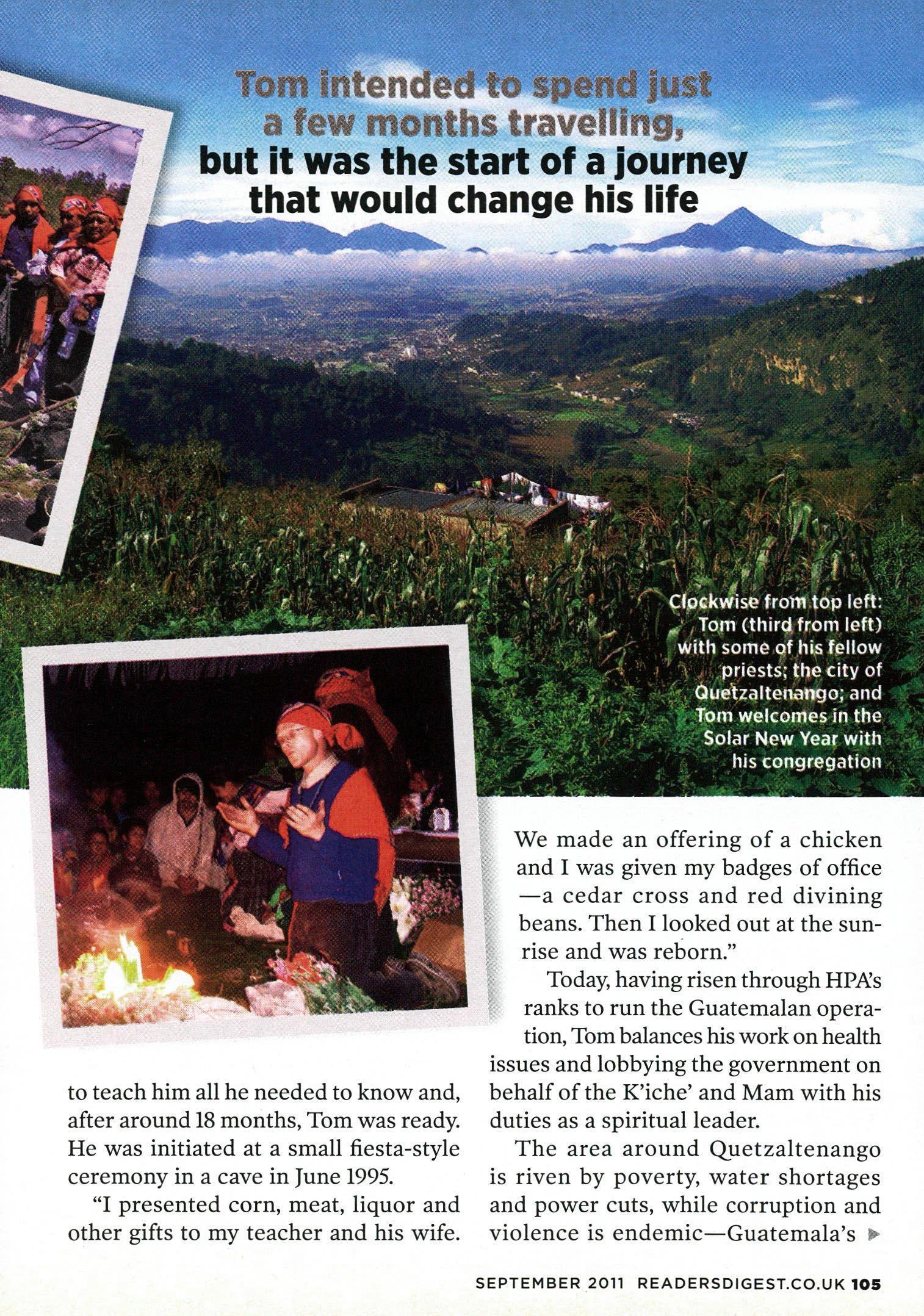
to teach him all he needed to know and, after around 18 months, Tom was ready. He was initiated at a small fiesta-style ceremony in a cave in June 1995.
"I presented corn, meat, liquor and other gifts to my teacher and his wife.
from
with some of his fellow priests; the city of Ouetzaltenango; and Torn welcomes in the Solar New Year with his congregation
We made an offering of a chicken and I was given my badges of office —a cedar cross and red divining beans. Then I looked out at the sunrise and was reborn."
Today, having risen through 111Ws ranks to run the Guatemalan operation, Tom balances his work on health issues and lobbying the government on behalf of the K'iche' and Mam with his duties as a spiritual leader.
The area around Quetzaltenango is riven by poverty, water shortages and power cuts, while corruption and violence is endemic—Guatemala's ►
Clockwise top left: ,„ Torn (third from left)4 murder rate is twice that of Mexico's —following a 36-year civil war that ended in 1996.
"A lot of people living here leave when they can," says Hart. "They go to work illegally in the US, sending back money. You know, we have five different McDonald's in Quetzaltenango but, just half an hour up the road, you've got villages without running water—places where up to 95 per cent of the people live in poverty."
As well as sanitation projects, much of HPA's work involves training the traditional birth attendants in modern techniques. Mayan women's maternal-death rates are some three times higher than the rest of the Guatemalan population. The ministry of health's answer, says Tom, is to try to force them into clinics when they prefer giving birth at home, or supplying health visitors who speak only Spanish, rather than the local indigenous languages.
the locals, thinking he was going to damage it, threatened to lynch him if he was seen there again. "Once a village school shut for a month after I'd been in the area because there were rumours that I was roasting and eating children," he says dryly. But he's frequently engaged with the elders to stress that he means no harm, and now that the locals can see the good he's doing with HPA, he's widely accepted.
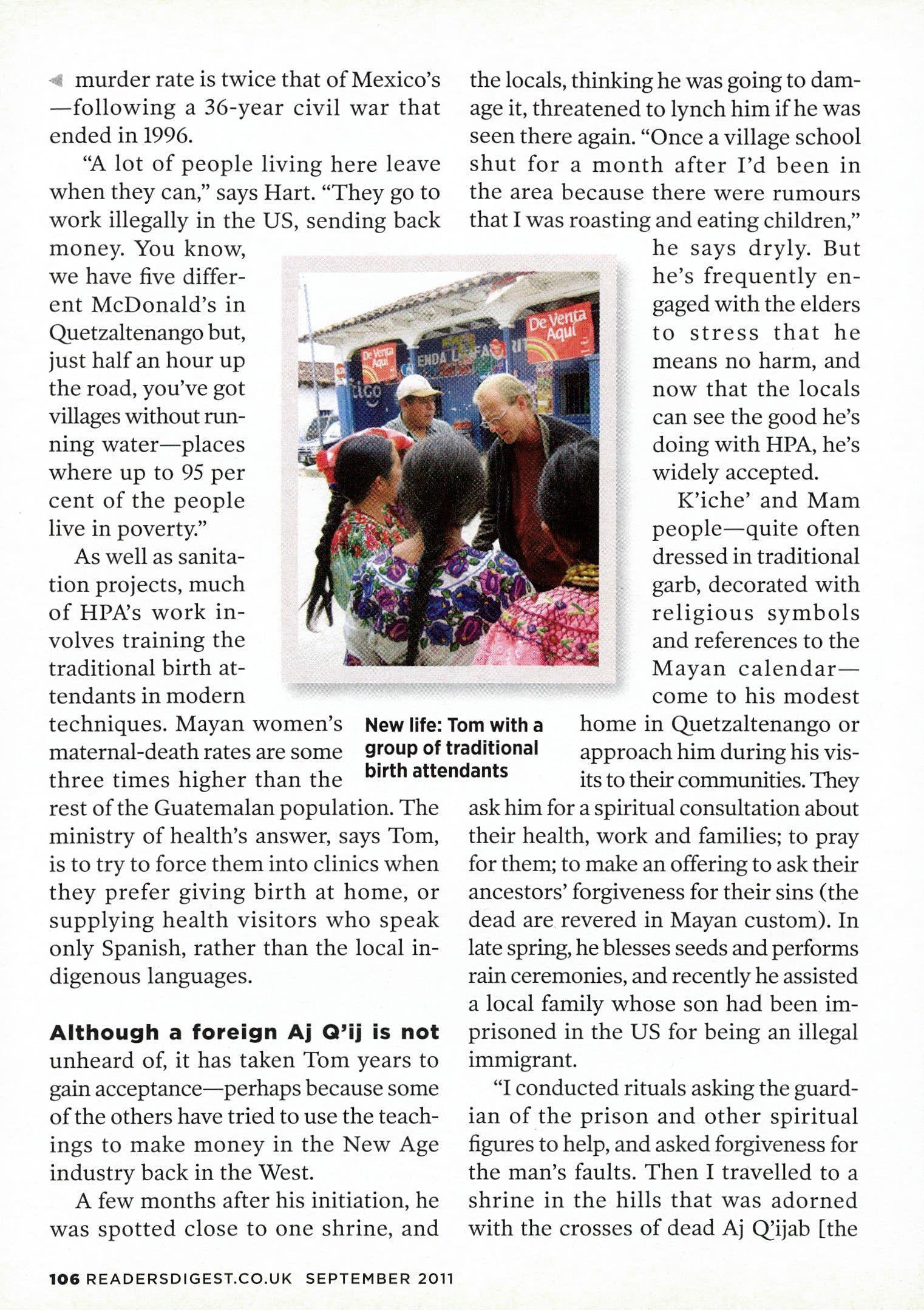
New life: group of tr birth atten Tom with a aditional dants
Although a foreign Aj Q'ij is not unheard of, it has taken Tom years to gain acceptance—perhaps because some of the others have tried to use the teachings to make money in the New Age industry back in the West.
A few months after his initiation, he was spotted close to one shrine, and
K'iche' and Mam people—quite often dressed in traditional garb, decorated with religious symbols and references to the Mayan calendar— come to his modest home in Quetzaltenango or approach him during his visits to their communities. They ask him for a spiritual consultation about their health, work and families; to pray for them; to make an offering to ask their ancestors' forgiveness for their sins (the dead are revered in Mayan custom). In late spring, he blesses seeds and performs rain ceremonies, and recently he assisted a local family whose son had been imprisoned in the US for being an illegal immigrant.
"I conducted rituals asking the guardian of the prison and other spiritual figures to help, and asked forgiveness for the man's faults. Then I travelled to a shrine in the hills that was adorned with the crosses of dead Aj Q'ijab [the
plural of Aj Qijl. The spirits came and soon that man was released."
Tom sees his calling as an obligation more than a choice—and he operates in a dangerous world. Aj Qijab are not only persecuted, but killed; including one of his friends. "Only the other week, I went to a shrine and found all the crosses had been torn down and scattered across the hillside," he says softly.
But he also says his mind has become much calmer since embarking on his new life. He talks of witnessing the very earth "breathe" during one ceremony, attended by numerous Aj Qijab, to install a new shrine. "There are times when your hair
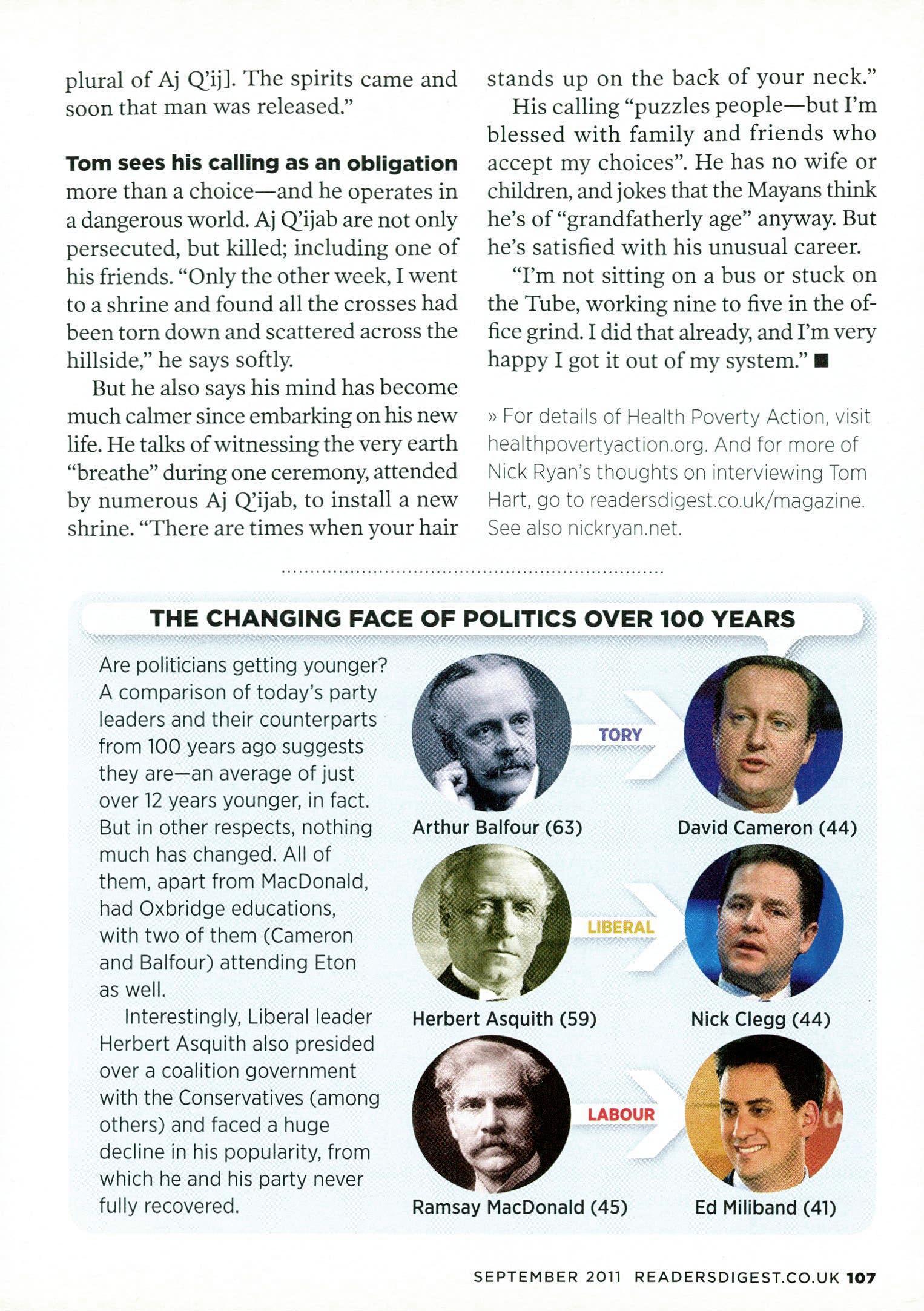
stands up on the back of your neck."
His calling "puzzles people—but I'm blessed with family and friends who accept my choices". He has no wife or children, and jokes that the Mayans think he's of "grandfatherly age" anyway. But he's satisfied with his unusual career.
"I'm not sitting on a bus or stuck on the Tube, working nine to five in the office grind. I did that already, and I'm very happy I got it out of my system." ■
>> For details of Health Poverty Action, visit healthpovertyaction.org. And for more of Nick Ryan's thoughts on interviewing Tom Hart, go to readersdigest.co.uk/magazine. See also nickryan.net.
THE CHANGING FACE OF POLITICS OVER 100 YEARS
Are politicians getting younger?
A comparison of today's party leaders and their counterparts from 100 years ago suggests they are—an average of just over 12 years younger, in fact. But in other respects, nothing much has changed. All of them, apart from MacDonald, had Oxbridge educations, with two of them (Cameron and Balfour) attending Eton as well.
Interestingly, Liberal leader Herbert Asquith also presided over a coalition government with the Conservatives (among others) and faced a huge decline in his popularity, from which he and his party never fully recovered.
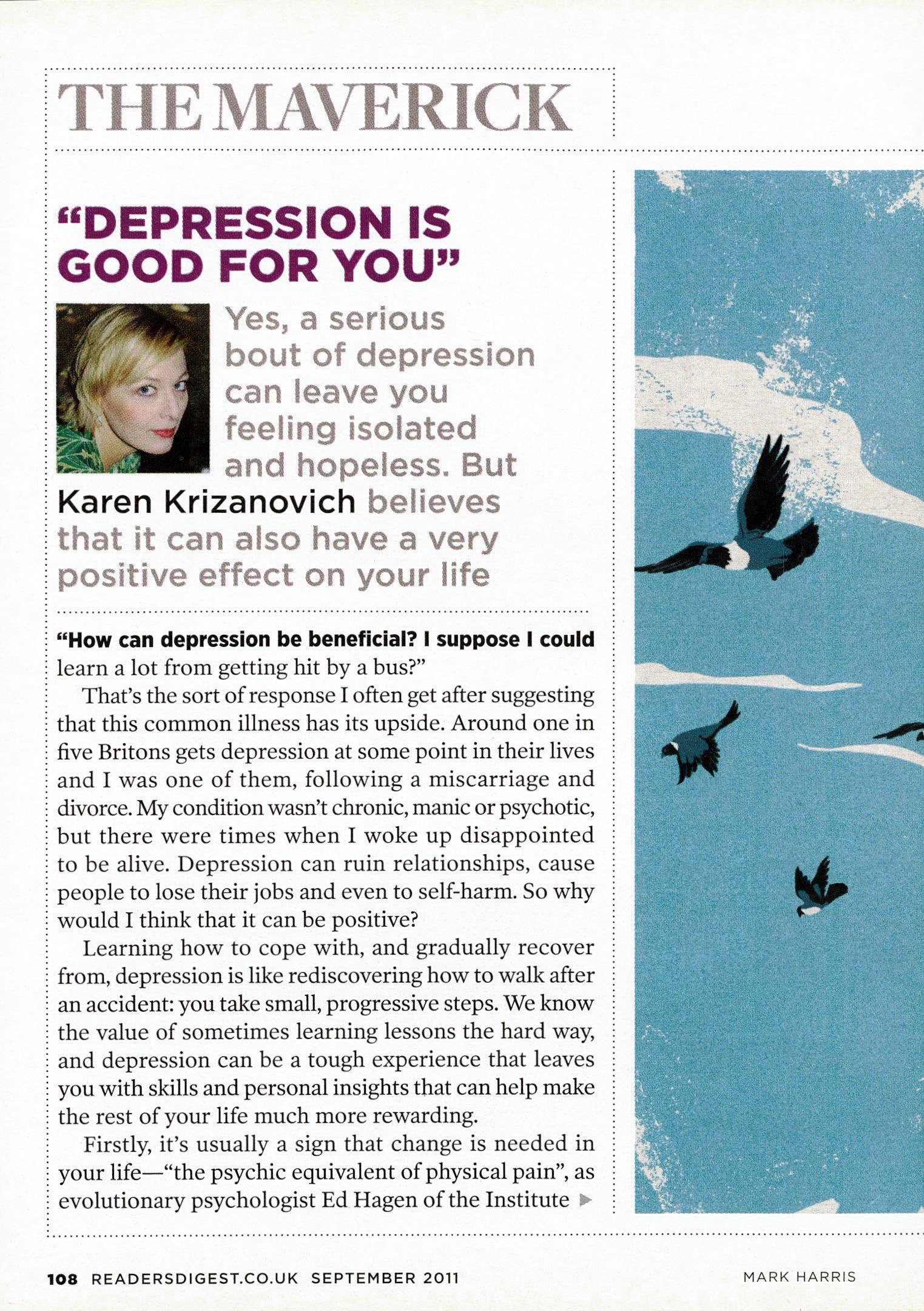
THE MAVERICK
"DEPRESSION IS GOOD FOR YOU"
Yes, a serious bout of depression can leave you feeling isolated and hopeless. But Karen Krizanovich believes that it can also have a very positive effect on your life
"How can depression be beneficial? I suppose I could learn a lot from getting hit by a bus?"
That's the sort of response I often get after suggesting that this common illness has its upside. Around one in five Britons gets depression at some point in their lives and I was one of them, following a miscarriage and divorce. My condition wasn't chronic, manic or psychotic, but there were times when I woke up disappointed to be alive. Depression can ruin relationships, cause people to lose their jobs and even to self-harm. So why would I think that it can be positive?
Learning how to cope with, and gradually recover from, depression is like rediscovering how to walk after an accident: you take small, progressive steps. We know the value of sometimes learning lessons the hard way, and depression can be a tough experience that leaves you with skills and personal insights that can help make the rest of your life much more rewarding.
Firstly, it's usually a sign that change is needed in your life—"the psychic equivalent of physical pain", as evolutionary psychologist Ed Hagen of the Institute
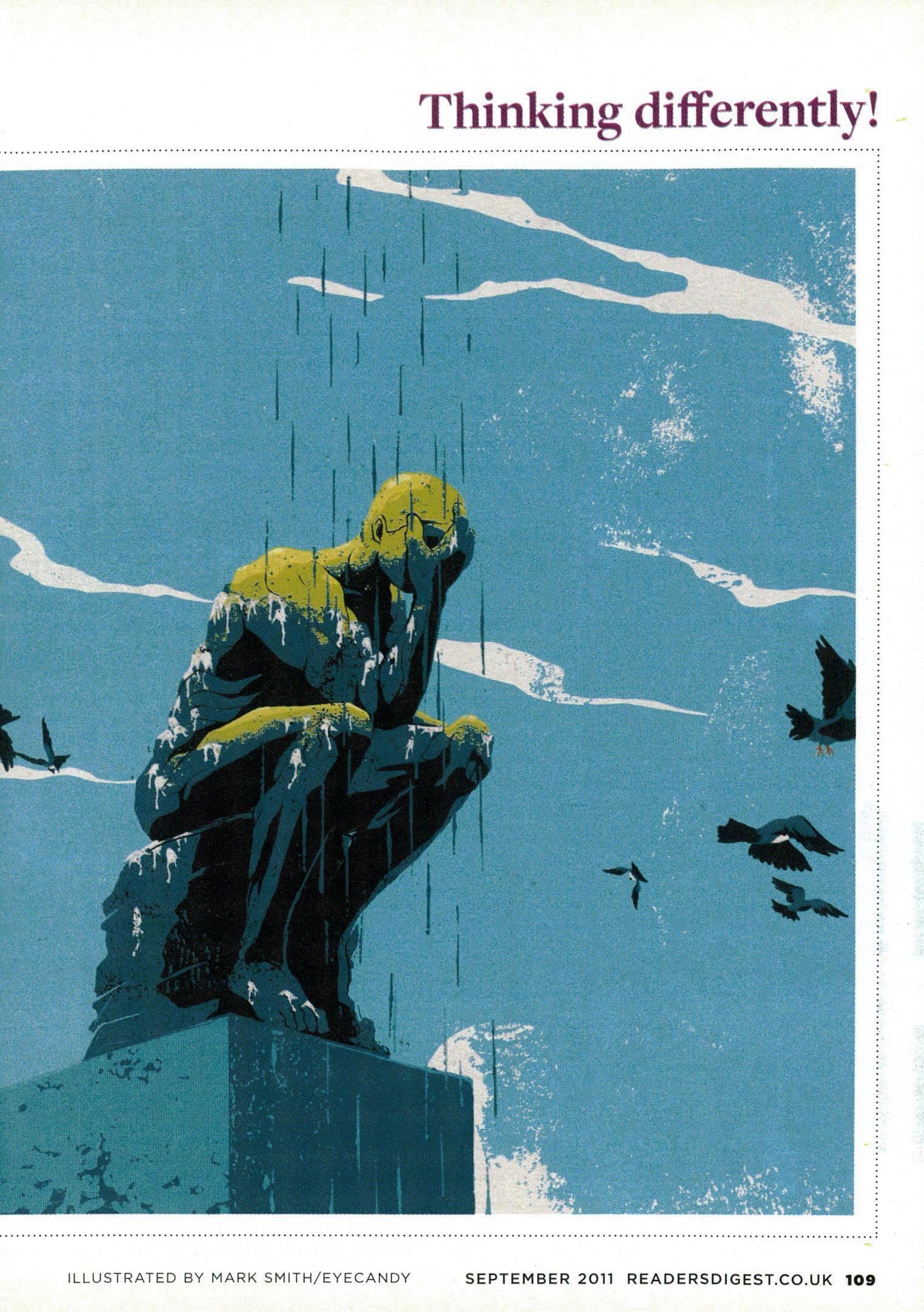
4 of Theoretical Biology in Berlin puts it. It can be the brain's way of jolting us into realising that we've been settling for an unsatisfactory status quo and need to find a new direction.
When Sheena Jones's* youngest daughter left home, for instance, the 47-year-old housewife from Sidcup, south-east London,
felt lost—a typical empty nester. This eventually developed into a full-on depression that lasted eight months. But the emotional impact of the illness made her confront her problem. "I stopped completely and really worked it through," she says. "When I was ready, I took a fresh path in life without the baggage, starting a successful retail business in a field in which I had no previous experience."
the past. "I'd gained the confidence to make important decisions and act on them," she says.
The intense negative emotion and selfscrutinyof depression also cuts through your usual muddled collection of thoughts and can leave you with a more focused way of think-
Depression can force you to find resources within yourself where you thought there were none, and can create hope
Sally Ford*, a 39-year-old from West Sussex who got depression after her bookshop went out of business, found it can make you more resilient, too. "You have to overcome it or it overwhelms you," she says. "It was the oppressor I fought against every minute by learning to cut off negative thoughts. This sort of willpower is like a muscle that grows stronger the harder you work it."
Soon after, she found herself suddenly having to care for her ageing parents, but found she could cope much better than she might have done in
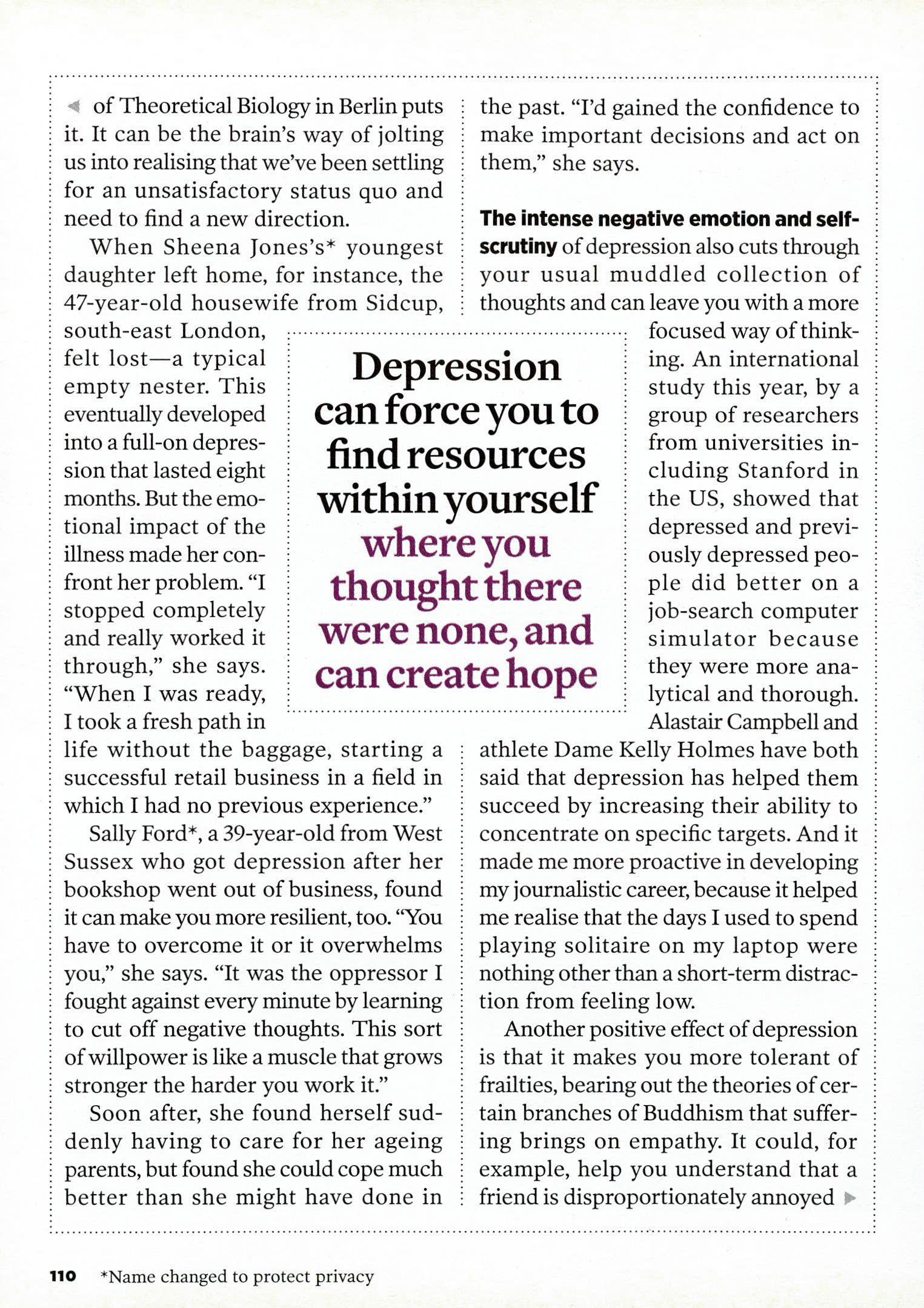
ing. An international study this year, by a group of researchers from universities including Stanford in the US, showed that depressed and previously depressed people did better on a job-search computer simulator because they were more analytical and thorough. Alastair Campbell and
athlete Dame Kelly Holmes have both said that depression has helped them succeed by increasing their ability to concentrate on specific targets. And it made me more proactive in developing my journalistic career, because it helped me realise that the days I used to spend playing solitaire on my laptop were nothing other than a short-term distraction from feeling low.
Another positive effect of depression is that it makes you more tolerant of frailties, bearing out the theories of certain branches of Buddhism that suffering brings on empathy. It could, for example, help you understand that a friend is disproportionately annoyed ►
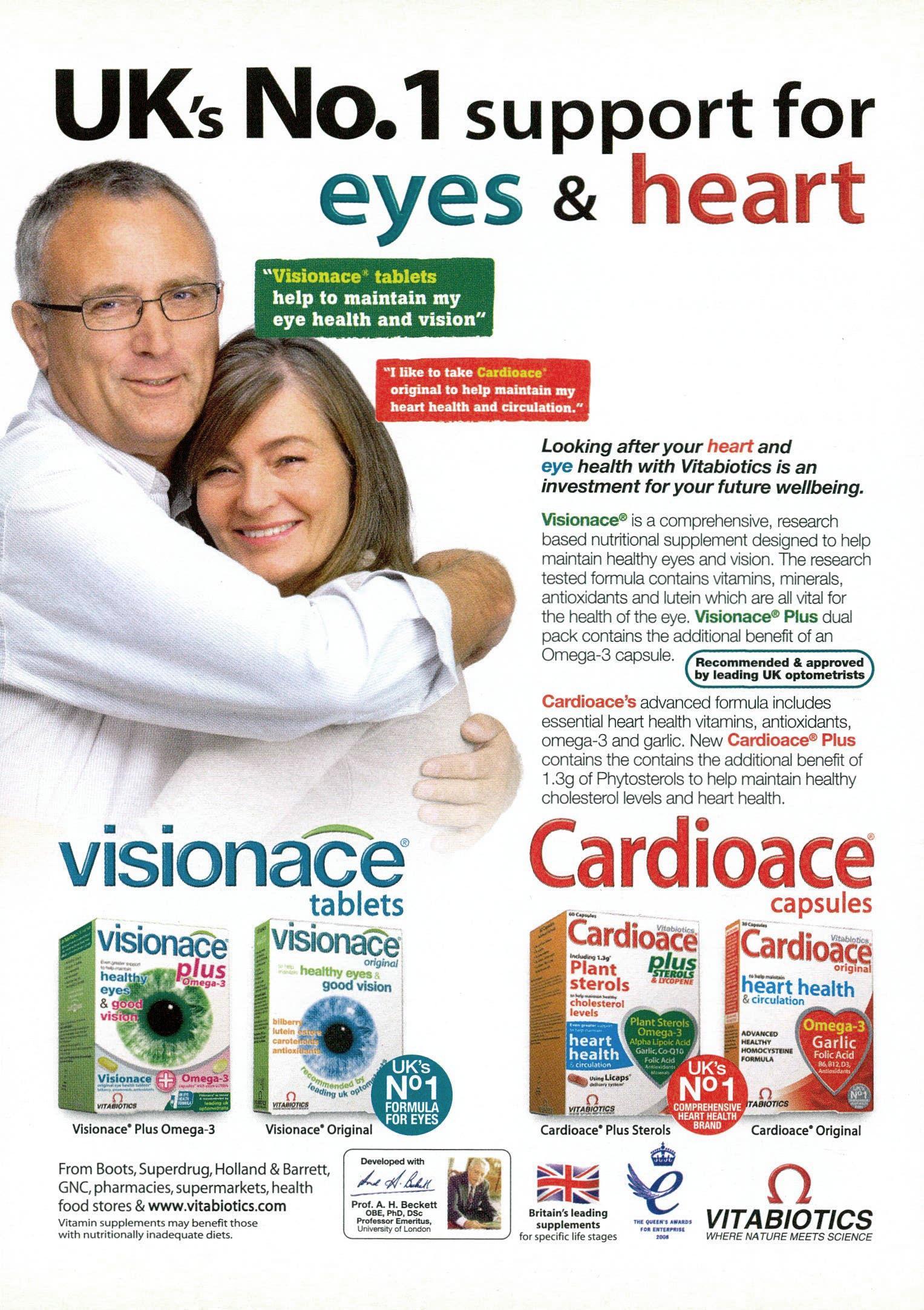
UKs No.1support for eyes & heart
"Visionacek tablets help to maintain my eye health and vision"
"I like to take Cardioace original to help maintain my heart health and circulation."
Looking after your heart and eye health with Vitabiotics is an investment for your future wellbeing.
Viisionace®is a comprehensive, research based nutritional supplement designed to help maintain healthy eyes and vision. The research tested formula contains vitamins, minerals, antioxidants and lutein which are all vital for the health of the eye. Visionace® Plusdual pack contains the additional benefit of an Omega-3 capsule. ecommended & approved el ) Cy leading UK optometrists
Cardioace'sadvanced formula includes essential heart health vitamins, antioxidants, omega-3 and gailic. New Cardioace® Plus contains the contains the additional benefit of 1.3g of Phytosterols to help maintain healthy cholesterol levels and heart health.
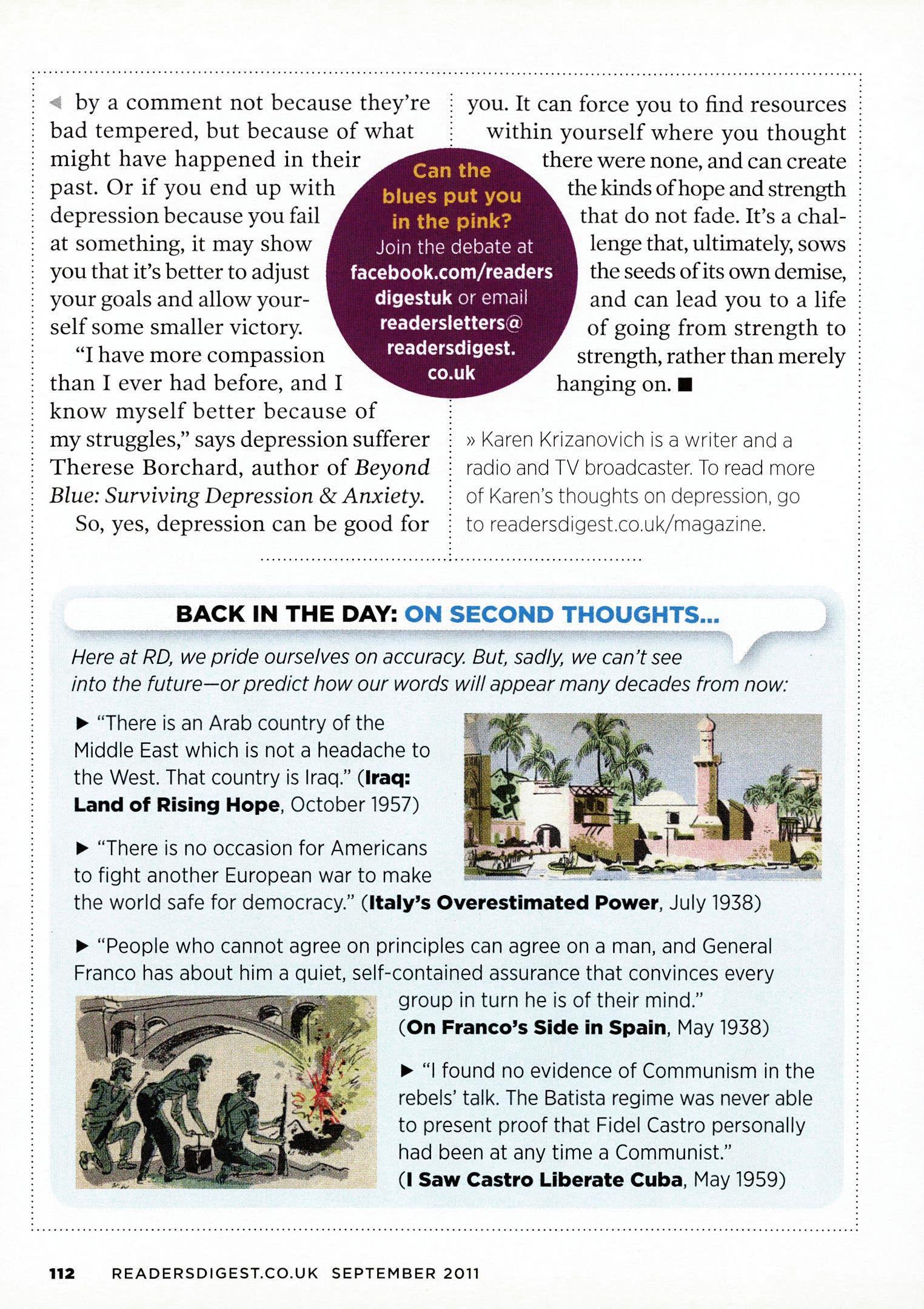
4 by a comment not because they're bad tempered, but because of what might have happened in their past. Or if you end up with depression because you fail at something, it may show you that it's better to adjust your goals and allow yourself some smaller victory. "I have more compassion than I ever had before, and I know myself better because of my struggles," says depression sufferer Therese Borchard, author of Beyond Blue: Surviving Depression & Anxiety. So, yes, depression can be good for
Can the blues put you in the pink?
Join the debate at facebook.com/readers digestuk or email readersletters@ readersdigest. co.uk
you. It can force you to find resources within yourself where you thought there were none, and can create the kinds of hope and strength that do not fade. It's a challenge that, ultimately, sows the seeds of its own demise, and can lead you to a life of going from strength to strength, rather than merely hanging on. ■
» Karen Krizanovich is a writer and a radio and TV broadcaster. To read more of Karen's thoughts on depression, go to readersdigest.co.uk/magazine.
BACK IN THE DAY: ON SECOND THOUGHTS...
Here at RD, we pride ourselves on accuracy. But, sadly, we can't see into the future—or predict how our words will appear many decades from now:
► "There is an Arab country of the Middle East which is not a headache to the West. That country is !rag." (Iraq: Land of Rising Hope, October 1957)
► "There is no occasion for Americans to fight another European war to make the world safe for democracy." (Italy's Overestimated Power, July 1938)
► "People who cannot agree on principles can agree on a man, and General Franco has about him a quiet, self-contained assurance that convinces every group in turn he is of their mind."
(On Franco's Side in Spain, May 1938)
► "I found no evidence of Communism in the rebels' talk. The Batista regime was never able to present proof that Fidel Castro personally had been at any time a Communist."
(I Saw Castro Liberate Cuba, May 1959)
h E•ut R Ipase and Whole of Life Cover
with Funeral Plans and Will Service
with Money Transfers and Travel Insurance

From securing your retirement home to supplementing your pension to taking care of your family, we've called on the experts who aim to find the best deals for you
Plan for retirement and make your life easier

Release the equity in your home and give yourself more money when you retire
Is your pension going to be enough to enable you to enjoy everything you've planned for your retirement?
The holidays, the hobbies, the home improvements? Equity release lets you free up some of the cash you have tied up in your home. You don't have to leave your home, you don't have to worry about repayments, you can guarantee an inheritance for your family - and you receive a tax-free cash lump sum that you can spend on anything you want.
The solution to releasing equity from the value of your home may involve a lifetime mortgage or a home reversion plan. To understand the features and risks, you should ask for a personal illustration.
90% of pension funds are under £50,000 Today, the average 65-year-old man can enjoy 22 years of retirement
>. Over 65s have an estimated £750 billion in housing wealth
'Of course, equity release may not be right for everyone. It may affect your entitlement to state benefits and will reduce the value of your estate. Although thousands of people have found it increased their income in retirement allowing them to do what they want. You need expert advice, that's why we recommend Just Retirement Solutions. They will go through all of your options, explain the costs as well as the benefits, and help find the right solution for your circumstances. An administration fee of f749 is only applicable if you take out a plan.' Mike Brown, Reader's Digest Financial Services X -
Take out Whole of Life Cover and guarantee a fixed cash sum for your loved ones
Leaving a cash sum - whether it's to help with funeral costs or provide a nest egg for your loved ones - can make all the difference. And it's easy with the Guaranteed Over 50 Plan.
`How much is peace of mind worth to you?
The Guaranteed Over 50 Plan from Sun Life Direct starts from as little as f7 a month, that's just 23p a day, so we believe it's easy to choose a premium you can comfortably afford to keep paying every month throughout your life. If you stop paying, the Plan will end and you won't get anything back. Call today to find out if the Plan is right for you.'
Mike Brown, Reader's Digest rFinancial Services 'I,
GUARANTEED GUARANTEED
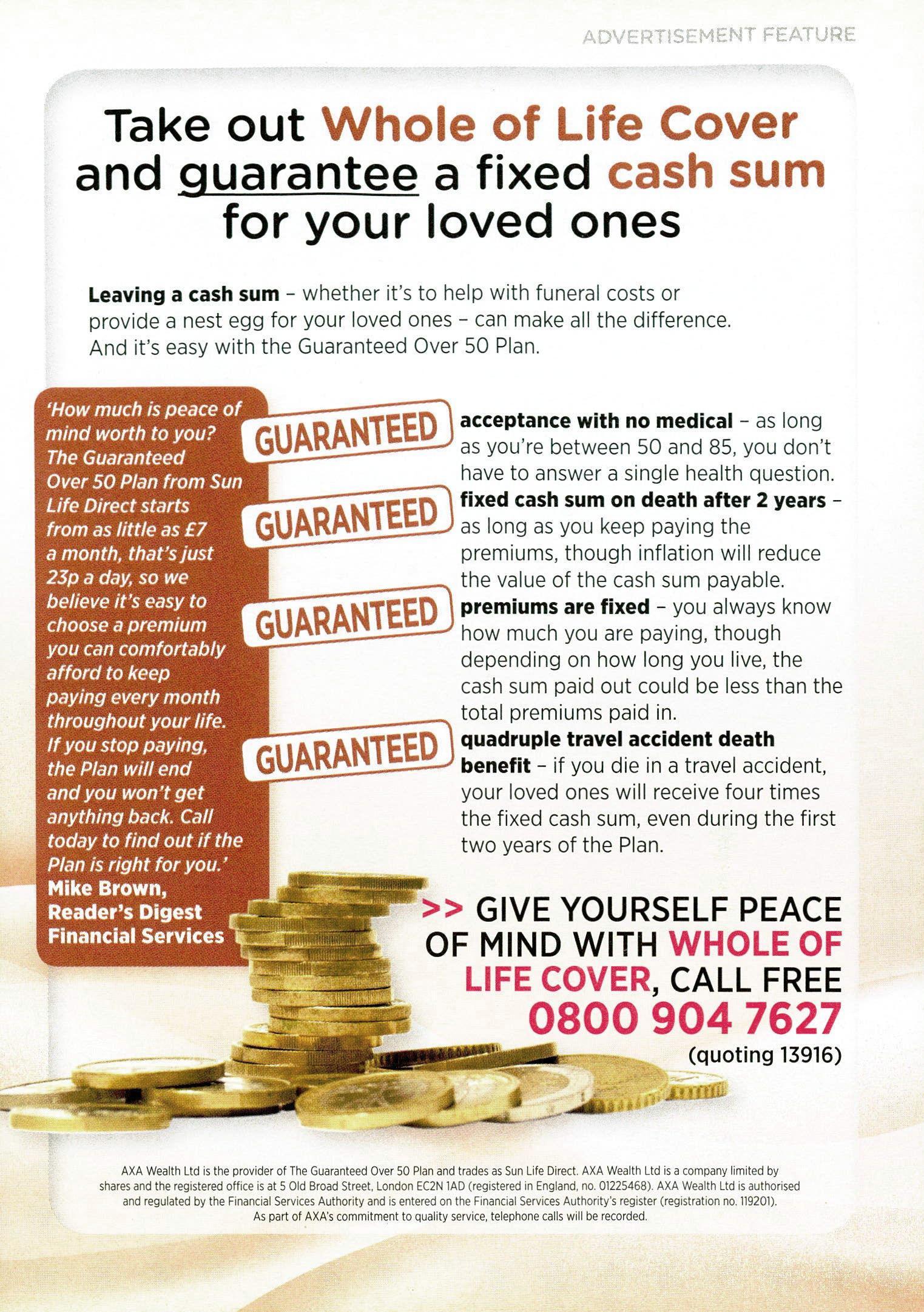
GUARANTEED
acceptance with no medical - as long as you're between 50 and 85, you don't have to answer a single health question. fixed cash sum on death after 2 yearsas long as you keep paying the premiums, though inflation will reduce the value of the cash sum payable. premiums are fixed - you always know how much you are paying, though depending on how long you live, the cash sum paid out could be less than the total premiums paid in.
quadruple travel accident death benefit - if you die in a travel accident, your loved ones will receive four times the fixed cash sum, even during the first two years of the Plan.
Plan for the funeral you want and help relieve the financial stress on your loved ones
At a difficult time, it is comforting to know that you can put your funeral arrangements in place, and make sure it's paid for in advance. Not only does it mean you can be sure of having a funeral precisely the way you've planned it, but it also means that you can make a saving by paying at today's prices. A Guaranteed Funeral

`Dignity enjoys an unrivalled reputation as Britain's foremost provider of funeral services, with a nationwide network of over 900 funeral directors who are highly experienced and have served their communities for generations.'
Mike Brown, Reader's Digest Financial ServicesPlan from Dignity guarantees to cover the cost of a cremation funeral, no matter how much costs are predicted to rise (see graph). With a fixed price plan, once it's paid for, there's no extra cost. You can take care of the funeral arrangements in advance, removing the stress and worry from your loved ones and leaving them to concentrate on making their own personal tributes.
£5,000
£4,500
£4,000
£3,500
£3,000
£2,500
£2,000
£1,500
£1,000
£500 0
Average funeral cost Projected funeral cost
£4,252
2004' 2010' 2016-
Make a and secure your inheritance for your family
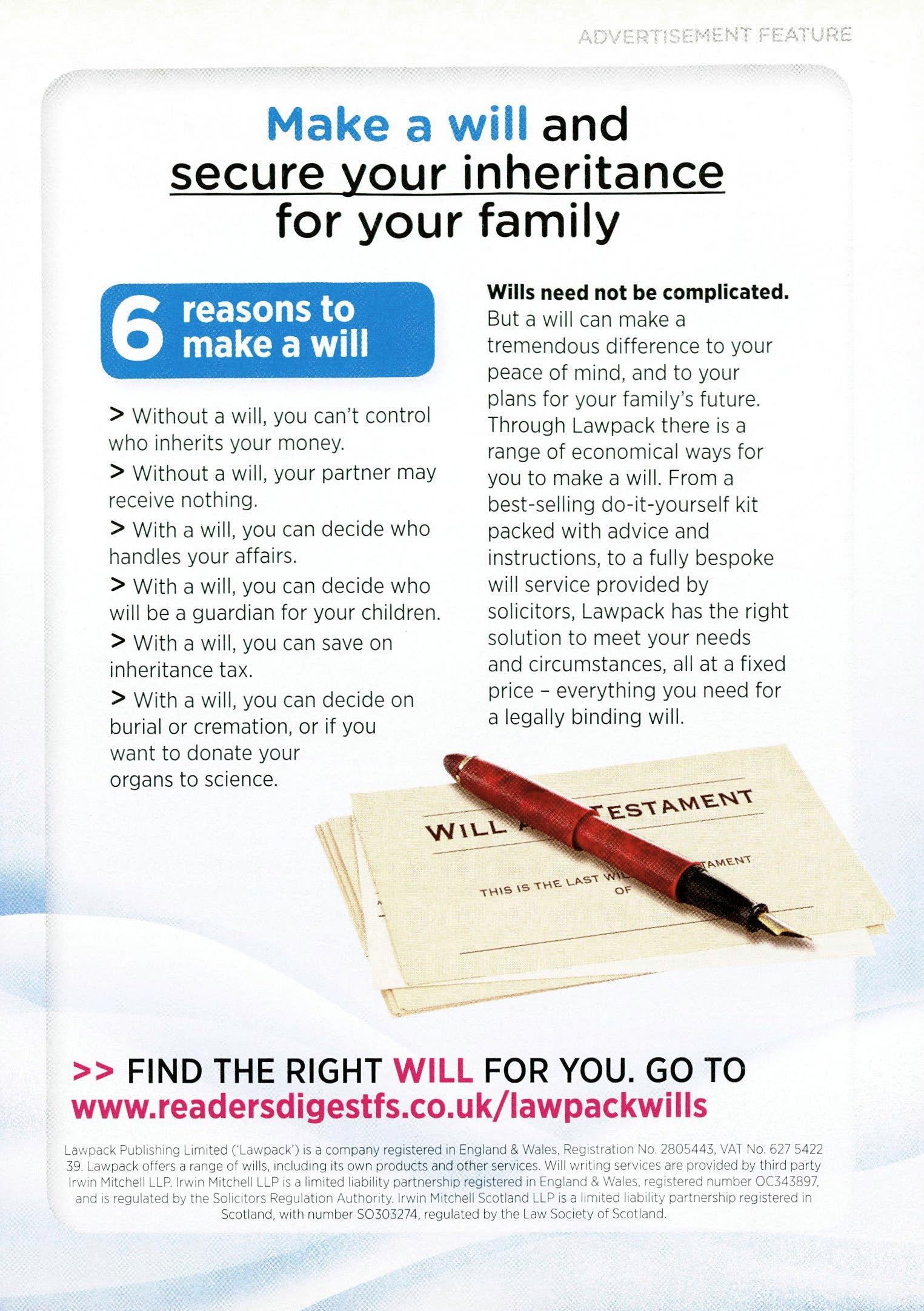
> Without a will, you can't control who inherits your money.
> Without a will, your partner may receive nothing.
> With a will, you can decide who handles your affairs.
> With a will, you can decide who will be a guardian for your children.
> With a will, you can save on inheritance tax.
> With a will, you can decide on burial or cremation, or if you want to donate your organs to science.
Wills need not be complicated. But a will can make a tremendous difference to your peace of mind, and to your plans for your family's future. Through Lawpack there is a range of economical ways for you to make a will. From a best-selling do-it-yourself kit packed with advice and instructions, to a fully bespoke will service provided by solicitors, Lawpack has the right solution to meet your needs and circumstances, all at a fixed price - everything you need for a legally binding will.
Sending money abroad?
Get the currency you need, at \,t the best exchange rate
Retirement is a time when
many of us like to take the opportunity to travel abroad. You may even be thinking of buying a retirement home in the sun.

`With the pound weakening against the euro, this is a difficult time for people living abroad, or planning to emigrate. That's why a foreign exchange and international payments specialist like Moneycorp can help. Their experts monitor the currency markets on your behalf - so you get the best possible rates of exchange.'
Mike Brown, Reader's Digest Financial ServicesFor that, you need a secure way of sendng your money overseas, and protecting yourself from currency fluctuations. Moneycorp, one of the UK's leading money transfer specialists, have been dealing in foreign exchange since 1979 and offer expert guidance to help you get the best exchange rates.
Case history
Richard Blanchard spends his holidays in Spain, and eventually bought a property there, where he plans to retire. Moneycorp arranged the transfer for the deposit at a better exchange rate than was available with his bank, and also helped with his remaining payments. 'I didn't know much about foreign exchange before, and our Moneycorp Account Manager made it very easy to understand the best way to transfer my money.'
Find the travel insurance that helps you get away from it all
Now you've got the time to really explore the world. Your retirement presents a perfect opportunity to revisit favourite haunts, explore places you've always wanted to visit, take extended trips you never used to have the time for, or even try a new sport. And when you do, you need to be
sure you have the right travel insurance with the right level of cover. As you get older, that's not always so easy. But Reader's Digest Travel Insurance can provide cover for anyone up to the age of 85*. We can also cover pre-exisiting medical conditions. And if you fancy going skiing at 70, there's no problem with Reader's Digest Travel Insurance.

or visit www.readersdigesttravelinsurance.co.uk
You've worked all your life for this. Retirement should be a time when you can relax and enjoy yourself after the stresses and strains of a working life. But one thing never seems to change: worrying about money. That's why we've consulted such a wide range of experts to help with your retirement planning.
We've selected the financial service providers that you can rely on. Together, they might help you make your money go further, and lead the sort of retirement you've always looked forward to.
Mike Brown, Reader's Digest Financial Services>> We've searched hundreds of product providers aiming to bring you the best!
EQUITY RELEASE
Just Retirement Solutions 0800 232 1302 (quote RD051)
WHOLE OF LIFE COVER
Sun Life Direct
Guaranteed Over 50 Plan 0800 904 7627 (quote 13916)
FUNERAL PLANS
Dignity 0800 151 3798 (quote RDO4AASP) www.dignityfuneral plans.co.uk/readers

WILLS Lawpack
www.readersdigestfs.co.uk/ lawpackwills
MONEY ABROAD Moneycorp 0800 910 1845 (quote Reader's Digest) www.moneycorp.com/ readersdigest
Reader's Digest Travel Insurance 0800 292 2742
www.readersdigesttravel insurance.co.uk

Newandupdatedfor2011
leading reference publishers, Chambers, Reader's Digest is proud to present the ultimate Crossword Dictionary.
Brand new for 2011and presented in a special easy-to-use, twocolour edition, this dictionary has been meticulously updated with thousands of new words including podcast and blog. Whether you are new to crosswords or an aficionado, you'll have over 500,000 solutions for every kind of clue at your fingertips.
So if you're searching for synonyms or anxious over anagrams, the Chambers Crossword Dictionary will give you the tools you need to crack any word challenge. Call o800 316 0663 to order today!
500,000 solutions • 15,000 word entries •275,000 synonyms • 500 ways to spot an anagram • 1,500 new words • 1chance to order — don't miss out!
HOW TO... BY LINDA GRAY
1,001 THINGS
Welcome to the pages that help make life simpler, easier and—we hope—more fun!
How to COMPLAIN
Moaning is easy, but compensation is harder to come by. To speed up the process, bypass customer services (who will offer an apology and a token at best), advises consumer champion Jasper Griegson. "Many companies have a special unit to deal with complaints made to the board, so contact the firm's financial or marketing director instead."
To track them down, search the corporate section of the website or pay £1 to access their names at Companies House. Then state your complaint in writing because emails are too easy to delete. Be aware of your rights—in law you have up to six years to return faulty
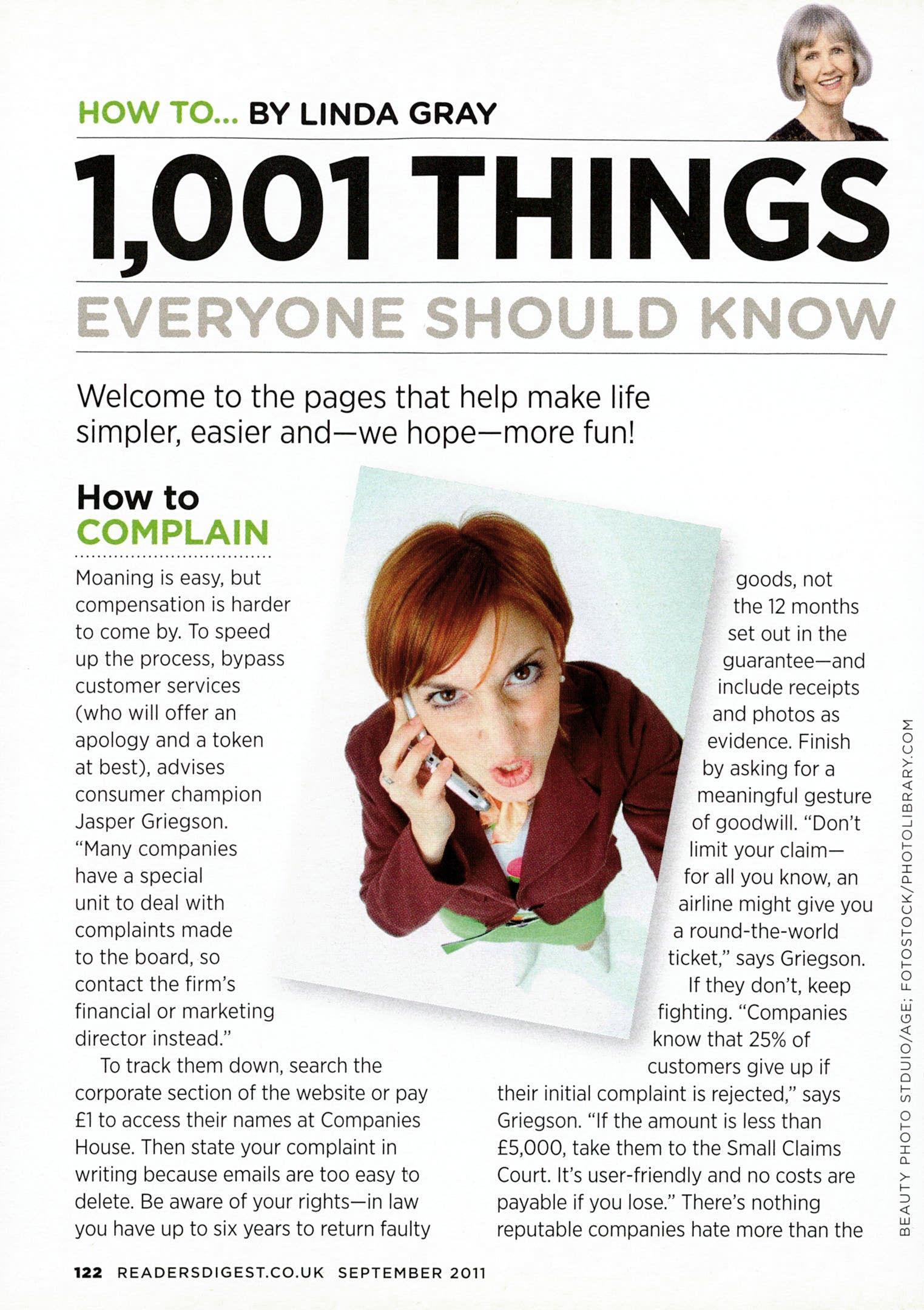
goods, not the 12 months set out in the guarantee—and include receipts and photos as evidence. Finish by asking for a meaningful gesture of goodwill. "Don't limit your claim— for all you know, an airline might give you a round-the-world ticket," says Griegson. If they don't, keep fighting. "Companies know that 25% of customers give up if their initial complaint is rejected," says Griegson. "If the amount is less than £5,000, take them to the Small Claims Court. It's user-friendly and no costs are payable if you lose." There's nothing reputable companies hate more than the

threat of court .r 7 action, so they should be quick to settle.
Even if they're rogues, all is not lost. If you've paid at least £100 by credit card, the finance company must pick up the tab—so complain to them.
How to BUY ART INTEREST-FREE
Fancy a government grant to start your own contemporary art collection? No, it's not April 1— it's the Arts Council's Own Art scheme, which gives interest-free loans of up to £2,000, repayable over ten months. There are 300 approved galleries in the scheme, so you can be sure you're buying quality, and the range includes sculpture, ceramics and even jewellery. (A "Door to my Heart" silver pendant for £16.30 a month? Don't mind if I do.) You can shop online, so buying is easy. The only problem is what to choose.
"Original prints are a good place to start if the edition really is limited—only prints in an edition of 150 or less are eligible for the loan scheme," says Own Art officer Helen Bonar. "And make sure they're signed and numbered by the artist."
Art is not about fashion or investment, she says. "Never buy work of lesser quality just because it's by a high-profile artist. Go for work that speaks to you and think about how it makes you feel. There's no guarantee it'll increase in value, so if it does, see it as a bonus."
Visiting as many galleries as possible helps increase your understanding, and once you're a client, you'll automatically be invited to private views where you'll meet other enthusiasts. A house full of fine art, a free loan and a better social life... thank you, George Osborne! Pk
How to WRITE AN ONLINE DATING PROFILE
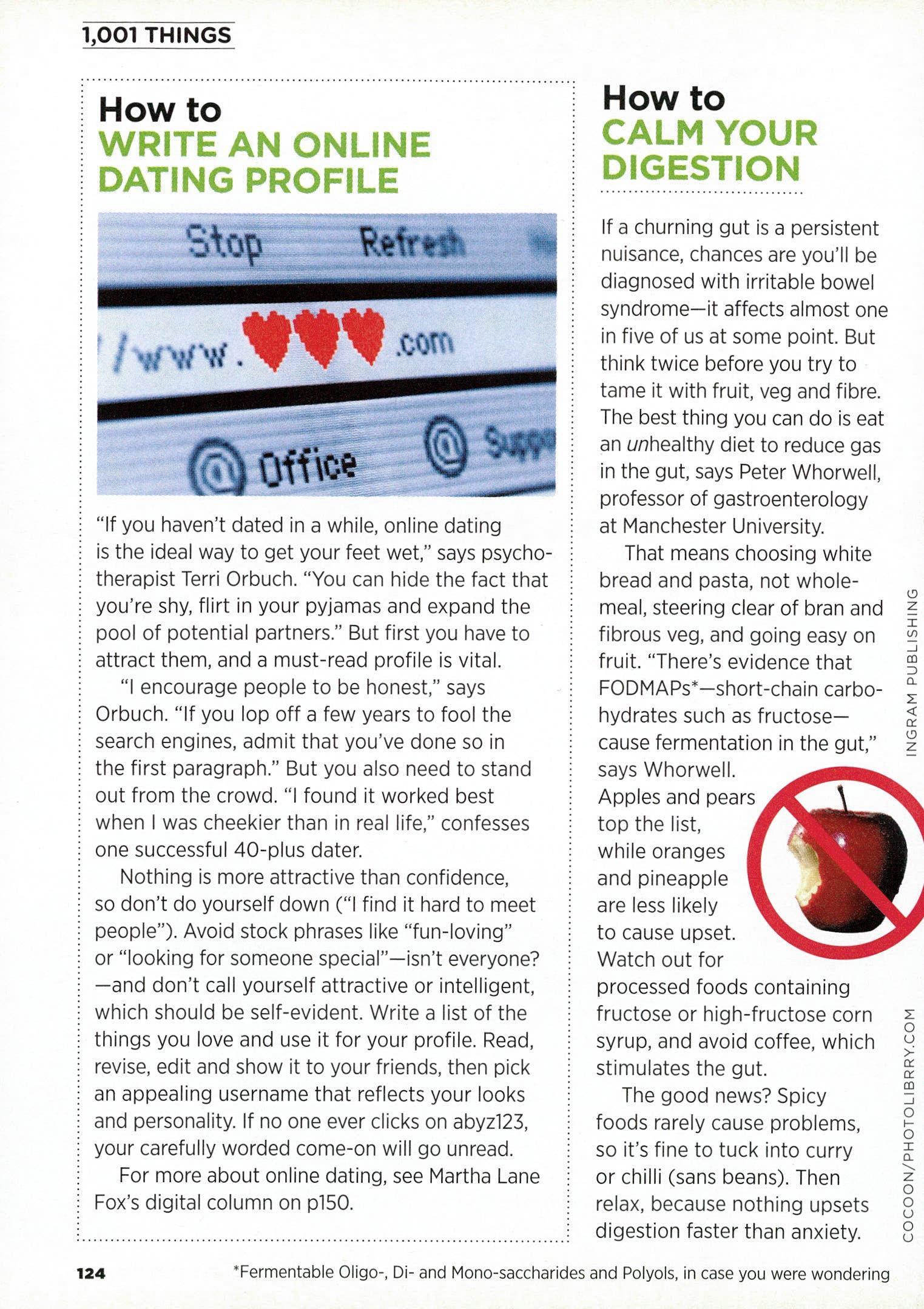
"If you haven't dated in a while, online dating is the ideal way to get your feet wet," says psychotherapist Terri Orbuch. "You can hide the fact that you're shy, flirt in your pyjamas and expand the pool of potential partners." But first you have to attract them, and a must-read profile is vital.
"I encourage people to be honest," says Orbuch. "If you lop off a few years to fool the search engines, admit that you've done so in the first paragraph." But you also need to stand out from the crowd. "I found it worked best when I was cheekier than in real life," confesses one successful 40-plus dater.
Nothing is more attractive than confidence, so don't do yourself down ("I find it hard to meet people"). Avoid stock phrases like "fun-loving" or "looking for someone special"—isn't everyone? —and don't call yourself attractive or intelligent, which should be self-evident. Write a list of the things you love and use it for your profile. Read, revise, edit and show it to your friends, then pick an appealing username that reflects your looks and personality. If no one ever clicks on abyz123, your carefully worded come-on will go unread.
For more about online dating, see Martha Lane Fox's digital column on p150.
How to CALM YOUR DIGESTION
If a churning gut is a persistent nuisance, chances are you'll be diagnosed with irritable bowel syndrome—it affects almost one in five of us at some point. But think twice before you try to tame it with fruit, veg and fibre. The best thing you can do is eat an unhealthy diet to reduce gas in the gut, says Peter Whorwell, professor of gastroenterology at Manchester University. That means choosing white bread and pasta, not wholemeal, steering clear of bran and fibrous veg, and going easy on fruit. "There's evidence that FODMAPs*—short-chain carbohydrates such as fructose— cause fermentation in the gut," says Whorwell. Apples and pears top the list, while oranges and pineapple are less likely to cause upset. Watch out for processed foods containing fructose or high-fructose corn syrup, and avoid coffee, which stimulates the gut.
The good news? Spicy foods rarely cause problems, so it's fine to tuck into curry or chilli (sans beans). Then relax, because nothing upsets digestion faster than anxiety.
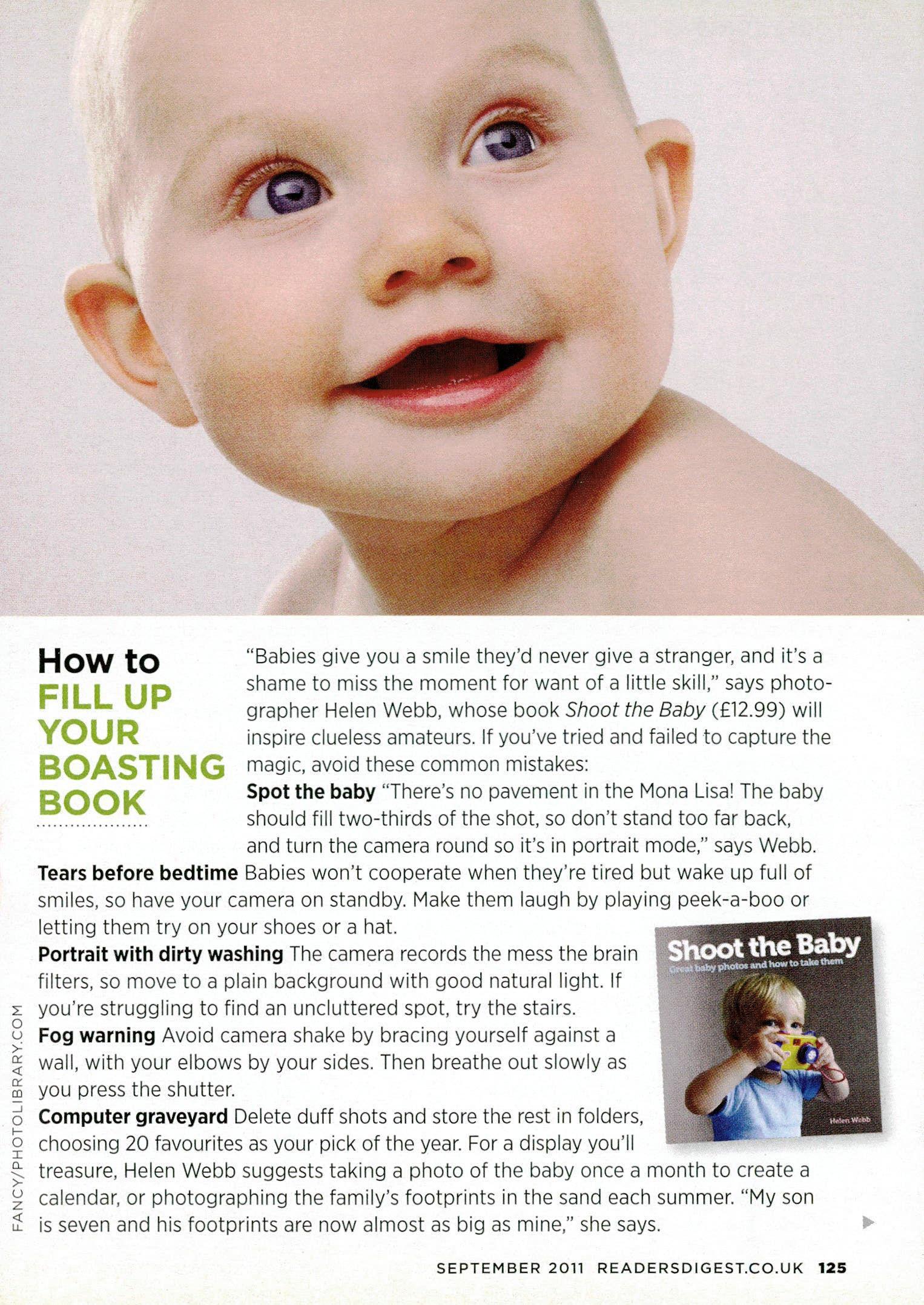
How to FILL UP YOUR BOAST!"(7 7 BOOK
"Babies give you a smile they'd never give a stranger, and it's a shame to miss the moment for want of a little skill," says photographer Helen Webb, whose book Shoot the Baby (02.99) will inspire clueless amateurs. If you've tried and failed to capture the magic, avoid these common mistakes: Spot the baby "There's no pavement in the Mona Lisa! The baby should fill two-thirds of the shot, so don't stand too far back, and turn the camera round so it's in portrait mode," says Webb. Tears before bedtime Babies won't cooperate when they're tired but wake up full of smiles, so have your camera on standby. Make them laugh by playing peek-a-boo or letting them try on your shoes or a hat.
Portrait with dirty washing The camera records the mess the brain filters, so move to a plain background with good natural light. If you're struggling to find an uncluttered spot, try the stairs.
Fog warning Avoid camera shake by bracing yourself against a wall, with your elbows by your sides. Then breathe out slowly as you press the shutter.
Computer graveyard Delete duff shots and store the rest in folders, choosing 20 favourites as your pick of the year. For a display you'll treasure, Helen Webb suggests taking a photo of the baby once a month to create a calendar, or photographing the family's footprints in the sand each summer. "My son is seven and his footprints are now almost as big as mine," she says.
1,001 THINGS
How to of PAID TO SHOP
Visit a cashback site to access an online store (Boots, Debenhams or Tesco are just three) and you can make money every time you shop. True, 3% is the most you can expect from retailers, but you can earn £50-plus on energy, finance and mobile deals, and some expert customers collect hundreds every year. How do they do it?
1.They read the small print. Stores often limit the ranges eligible for cashback, which makes it hard to build up reserves, especially as sites often don't pay out until the retailer pays them or you've earned £20. Most also deduct an annual £5 admin fee.
2. They don't disable cookies. Cashback sites use these footprints on your computer to track purchases. If the sale's not registered, you won't get paid.
3. They use a cashback credit card. The Amex Platinum pays between 5% and 1% on purchases, but it only pays out once you've spent £3,000 (and once a year at that). Treat it as a debit card and pay the amount you owe each month to escape the hefty (almost 20%) interest charges.
4. They do the maths. "Never let the cashback tail wag the dog," says Martin Lewis of moneysavingexpert.com. "Treat it as a bonus it may not be the cheapest deal."
5. They bank their cash fast. If the retailer goes bust, you'll lose everything in the cashback account.
WHAT YOUR WATER SUPPLIER WON'
TELL YOU
You can testdrive a water meter. 'll fit one for free, and if you don't save money I'll take it away as long as you ask me within 12 months.
• Looks like there's a shrimp in your glass?
Freshwater shrimps and midge larvae sometimes survive the purifying process, but they're harmless. They upset customers though, so I have to keep the numbers down.
• I often overcharge. I add up to £40 to bills for rainwater run-off and £200 for sewerage. If there's a soakaway in your garden to absorb
surface water or you use a cesspit for sewage, let me know. It could make a big difference to your bill.
• I'm leakier than a government department. One in four water companies is currently on warning for failing to reduce leaks, < and face heavy
fines. But I can't uii,j, 0 0 pass the cost on to you, which may be 2 some consolation ce
U Ln next time you
open a bill.
• If the water a D tastes of TCP, 0LI; check your Z 0 < washing machine and dishwasher. I--
There's usually
a problem with
the hoses that
connect them to
the pipes. If it's chlorine you can't
stand, just cool a
jug of water in the
fridge to make
the taste vanish. 'El
• Only loo paper
ui is flushable. You're °
guilty of sewer
abuse if you flush S away cotton buds,


condoms, dental floss or kitchen paper. And don't even think of putting wet wipes or tampons down the loo— they take years to break down.
• Be careful where you swim. Fortytwo beaches failed to meet the minimum standard for bathing water this year, and who knows how many will fail when higher standards are imposed in 2015. The culprit is the thousands of outlets that send raw sewage into the sea after heavy rain. Check out their location at environmentagency.gov.uk/ maps before your dip and spare yourself a bout
of diarrhoea and vomiting. Run the taps first thing in the morning.
Of course the water's safe, but it stagnates in the pipes after a few hours, so draw off a bowlful before you drink it, just in case.
• I'll pretend you have a meter. The Government wants everyone to have a water meter, and in some areas they're compulsory. If it's impossible—in houses divided into flats, for instance— I'll charge you for the water you'd use if you had one. Ask me—it could be cheaper than a bill based on the rateable value.
• Ring me if the problem's in the road. On October 1, I'm taking over responsibility for all the drains and sewers outside your front gate, even in private roads. (I'll be putting your bill
up by a tenner or so, too.)
• Maybe I owe you money. If I cut you off without warning when working on the supply, I'll pay you £20. I'll also pay £20 plus £10 a day if the work overruns. (Even in an emergency I'm only allowed 12 hours before the fines kick in.) You get £20 every time I miss an appointment and £25 if the water pressure's low for more than twice a month. And if the sewers flood your house and it's my fault, you could really clean up (sorry)—to
the tune of £1,000.
• Your pipes could be a health hazard. If your house was built before 1970, check the pipe to the sink. If it's dull grey beneath the paint, it's probably lead and I'll need to check the water supply. Hard water is protective because it coats lead pipes with limescale, but in soft-water areas pipes need replacing. ■
COMING HOME
It's when they leave the field of battle that servicemen really need our help
I was on my way to visit an aunt. I sat on the train, staring out at the rolling Gloucestershire countryside, lost in thought. The train pulled up to the platform. No one left and no one came. It was hot. Eventually there was an announcement. We were being held here because of a signal problem at the village further up the line.
The train driver opened the doors so that we could stretch our legs. A few of us stood or wandered up and down. The station was deserted and looked a little unloved. Tufts of grass pushed up defiantly through cracks in the tarmac. A man was standing close to me, and he smiled at the other passengers, apparently eager to make conversation. Eventually, he
There in the hot, glorious countryside, his eyes welled up with tears
approached me and said hello. "I've been travelling for 48 hours," he said, and laughed at the inconvenience of his journey being interrupted so close to his destination. "I'm going home
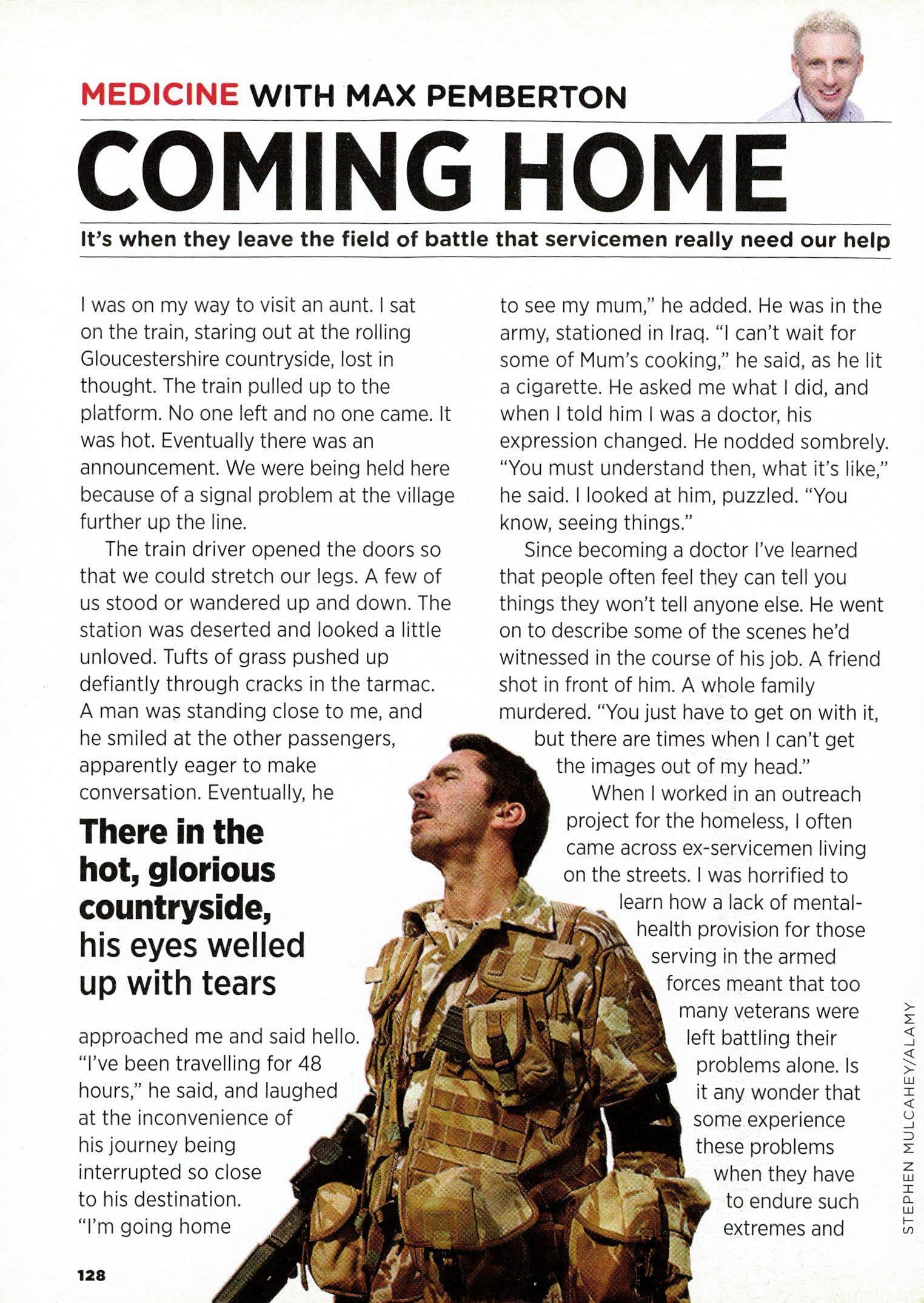
to see my mum," he added. He was in the army, stationed in Iraq. "I can't wait for some of Mum's cooking," he said, as he lit a cigarette. He asked me what I did, and when I told him I was a doctor, his expression changed. He nodded sombrely. "You must understand then, what it's like," he said. I looked at him, puzzled. "You know, seeing things."
Since becoming a doctor I've learned that people often feel they can tell you things they won't tell anyone else. He went on to describe some of the scenes he'd witnessed in the course of his job. A friend shot in front of him. A whole family murdered. "You just have to get on with it, but there are times when I can't get the images out of my head."
When I worked in an outreach project for the homeless, I often came across ex-servicemen living on the streets. I was horrified to learn how a lack of mentalhealth provision for those serving in the armed forces meant that too many veterans were left battling their problems alone. Is it any wonder that some experience these problems when they have to endure such extremes and
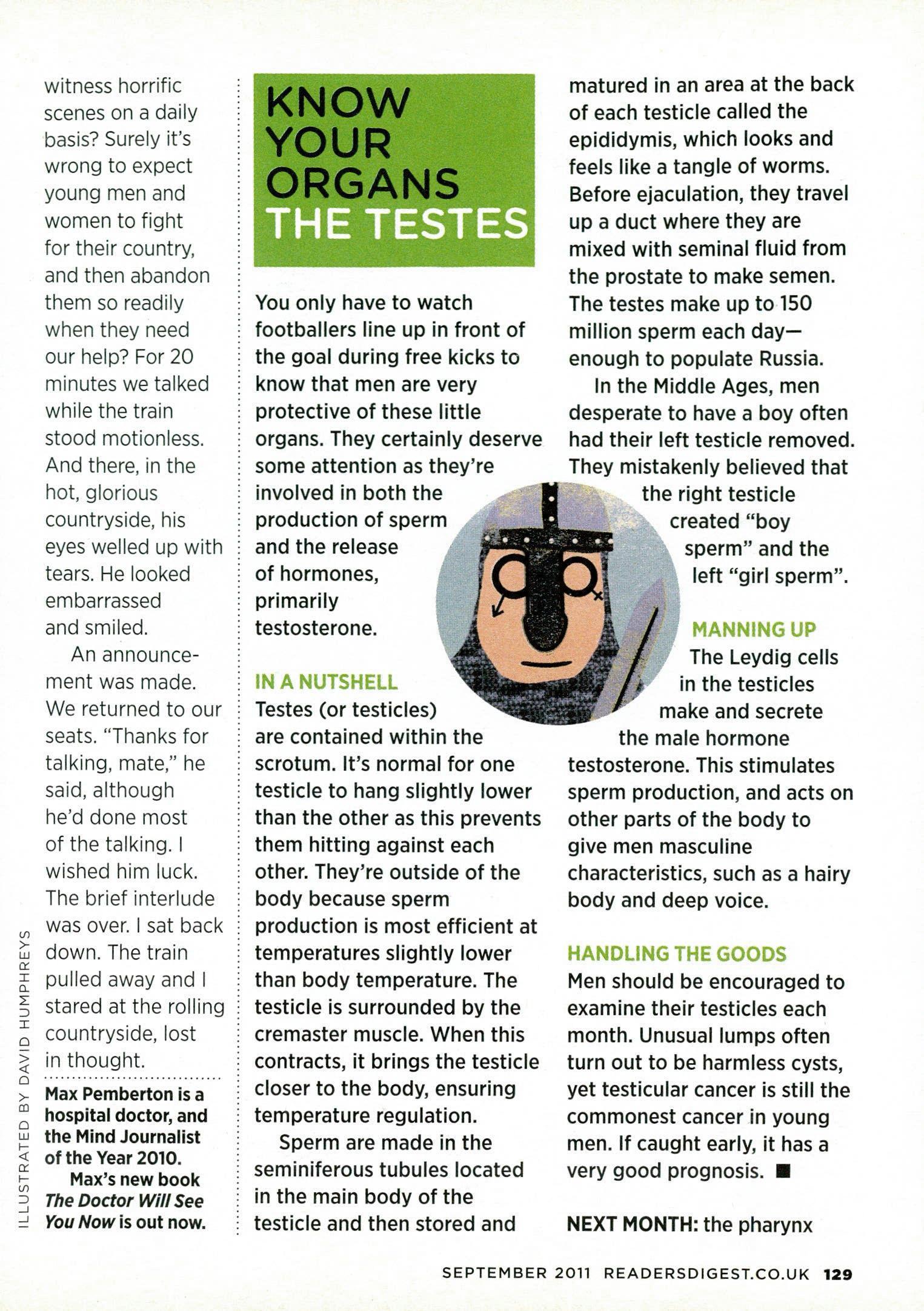
witness horrific scenes on a daily basis? Surely it's wrong to expect young men and women to fight for their country, and then abandon them so readily when they need our help? For 20 minutes we talked while the train stood motionless. And there, in the hot, glorious countryside, his eyes welled up with tears. He looked embarrassed and smiled. An announcement was made. We returned to our seats. "Thanks for talking, mate," he said, although he'd done most of the talking. I wished him luck. The brief interlude was over. I sat back down. The train pulled away and I stared at the rolling countryside, lost in thought.
Max Pemberton is a hospital doctor, and the Mind Journalist of the Year 2010.
Max's new book The Doctor Will See You Now is out now.
1' k
THE TESTES
You only have to watch footballers line up in front of the goal during free kicks to know that men are very protective of these little organs. They certainly deserve some attention as they're involved in both the production of sperm and the release of hormones, primarily testosterone.
IN A NUTSHELL
Testes (or testicles) are contained within the scrotum. It's normal for one testicle to hang slightly lower than the other as this prevents them hitting against each other. They're outside of the body because sperm production is most efficient at temperatures slightly lower than body temperature. The testicle is surrounded by the cremaster muscle. When this contracts, it brings the testicle closer to the body, ensuring temperature regulation.
Sperm are made in the seminiferous tubules located in the main body of the testicle and then stored and
matured in an area at the back of each testicle called the epididymis, which looks and feels like a tangle of worms. Before ejaculation, they travel up a duct where they are mixed with seminal fluid from the prostate to make semen. The testes make up to 150 million sperm each day— enough to populate Russia. In the Middle Ages, men desperate to have a boy often had their left testicle removed. They mistakenly believed that the right testicle created "boy sperm" and the left "girl sperm".
MANNING UP
The Leydig cells in the testicles make and secrete the male hormone testosterone. This stimulates sperm production, and acts on other parts of the body to give men masculine characteristics, such as a hairy body and deep voice.
HANDLING THE GOODS
Men should be encouraged to examine their testicles each month. Unusual lumps often turn out to be harmless cysts, yet testicular cancer is still the commonest cancer in young men. If caught early, it has a very good prognosis. ■
NEXT MONTH: the pharynx
HEALTH WITH SUSANNAH HICKLING
NO WAITING HERE
How to take advantage of one of the NHS's best-kept secrets
There's plenty in the news about NHS waiting lists, but many people don't realise that you have a legal right to choose where you're treated. So if the waiting time is shorter at a hospital that isn't your usual one—or if you just think the treatment is better there—then in most cases you can be referred under the NHS Choose and Book scheme.
I needed to see a gynaecologist recently and was less than keen on hanging around for my local hospital—which managed to lose my blood-test results last time I went. Instead, my GP offered me either a nearby private hospital that had a contract with the NHS and a waiting time of just nine days, or one of London's top teaching hospitals.
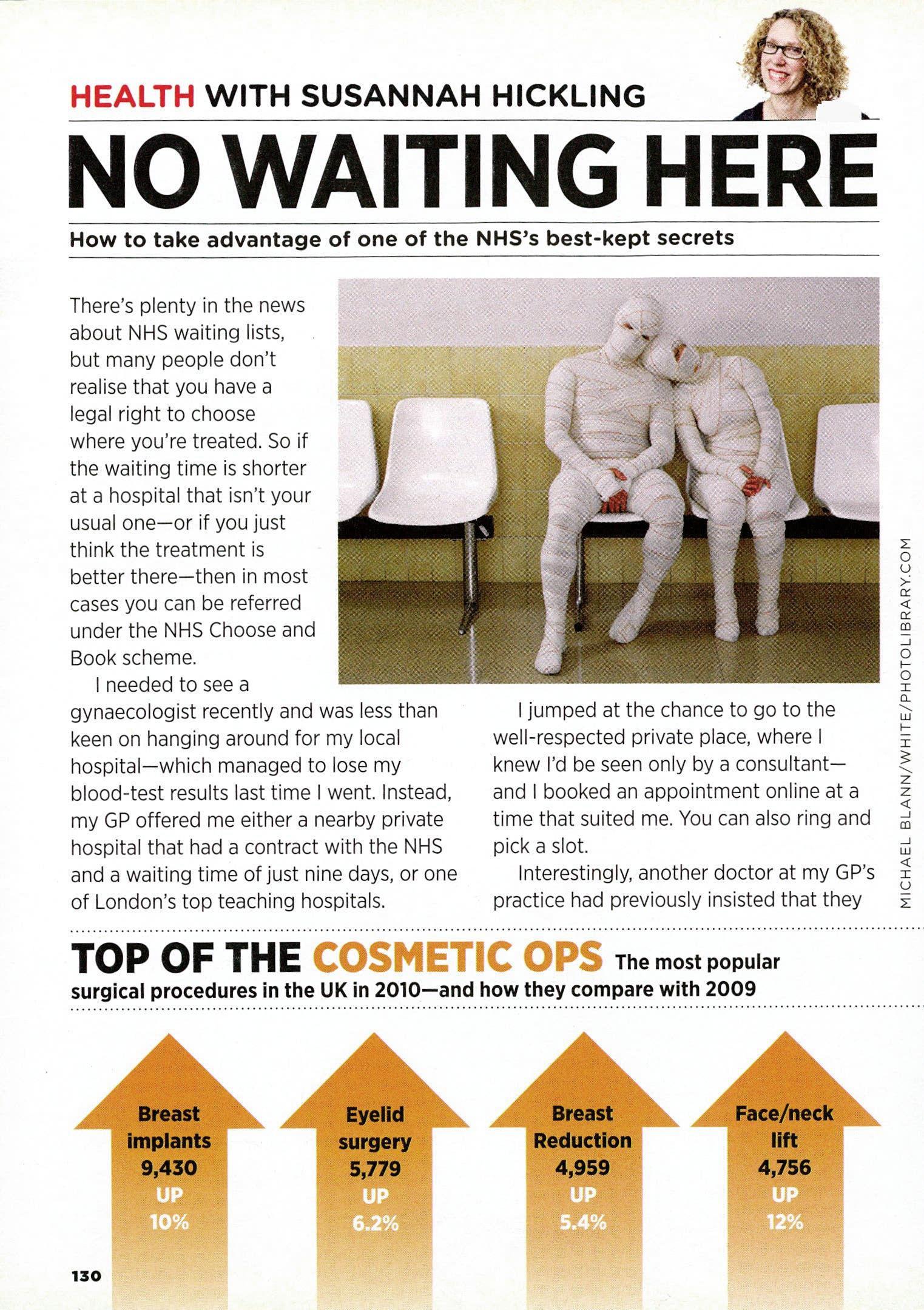
I jumped at the chance to go to the well-respected private place, where I knew I'd be seen only by a consultant— and I booked an appointment online at a time that suited me. You can also ring and pick a slot.
Interestingly, another doctor at my GP's practice had previously insisted that they TOP OF THE COSMETIC OPS The most popular surgical procedures in the UK in 2010—and how they compare with 2009
only ever sent patients to the local hospital. No wonder patients don't know about Choose and Book.
GPs complain about the time spent discussing the options when there are other patients in the waiting room. And, of course, many people want to be treated as close to home as possible and prefer to rely on their doctor's judgement.
Personally, though, I love Choose and Book—and if you're worried about having to wait for an appointment, you might, too.
For more, see chooseandbook. nhs.uk.
THE BACKTO-WORK BLUES
The summer's nearly over and it's back to the same old, same old. But instead of feeling down, why not try some of these proven ways to keep the blues at bay?
• Spend at least one hour a week with an old friend. A British study found this made 65 per cent of women feel less depressed.
• Smile—the physiology of smiling actually makes you feel happy. If you need a bit of help, try a funny book or film.
• Plan a day's hike or cycle ride. The combination of activity and nature will work wonders on your mood.
• Take up drumming. People in one study felt more energetic and less depressed just six weeks after starting a percussion class.
• A regular massage from a friend or partner will give you a natural boost. Researchers believe that massage increases levels of serotonin.
• And if all that doesn't work, it's surely time to book your next holiday!
TOOTH TRUTH
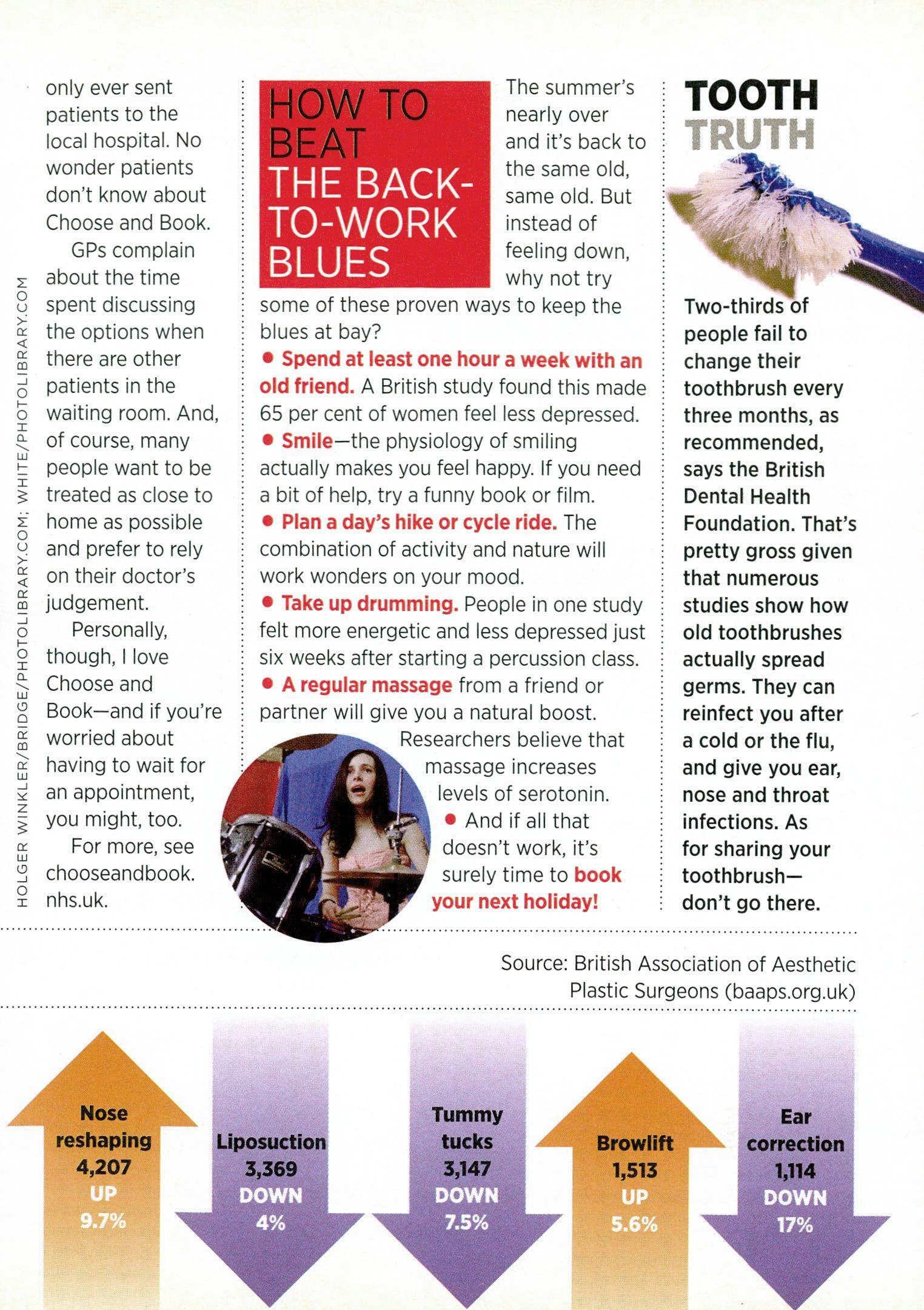
Two-thirds of people fail to change their toothbrush every three months, as recommended, says the British Dental Health Foundation. That's pretty gross given that numerous studies show how old toothbrushes actually spread germs. They can reinfect you after a cold or the flu, and give you ear, nose and throat infections. As for sharing your toothbrush— don't go there.
Source: British Association of Aesthetic Plastic Surgeons (baaps.org.uk)
THE DIET DOCTOR
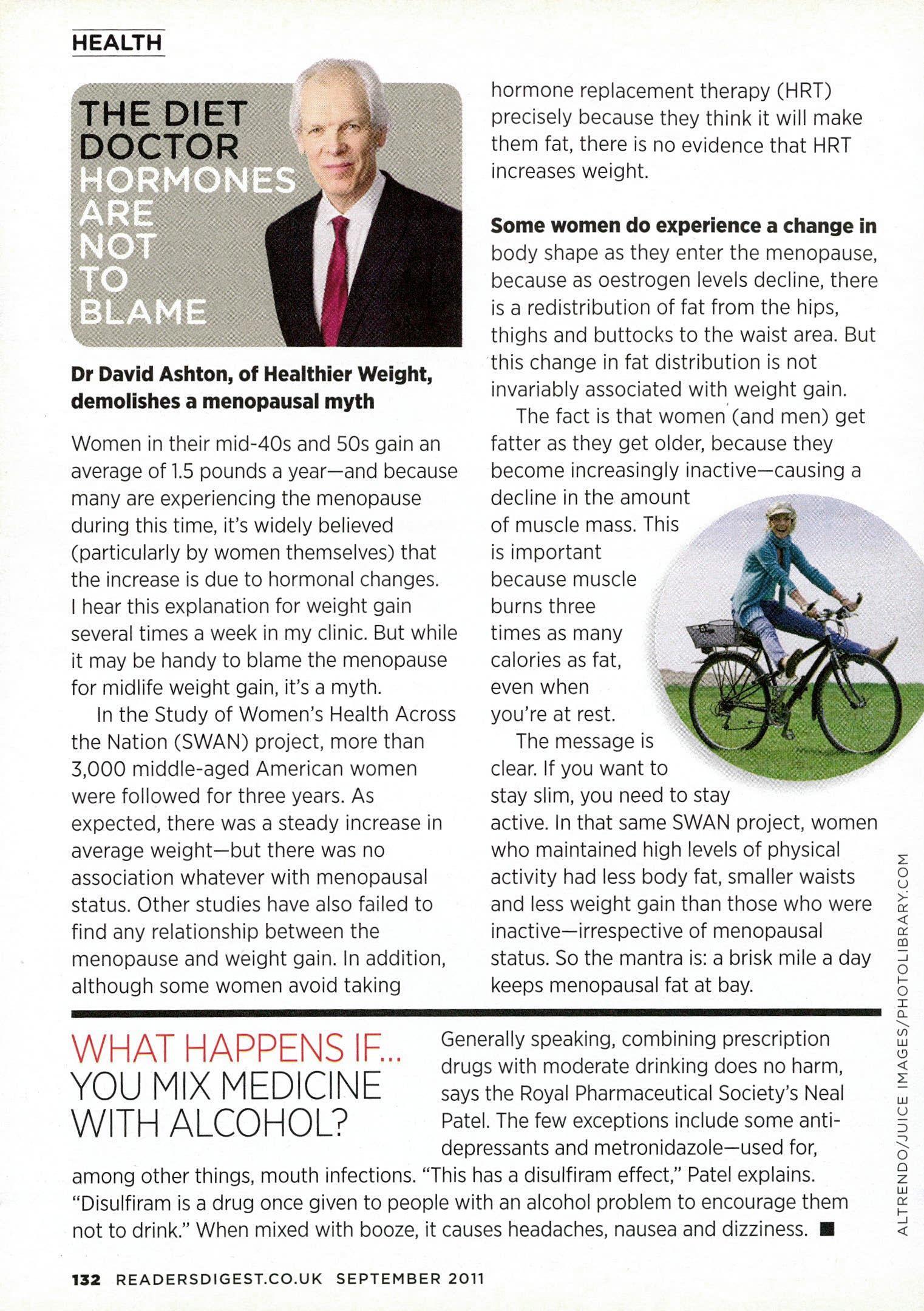
Dr David Ashton, of Healthier Weight, demolishes a menopausal myth
Women in their mid-40s and 50s gain an average of 1.5 pounds a year—and because many are experiencing the menopause during this time, it's widely believed (particularly by women themselves) that the increase is due to hormonal changes. I hear this explanation for weight gain several times a week in my clinic. But while it may be handy to blame the menopause for midlife weight gain, it's a myth.
In the Study of Women's Health Across the Nation (SWAN) project, more than 3,000 middle-aged American women were followed for three years. As expected, there was a steady increase in average weight—but there was no association whatever with menopausal status. Other studies have also failed to find any relationship between the menopause and weight gain. In addition, although some women avoid taking
WHAT HAPPENS IF... YOU MIX MEDICINE WITH ALCOHOL?
hormone replacement therapy (HRT) precisely because they think it will make them fat, there is no evidence that HRT increases weight.
Some women do experience a change in body shape as they enter the menopause, because as oestrogen levels decline, there is a redistribution of fat from the hips, thighs and buttocks to the waist area. But this change in fat distribution is not invariably associated with weight gain.
The fact is that women (and men) get fatter as they get older, because they become increasingly inactive—causing a decline in the amount of muscle mass. This is important because muscle burns three times as many calories as fat, even when you're at rest.
The message is clear. If you want to stay slim, you need to stay active. In that same SWAN project, women who maintained high levels of physical activity had less body fat, smaller waists and less weight gain than those who were inactive—irrespective of menopausal status. So the mantra is: a brisk mile a day keeps menopausal fat at bay.
Generally speaking, combining prescription drugs with moderate drinking does no harm, says the Royal Pharmaceutical Society's Neal Patel. The few exceptions include some antidepressants and metronidazole—used for, among other things, mouth infections. "This has a disulfiram effect," Patel explains. "Disulfiram is a drug once given to people with an alcohol problem to encourage them not to drink." When mixed with booze, it causes headaches, nausea and dizziness. ■

We've paid out over £24 million in prizes to 364,235 winners
That's the equivalent of £50,000 every month since the launch of the Reader's Digest Prize Draw in 1971. In every draw, someone is guaranteed to win. You could be next.
BEAUTY WITH JAN MASTERS
THE PAMPER ZONE
With a bit of spa know-how, you'll be in for a restorative treat
Good news for baby boomers: more spas will be tailoring treatments to you in future, according to SpaFinder, the online global spa and wellness resource (spafinder.co.uk). Prepare for an increase in "corrective" massage and facials and

anti-ageing therapies, plus a renaissance in discovering the soothing benefits of soaking in thermal waters.
Planning your perfect spa trek
• Do you want a "Zen" experience or an exercise boot camp? Are you going with others just because it feels safer than going solo, when you'd really rather be alone? Be honest, and tailor accordingly.
• A spa veteran? If you're very stressed and tired, go somewhere you've been to
before. It cuts out the new-kid-at-school syndrome, so you can dive straight in.
• Ask what's provided (eg, slippers) and the dress code, so you don't over-pack. Leave valuables at home—you'll feel freer.
• Try to schedule treatments in advance. Ask what's involved, and if they can accommodate specific requirements.
Spa etiquette
• Turn off your phone, and keep the TV low. Peace for all is part of the package.
• Don't shave your legs or wax your bikini line the same day as a treatment—it can make you more susceptible to irritation.
• Try not to eat for at least an hour before treatments.
• Always shower before therapies and visiting the pools and saunas.
• Don't be late for appointments, so neither you nor the therapist feel rushed.
• Anxious about the whole naked thing? Staff are very dextrous at using towels as screens. Paper knickers are usually offered, too—about as flattering as sporting a J-cloth, but can spare blushes!
• SpaFinder point out that many treatments can be modified to your taste, from music choice to temperature. And say if you'd rather not talk—you don't have to chat throughout a treatment.
• Avoid any awkwardness: ask reception about the spa's tips policy—you can often leave gratuities in envelopes provided.
When brow bars first appeared, they focused on top-up topiary, such as tweezing, waxing and threading. Now, there's a whole gamut of treatments. Nourishing massages. Semipermanent make-up. You name it, the brows get it. filliko Daxita Vaghela (daxitalashes. co.uk), a leading threader of
leBROW
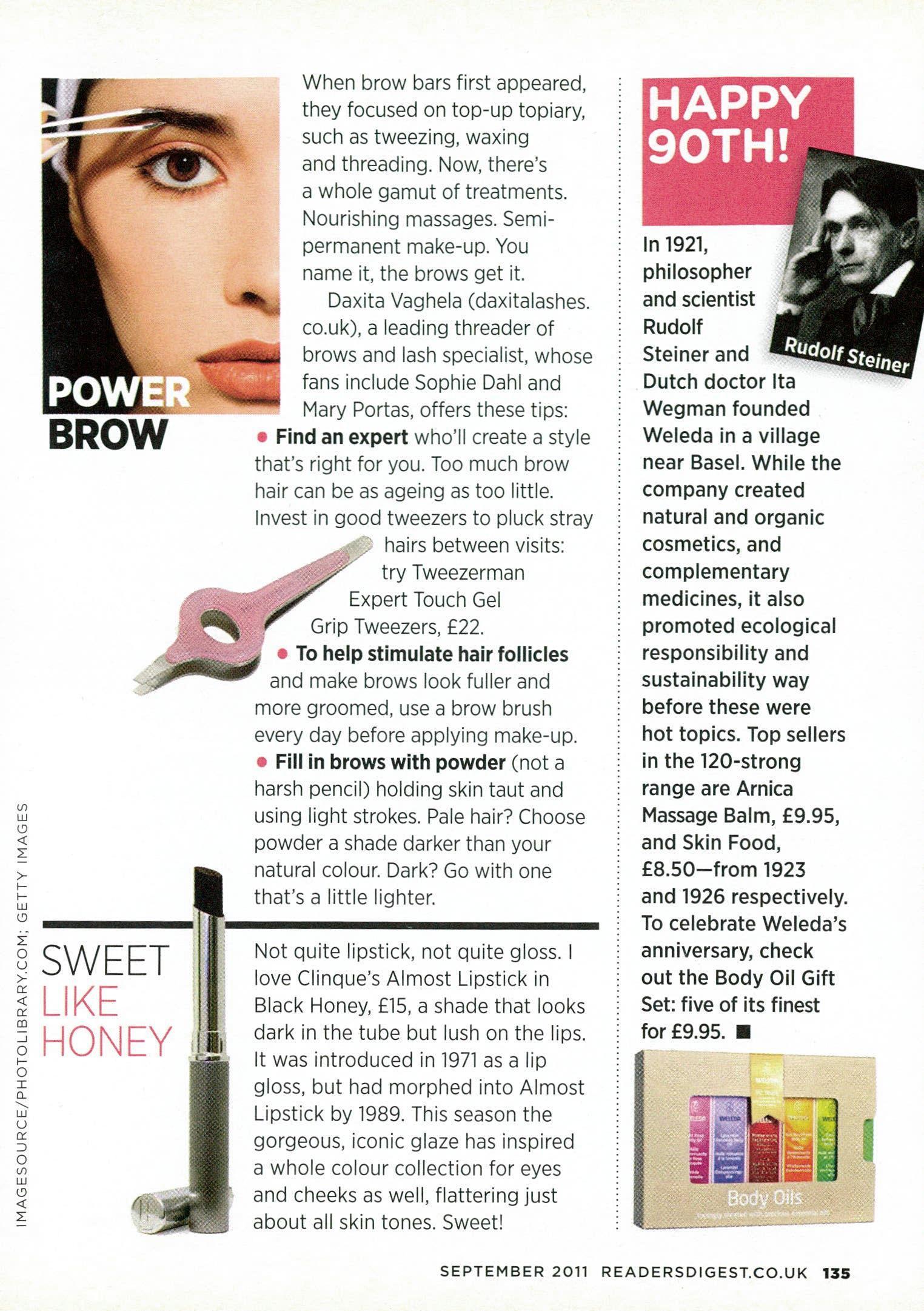
brows and lash specialist, whose fans include Sophie Dahl and Mary Portas, offers these tips:
• Find an expert who'll create a style that's right for you. Too much brow hair can be as ageing as too little. Invest in good tweezers to pluck stray hairs between visits:
-". try Tweezerman Expert Touch Gel 444k ,FGrip Tweezers, £22.
• To help stimulate hair follicles 100111/110 ' and make brows look fuller and more groomed, use a brow brush every day before applying make-up.
• Fill in brows with powder (not a harsh pencil) holding skin taut and using light strokes. Pale hair? Choose powder a shade darker than your natural colour. Dark? Go with one that's a little lighter.
Not quite lipstick, not quite gloss. I love Clinque's Almost Lipstick in Black Honey, £15, a shade that looks dark in the tube but lush on the lips. It was introduced in 1971 as a lip gloss, but had morphed into Almost Lipstick by 1989. This season the gorgeous, iconic glaze has inspired a whole colour collection for eyes and cheeks as well, flattering just about all skin tones. Sweet!
In 1921, philosopher and scientist Rudolf Steiner and Dutch doctor Ita Wegman founded Weleda in a village near Basel. While the company created natural and organic cosmetics, and complementary medicines, it also promoted ecological responsibility and sustainability way before these were hot topics. Top sellers in the 120-strong range are Arnica Massage Balm, £9.95, and Skin Food, £8.50—from 1923 and 1926 respectively. To celebrate Weleda's anniversary, check out the Body Oil Gift Set: five of its finest for £9.95. •
SPLASHING OUT
What you spend today will cost you in retirement—but should you care?
Short of a buck? Why not invent something? And remember, even if you're not the creative type, it's always possible to patent something you know and love.
In 2000, for example, the US patent office granted patent number 6080436 to a "bread refreshing method". There was only one problem for the would-be inventor. The result was already pretty well-known to the world as toast—which makes the collection of any moneys owing rather hard to enforce.
Sadly, the same difficulty might well apply to my own idea for a "body refreshing breakfast proposition"—otherwise known as coffee. Personally, I can't imagine facing the day without it. But, again from America, there's now an iPhone app made by Putnam with
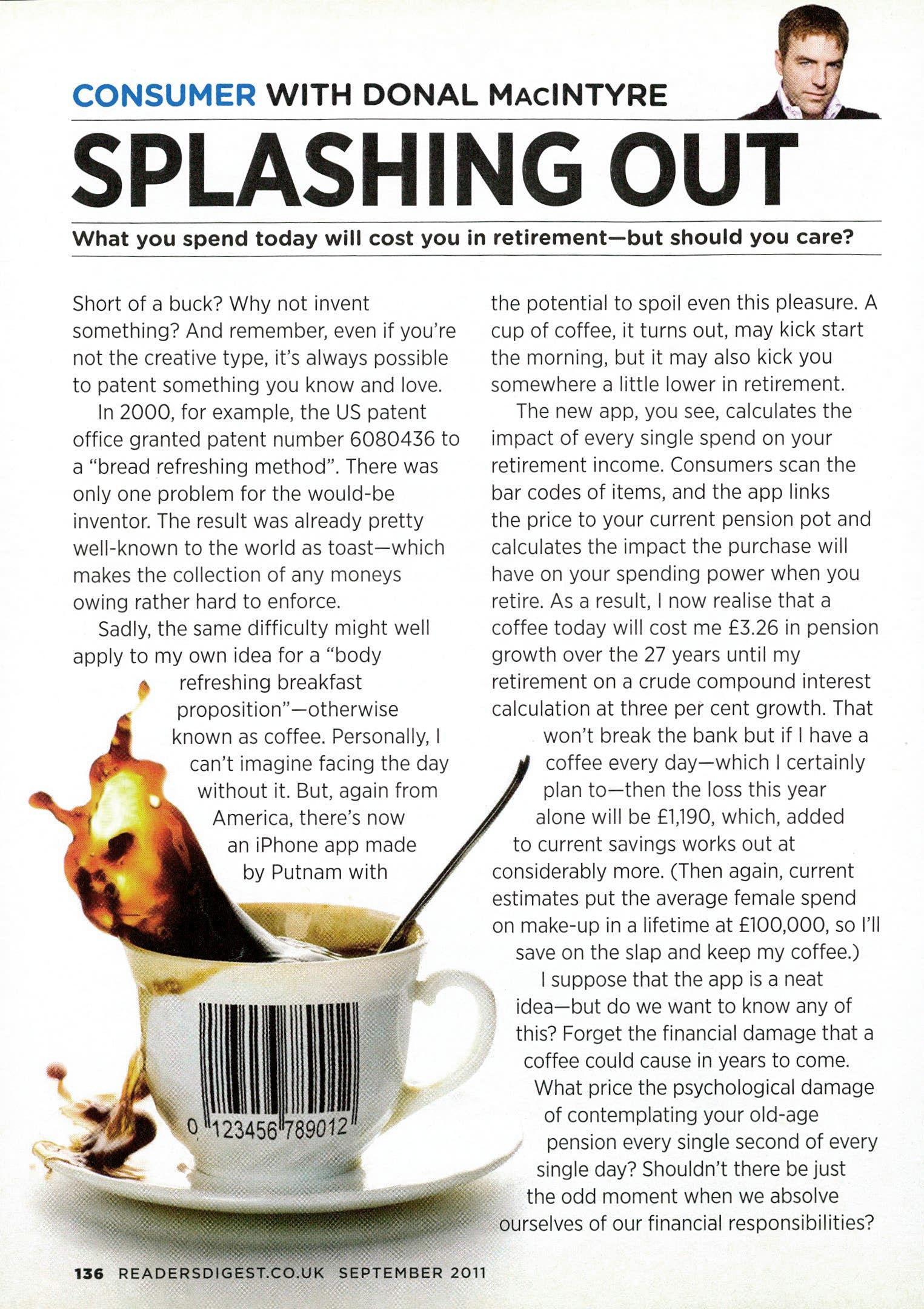
the potential to spoil even this pleasure. A cup of coffee, it turns out, may kick start the morning, but it may also kick you somewhere a little lower in retirement.
The new app, you see, calculates the impact of every single spend on your retirement income. Consumers scan the bar codes of items, and the app links the price to your current pension pot and calculates the impact the purchase will have on your spending power when you retire. As a result, I now realise that a coffee today will cost me £3.26 in pension growth over the 27 years until my retirement on a crude compound interest calculation at three per cent growth. That won't break the bank but if I have a coffee every day—which I certainly plan to—then the loss this year alone will be £1,190, which, added to current savings works out at considerably more. (Then again, current estimates put the average female spend on make-up in a lifetime at £100,000, so I'll save on the slap and keep my coffee.)
I suppose that the app is a neat idea—but do we want to know any of this? Forget the financial damage that a coffee could cause in years to come. What price the psychological damage of contemplating your old-age pension every single second of every single day? Shouldn't there be just the odd moment when we absolve ourselves of our financial responsibilities?
IF YOU DON'T ASK...
Donal answers your questions. Please email queries to excerpts @readers digest. co.uk
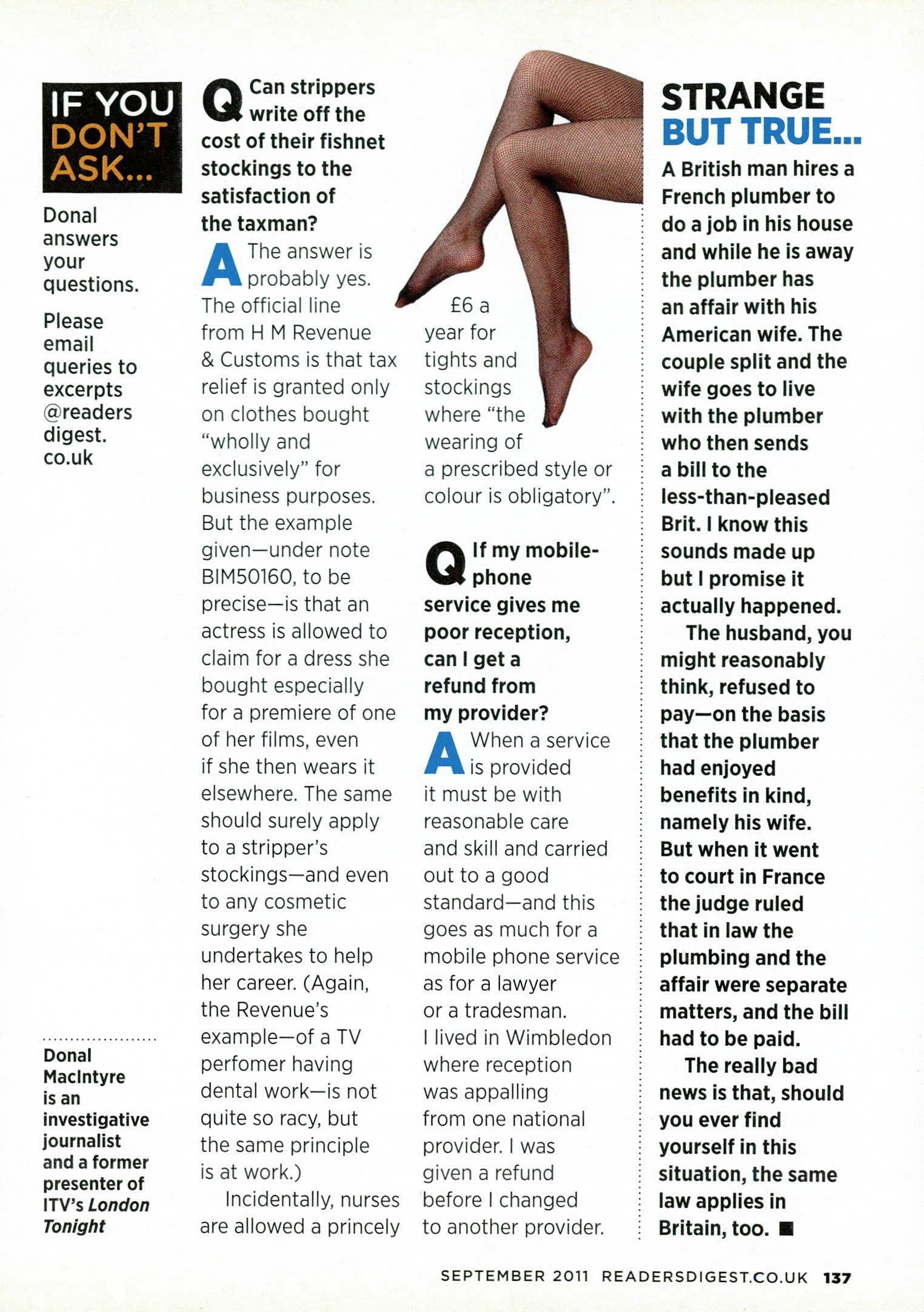
Donal Maclntyre is an investigative journalist and a former presenter of iiv's London Tonight
Can strippers write off the cost of their fishnet stockings to the satisfaction of the taxman?
AThe answer is probably yes. The official line from H M Revenue & Customs is that tax relief is granted only on clothes bought "wholly and exclusively" for business purposes. But the example given—under note BIM50160, to be precise—is that an actress is allowed to claim for a dress she bought especially for a premiere of one of her films, even if she then wears it elsewhere. The same should surely apply to a stripper's stockings—and even to any cosmetic surgery she undertakes to help her career. (Again, the Revenue's example—of a TV perfomer having dental work—is not quite so racy, but the same principle is at work.)
Incidentally, nurses are allowed a princely
£6 a year for tights and stockings where "the wearing of a prescribed style or colour is obligatory".
QIf my mobilephone service gives me poor reception, can I get a refund from my provider?
AWhen a service is provided it must be with reasonable care and skill and carried out to a good standard—and this goes as much for a mobile phone service as for a lawyer or a tradesman. I lived in Wimbledon where reception was appalling from one national provider. I was given a refund before I changed to another provider.
STRANGE BUT TRUE...
A British man hires a French plumber to do a job in his house and while he is away the plumber has an affair with his American wife. The couple split and the wife goes to live with the plumber who then sends a bill to the less-than-pleased Brit. I know this sounds made up but I promise it actually happened.
The husband, you might reasonably think, refused to pay—on the basis that the plumber had enjoyed benefits in kind, namely his wife. But when it went to court in France the judge ruled that in law the plumbing and the affair were separate matters, and the bill had to be paid.
The really bad news is that, should you ever find yourself in this situation, the same law applies in Britain, too. ■
MONEY WITH JASMINE BIRTLES
SOCIAL LENDING
A lucrative alternative to the small returns offered up by faceless banks
Would you like to make an average of 7% on your savings? Who wouldn't in these times of high inflation and low savings rates?
None of the traditional savings vehicles offer even close to that rate. However, there's a new type of savings account on the block that can offer this amount, or even more if you're willing to take a chance.
It's called "social
"Sorry, kids you don't fit my preferred borrower profile" lending" and there are currently four websites that offer the service:
• Zopa.com
• Ratesetters.com
• Yes-secure.com
• Fundingcircle.com
They work rather like building societies did originally. They bring together people who would like to make interest on their money and people who need to borrow money (or in the case of Funding Circle the borrowers are small businesses).
Savers sign up, choose the type of person they would like to lend to and the interest rate they would like to gain. Borrowers join, go through credit
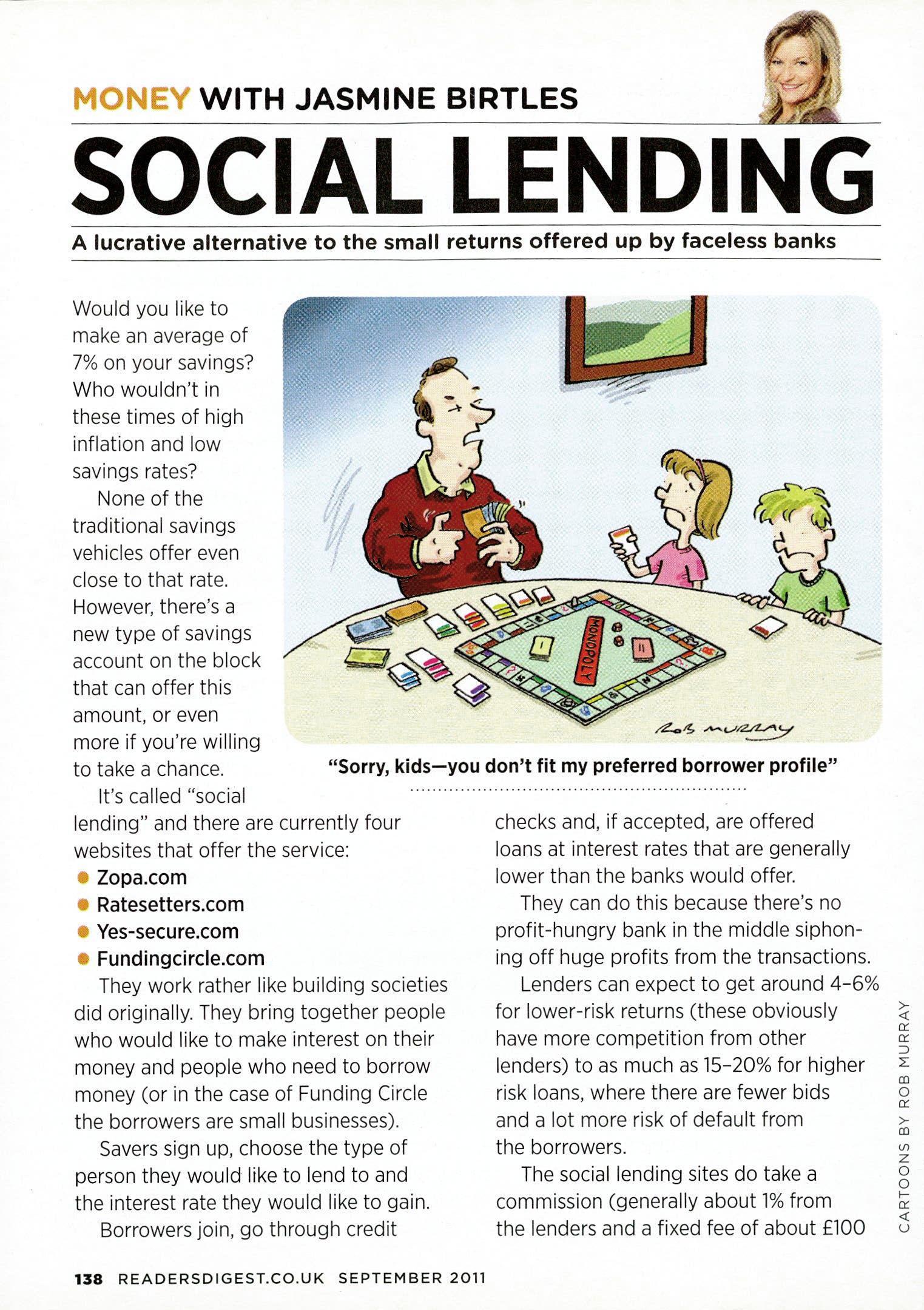
checks and, if accepted, are offered loans at interest rates that are generally lower than the banks would offer.
They can do this because there's no profit-hungry bank in the middle siphoning off huge profits from the transactions. Lenders can expect to get around 4-6% for lower-risk returns (these obviously have more competition from other lenders) to as much as 15-20% for higher risk loans, where there are fewer bids and a lot more risk of default from the borrowers.
The social lending sites do take a commission (generally about 1% from the lenders and a fixed fee of about £100

from the borrowers), but it's a lot lower than the traditional financial institutions. Tax is paid gross and you declare it on your self-assessment form.
The low overheads make it a win-win situation because savers get a good rate on their money while borrowers get a lower-than-average borrowing rate.
IS IT SAFE?
Yes, but it's always possible that some of your borrowers could default. Of course, the higher the interest rate you go for, the riskier the people you are lending to.
But even if one or two do stop paying, you would lose less than £10 for each, as your money is spread around. If you're a lender, no more than £20 of your money goes to any one borrower—and you can cap it at £10 per person. If you lend £500 or more, your money is spread across at least 50 borrowers.
Interestingly, it's been found that far fewer borrowers default on social lending sites than those borrowing from banks and other institutional lenders. It seems that people are less willing to let down other individuals who have loaned to them, than they are faceless banks.
Also, if you join Ratesetters.com, they have a "slush fund" that will recompense you if one of your borrowers defaults.
IS IT FOR YOU?
If you're a little bit adventurous and you have money you're willing to tie up for a year or more (you can get better rates if you're willing to fix for five years), then it's worth giving one of these sites a go.
I've been a social lender for a few years and I'm happy with the returns I've had (including three defaults). But, then, I like to be bold with my money!
SITTING AROUND!
If you have time on your hands and you'd like to make some pocket money for doing very little, get into house-sitting. This involves living in someone's home while they're away, making sure it's safe, clean and tidy—and perhaps also looking after a pet.
House-minding is slightly different, as you don't live in the home, you simply pop in each day to water the plants, pick up the post, and make sure there are no obvious signs that the house is unoccupied.
WOULD IT SUIT YOU?
House-sitting duties vary, but if your clients want you at home during the day, it will help if you're retired, or a
student with limited hours at university. House-sitters must also be fit and active enough to maintain a house and look after pets, and happy in their own company, because they're unlikely to be able to invite guests to the client's home (except sometimes a partner, by agreement).
FINDING WORK
Agencies such as Homesitters or Mrs Hunt's Agency will do the legwork for you when it comes to finding jobs. They provide help, support, and a written agreement between you and the client.
Long-term house-minders usually earn about £9.50 a day, plus food and travel allowances.
Short-term house-sitters earn between £8 and £10 an hour.
If you're an entrepreneurial
sort, you could go out on your own and advertise your services directly to potential clients. The fees you can charge vary from £10 to £90 a day. If there are a lot of pets, don't under-price your services. Remember it costs at least £10 a day to put a cat or dog into kennels.
THIS MONTH'S BARGAIN
Sign up at AlertMe.com this month and you'll get a lifetime of free energy monitoring (usually £1.99 a month) and a free display screen (usually £29.99). You do have to buy the AlertMe energy monitor for £49.99, but this one-off purchase will let you see how much electricity you're using every hour to help you cut down your bills.
SHOULD

Gold has reached even more staggering heights this year— worries about debt crises in western countries and instability in the Middle East have seen investors rushing for the save haven of the pretty yellow metal. So should you be investing in it, or even selling the gold you have to make some extra cash now?
GOLD PRICES
4,3
"I
don't know why we never had your cousin Midas round before"
There's no guarantee that the price of gold will rise—this could easily be a bubble. However, as gold does tend to go up in price during periods of fear and uncertainty, there's every chance that it will continue to rise over the
next few years. The current political and financial upheavals are likely to convulse the markets for some time yet.
HOW TO ENVEST
There are various ways you can invest in gold. Gold bullion: The easiest way is
JARGON BUSTER: DEBT RESTRUCTURING
This is a process than enables a company, or a country like Greece, facing financial problems to reduce and renegotiate its debt obligations. It buys time and reduces the repayment burden to help the company or country continue its operations and, hopefully, start making a profit again.
to buy gold coins, bars, jewellery or other products. The main downside is safe storage. You can keep it at home in a safe, or some dealers or banks will keep it in a vault on your behalf. For a full list of reputable dealers, try the World Gold Council.
Exchange-Traded Funds
(ETFs): With gold ETFs, you don't own any actual gold, but you invest in the gold market. You're investing in a commodity as you would with oil, zinc or steel. ETFs track the price of gold—they're traded on the stock market, and can be bought through a stockbroker. They're cheap and often work quite well. Gold stocks: These are generally shares in gold-mining companies. As the price of gold rises, share prices in mining companies could also increase —but there are many other factors that affect the price of shares, so don't simply assume that because gold is high, mining stocks are also high.
HOW TO SELL YOUR GOLD
If you would like to cash in on your old gold earrings or even those old gold teeth your gran left you (I), the best way is to travel to Hatton Garden in London and visit a few of the gold dealers there. Play them off against each other to get the very best price you can. Failing that, try some local
high-street jewellers (ideally independent retailers) to see what they'll offer. Remember that there's a difference between the price of a well-crafted item of gold jewellery and the simple price per weight of the gold. It could be that your piece is worth more as an item of jewellery than just for its gold content. What you should not do is send your gold items to one of the postal gold services that have been aggressively advertising themselves in the media. The prices they offer for gold are among the worst rates on the market. One way of making money with your friends is to host a gold-selling party. Ounces2Pounds.co.uk runs gold-selling parties in people's homes. They send a representative to your party to value your and your friends' gold. They give you some money to cover drinks and food and 10% of the total payout (they claim the average host makes £350 per party).
DID YOU KNOW...
The total amount of gold in the world is 168,180 tons. Its total value is $8,668,682,852,986. The value of the world's gold per person is $1,295. The UK has 310.3 tons of gold reserves, which ranks it 16th in the world for gold holdings.
THE ONE HIN
• THIS ONTH.
Have a clear-outand make some cash! September is a good time to clear out junk, so put clothes, equipment, accessories, etc, onto eBay or sell
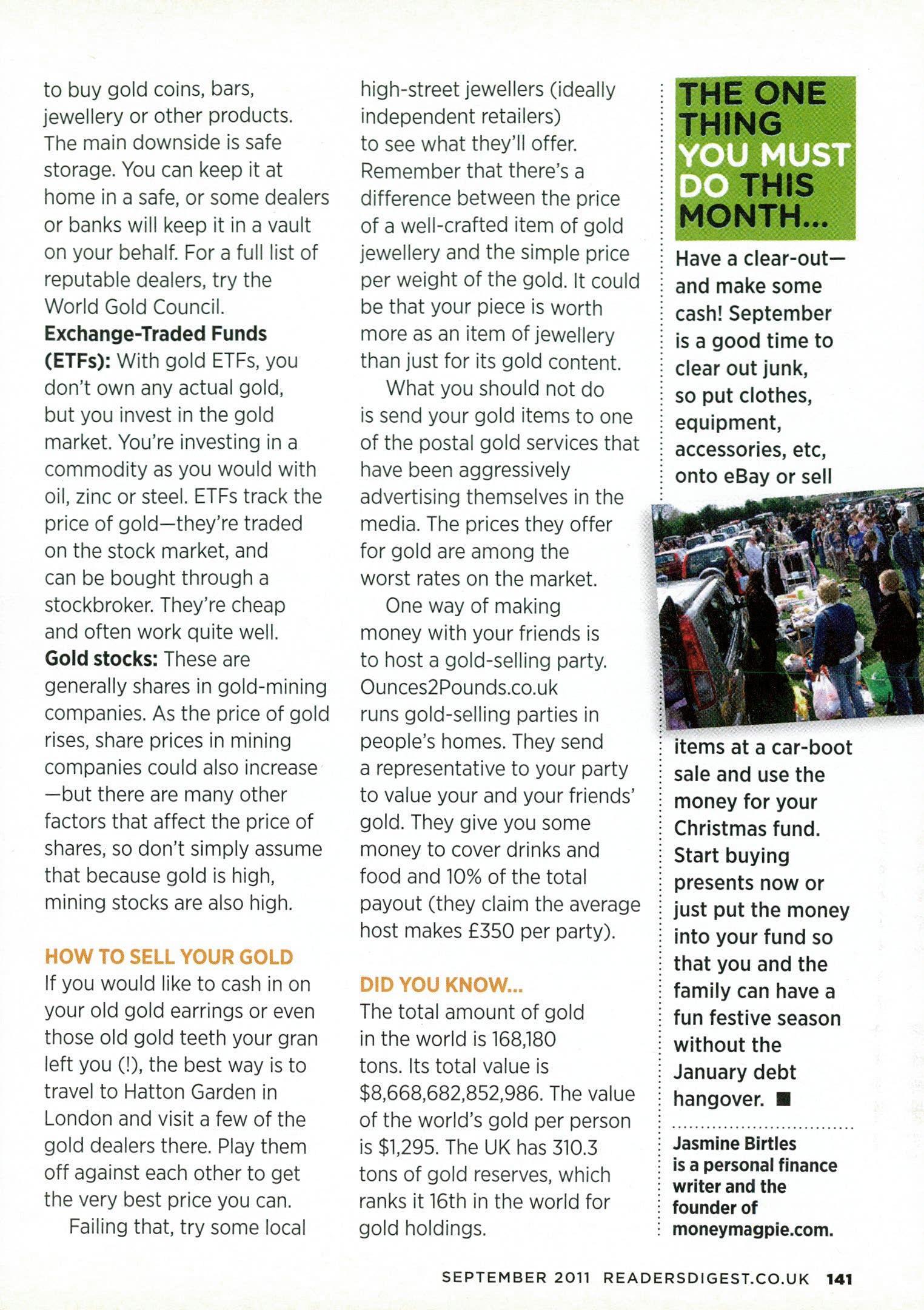
items at a car-boot sale and use the money for your Christmas fund. Start buying presents now or just put the money into your fund so that you and the family can have a fun festive season without the January debt hangover. ■ Jasmine Birtles is a personal finance writer and the founder of moneymagpie.com.
FOOD WITH MARCO PIERRE WHITE
FORAGING FUN
Scour your local woodlands for the culinary gem that is the mushroom
From time to time you read something about all the things children should experience before reaching adulthood. Sleeping under the stars is normally one of them; making a bonfire is another. I'd like to add a suggestion of my own: picking wild mushrooms, preferably when there's a dew and morning mist, and the sun is struggling to wake up.
Yes, I know you have to be careful about which mushrooms you pick, but it seems to me we're now so careful about everything that we deny ourselves too many of life's natural pleasures. Not only does mushroom picking create a beautiful and lasting memory, but it also helps teach children how things grow and what's good for them.
This simple, smart and wholesome recipe recommends girolles, but any mushrooms will do. It's a perfect September dish—not too heavy, and you can season it up or down according to your preference. I'd recommend serving it with a rocket salad, preferably from leaves you have grown yourself. Sprinkle over some olive oil and a dash of lemon, open a bottle of crisp white wine and make a toast to September—that quirky transitional month where we don't quite know if we're meant to look back or forward. So just enjoy the present.
Marco Pierre White, the "godfather" of modern British cooking, is a restaurateur and TV personality.
PRAWNS WITH WHISKY & GIROLLES
(serves
4)
2 handfuls of girolle mushrooms
Extra-virgin olive oil
15-20 large prawns
A splash of whisky
A splash of Knorr concentrated chicken stock
A knob of unsalted butter
Fresh herbs of your choice, to garnish Maldon sea salt and black pepper
1 Finely slice the girolles, keeping the shape of the mushrooms.
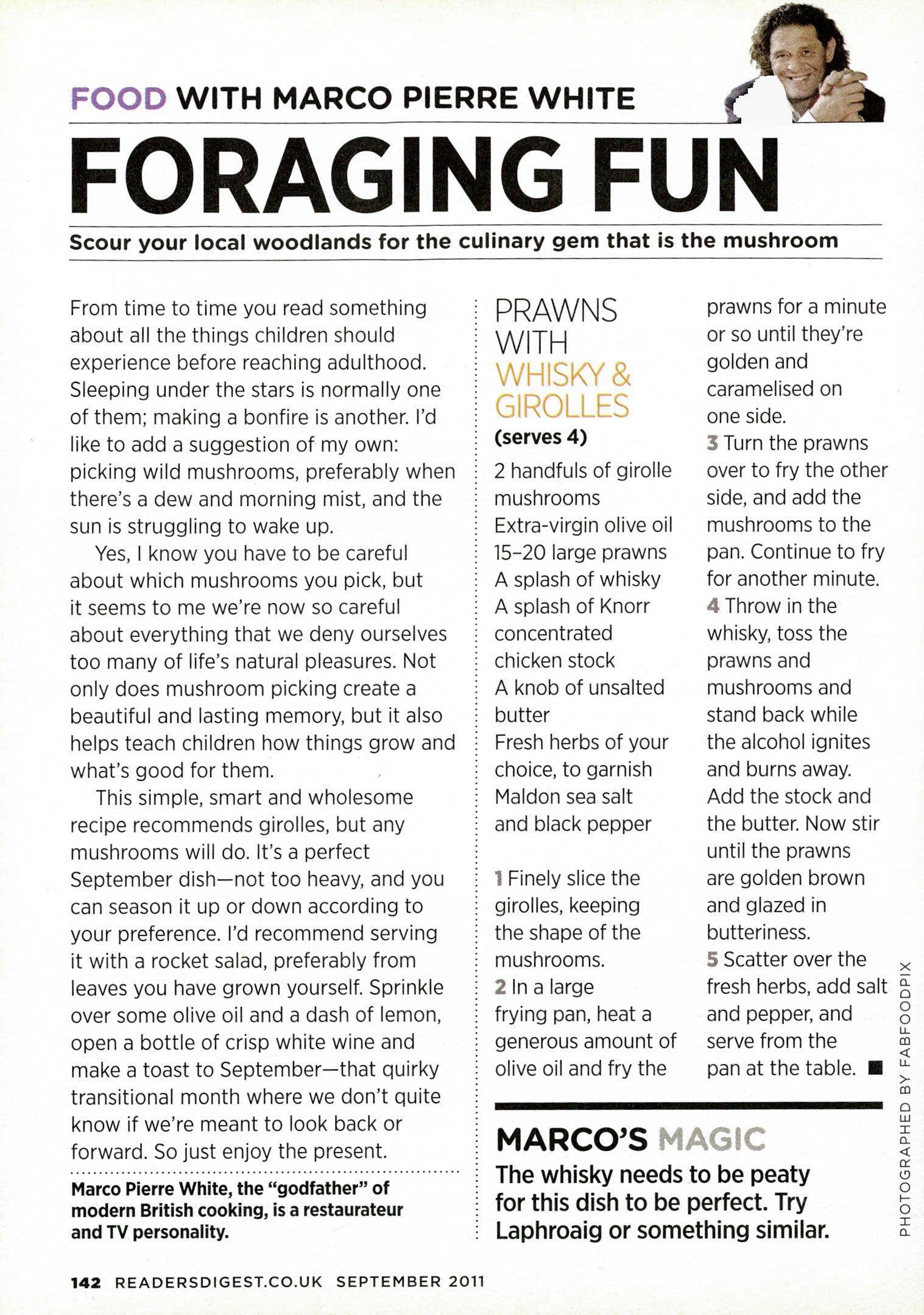
3Turn the prawns over to fry the other side, and add the mushrooms to the pan. Continue to fry for another minute.
4Throw in the whisky, toss the prawns and mushrooms and stand back while the alcohol ignites and burns away. Add the stock and the butter. Now stir until the prawns are golden brown and glazed in butteriness.
2 In a large frying pan, heat a generous amount of olive oil and fry the prawns for a minute or so until they're golden and caramelised on one side.
5 Scatter over the x fresh herbs, add salt and pepper, and 8 serve from the 02 pan at the table. ■ t` cc,
MARCO'S
The whisky needs to be peaty for this dish to be perfect. Try Laphroaig or something similar.
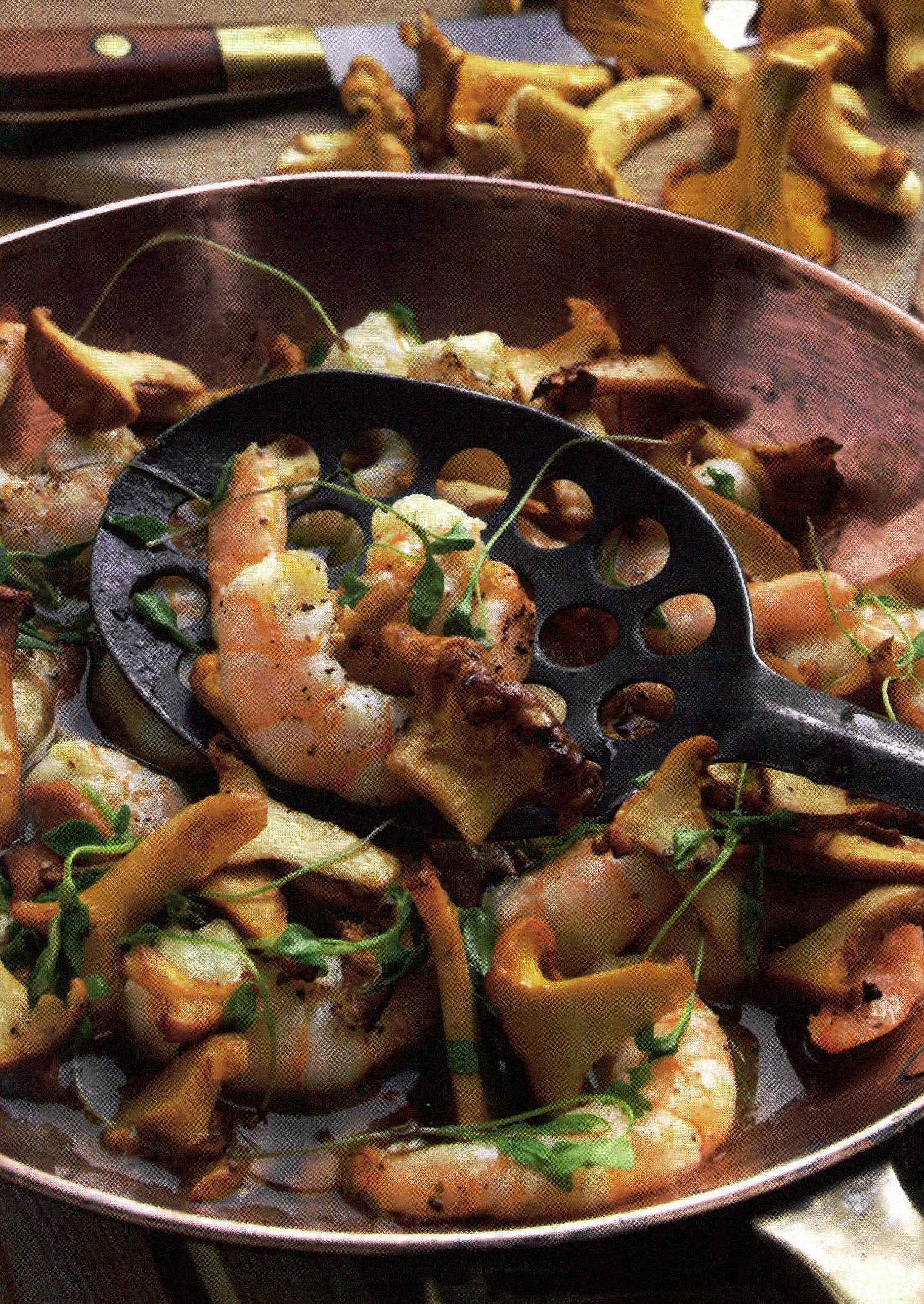
DRINK WITH NIGEL BARDEN
A MUG'S GAME
An explosion of new teas has hit the market—here are some of the best
Tea's up—and so are its sales, thanks to plenty of new kids on the tea block: since 2006, sales of herbal infusions have risen 16% and green tea by a whopping 65%.
Five years ago, we couldn't even say rooibos (roy-bos), let alone know it's a caffeine-free tea from a South African bush grown only on the slopes of the Cederberg Mountains. Back there it's famed for its anti-ageing and healthprotecting qualities; we like its earthy tea-like taste—with or without milk.
Companies like teapigs (with their organic ingredients in biodegradable, cornstarch bags) produce a rooibos crème caramel, alongside lemon and ginger, and liquorice and peppermint. The stomachsettling liquorice is also available from Clipper Teas, as are teas with the antioxidant "superfood" berries acai and aronia. Try Clipper's
soothing lemon balm and manuka honey, and nettle, which might even help relieve the symptoms of hay fever. Teas of the moment?
Rooibos espresso and organic matcha green tea (the meditation elixir of Buddhist monks), for a real Zen teatime experience—if you skip the cream buns...
MAKE MINE A...
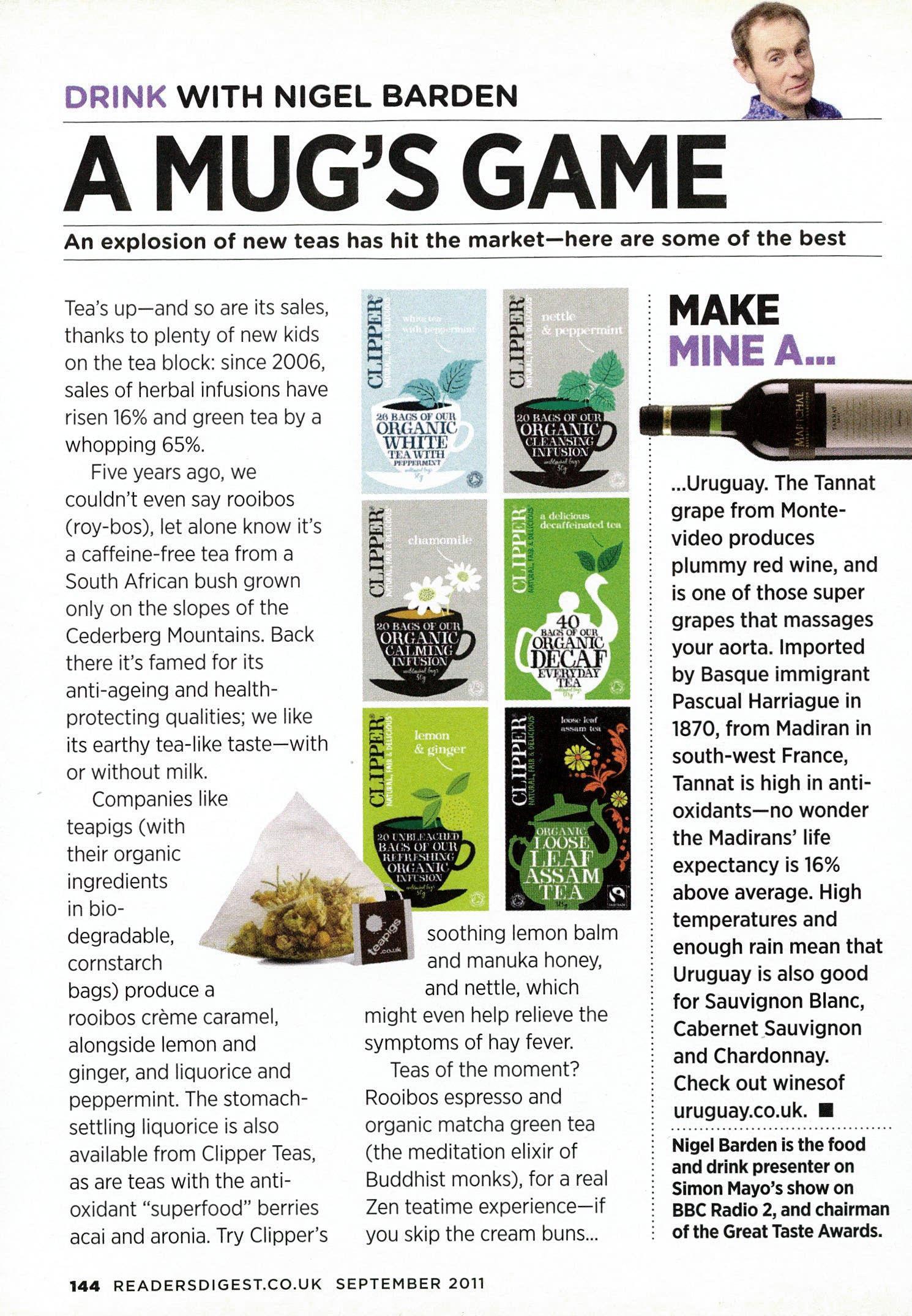
...Uruguay. The Tannat grape from Montevideo produces plummy red wine, and is one of those super grapes that massages your aorta. Imported by Basque immigrant Pascual Harriague in 1870, from Madiran in south-west France, Tannat is high in antioxidants—no wonder the Madirans' life expectancy is 16% above average. High temperatures and enough rain mean that Uruguay is also good for Sauvignon Blanc, Cabernet Sauvignon and Chardonnay. Check out winesof uruguay.co.uk. • Nigel Barden is thefood and drink presenter on Simon Mayo's show on BBC Radio 2, and chairman of the Great Taste Awards.
0-0be40
4,44q-*,4 ou
ot.

• EXCLUSIVE products
100s of exciting items you won't find anwhere else
• AMAZING choice and there's more added every single day
• BEAT the crowd discover fantastic new products, exclusive competitions, big cash prizes, all in our regular e-newsletter
• CASH prizes
Play to win our online bingo - and get £30 when you deposit £10
THE INDOOR TYPE
Those dusty plants in the corner need maximum TLC
QHelp! I keep killing house plants. What are the toughest ones and how can I keep them living longer?
AThe Swiss Cheese, Spider, Friendship and rubber plants, along with Motherin-law's Tongue and aspidistras, are all pretty tough survivors. Even so, you may need to improve your care routine a little. Place plants where they get maximum light— they'll fade in very dark places. Water regularly—much less in winter and more often in summer—but never let them stand in water, as plants can drown. Don't shut them next to cold windows with the curtains closed because they might freeze.
A couple of drops of commercial plant food can be -added to their water every so often, but

never very much at a time. As they grow, move them into slightly bigger containers with proper potting compost—don't use garden soil or anything else. Occasionally wipe their leaves with a damp cloth to remove dust.
WHAT A WASTE!
I've diligently put my compostable household and garden waste into a compost bin supplied by my local council. It's now full, although it's taken several years because I live on my own and have atiny garden. Now what?
ATry—with some help, if necessary—to lift the bin off and leave the contents standing. The bin can then be stood alongside and filled again. (If it can't be lifted off, then empty it out onto a
plastic sheet, keeping the top and bottom contents separate.) Partly refill the bin with the top third or so of the old stuff, as this will only be partly composted, but the bottom two-thirds or half should be well broken down—you should be able to tell by just looking at it.
This well-rotted material is best spread around perennial plants, then forked into the topsoil. It can also be mixed into the soil of planting holes for new plants, or used for filling the bottom half of big pots and containers, then topped off with proper potting compost. Or you could offer it to someone with an allotment or vegetable plot, who would probably gladly do the job for you in return for such valuable material.
GETTING TO THE ROOT
My friends disagree as to whether I need to dig up my dahlia tubers and store them in my garage over winteror just leave themin the ground. What do you do?
AWell, it depends. If you have mostly inexpensive and common varieties, a light dry soil, and we have a mild winter, then leaving them in the ground would work well and is less effort. But if they're expensive, you have a heavy wet soil, or we have another very hard winter, then it'd be safer to keep them well dried off in a garage. Perhaps the best advice would be to treat alternate plants both ways— then you're covered whatever happens.
Bob Flowerdew is an organic gardener and a regular on BBC Radio 4's Gardeners' Question Time. Send your gardening questions to Bob at excerpts@readersdigest.co.uk.
Time to prepare summer cabbages for the cold. Tender and potatoes, plants like lemons though most other need bringing brassicas, roots under cover. Some (such as carrots bedding plants, and parsnips) and such as petunias, leeks can be left. pelargoniums Keep cutting and fuchsias, may your grass but raise be worth digging the mowing height up, potting and to leave a longer bringing indoors. sward—it'll stand Dig and store the winter better.
READER'S TIP
A vase of tulips is a lovely sight, but, as we know, they tend to bend towards the light. A good solution is to put a mirror behind the vase —it will confuse the tulips and encourage them to stay upright.
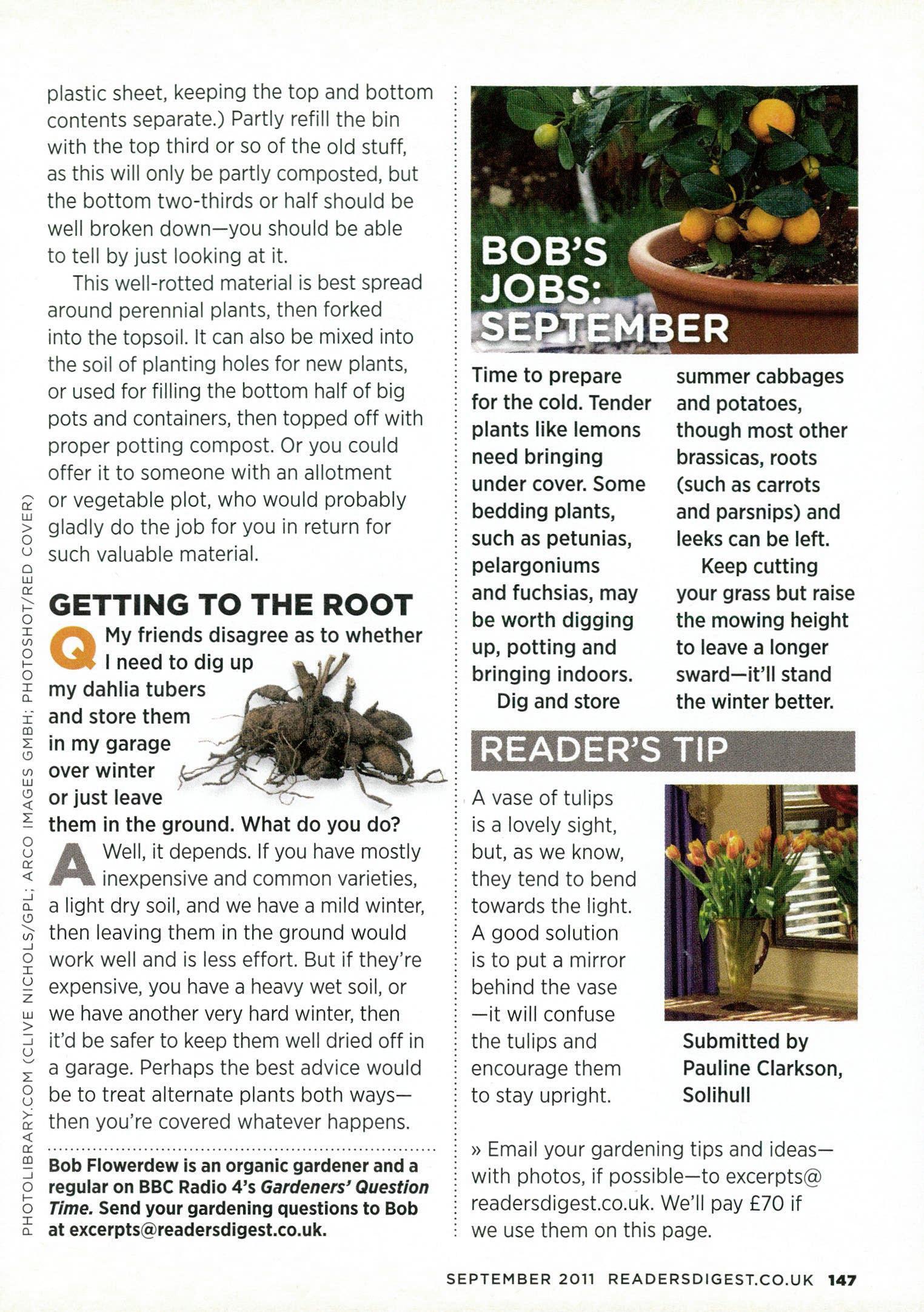 Submitted by Pauline Clarkson, Solihull
Submitted by Pauline Clarkson, Solihull
> Email your gardening tips and ideas— with photos, if possible—to excerpts@ readersdigest.co.uk. We'll pay £70 if we use them on this page.
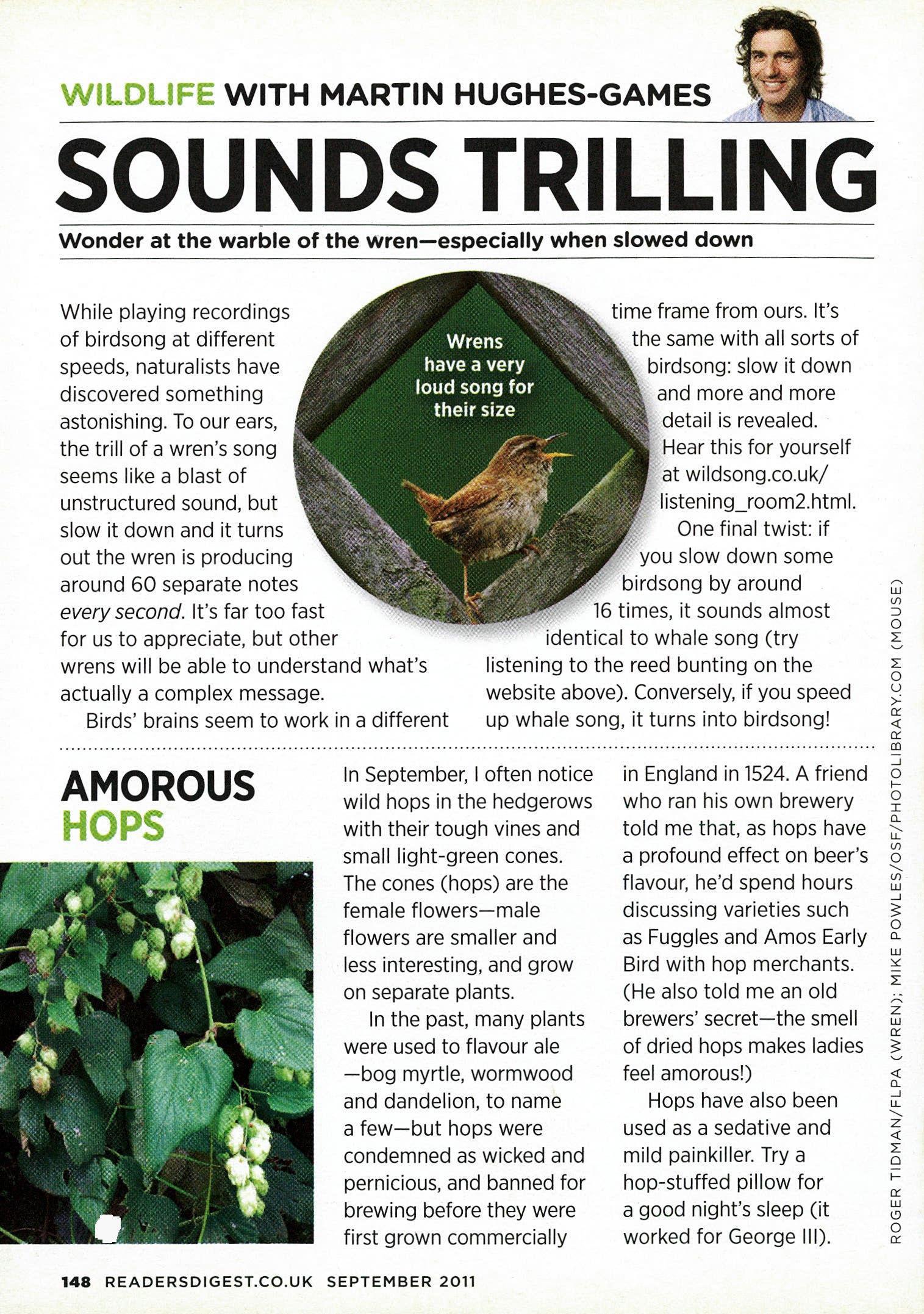
MARTIN HUGHES-GAMES
SOUNDS TRILLING
Wonder at the warble of the wren—especially when slowed down
While playing recordings of birdsong at different speeds, naturalists have discovered something astonishing. To our ears, the trill of a wren's song seems like a blast of unstructured sound, but slow it down and it turns out the wren is producing around 60 separate notes every second. It's far too fast for us to appreciate, but other wrens will be able to understand what's actually a complex message.
AMOROUS inueS WITH
Wrens have a very loud song for their size
Birds' brains seem to work in a different
time frame from ours. It's the same with all sorts of birdsong: slow it down and more and more detail is revealed. Hear this for yourself at wildsong.co.uk/ listening_room2.html.
One final twist: if you slow down some birdsong by around 16 times, it sounds almost identical to whale song (try listening to the reed bunting on the website above). Conversely, if you speed up whale song, it turns into birdsong!
In September, I often notice wild hops in the hedgerows with their tough vines and small light-green cones. The cones (hops) are the female flowers—male flowers are smaller and less interesting, and grow on separate plants.
In the past, many plants were used to flavour ale —bog myrtle, wormwood and dandelion, to name a few—but hops were condemned as wicked and pernicious, and banned for brewing before they were first grown commercially
in England in 1524. A friend who ran his own brewery told me that, as hops have a profound effect on beer's flavour, he'd spend hours discussing varieties such as Fuggles and Amos Early Bird with hop merchants. (He also told me an old brewers' secret—the smell of dried hops makes ladies feel amorous!)
Hops have also been used as a sedative and mild painkiller. Try a hop-stuffed pillow for a good night's sleep (it worked for George III).
A TALL TAIL
Weighing just eight grams, the harvest mouse is our smallest rodent. Its a lovely russet brown with creamy underparts and the only mouse with a "prehensile" tail, which it uses like a fifth limb to wrap around grass stems and twigs. Surprisingly, harvest mice were not known as a separate species until 1789, when Gilbert White wrote about them in The Natural History of Selborne. White noted that harvest mice made a cricket-ballsized nest of shredded grass well above the ground, attached high up in straws of corn. He got hold of one of the nests and said it was so well made he could roll it across a table without it falling to pieces, despite containing eight baby mice! I wrote a thesis about harvest mice as an undergraduate, and all the time I handled them they never tried to bite me—unlike the field mice, and especially the blasted voles! I have a soft spot for these beautiful little animals. If you're out for a walk this month, look out for the intricately woven nests in grass stems around the edges of fields—they'll be turning brown, so becoming increasingly obvious as autumn draws on. ■
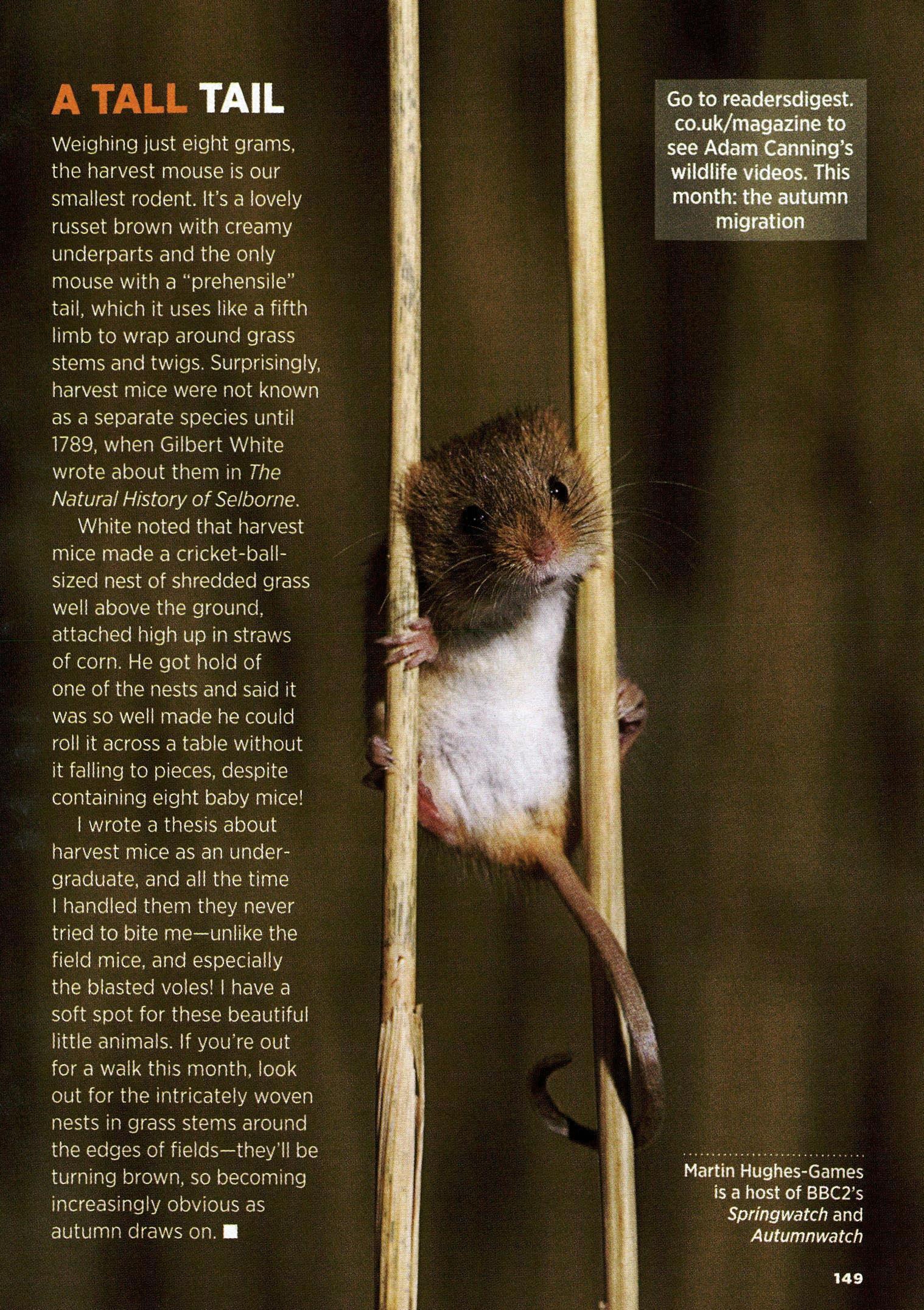
Go to readersdigest. co.uk/magazine to see Adam Canning's wildlife videos. This month: the autumn migration
Martin Hughes-Games is a host of BBC2's Spring watch and AutumnwatchDIGITAL WITH MARTHA LANE FOX
LOG ON FOR LOVE
Meeting your match—the unstoppable rise of internet dating
Question: What do Joan Rivers, Halle Berry and Jennifer Aniston have in common? Answer: All of them have looked for love online.
Long gone are the days when you could dismiss online dating as a hunting ground for the desperate. Huge numbers are hitting the web looking for romance these days:
two-thirds of British singles have tried online sites, and websites now come third—after work and friends—as the most common way to meet people.
Match.com, with seven million members, is the UK's largest dating website.
Beyond our shores, however,
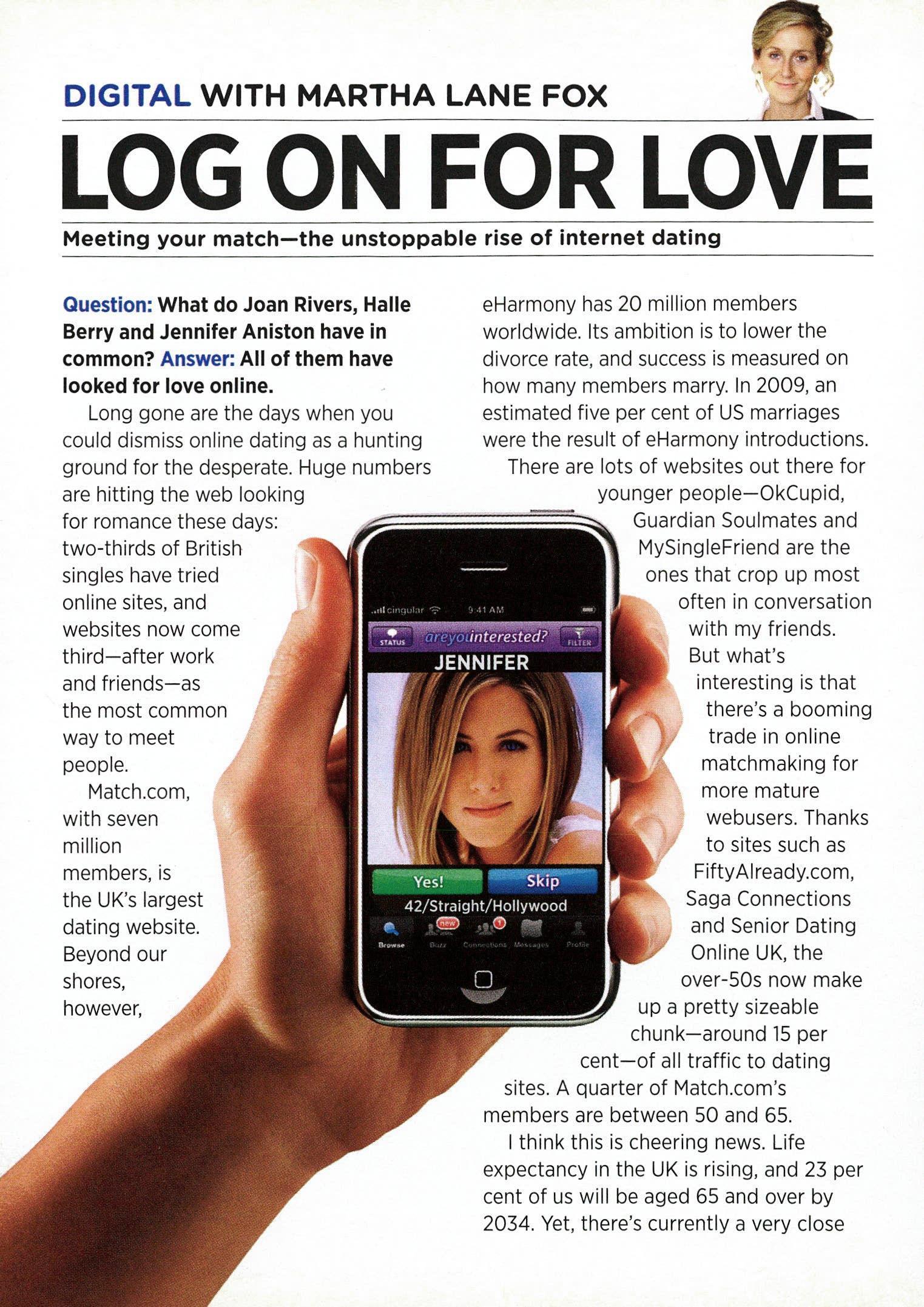
eHarmony has 20 million members worldwide. Its ambition is to lower the divorce rate, and success is measured on how many members marry. In 2009, an estimated five per cent of US marriages were the result of eHarmony introductions.
es! Skip 42/Straight/Hollywood (1)There are lots of websites out there for younger people—OkCupid, Guardian Soulmates and MySingleFriend are the ones that crop up most often in conversation with my friends. But what's interesting is that there's a booming trade in online matchmaking for more mature webusers. Thanks to sites such as FiftyAlready.com, Saga Connections and Senior Dating Online UK, the over-50s now make up a pretty sizeable
chunk—around 15 per cent—of all traffic to dating sites. A quarter of Match.com's members are between 50 and 65.
I think this is cheering news. Life expectancy in the UK is rising, and 23 per cent of us will be aged 65 and over by 2034. Yet, there's currently a very close
and sad link between age and isolation. Around 3.1 million over-65s can sometimes spend more than a week without seeing a neighbour, friend or family member. A staggering 1.8 million can go more than a month. Isolation is now thought to pose a bigger threat to health than smoking—so this is important stuff.
When you think about it, the web enables and underpins almost all our socialising these days—whether sending a simple email to fix a birthday drink, giving out invitations via Facebook or calling loved ones on Skype. It's also a brilliant tool for making new friends, and that doesn't have to mean getting flirty on the personal sites. You can use it to get in touch with people who share your interests, hobbies or even local bugbears.
But back to those lonely hearts... ScientificMatch pairs people by DNA. Apparently this makes for more female orgasms. Or if you're rich as Croesus, and want to meet someone with pockets just as deep, head for Meetingmillionaires.com. Golddiggers beware, though: they do check your bank balance before they let you loose on the minted singletons. There's something for everyone online, from Wine Lover's Match to Dating4disabled.
Most sites use a combination of quizzes and software that monitor and predict patterns of behaviour, called "algorithms". This allows them to match you with people you'll be genuinely compatible with, as opposed to those whose profile pic you like the look of. Most, except PlentyofFish and OkCupid, charge a subscription or fee.
I tried to set up my own dating business when I was 15 and at school because I was curious to see who my friends fancied. It was a long and painful process involving lots of pieces of paper. How things have changed!
THE FIRST TIME
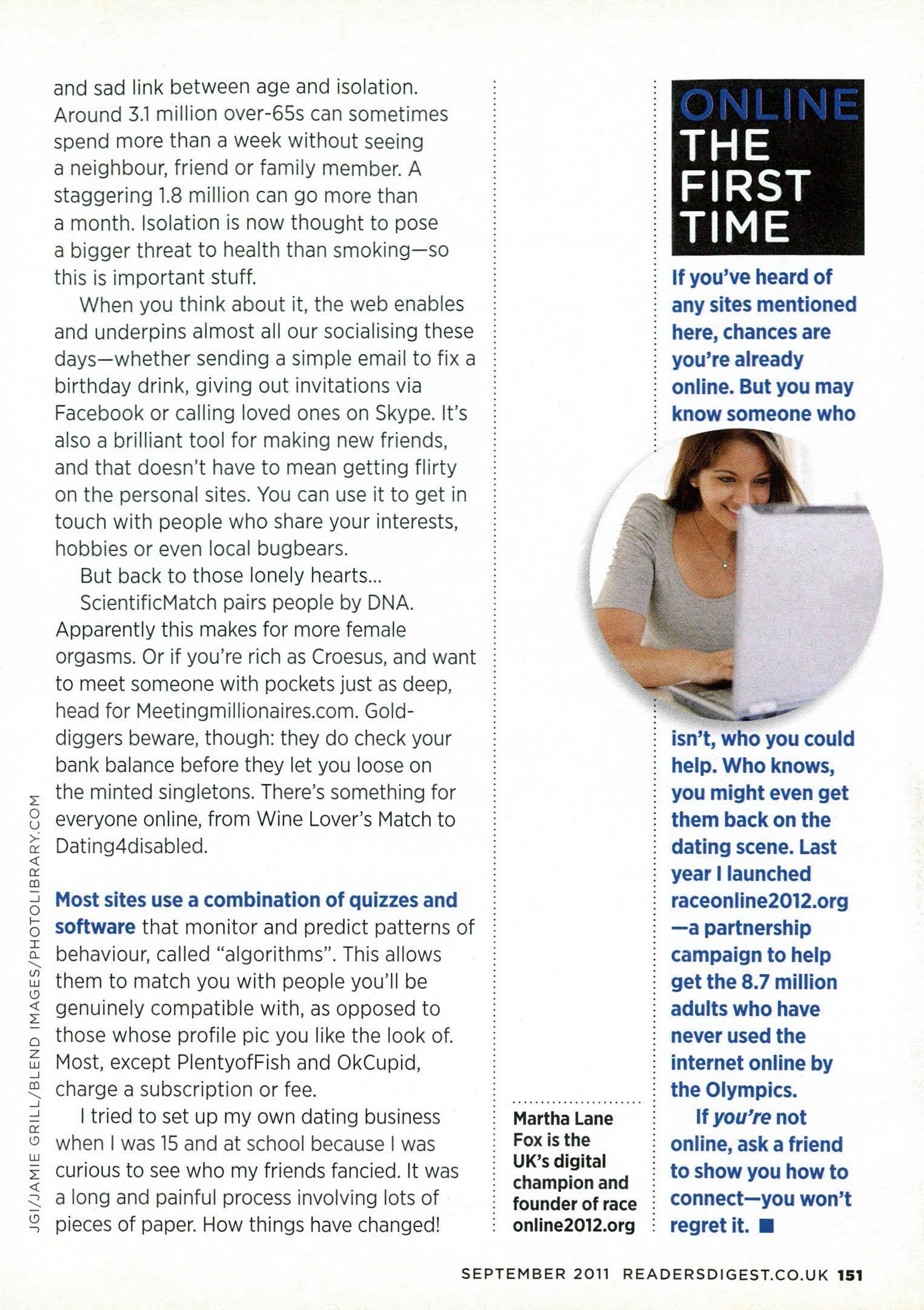 Martha Lane Fox is the UK's digital champion and founder
Martha Lane Fox is the UK's digital champion and founder
of race online2012.org
If you've heard of any sites mentioned here, chances are you're already online. But you may know someone who isn't, who you could help. Who knows, you might even get them back on the dating scene. Last year I launched raceonline2012.org —a partnership campaign to help get the 8.7 million adults who have never used the internet online by the Olympics. If you're not online, ask a friend to show you how to connect—you won't regret it. ■
SHED LOADS
There could be a vintage car waiting to be salvaged in a barn near you
It's Newcastle 2007, and the nephew of reclusive doctor Harold Carr is clearing out his deceased uncle's possessions. He enters the doctor's dusty, old lock-up garage to find three cars: an E-Type Jag, an Aston Martin, and one he doesn't recognise. This third car, stationary since 1960, turns out to be a very rare 1937 Bugatti Type 57S Atalante, one of the most beautiful cars ever made.
Two years later at auction it sells for just under E3m —one of Britain's greatest ever barn finds.
A barn find is the discovery of an important car that's been hidden away for years. Wood and leather usually succumb to mould and insects after a decade or so, but the essentials—made from materials such as metal and glass—can last as long as you can keep the moisture off.
However, Edward Bridger-Stille, auction director at Historics at Brooklands, says there are clearly limits to the number of classics hidden away, "Undiscovered motorcars keep turning up, but I fear the top-end cars are becoming increasingly hard to find. That said, there are still

The dust-covered Bugatti as it was found in a Newcastle garage. Restored, it was sold in France for nearly £3m
particular cars we know of that are missing, so keep your eyes peeled."
A legendary British barn find concerns a Cardiff businessman who, in 1993, bought a Jaguar XK220 supercar. When his company went bust ten years later, liquidators discovered the car bricked up in a secret storeroom. The 200mph car, originally bought for £415,000, sold at auction for just £10,500. Ouch.
That salutary tale aside, you might want to have a quiet nose round your great aunt's garage just in case...
ONE
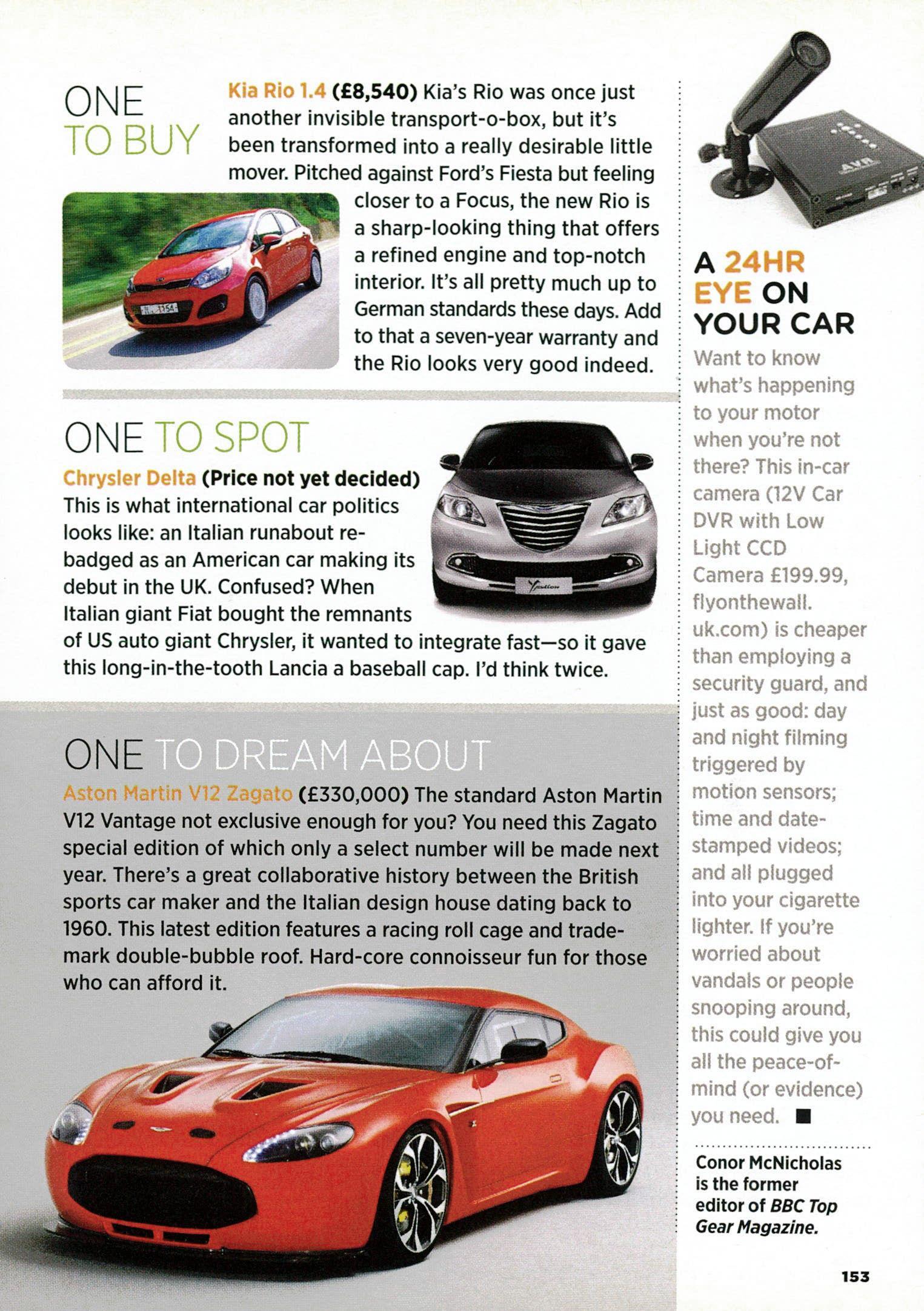
(£8,540) Kia's Rio was once just another invisible transport-o-box, but it's been transformed into a really desirable little mover. Pitched against Ford's Fiesta but feeling closer to a Focus, the new Rio is a sharp-looking thing that offers a refined engine and top-notch interior. It's all pretty much up to German standards these days. Add to that a seven-year warranty and the Rio looks very good indeed.
ONE TO SPOT
Chrysler Delta (Price not yet decided)
This is what international car politics looks like: an Italian runabout rebadged as an American car making its debut in the UK. Confused? When Italian giant Fiat bought the remnants of US auto giant Chrysler, it wanted to integrate fast—so it gave this long-in-the-tooth Lancia a baseball cap. I'd think twice.
ONE
(£330,000) The standard Aston Martin V12 Vantage not exclusive enough for you? You need this Zagato special edition of which only a select number will be made next year. There's a great collaborative history between the British sports car maker and the Italian design house dating back to 1960. This latest edition features a racing roll cage and trademark double-bubble roof. Hard-core connoisseur fun for those who can afford it.
A ON YOUR CAR
Want to know what's happening to your motor when you're not there? This in-car camera (12V Car DVR with Low Light CCD Camera £199.99, flyonthewall. uk.com) is cheaper than employing a security guard, and just as good: day and night filming triggered by motion sensors; time and datestamped videos; and all plugged into your cigarette lighter. If you're worried about vandals or people snooping around, this could give you all the peace-ofmind (or evidence) you need. ■
Conor McNicholas is the former editor of BBC Top Gear Magazine.TRAVE. WITH KATE PETTIFER
MY GREAT ESCAPE
Andrea Miller from Hertfordshire backpackedfor the first time—in
China
I had no intention of backpacking around Asia, but last March an adventurous, if slightly flaky, friend took a job teaching English in China. While having what turned out to be one of many "farewell" drinks, I made a red-wineinduced promise to visit. So, having booked flights and announced the date of my arrival, imagine my surprise when I got this email by return: "Leaving Chengdu for Inner Mongolia. No point in you coming. Sorry. Suggest you cancel your flight: hope you don't hate me."
Faced with losing a lot of money by cancelling the flight, I bought a travel guide and booked a couple of nights in a youth hostel in Chengdu, deciding to see where I fancied going from there. It was the best thing I've ever done.
In Chengdu I visited the panda sanctuary and was taken through a tea ceremony in a Taoist monastery. I cremated my taste buds with a Sichuan hotpot. In Leshan I climbed down a cliff
face to see a 230-foot-high Buddha carved into the rock. In Xi'an I visited the Terracotta Army, and watched dance students perform at Emperor Qin Shi z Huang's tomb. I dodged hustlers in Beijing's Forbidden City by pretending to IT, be French, and ate at local night markets. I saluted Chinese guards as I walked along O the Great Wall, relaxed by the lakes at 0
CHINESE WHISPERS
Wendy Wu Tours (0844 875 2433; wendywutours.co.uk) has a ten-day, fully inclusive China Experience tour visiting Beijing, )(ran and Shanghai from £1,590, with flights from Heathrow.
Eats shoots and leaves: reader Andrea Miller meets the localsHangzhou and admired 1,000year-old gardens in Suzhou. And I did nearly all of this on local buses and trains! Being a solo westerner I got stared at a lot, but the Chinese people are among the most trustworthy and helpful I've ever met, even with the language barrier. Miming and pointing to pictures in the tour guide got me anything I needed. So I want to say thank you to my flaky friend because, as it turned out, I had a far better time on my own.
Send us a photo of your favourite holiday, tell us briefly what made it so special, and if we include it on this page we'll pay you £70. See address on p4.
GO NOW STAY NOW
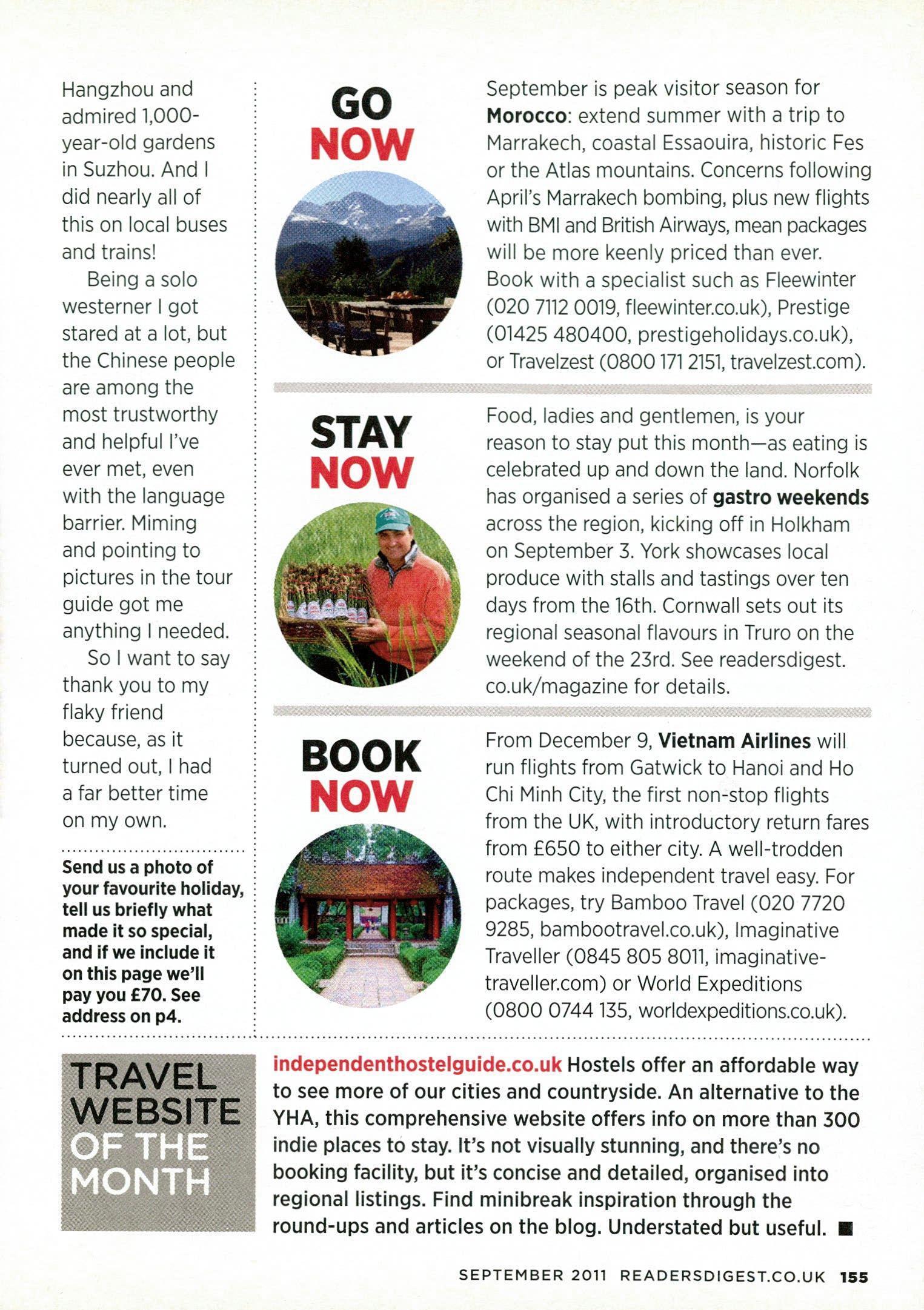
BOOK NOW
September is peak visitor season for Morocco: extend summer with a trip to Marrakech, coastal Essaouira, historic Fes or the Atlas mountains. Concerns following April's Marrakech bombing, plus new flights with BMI and British Airways, mean packages will be more keenly priced than ever. Book with a specialist such as Fleewinter (020 7112 0019, fleewinter.co.uk), Prestige (01425 480400, prestigeholidays.co.uk), or Travelzest (0800171 2151, travelzest.com).
Food, ladies and gentlemen, is your reason to stay put this month—as eating is celebrated up and down the land. Norfolk has organised a series of gastro weekends across the region, kicking off in Holkham on September 3. York showcases local produce with stalls and tastings over ten days from the 16th. Cornwall sets out its regional seasonal flavours in Truro on the weekend of the 23rd. See readersdigest. co.uk/magazine for details.
From December 9, Vietnam Airlines will run flights from Gatwick to Hanoi and Ho Chi Minh City, the first non-stop flights from the UK, with introductory return fares from £650 to either city. A well-trodden route makes independent travel easy. For packages, try Bamboo Travel (020 7720 9285, bambootravel.co.uk), Imaginative Traveller (0845 805 8011, imaginativetraveller.com) or World Expeditions (0800 0744 135, worldexpeditions.co.uk).
independenthostelguide.co.uk Hostels offer an affordable way to see more of our cities and countryside. An alternative to the YHA, this comprehensive website offers info on more than 300 indie places to stay. It's not visually stunning, and there's no booking facility, but it's concise and detailed, organised into regional listings. Find minibreak inspiration through the round-ups and articles on the blog. Understated but useful. ■
DIRggt OFFER
Save on I V, Internet anc home phony
It's so easy! We do all the hard work for you!
Think switching services is too difficult? Getting a service for the first time and need help? Moving home or simply too busy?
Why not call Reader's Digest Digital Comparison Service? We'll do all the hard work for you and find the best deal - you could save up to £402 per year". We're so confident that you won't find a cheaper deal, that if you do, we'll refund the difference.
Just call free and speak to a UK-based expert. We'll review thousands of deals from the UK's top providers and we'll even arrange your installation. What's more, our friendly experts are here seven days a week to answer your questions in jargon-free language right up until the day you're installed.
So don't delay - our experts are waiting to take your call.
COMPARISON We're proud to be the only CALCULATOR APPROWD Ofcom accredited TV, broadband COSccsrri 5 and phone comparison service.
With thousands of deals to choose from, you could save like Kate from Edinburgh, who cut £300 off her bill with the service...
01,,by using the service?
al
I did - I saved over £300 per year by bundling my broadband and phone.
How was your customer experience?
Very good - the agent, Elliott, talked me through my options in simple, jargon-free language!
Would you recommend the service to your friends?
I would - I was nervous about switching as I was confused about my options and I thought it would be a hassle. But, the process was simple and the experts do all the hard work for you!

Experts available: Monday-Friday 8am-8pm Saturday 9am-5.3Opm Sunday 10am-5.30pm
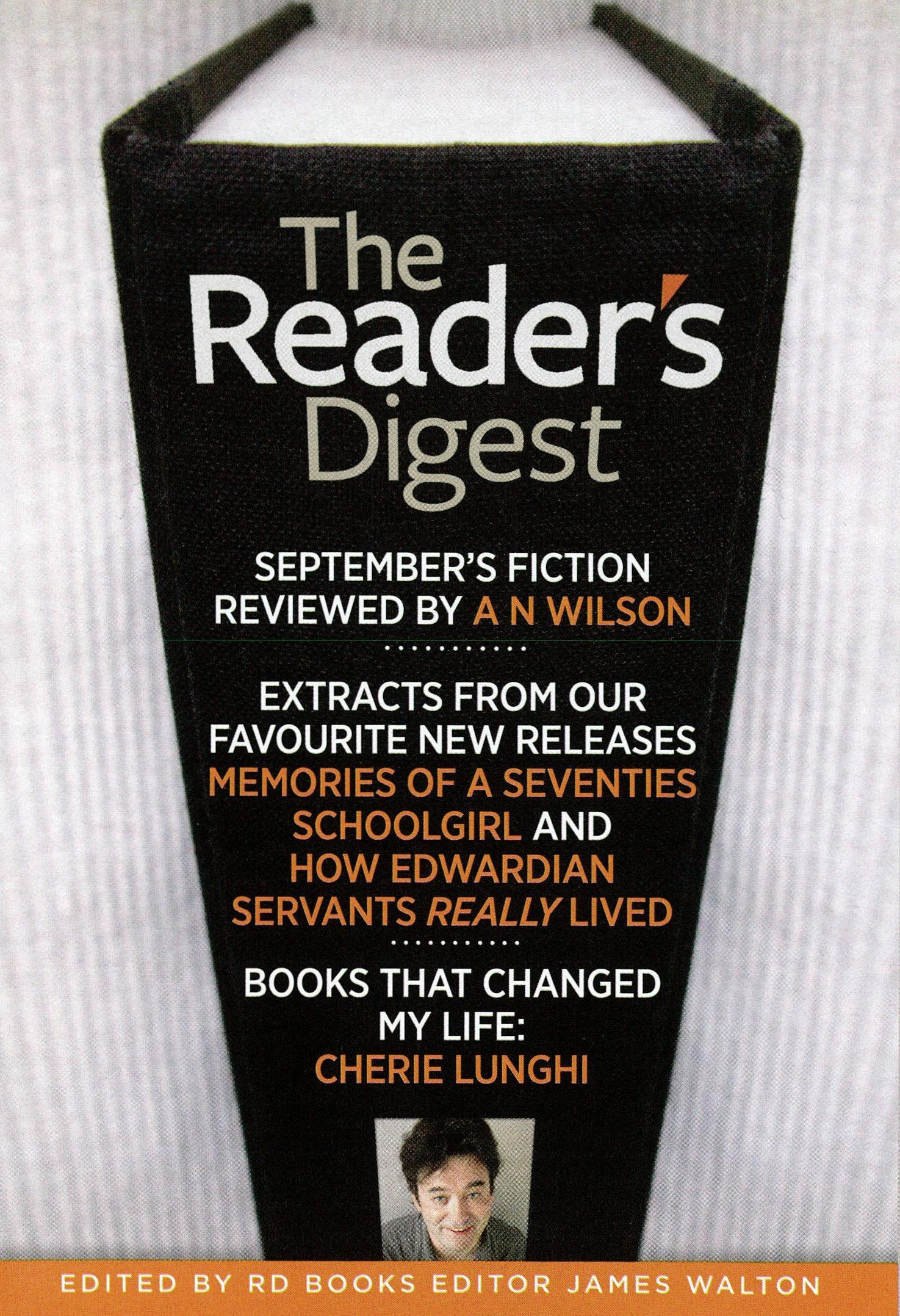
T Reaheder's Digest
SEPTEMBER'S FICTION REVIEWED BY A N WILSON
EXTRACTS FROM OUR FAVOURITE NEW RELEASES MEMORIES OF A SEVENTIES
SCHOOLGIRL AND HOW EDWARDIAN SERVANTS REALLY LIVED BOOKS THAT CHANGED MY LIFE: CHERIE LUNGHI
September fiction
The Song of Achilles
by Madeline Miller (Bloomsbury, £18.99)To rewrite Homer's Iliad as a modern novel was a bold move—but it has paid off superbly. Equally bold, and successful, the decision by Madeline Miller [below] to make Achilles' friend Patroclus the narrator, even though he dies in the story. (When the dead Patroclus looks at the weeping Achilles, he writes, "I see his face as if through water, as a fish sees the sun." Isn't that brilliant?)
The Iliad's supernatural elements are beautifully done. So, too, are the characters
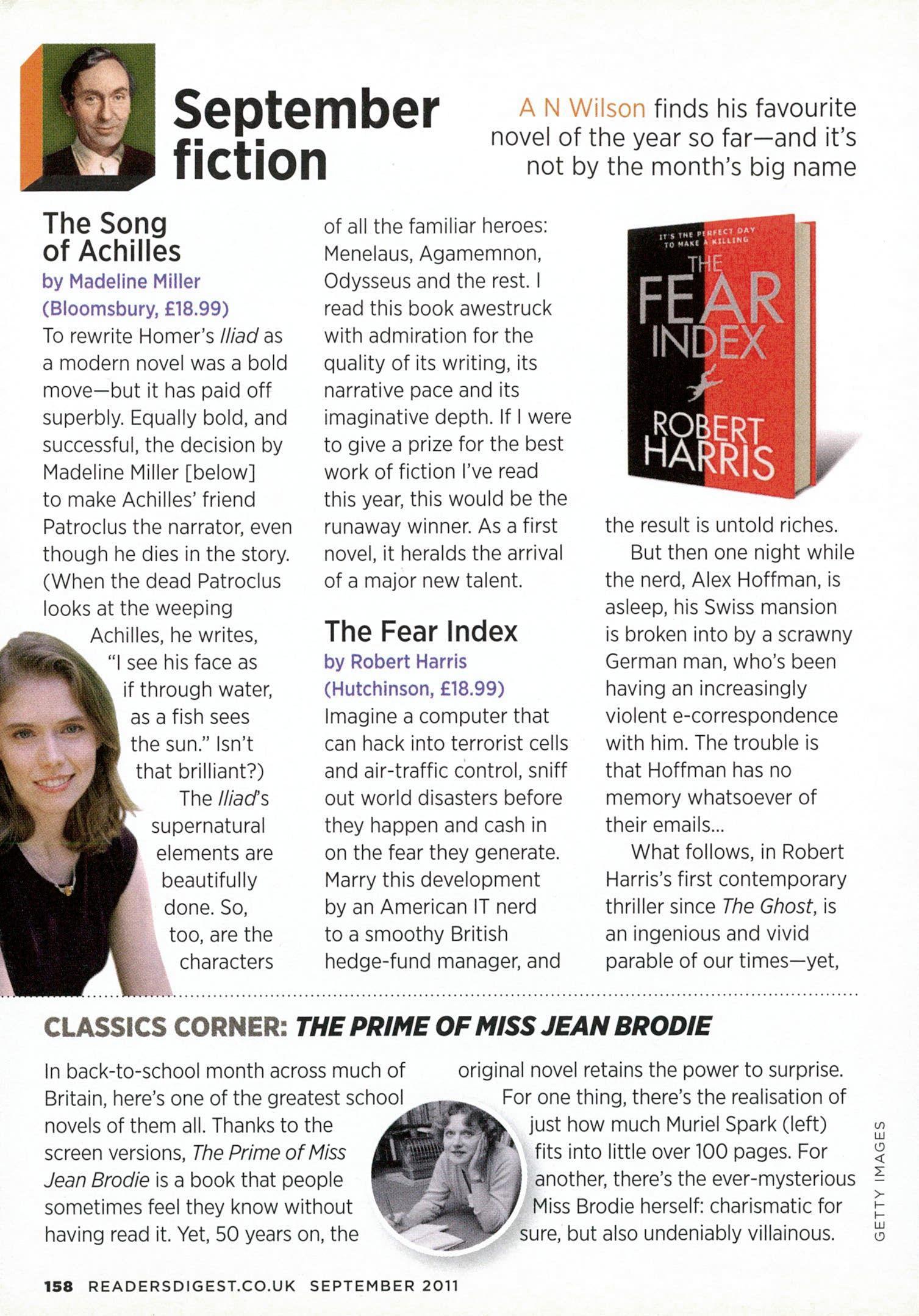
A N Wilson finds his favourite novel of the year so far—and it's not by the month's big name
of all the familiar heroes: Menelaus, Agamemnon, Odysseus and the rest. I read this book awestruck with admiration for the quality of its writing, its narrative pace and its imaginative depth. If I were to give a prize for the best work of fiction I've read this year, this would be the runaway winner. As a first novel, it heralds the arrival of a major new talent.
The Fear Index
by Robert Harris (Hutchinson, £18.99)Imagine a computer that can hack into terrorist cells and air-traffic control, sniff out world disasters before they happen and cash in on the fear they generate. Marry this development by an American IT nerd to a smoothy British hedge-fund manager, and
the result is untold riches.
But then one night while the nerd, Alex Hoffman, is asleep, his Swiss mansion is broken into by a scrawny German man, who's been having an increasingly violent e-correspondence with him. The trouble is that Hoffman has no memory whatsoever of their emails...
What follows, in Robert Harris's first contemporary thriller since The Ghost, is an ingenious and vivid parable of our times—yet,
CLASSICS CORNER: THE PRIME OF MISS JEAN BRODIE
In back-to-school month across much of Britain, here's one of the greatest school novels of them all. Thanks to the screen versions, The Prime of Miss Jean Brodie is a book that people sometimes feel they know without having read it. Yet, 50 years on, the
original novel retains the power to surprise. For one thing, there's the realisation of just how much Muriel Spark (left) fits into little over 100 pages. For another, there's the ever-mysterious Miss Brodie herself: charismatic for sure, but also undeniably villainous.
in the end, not a hugely enjoyable one. All the characters are repellent, and the atmosphere of super-rich Geneva is—as Harris no doubt intended— bleak, bleak, bleak.
The
Invisible Ones
by Stef Penney (Quercus, £18.99)It would take far longer than my allotted space to explain the dense plot of this highly impressive thriller, which starts with one of the narrators drugged and paralysed in hospital. Ray Lovell is a small-time private investigator who'd been tracking down a missing
'PENNED
The Invisible Ones
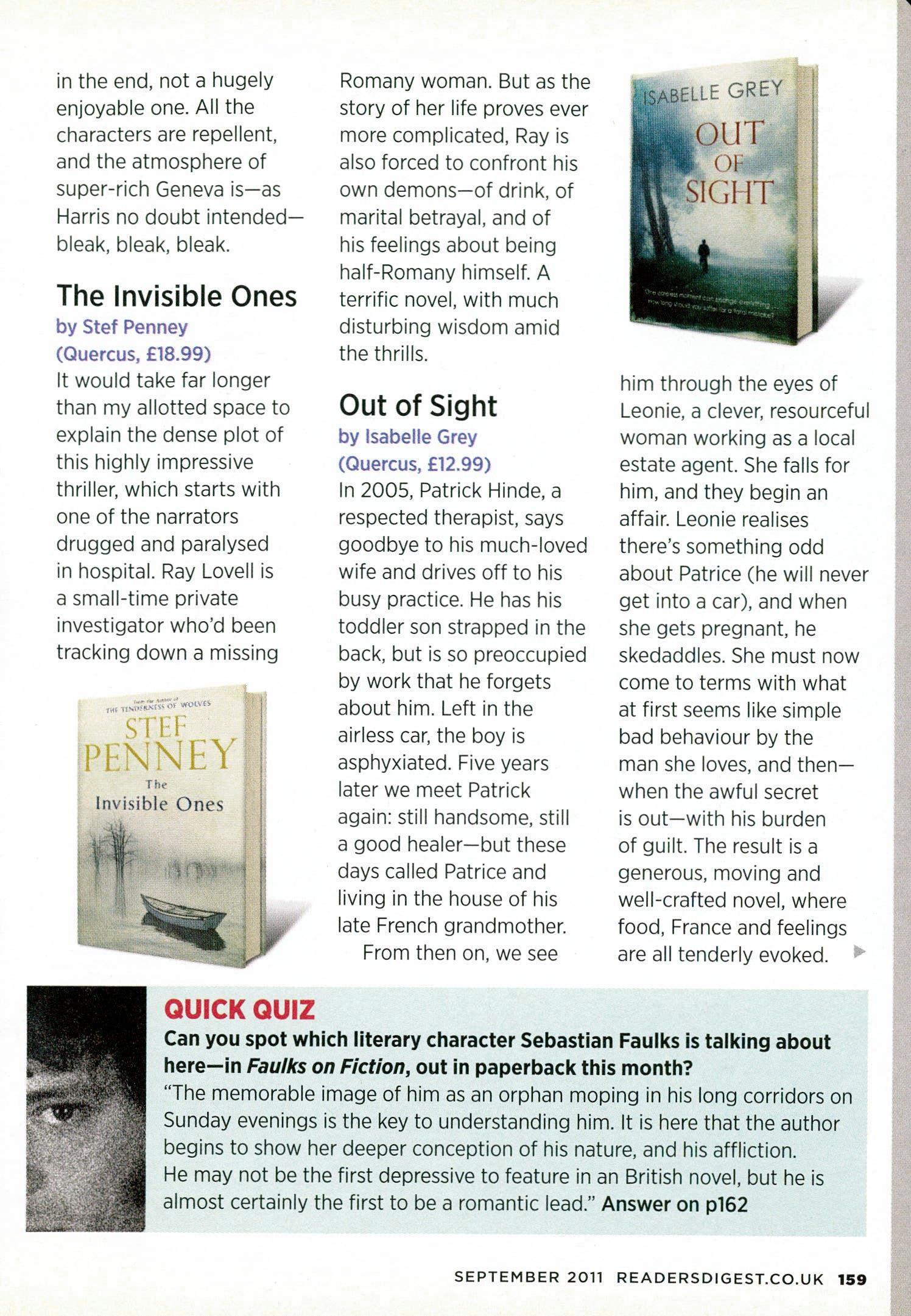
QUICK QUIZ
Romany woman. But as the story of her life proves ever more complicated, Ray is also forced to confront his own demons—of drink, of marital betrayal, and of his feelings about being half-Romany himself. A terrific novel, with much disturbing wisdom amid the thrills.
Out of Sight
by Isabelle Grey (Quercus, £12.99)In 2005, Patrick Hinde, a respected therapist, says goodbye to his much-loved wife and drives off to his busy practice. He has his toddler son strapped in the back, but is so preoccupied by work that he forgets about him. Left in the airless car, the boy is asphyxiated. Five years later we meet Patrick again: still handsome, still a good healer—but these days called Patrice and living in the house of his late French grandmother. From then on, we see
him through the eyes of Leonie, a clever, resourceful woman working as a local estate agent. She falls for him, and they begin an affair. Leonie realises there's something odd about Patrice (he will never get into a car), and when she gets pregnant, he skedaddles. She must now come to terms with what at first seems like simple bad behaviour by the man she loves, and then— when the awful secret is out—with his burden of guilt. The result is a generous, moving and well-crafted novel, where food, France and feelings are all tenderly evoked.
Can you spot which literary character Sebastian Faulks is talking about here—in Faulks on Fiction, out in paperback this month?
"The memorable image of him as an orphan moping in his long corridors on Sunday evenings is the key to understanding him. It is here that the author begins to show her deeper conception of his nature, and his affliction. He may not be the first depressive to feature in an British novel, but he is almost certainly the first to be a romantic lead." Answer on p162
Something sexy in Physics
One of Britain's leading writers on growing up in small-town Scotland—and how she learned about, you know, babies
Janice Galloway has written short stories, poems, opera libretti and novels—including The Trick Is to Keep Breathing, now regarded as a modern Scottish classic.
But none of this can have seemed very likely when she was growing up in Saltcoats, Ayrshire in the 1960s and 70s. Back then, Galloway shared a bed with her mother, and their flat with her fearsome sister Cora. Seventeen years older than Janice, Cora had returned to the family home on her 20th birthday, leaving her husband and toddler behind in Glasgow. Neither was ever mentioned again, disappearing into the same oblivion that had earlier absorbed Janice and Cora's estranged father, who died in 1961.
Galloway's first memoir This Is Not About Me told of her life from her birth in 1955 to the end of primary school—and was hailed as one of the great childhood memoirs of recent times. Her new one is, if anything, even better: sharp, funny, touching, occasionally brutal and always beautifully written. It picks up the story just as she's about to start at Ardrossan Academy, a grammar school that her mother regards as "a passport to getting on".
Later, the book explores Galloway's discovery of boys, her growing love of music and books, the revelation of several family secrets and the increasingly rackety behaviour of the scene-stealing Cora. Here, though, in her second year at Ardrossan, the young Janice prepares to be taught about sex...
C'In our house, the subject was not closed, it didn't exist. And to keep things that way, my mother kept the TV under hair-trigger surveillance.
Kissing, touching of anything other than hands, James Bond, The Avengers, Catwoman's tight leather catsuit and whip, Play for
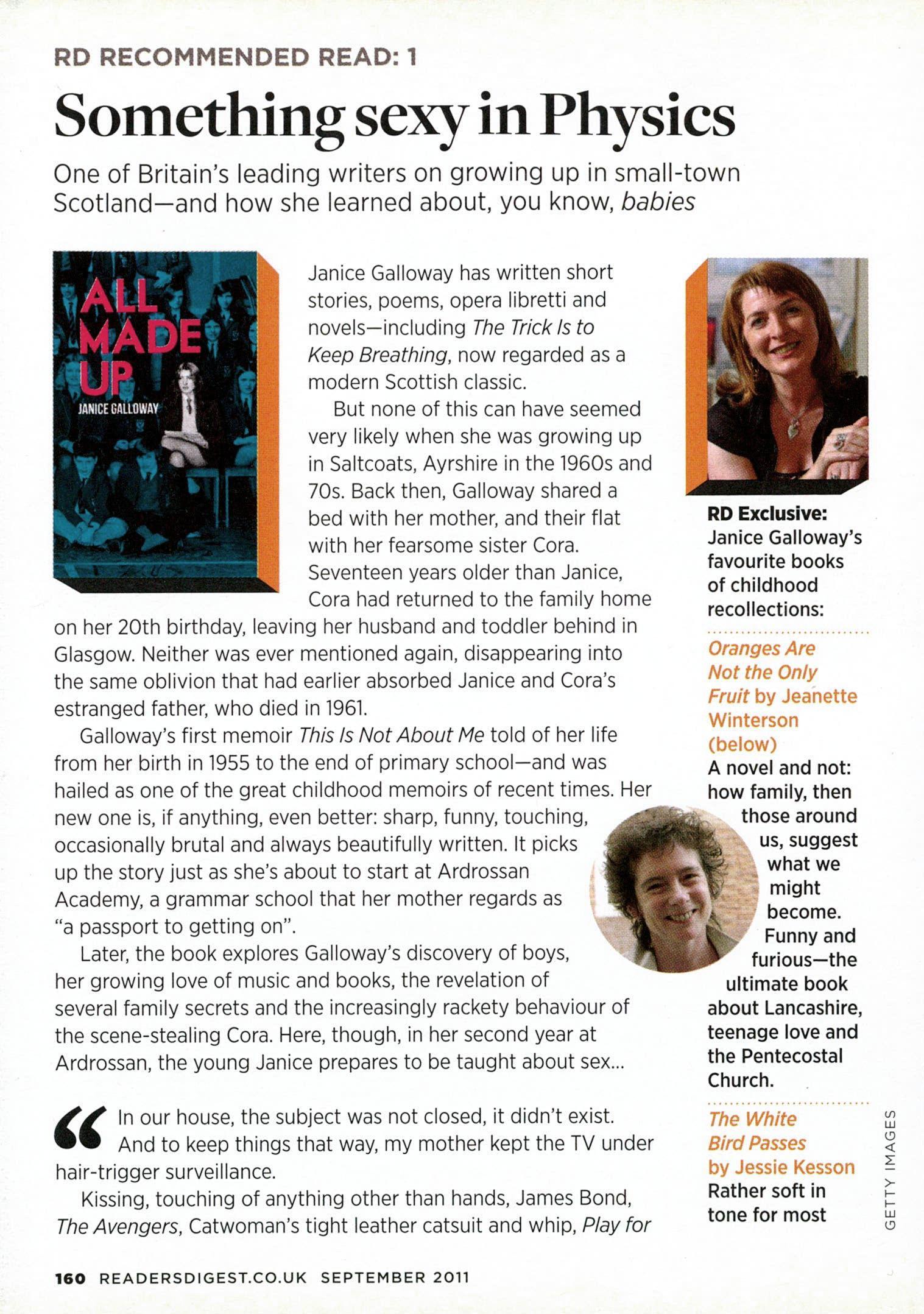
RD Exclusive: Janice Galloway's favourite books of childhood recollections:
Oranges Are Not the Only Fruit by
Jeanette Winterson(below)
A novel and not: how family, then those around us, suggest what we might become. Funny and furious—the ultimate book about Lancashire, teenage love and the Pentecostal Church.
The White Bird Passes by Jessie Kesson Rather soft in tone for most
Spot the decade: the tee agg Janice: (in purple) at a 1970s fairill■ Adding. Her sister Cora is on her left, and her mum is second from right at the back
Today and lions sniffing lionesses' bottoms rendered our TV lifeless in seconds. Animals in general were untrustworthy subjects. Primates, unless bowler-hatted and advertising cups of tea between shifting pianos, were given no air-time at all. If that kind of thing had its place—and it was by no means certain that it did—that place was not on our TV. Violence, while not exactly welcome, went unremarked. Sex, on the other hand—like debt, fear, love and haemorrhoids—was best kept dark...
Cartoons, comics and school, however, were dependably sex-free zones—and the most dependable of all were the ivory towers of Ardrossan. At the Academy, we learned to Strip the Willow with other eightsome reels as back-up, not hug-happy waltzes. All touch between the sexes was formal and resented. Then word arrived after Cookery on Thursday afternoon that something sexy had happened in Physics.
The messenger, a slip of a thing called Claire not given to exaggeration, pointed at the strip-light over our heads. The labs were on the other side, upstairs. It was possible something rude was going on right now as we dusted the flour from our hands and stared. As soon as the bell sounded, we hared upstairs and found the other half of our practical group, milling, smelling faintly of sulphur, and keen to confess. Everything we'd heard ►
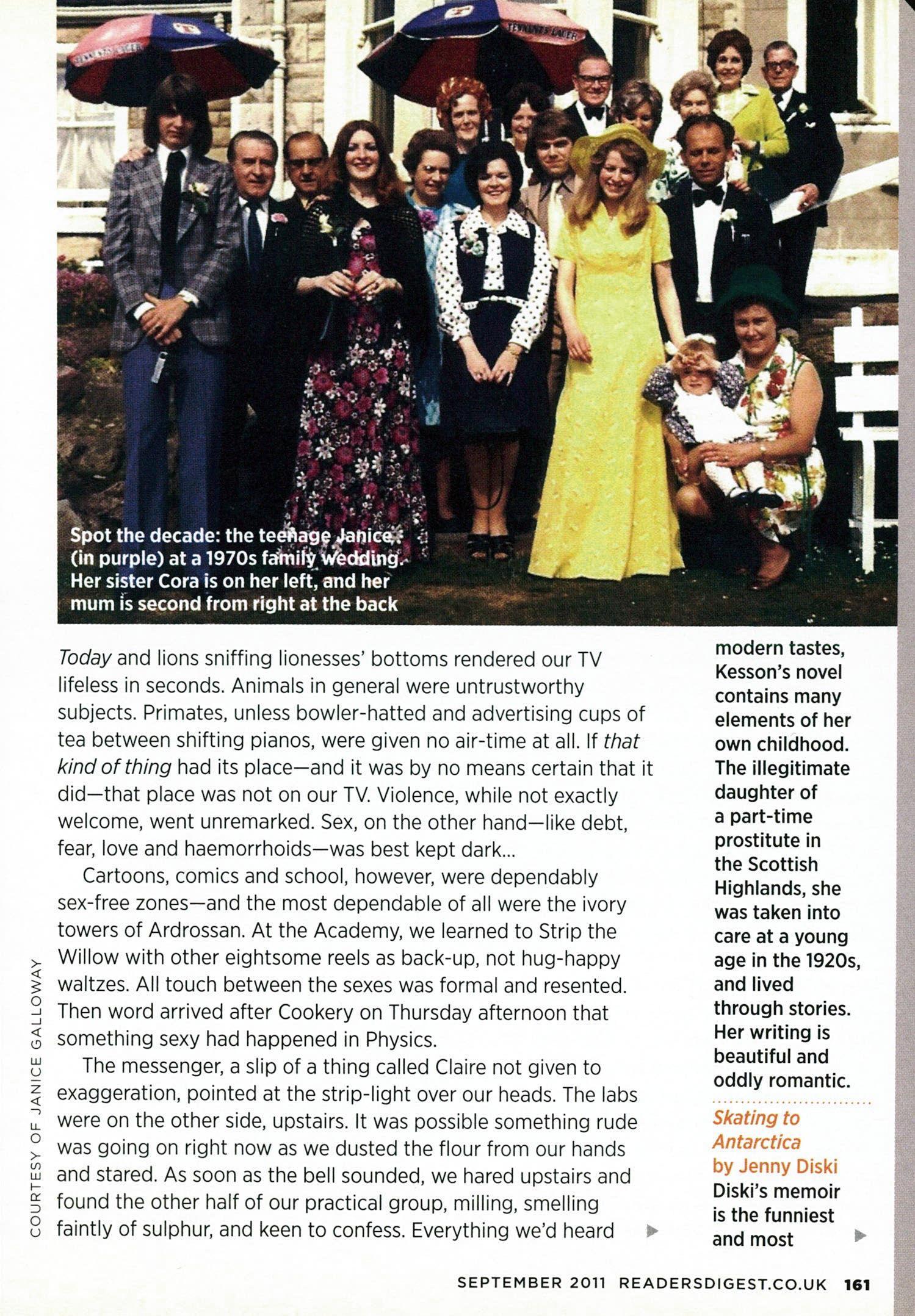
modern tastes, Kesson's novel contains many elements of her own childhood. The illegitimate daughter of a part-time prostitute in the Scottish Highlands, she was taken into care at a young age in the 1920s, and lived through stories. Her writing is beautiful and oddly romantic. Skating to Antarctica by Jenny Diski Diski's memoir is the funniest and most
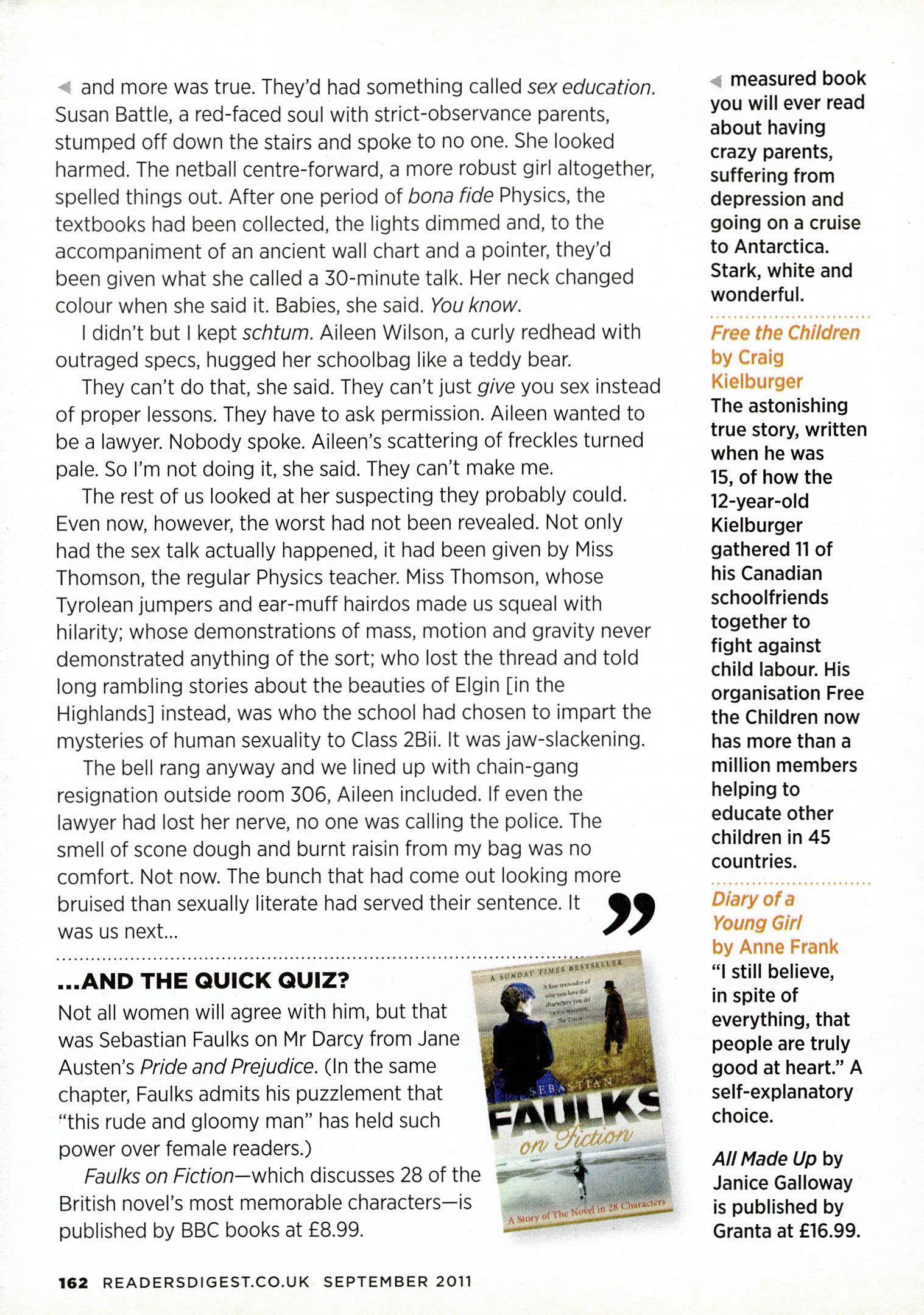
-4 and more was true. They'd had something called sex education. Susan Battle, a red-faced soul with strict-observance parents, stumped off down the stairs and spoke to no one. She looked harmed. The netball centre-forward, a more robust girl altogether, spelled things out. After one period of bona fide Physics, the textbooks had been collected, the lights dimmed and, to the accompaniment of an ancient wall chart and a pointer, they'd been given what she called a 30-minute talk. Her neck changed colour when she said it. Babies, she said. You know.
I didn't but I kept schtum. Aileen Wilson, a curly redhead with outraged specs, hugged her schoolbag like a teddy bear.
They can't do that, she said. They can't just give you sex instead of proper lessons. They have to ask permission. Aileen wanted to be a lawyer. Nobody spoke. Aileen's scattering of freckles turned pale. So I'm not doing it, she said. They can't make me.
The rest of us looked at her suspecting they probably could. Even now, however, the worst had not been revealed. Not only had the sex talk actually happened, it had been given by Miss Thomson, the regular Physics teacher. Miss Thomson, whose Tyrolean jumpers and ear-muff hairdos made us squeal with hilarity; whose demonstrations of mass, motion and gravity never demonstrated anything of the sort; who lost the thread and told long rambling stories about the beauties of Elgin [in the Highlands] instead, was who the school had chosen to impart the mysteries of human sexuality to Class 2Bii. It was jaw-slackening.
The bell rang anyway and we lined up with chain-gang resignation outside room 306, Aileen included. If even the lawyer had lost her nerve, no one was calling the police. The smell of scone dough and burnt raisin from my bag was no comfort. Not now. The bunch that had come out looking more bruised than sexually literate had served their sentence. It JO was us next...
...AND THE QUICK QUIZ?
Not all women will agree with him, but that was Sebastian Faulks on Mr Darcy from Jane Austen's Pride and Prejudice. (In the same chapter, Faulks admits his puzzlement that "this rude and gloomy man" has held such power over female readers.)
Faulks on Fiction—which discusses 28 of the British novel's most memorable characters—is published by BBC books at £8.99.
measured book you will ever read about having crazy parents, suffering from depression and going on a cruise to Antarctica. Stark, white and wonderful.
Free the Children by Craig Kielburger
The astonishing true story, written when he was 15, of how the 12-year-old Kielburger gathered 11 of his Canadian schoolfriends together to fight against child labour. His organisation Free the Children now has more than a million members helping to educate other children in 45 countries.
Diary of a Young Girl by Anne Frank
"I still believe, in spite of everything, that people are truly good at heart." A self-explanatory choice.
All Made Up by Janice Galloway is published by Granta at £16.99.
Behind the green (baize) door
Pining for the return of Downton Abbey? Then why not read up on the social history while you wait?
Below &airs
Carefully researched and packed with eyewitness accounts, Life Below Stairs takes us back to the days when well over a million Britons—including 40 per cent of the female workforce— were employed as servants. So, if you're still confused between your lady's maids, chambermaids, parlour maids and scullery maids, Alison Maloney can certainly help. And even for those who haven't gone Downton crazy, the book still offers a fascinating slice of British history. Did you know, for example, that a footman's pay was dependent on his height? (Taller was better.) Or that valets were often expected to supply their masters each morning with freshly ironed shoelaces?
Over its nine chapters, this book tackles every aspect of servant life—including, of course, all the rules that had to be followed:
As soon as any servant took a position in a household, they were subject to a long list of dos and don'ts—some issued by their mistress and some by their downstairs superiors. Most establishments had the rules hung in the kitchen or the servants' hall. The codes of conduct revolved around being as unobtrusive as possible. Most of the lowlier servants never spoke to their mistress or master, even if their paths crossed, and this was encouraged in the many regulations recommended at the time. The kitchen staff rarely left the basement, and should a parlourmaid or chambermaid pass a member of the family they were expected to stand against the wall and look at the floor.
A booklet produced by the Ladies' Sanitary Association in 1901, entitled Rules for the Manners of Servants in Good Families, laid out a list of rules. Here are just a few of them:
• Do not walk in the garden unless permitted, or unless you know that all the family are out; be careful to walk quietly when there.
• Always move quietly about the house, and do not let your voice be heard by the family unless necessary.
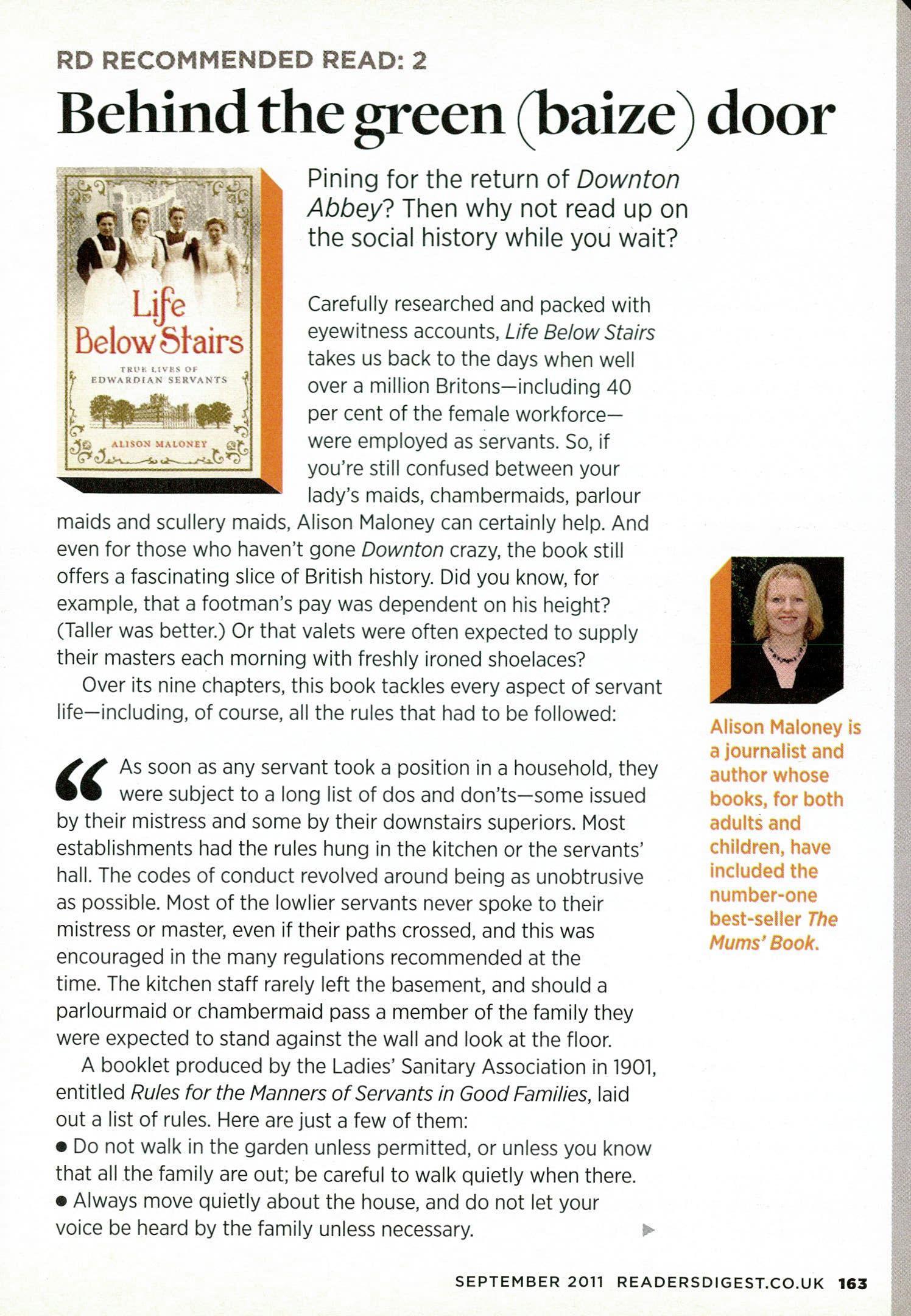
Alison Maloney is a journalist and author whose books, for both adults and children, have included the number-one best-seller The Mums' Book.
41
• Never sing or whistle at your work where the family would be likely to hear you.
• Do not talk to your fellow servants or the children of the family in the presence of ladies and gentlemen.
• Should you be required to walk with a lady or gentleman, to carry a parcel or otherwise, always keep a few paces behind.
• Do not smile at droll stories told in your presence or seem in any way to notice, or enter into, the family conversation, or the talk at table, or with visitors...
Some mistresses would employ subterfuge to test the honesty of the staff
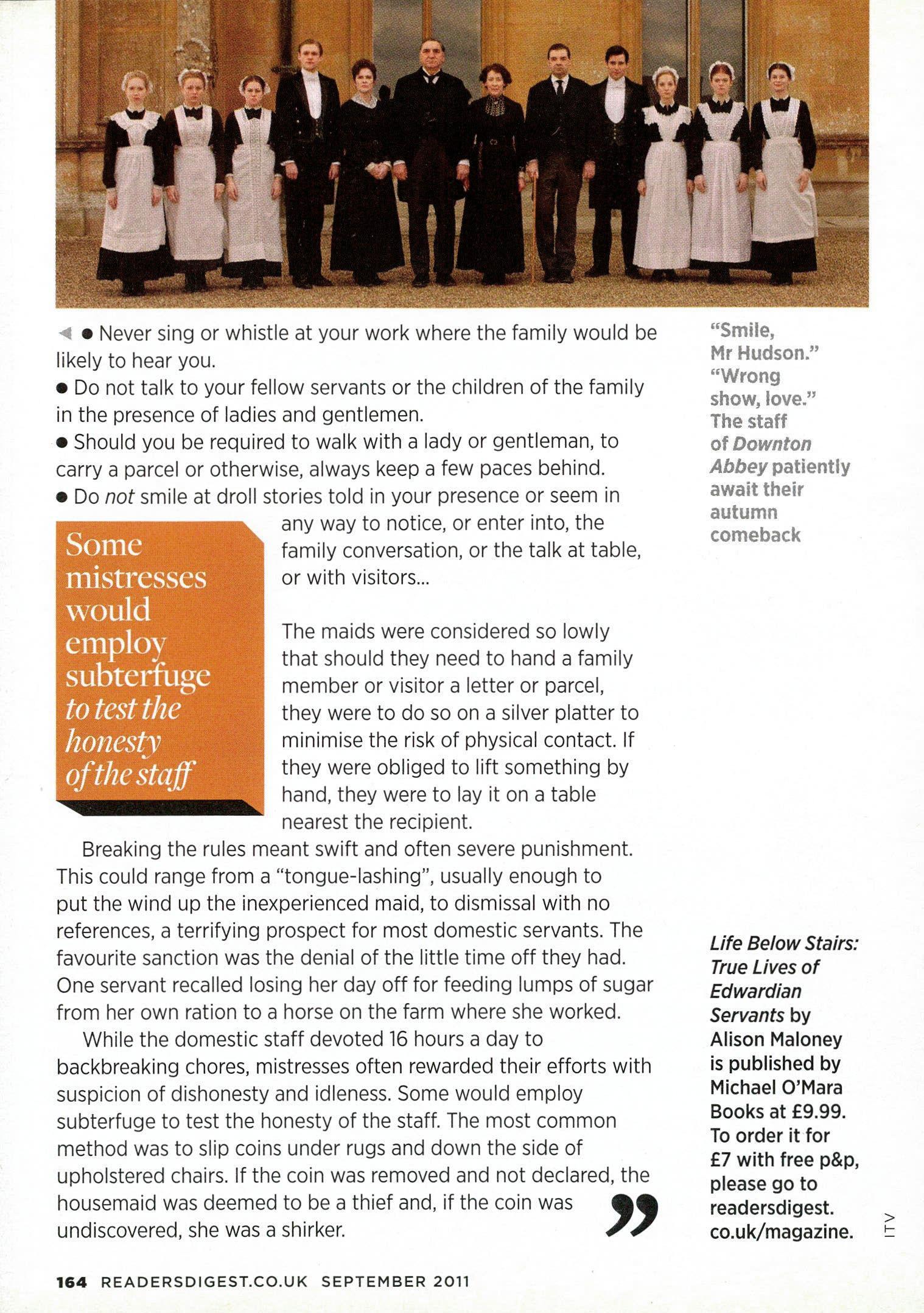
The maids were considered so lowly that should they need to hand a family member or visitor a letter or parcel, they were to do so on a silver platter to minimise the risk of physical contact. If they were obliged to lift something by hand, they were to lay it on a table nearest the recipient.
Breaking the rules meant swift and often severe punishment. This could range from a "tongue-lashing", usually enough to put the wind up the inexperienced maid, to dismissal with no references, a terrifying prospect for most domestic servants. The favourite sanction was the denial of the little time off they had. One servant recalled losing her day off for feeding lumps of sugar from her own ration to a horse on the farm where she worked.
While the domestic staff devoted 16 hours a day to backbreaking chores, mistresses often rewarded their efforts with suspicion of dishonesty and idleness. Some would employ subterfuge to test the honesty of the staff. The most common method was to slip coins under rugs and down the side of upholstered chairs. If the coin was removed and not declared, the housemaid was deemed to be a thief and, if the coin was undiscovered, she was a shirker.
"Smile, Mr Hudson." "Wrong show, love."
The staff of Downton Abbey patiently await their autumn comeback
Life Below Stairs: True Lives of Edwardian Servants by Alison Maloney is published by Michael O'Mara Books at £9.99. To order it for £7 with free p&p, please go to readersdigest. co.uk/magazine.
Books that Changed my Life
Cherie Lunghi's acting career spans three decades of stage and film, including roles in Excalibur and Mary Shelley's Frankenstein. Cherie is now on tour with The Syndicate, alongside Sir Ian McKellen. She is also an ambassador for Regenovex joint care.
Alice in Wonderland
by Lewis CarrolWhen I was six, a family friend read passages from this to me. I would settle down to listen in front of a gas fire, with a plate of toasted crumpets and golden syrup.
A stage version was the first theatre performance my mother took me to, and it was this world of make-believe that inspired me to become a performer. My box seat was close enough to be able to smell the stage and see the actors' make-up. But I wanted to be the other side of the footlights, a part of it. Aged 13, at stage school, I played Alice in a BBC radio version, taking me one step closer.
Complete Works by William Shakespeare
When I was growing up, my mum had an old copy with black-and-white photos of Laurence Olivier, Paul Scofield and John Gielgud as young actors in various productions at Stratford-upon-Avon in the 1940s. Early in my career, I
A Passage to India by E M Forster
This aroused my curiosity in India, when I read it at 0 level, in how exotic the culture must be and how much it contrasted with my own. When I first went to India 30 years ago, the differences that fascinated me in the book exceeded my expectations. Crossing Rajasthan, our train was assailed by bandits, and, in Jaipur, a complete stranger with a cousin in the UK insisted we attend his brother's wedding, where we were treated like visiting royalty. When I returned to India two years ago, a road trip in Goa proved equally adventurous, highlighting those fascinating cultural contrasts again.
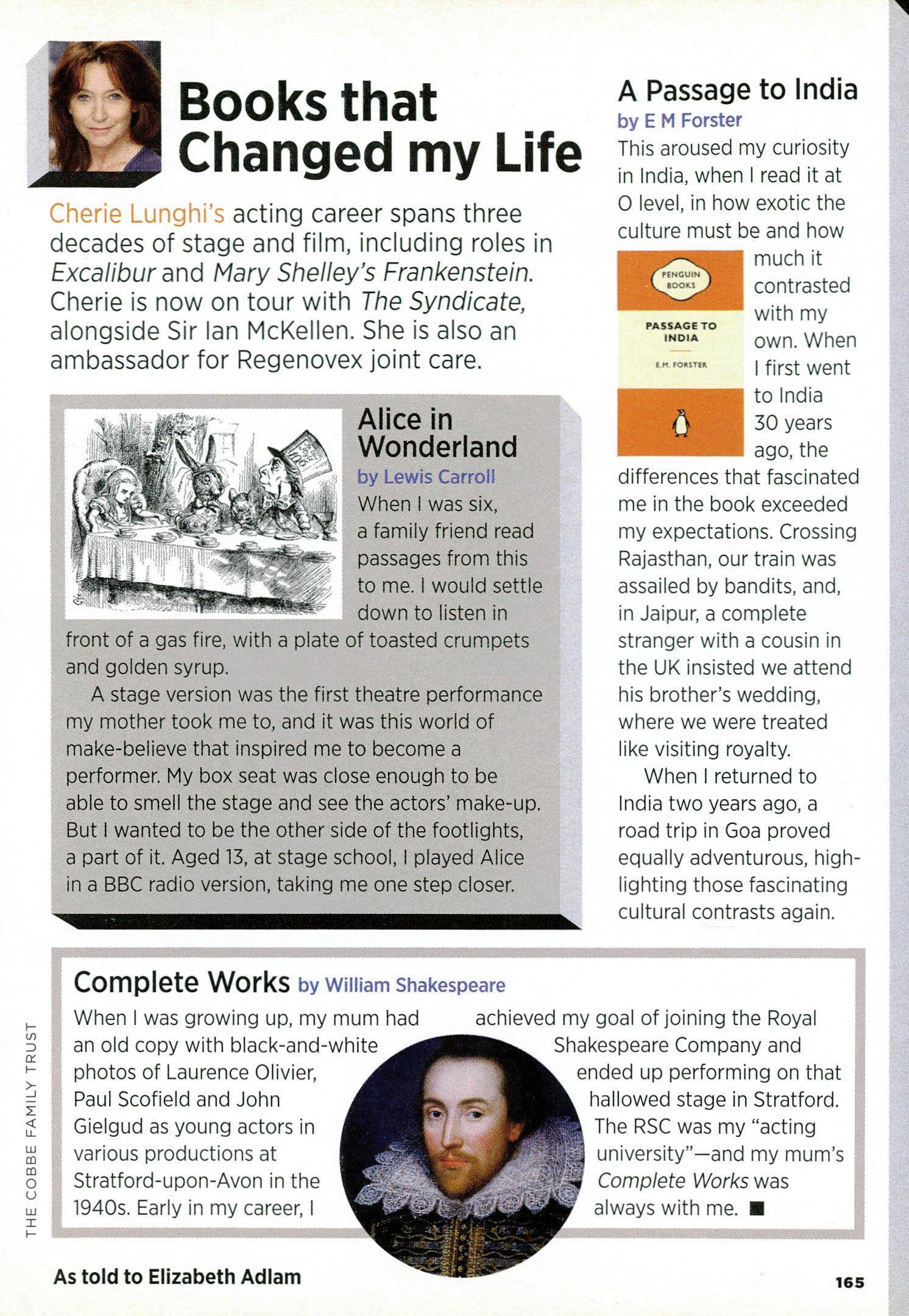
GAs told to Elizabeth Adlam
achieved my goal of joining the Royal Shakespeare Company and ended up performing on that hallowed stage in Stratford. The RSC was my "acting university"—and my mum's Complete Works was always with me. ■
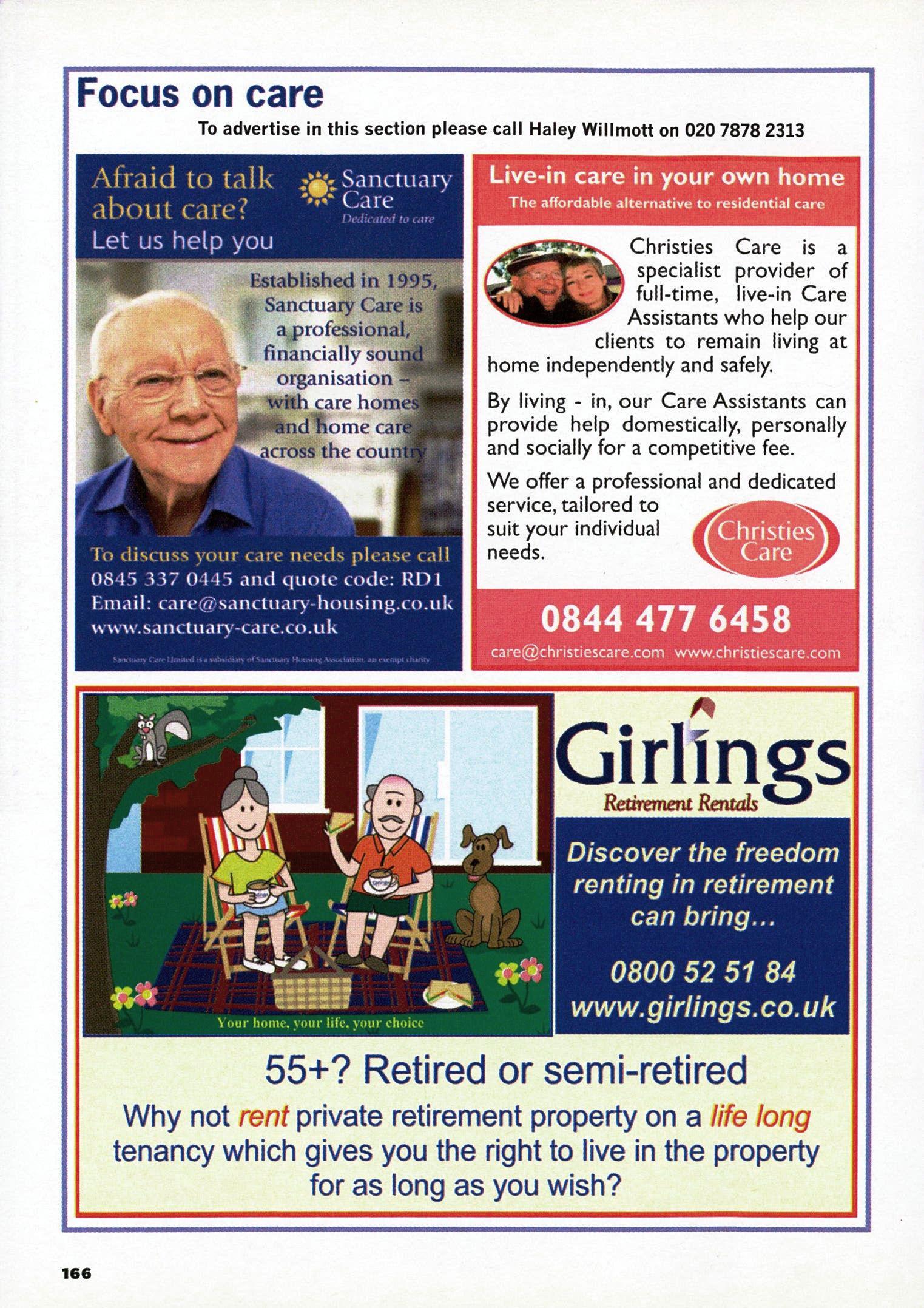

Our typical customers are earning £700 - 2:1400 each year and are saving from reduced electricity bills. Plus they receive extra income by selling any surplus electricity they generate.
IS YOUR CONSERVATORY TOO WARM IN SUMMER AND TOO COLD IN WINTER? THEN IT'S TIME FOR CLIMATE CONTROL USING THIS NEW, EXCITING SYSTEM.

This new system not only enhances the look of your conservatory but can improve its thermal performance by up to 200%.
Reclaim your conservatory. Keep the temperature cooler in the summer and considerably warmer in the winter months. This will allow you to get full usage of your conservatory and re-create that haven of peace and tranquility in your home, all year round.
For a FREE survey and quote, calf 0800 028 6876 or visit www.conservatoryclimatecontracom
SEE WHY WE ARE A LEADING UK COMPANY AND HOW WE CAN ELIMINATE MORE CONSERVATORY PROBLEMS THAN ANY OF OUR COMPETITORS.
■ SIGNIFICANTLY COOLER IN SUMMER AND ON BRIGHT DAYS
■ DRAMATICALLY WARMER IN WINTER AND IN THE EVENINGS
■ THE SYSTEM ELIMINATES GLARE AND CONSIDERABLY REDUCES THAT ANNOYING PITTER PATTER NOISE OF RAIN
■ THESE ARE NOT BLINDS: THE SYSTEM FOLLOWS THE EXISTING SHAPE OF THE CONSERVATORY ROOF (SEE PHOTOGRAPH)
▪ MINIMUM INCONVENIENCE DURING INSTALLATION
■ NO PLANNING REQUIRED OR STRUCTURAL IMPLICATIONS
■ SUITABLE FOR PRACTICALLY ALL CONSERVATORY DESIGNS
■ LESS EXPENSIVE THAN CONSERVATORY ROOF BLINDS
Concertinas
BOOK PUBLISHING
Authors

submit manuscripts
A.H. STOCKWELL LTD, Dept. 937 Ilfracombe, Devon, EX34 8BA. Tel: 01271 862557 www.ahstockwell.co.uk Publishers for 100 Years
Synopses and sample chapters welcome, please send to:
Austin & Macauley Publishers CGC-33-01, 25 Canada Square, Canary Wharf, London, E14 5LQ 0207 0388212 editors@austinmacauley.com www.austinmacauley.com All genres welcome
Beat the Puzzler!
How long will it take you to answer these five questions? It only occupied the Puzzler for 20 minutes, but can you do better?
1If #+%$$}£ is the code for CHEDDAR, what are the following three cheeses?
#+%/+@£%
% $ }
3E@%
2 A fire engine travels five miles to a fire at a speed of 32mph. Its tank holds 500 gallons of water but has been leaking at a rate of 20 gallons per hour. How many gallons of water will the fire engine have available to put out the fire?
Rearrange the letters of THE NICE STYLISH
POET BOYS to give a well-known proverb that warns against telling a lie. What is it?
5 On each row place two letters that can be attached to the end of the word to the left to give a longer word. When completed, the six added letters will give a word reading downwards. What is it?
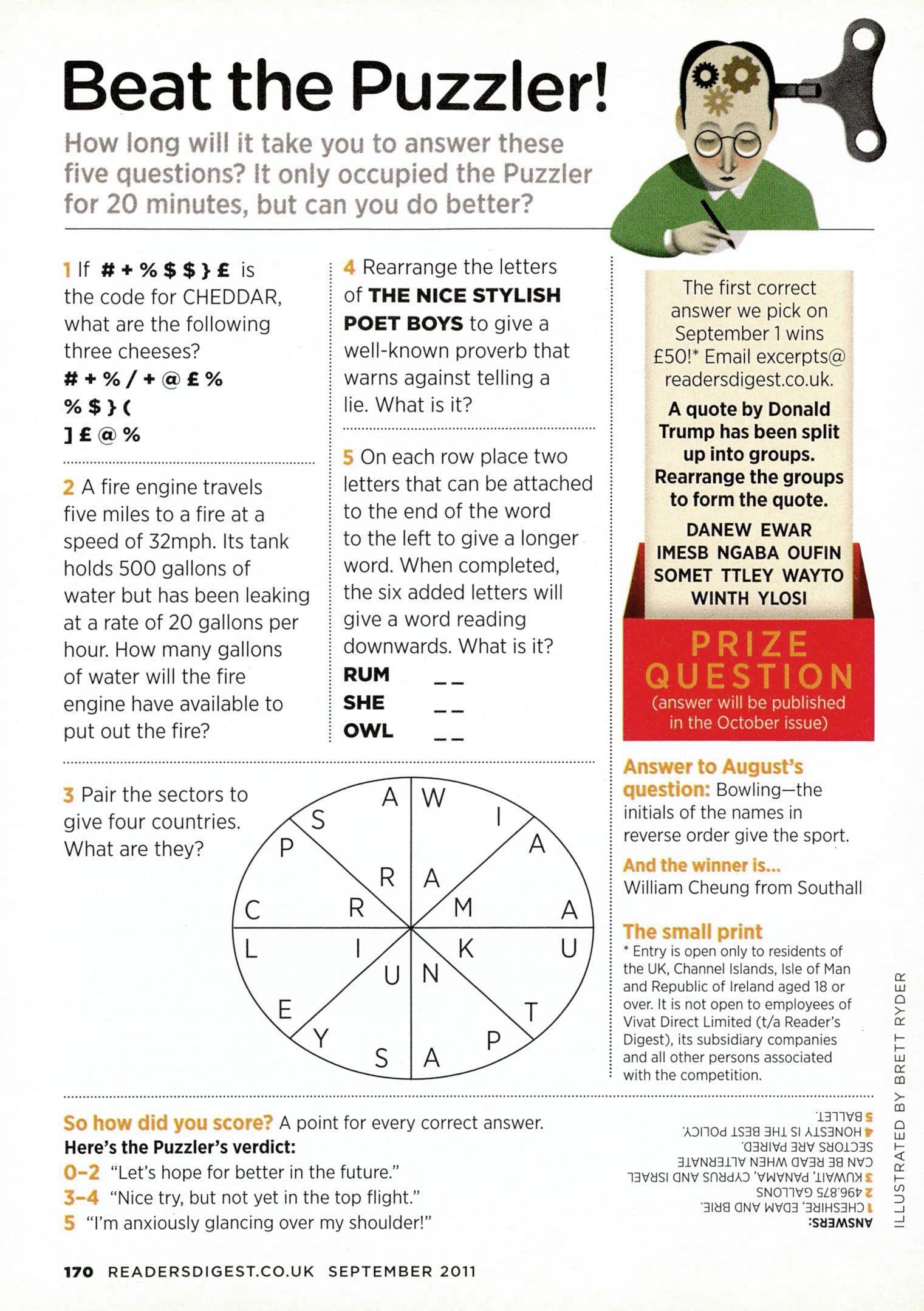
3 Pair the sectors to give four countries. What are they?
So how did you score? A point for every correct answer. Here's the Puzzler's verdict:
0-2 "Let's hope for better in the future."
3-4 "Nice try, but not yet in the top flight."
5 "I'm anxiously glancing over my shoulder!"
The first correct answer we pick on September 1 wins £50!* Email excerpts@ readersdigest.co.uk.
A quote by Donald Trump has been split up into groups. Rearrange the groups to form the quote.
DANEW EWAR IMESB NGABA OUFIN SOMET TTLEY WAYTO WINTH YLOSI
PRIZE
QUESTION
(answer will be published in the October issue)
Answer to August's question: Bowling—the initials of the names in reverse order give the sport. And the winner is... William Cheung from Southall
The small print
Entry is open only to residents of the UK, Channel Islands, Isle of Man and Republic of Ireland aged 18 or over. It is not open to employees of Vivat Direct Limited (t/a Reader's Digest), its subsidiary companies and all other persons associated with the competition.
13TIV8 )..D110d1S-38 3F11 SI AlS3NOH 'MUM 321V S2101D3S 31VN2I311V N3HM OV32139 NVD 13VLISI GNV SMIdAD V1,4VNVd1ivnAn>i SNOTWO 5L8'965 3188 ONV VIVG3 '32:11HS3HD1 :Si0MSNY
TEST—YOUR—KNOWLEDGE CROSSWORD
1 Small item of cutlery (8)
5 Reel, spool (6)
8 Game associated with Wimbledon (6)
9 Financially ruined (8)
11 Appellation (4)
12 Darling (10)
14 Beast of burden (3)
15 Former name of Thailand (4)
17 Impractically aspirational (10)
19 Capital of New Zealand (10)
21 Slab found on a roof (4)
23 Expire (3)
24 Carries (10)
26 Palm fruit (4)
27 Aromatic shrub (8)
30 Immediately, without delay (2,4)
31 Water boiler (6)
32 Game bird (8)
1 Lockjaw (7)
2 Ray of natural light (7)
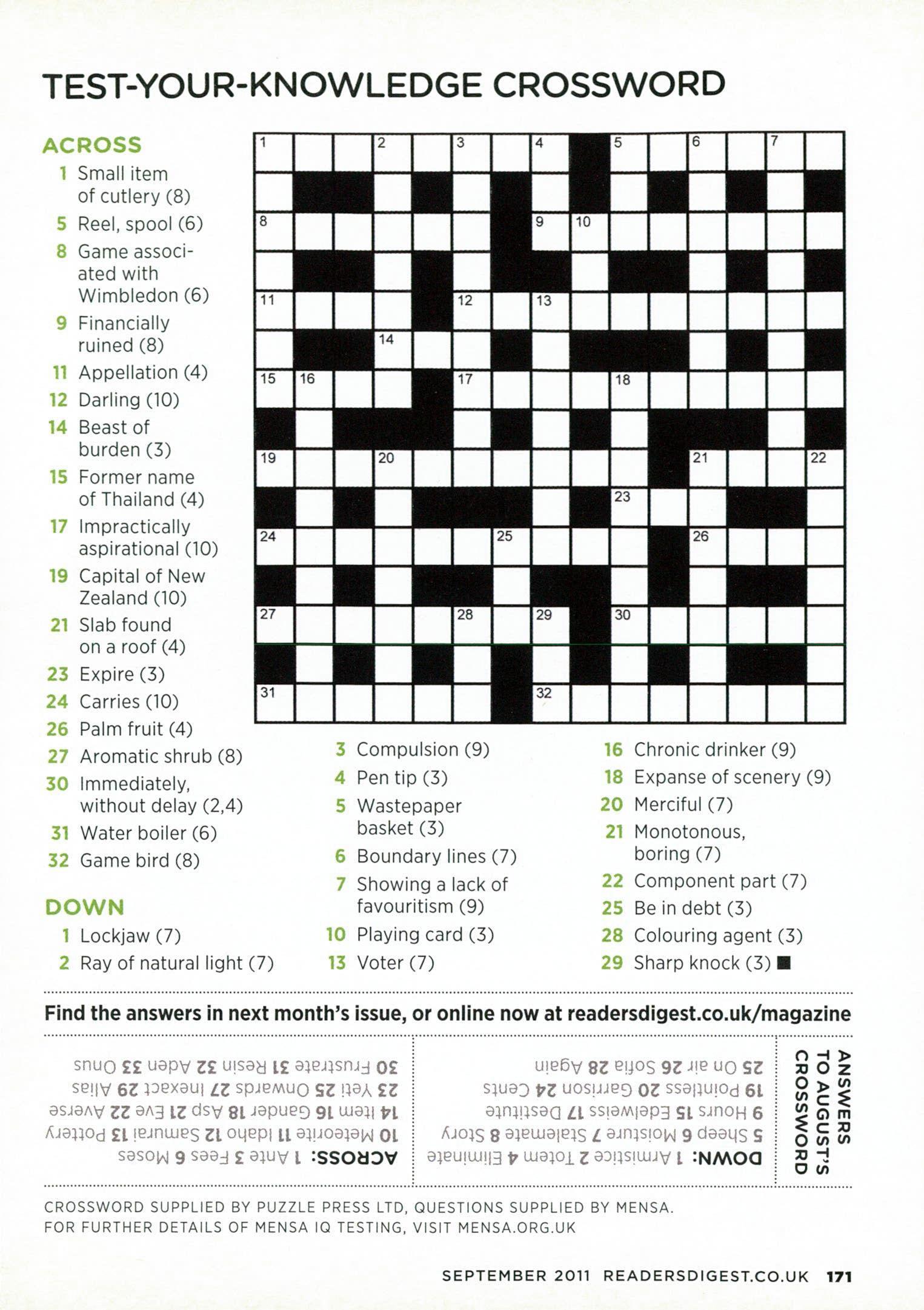
3 Compulsion (9)
4 Pen tip (3)
5 Wastepaper basket (3)
6 Boundary lines (7)
7 Showing a lack of favouritism (9)
10 Playing card (3)
13 Voter (7)
snuo PePV Z£ u!sed ale.nsnid Of sew 6Z pexeuia spiemuo SZ PeA EZ asienv ZZ 8A3 LZ dsV 81Japueg 91Well P1
AATIod IL !einwes zi o4ePl LL alPoalaN101 sasow 9 seed £ aluV L :SS01:13V
16 Chronic drinker (9)
18 Expanse of scenery (9)
20 Merciful (7)
21 Monotonous, boring (7)
22 Component part (7)
25 Be in debt (3)
28 Colouring agent (3)
29 Sharp knock (3)11
u!e6v gz eps sz .4!e u0 SZ slue) Ltz uospRo OZ ssellui0d 61 eln1Rsea LL ss!amloP3 SL sanoH 6 Aims 8 alewelelS L a mispw 9 deallS aleup!I3 y waloi Z aDps!wiV L :NMOCI
Laugh!
SEND YOUR JOKES TO EXCERPTSct READERSDIGEST.CO.UK OR GO TO FACEBOOK.COM/READERSDIGESTUK
1 A man walks into a GP surgery. "Help me, doctor," he says. "I'm addicted to Twitter."
"Sorry," replies the GP. "I don't follow you."
Grahame Jones, London EC1A
1 The packaging on my bananas says they're ready to eat. So why haven't they taken a bite?
Comedian Tom Webb
1 I bet on three horses yesterday: Moonlight, Sunshine and Good Times. They all lost—I blame it on the bookie.
Frances Clarke, Glasgow
9 A Big Issue seller tried to sell me a copy of Metro. I felt a combination of fear and admiration for his sales technique—and I bought the paper.
It wasn't until I walked away that I realised it was a previous week's issue.
Comedian Davey See
1 I just realised you should only monitor your own baby with a baby monitor.
Comedian Jarlath Regan
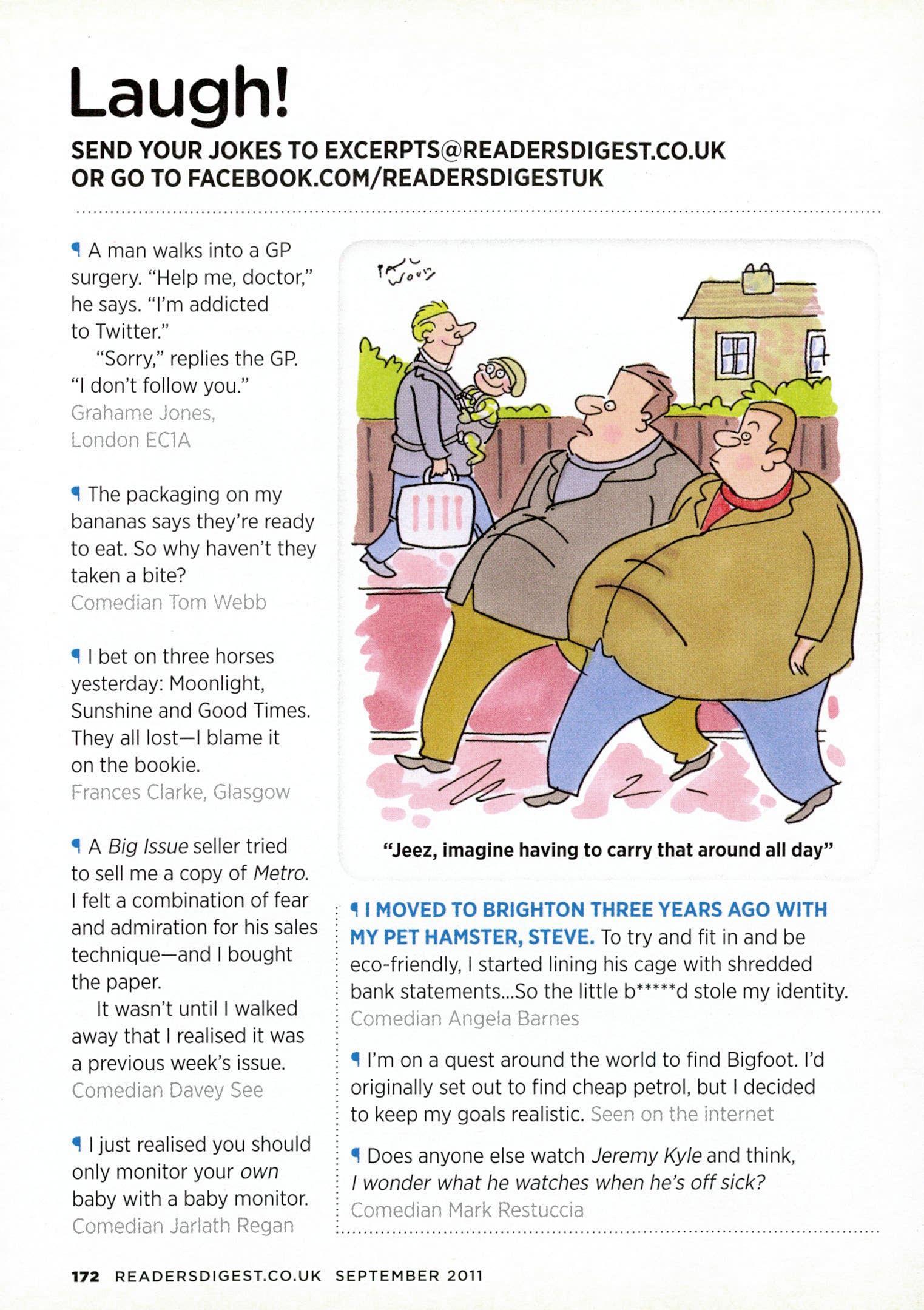
"Jeez, imagine having to carry that around all day"
1 I MOVED TO BRIGHTON THREE YEARS AGO WITH MY PET HAMSTER, STEVE. To try and fit in and be eco-friendly, I started lining his cage with shredded bank statements...So the little b*****d stole my identity.
Comedian Angela Barnes
1 I'm on a quest around the world to find Bigfoot. I'd originally set out to find cheap petrol, but I decided to keep my goals realistic. Seen on the internet
Does anyone else watch Jeremy Kyle and think, I wonder what he watches when he's off sick?
Comedian Mark Restuccia
1
A man came home from work with a trombone.
"Where did you get that from?" asked his wife.
"I borrowed it from our neighbour," he replied.
"But you don't play the trombone."
"No, and now he can't play it, either."
Kenneth Roberts, Wigan, Lancashire
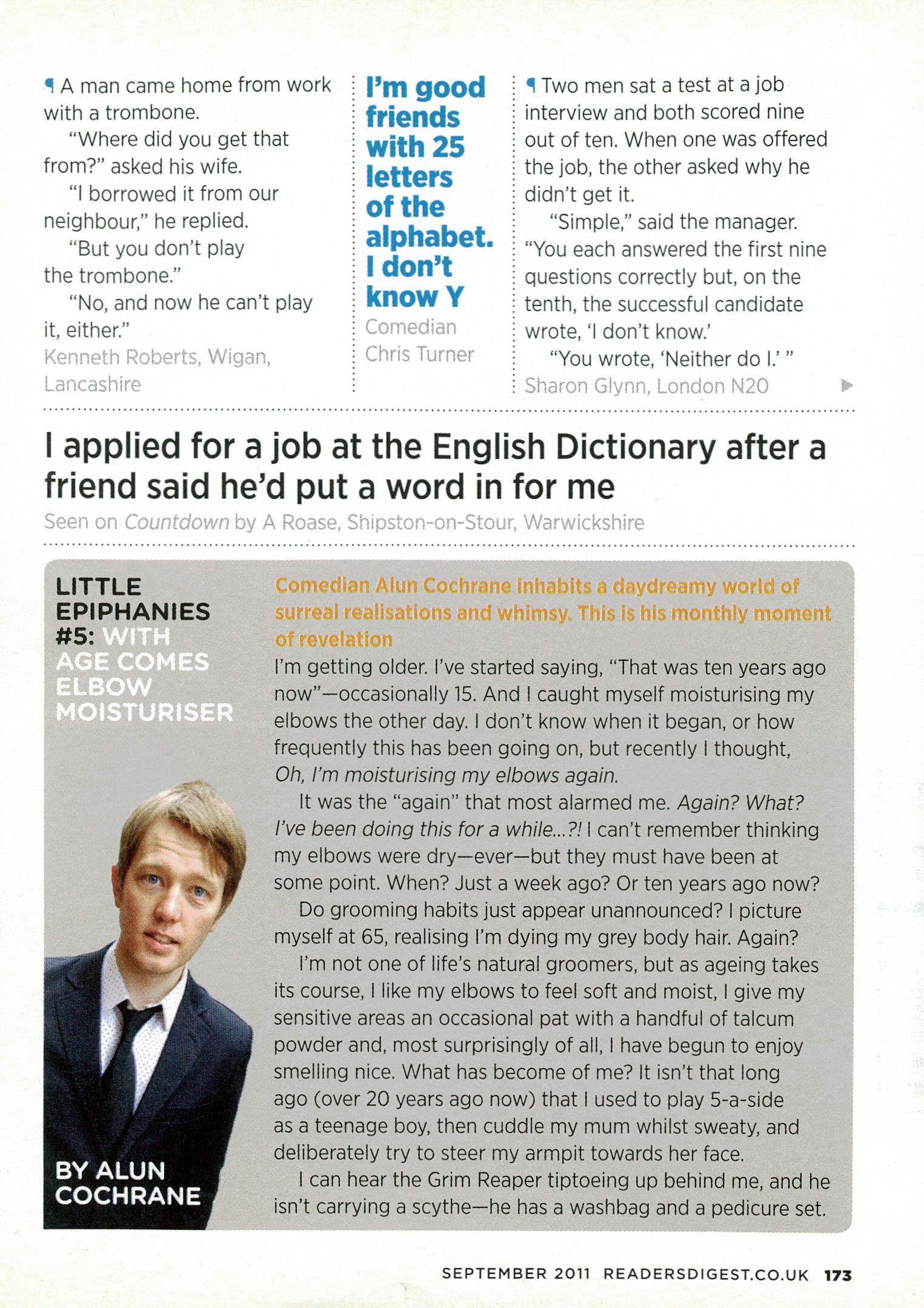
I'm good friends with 25 letters of the alphabet. I don't know Y Comedian Chris Turner
1 Two men sat a test at a job interview and both scored nine out of ten. When one was offered the job, the other asked why he didn't get it.
"Simple," said the manager.
"You each answered the first nine questions correctly but, on the tenth, the successful candidate wrote, 'I don't know.'
"You wrote, 'Neither do I.' "
Sharon Glynn, London N20
I applied for a job at the English Dictionary after a friend said he'd put a word in for me
Seen on Countdown by A Roase, Shipston-on-Stour, Warwickshire
LITTLE EPIPHANIES
#5:
I'm getting older. I've started saying, "That was ten years ago now"—occasionally 15. And I caught myself moisturising my elbows the other day. I don't know when it began, or how frequently this has been going on, but recently I thought, Oh, I'm moisturising my elbows again.
It was the "again" that most alarmed me. Again? What? I've been doing this for a while...?! I can't remember thinking my elbows were dry—ever—but they must have been at some point. When? Just a week ago? Or ten years ago now?
Do grooming habits just appear unannounced? I picture myself at 65, realising I'm dying my grey body hair. Again?
I'm not one of life's natural groomers, but as ageing takes its course, I like my elbows to feel soft and moist, I give my sensitive areas an occasional pat with a handful of talcum powder and, most surprisingly of all, I have begun to enjoy smelling nice. What has become of me? It isn't that long ago (over 20 years ago now) that I used to play 5-a-side as a teenage boy, then cuddle my mum whilst sweaty, and deliberately try to steer my armpit towards her face.
I can hear the Grim Reaper tiptoeing up behind me, and he isn't carrying a scythe—he has a washbag and a pedicure set.
SCHOOLBOY JAPES
FROM TWITTER.COM/ SIXTHFORMPOET
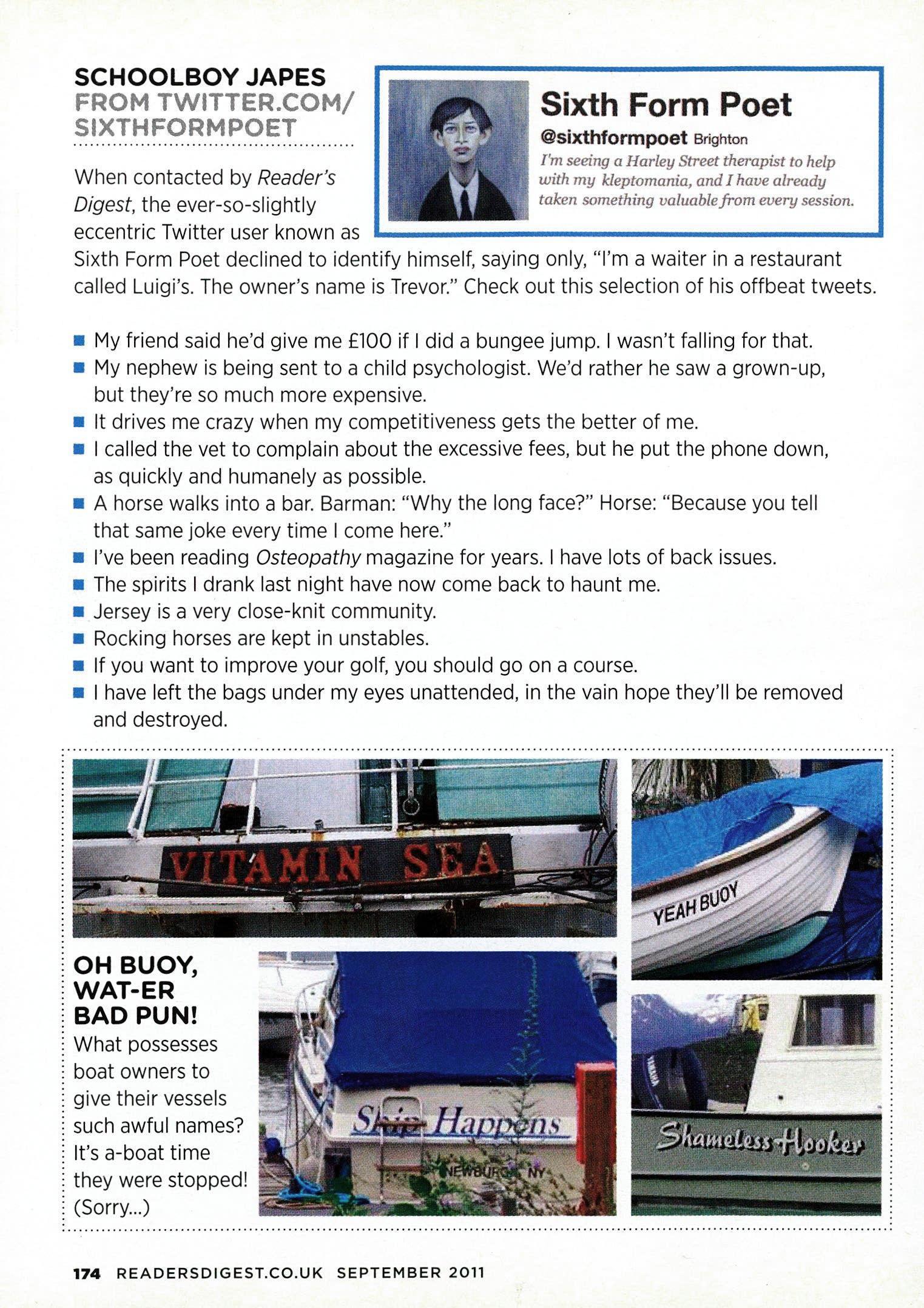
Sixth Form Poet
@sixthformpoet Brighton
I'm seeing a Harley Street therapist to help with my kleptomania, and I have already taken something valuable from every session.
When contacted by Reader's Digest, the ever-so-slightly eccentric Twitter user known as Sixth Form Poet declined to identify himself, saying only, "I'm a waiter in a restaurant called Luigi's. The owner's name is Trevor." Check out this selection of his offbeat tweets.
■ My friend said he'd give me £100 if I did a bungee jump. I wasn't falling for that.
■ My nephew is being sent to a child psychologist. We'd rather he saw a grown-up, but they're so much more expensive.
■ It drives me crazy when my competitiveness gets the better of me.
■ I called the vet to complain about the excessive fees, but he put the phone down, as quickly and humanely as possible.
■ A horse walks into a bar. Barman: "Why the long face?" Horse: "Because you tell that same joke every time I come here."
■ I've been reading Osteopathy magazine for years. I have lots of back issues.
■ The spirits I drank last night have now come back to haunt me.
■ Jersey is a very close-knit community.
■ Rocking horses are kept in unstables.
■ If you want to improve your golf, you should go on a course.
■ I have left the bags under my eyes unattended, in the vain hope they'll be removed and destroyed.
OH BUOY, WAT-ER BAD PUN!
What possesses boat owners to give their vessels such awful names? It's a-boat time they were stopped! (Sorry...)
1 It's hard to tell when dolphins are dying, because for one thing they're show-offs and, for another, they're naturally blue.
Comedian Harry Hill
I Every time I buy something, I have to get rid of something. So I've had to throw a lot of my husband's stuff away.
Comedian Rita Rudner
I If I had a pound for every time I went to the gym...l'd be able to use the lockers.
Comedian Martin Bearne
I When we die we will all be strung up and hurled at each other—according to the conker I was talking to. Comedian Milton Jonos FOR EVERY READER'S JOKE WE PUBLISH, WIN EITHER £70 OR OUR SPECIAL GOODY BAG WORTH UP TO £150. SEE readersdigest. co.uk/magazine FOR DETAILS
60-Second Stand-Up
Ladies and gentlemen, please welcome Omid Djalili
FAVOURITE ONE-LINER?
I
like one of Tim Vine's
jokes, which is the shortest I've ever heard: "Velcro. What a rip-off."
BEST JOKE YOU'VE EVER WRITTEN?
I used to say, "Most people associate the Middle East with oil, phlegm and halitosis." And then I said, "I'm joking, I'm joking... We're running out of oil." That was in the first five minutes of stand-up I ever put together.
FUNNIEST THING THAT'S EVER HAPPENED TO YOU?
I'd finished a show in Sheffield and went to a kebab shop on the way home. The owner said, "You're Omid Djalili! We have someone here with the same name." But he turned out to be a young student recently arrived from Iran, who didn't know me and wasn't impressed. In fact, he wanted to see my ID, to prove / had the same name as him.
WHO'S YOUR COMEDY INSPIRATION?
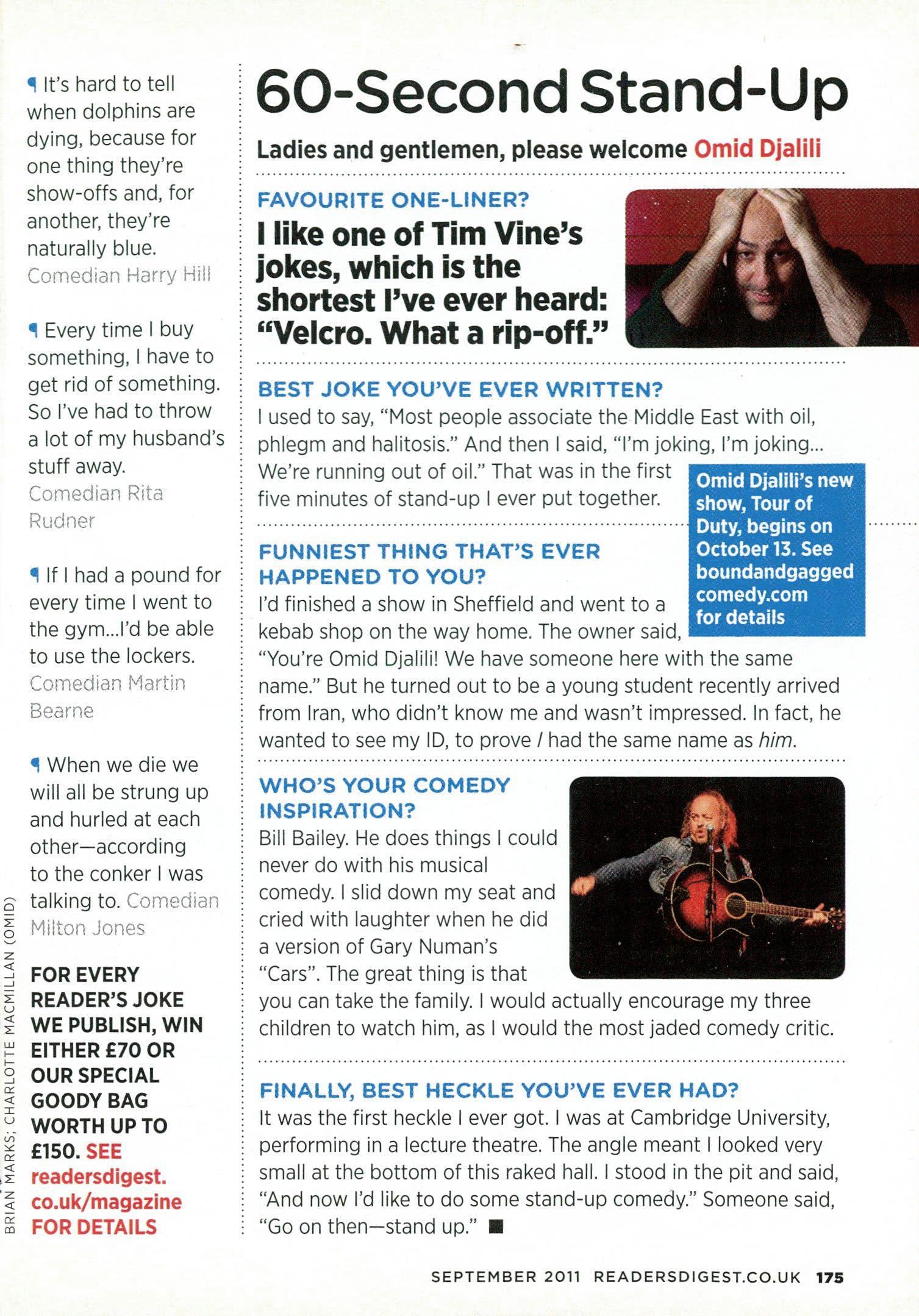
Omid Djalili's new show, Tour of Duty, begins on October 13. See boundandgagged comedy.com for details
Bill Bailey. He does things I could never do with his musical comedy. I slid down my seat and cried with laughter when he did a version of Gary Numan's "Cars". The great thing is that you can take the family. I would actually encourage my three children to watch him, as I would the most jaded comedy critic.
FINALLY,
BEST HECKLE YOU'VE EVER HAD?
It was the first heckle I ever got. I was at Cambridge University, performing in a lecture theatre. The angle meant I looked very small at the bottom of this raked hall. I stood in the pit and said, "And now I'd like to do some stand-up comedy." Someone said, "Go on then—stand up." ■
Beat the Cartoonist!
WIN £100 AND A SIGNED ILLUSTRATION
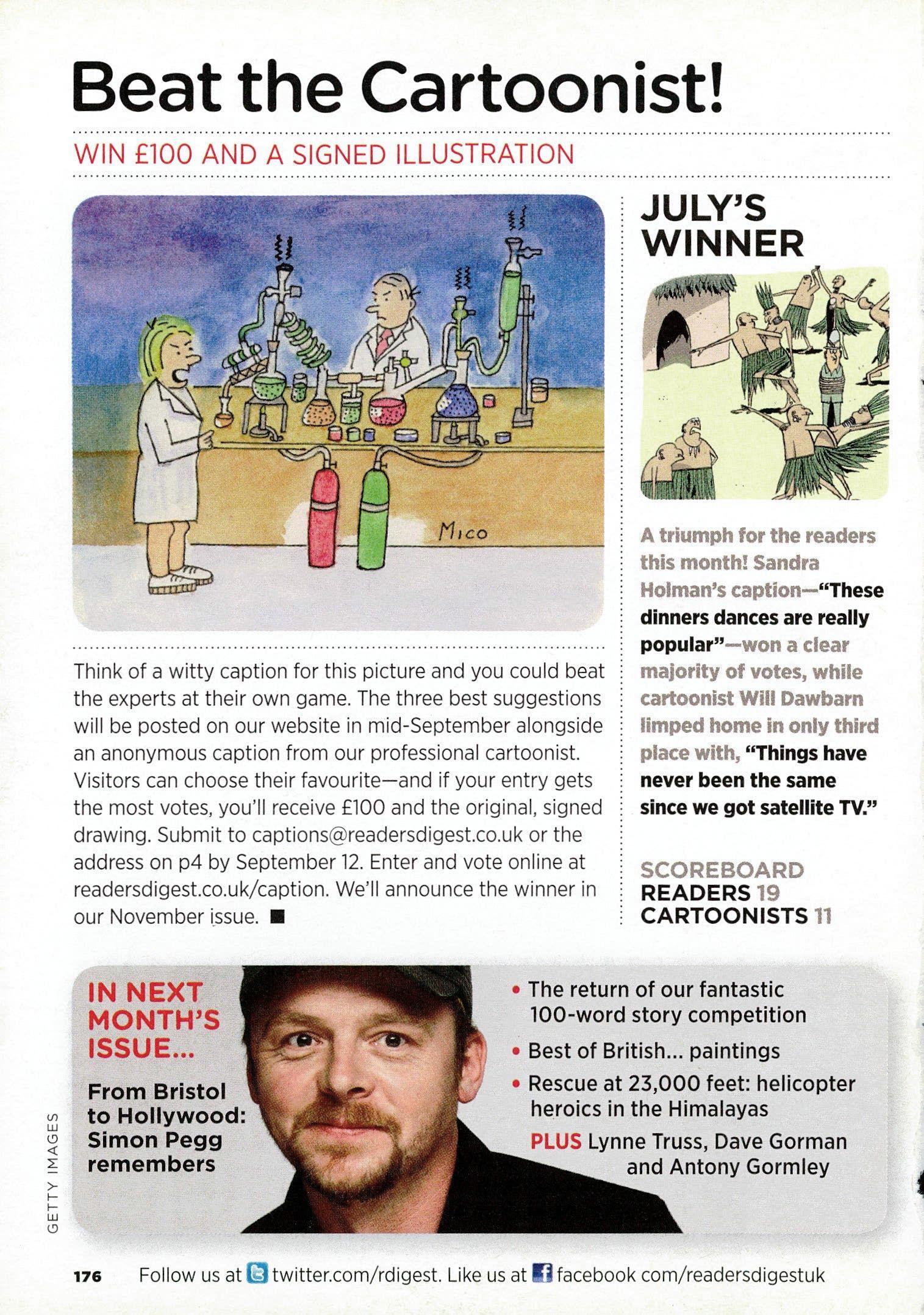
Think of a witty caption for this picture and you could beat the experts at their own game. The three best suggestions will be posted on our website in mid-September alongside an anonymous caption from our professional cartoonist. Visitors can choose their favourite—and if your entry gets the most votes, you'll receive £100 and the original, signed drawing. Submit to captions@readersdigest.co.uk or the address on p4 by September 12. Enter and vote online at readersdigest.co.uk/caption. We'll announce the winner in our November issue. ■
IN NEXT MONTH'S ISSUE...
From Bristol to Hollywood: Simon Pegg remembers
JULY'S WINNER
A triumph for the readers this month! Sandra Holman's caption—"These dinners dances are really popular"—won a clear majority of votes, while cartoonist Will Dawbarn limped home in only third place with, "Things have never been the same since we got satellite TV."
SCOREBOARD READERS 19 CARTOONISTS 11
• The return of our fantastic 100-word story competition
• Best of British... paintings
• Rescue at 23,000 feet: helicopter heroics in the Himalayas PLUS Lynne Truss, Dave Gorman and Antony Gormley
Would you spare 10 minutes to prevent a Stroke?
Fast, accurate, preventive health screenings in your areasave up to i101 off list prices on a complete package of tests
Did you know that strokes are the third most common cause of death in the UK?
And yet the National Stroke Association says 80% can be prevented. Some simple screening tests can help put your mind at rest. And, should anything be detected early, you and your GP can do something about it now before it's too late. Your risk of a stroke doubles every decade after you are 50. Almost one in four men and one in five women aged 45 can expect to suffer a stroke if they live to 85.
Wouldn't it be comforting to know you had reduced the chances of having a stroke or suffering a debilitating condition?
So if you like to face possible health problems rather than ignore them, call 0800 046 7988 now You could also SAVE 1101
Coming to your area
Our team of screening experts will be in your area soon, using exactly the same high-tech screening equipment as top private hospitals. You may feel healthy, but what's going on inside? How would you feel if you knew there was nothing to worry about?
It's easy to put off these decisions — but like Mrs. J. Rudham of Oxon, you may be glad you acted: "Through Life Line Screening it was discovered that I had severe carotid artery disease, I had no other symptoms. One month later I had surgery. Now, just three weeks after the operation, my husband and I are going on our annual three month sailing trip."
Why not call now?
Worryingly, strokes often occur without warning, with no apparent symptoms. As one of our clients said:"Ply wife and teenage children are happier now - it's peace of mind at a certain age." (M. Bentley, Lancs).

All the tests are completely painless — you don't even have to get undressed
Now reduced price
You don't usually get these tests free on the NHS unless you already have symptoms. And they can be extremely expensive privately - costing 100's when only two or three tests are done a day. But we come to over 1,900 convenient community locations like church halls, hotels and leisure centres, and by screening many people the cost is far lower. We search for common causes of stroke, death and disability. It's completely painless - you don't even have to get undressed. If anything is revealed we tell you straight away so treatment can be prescribed by your GP.

